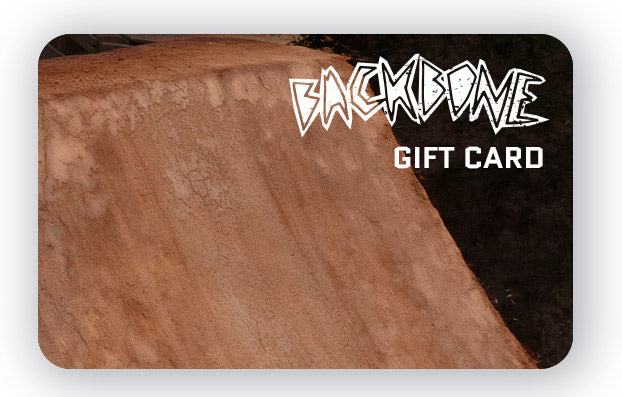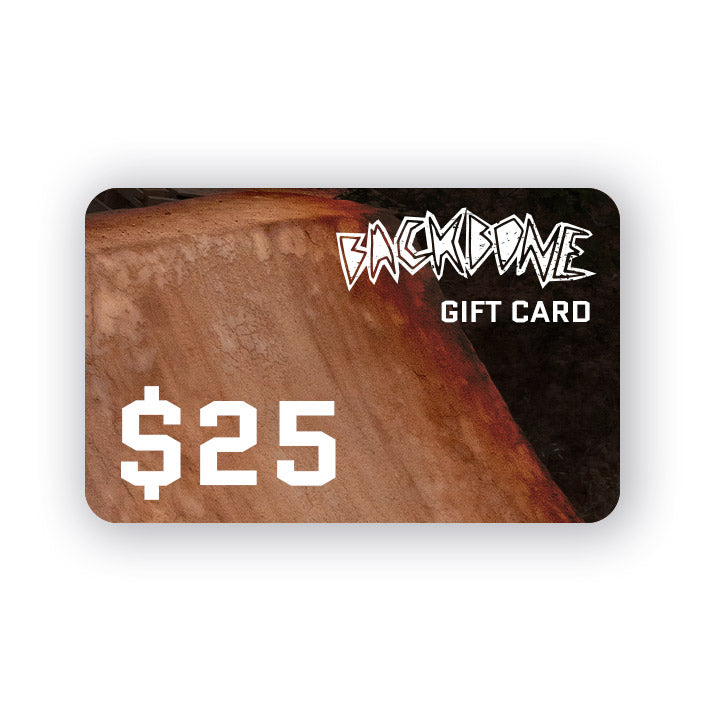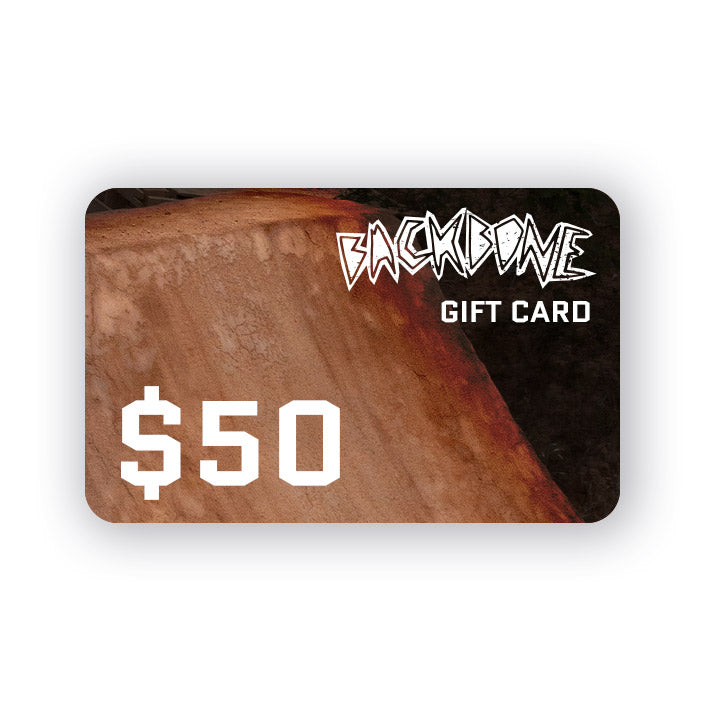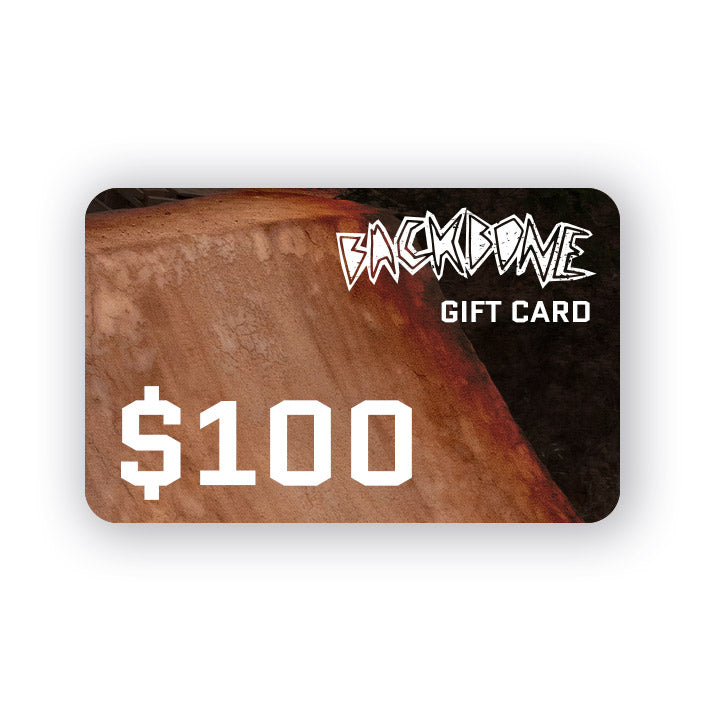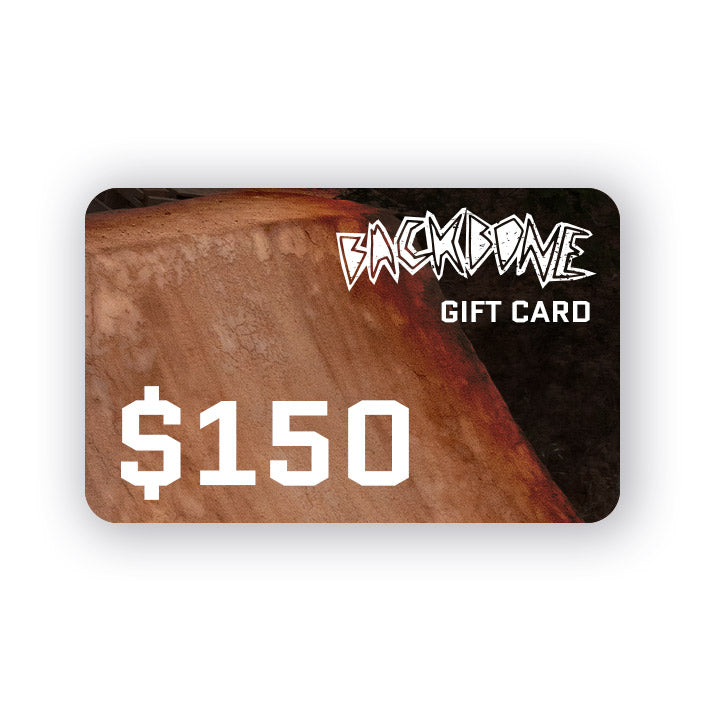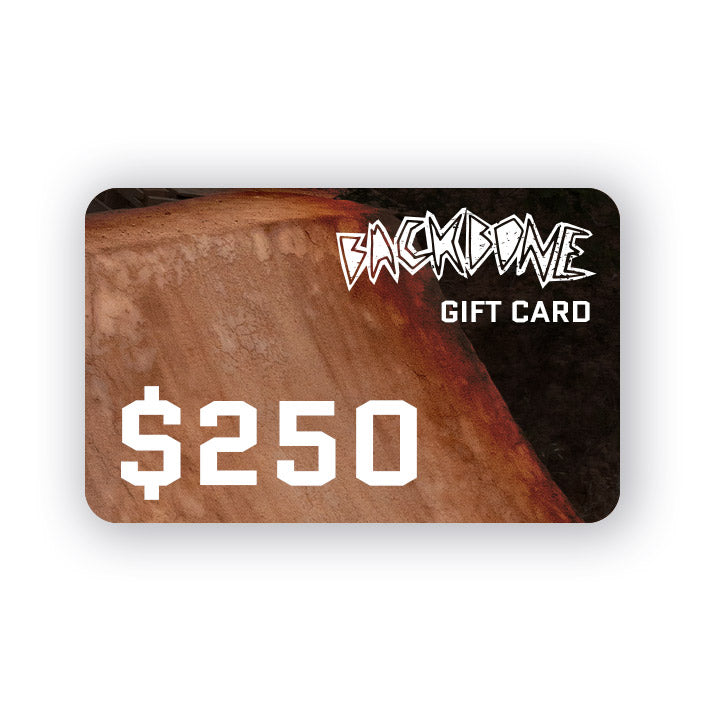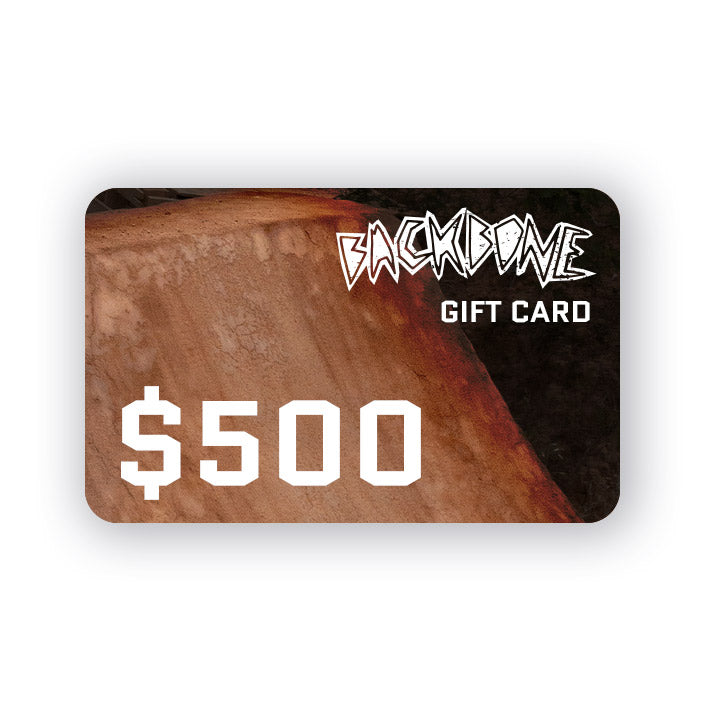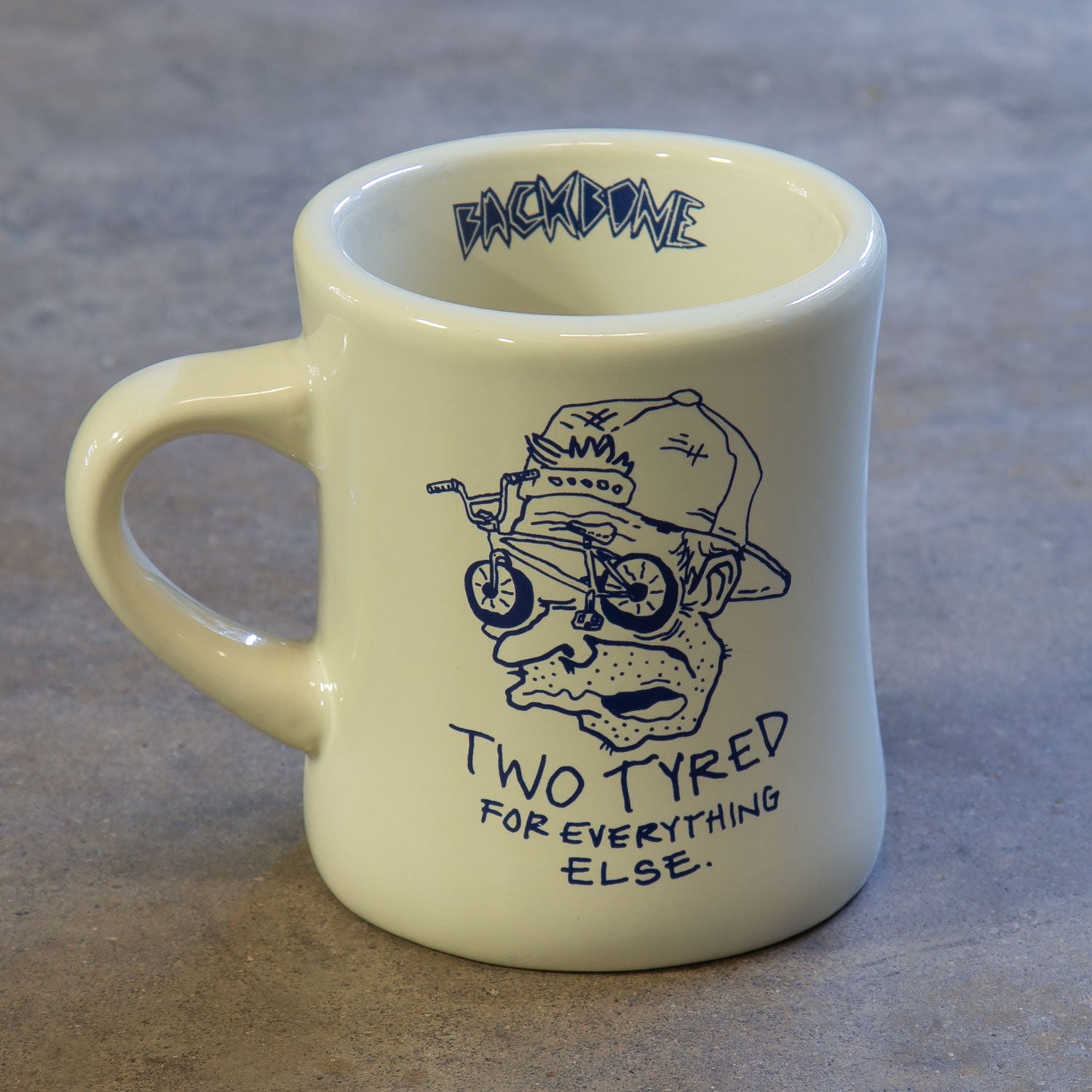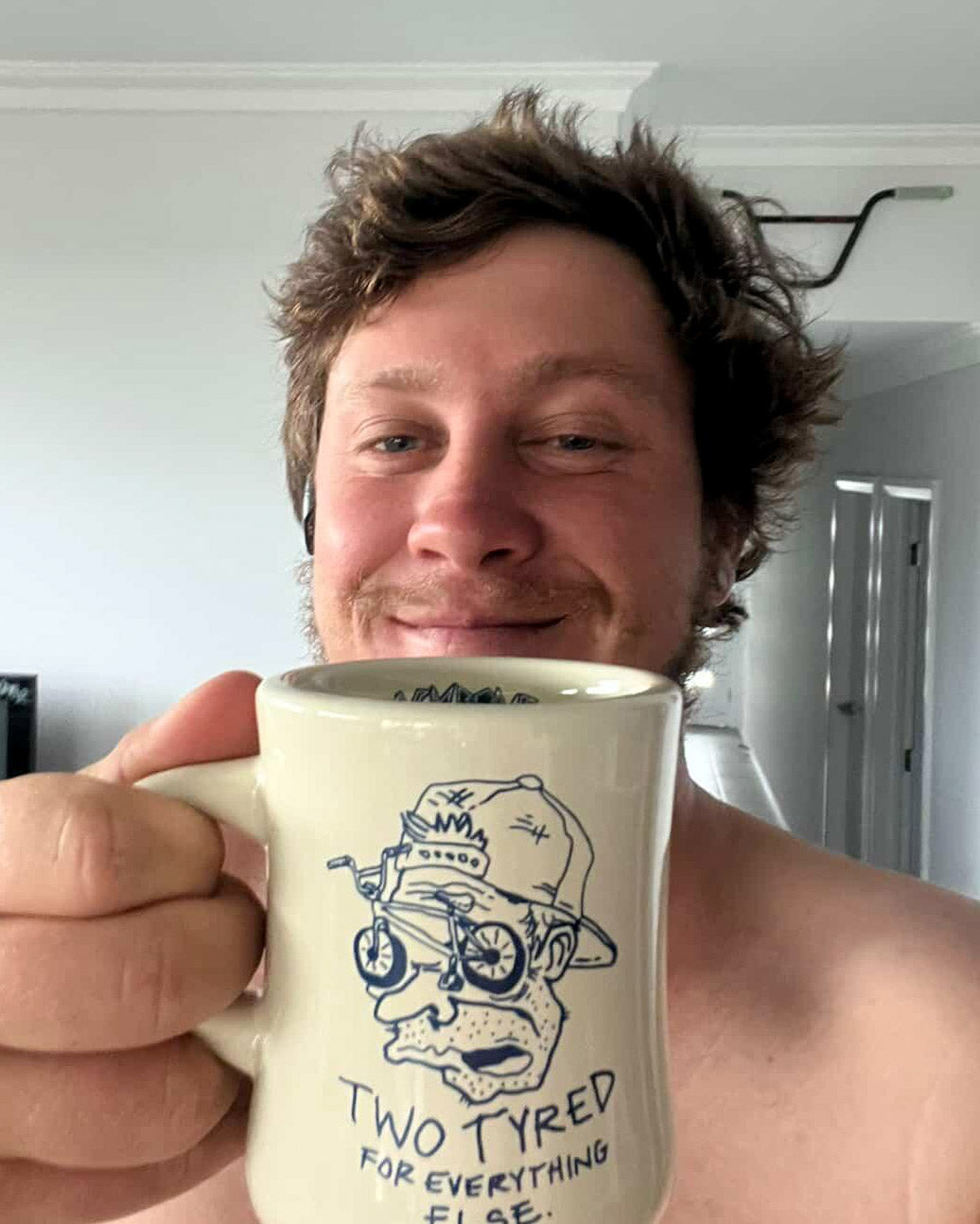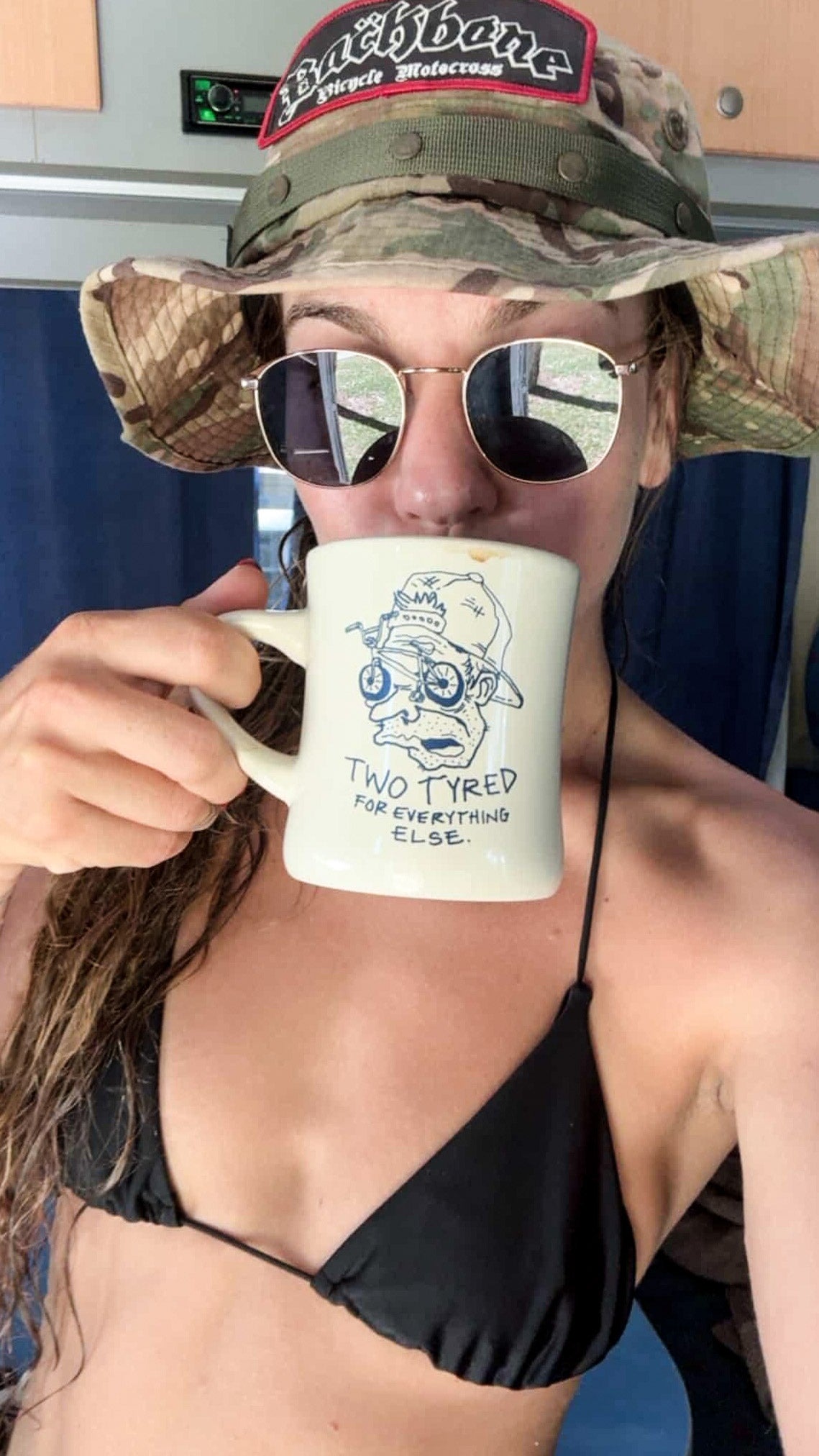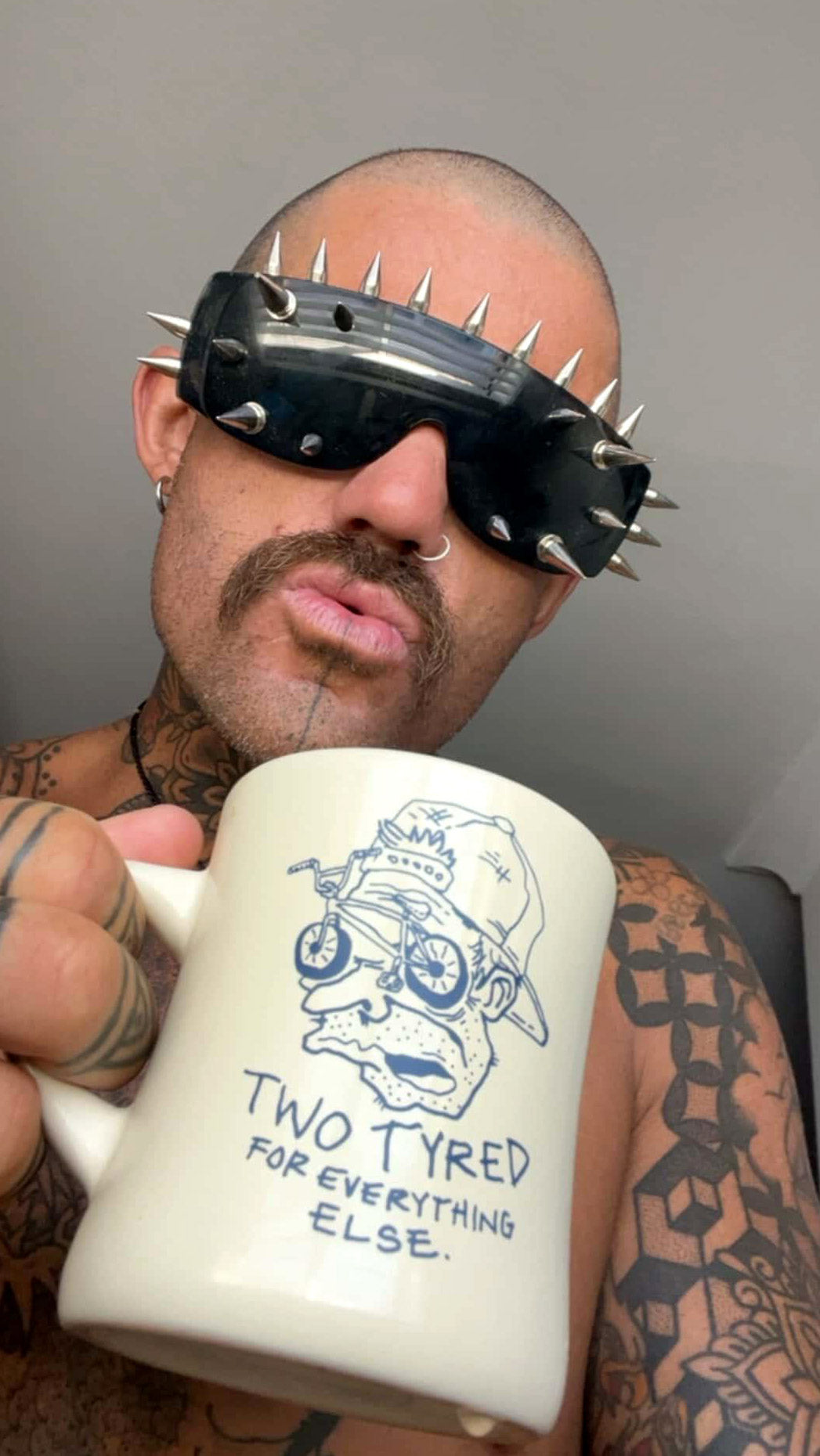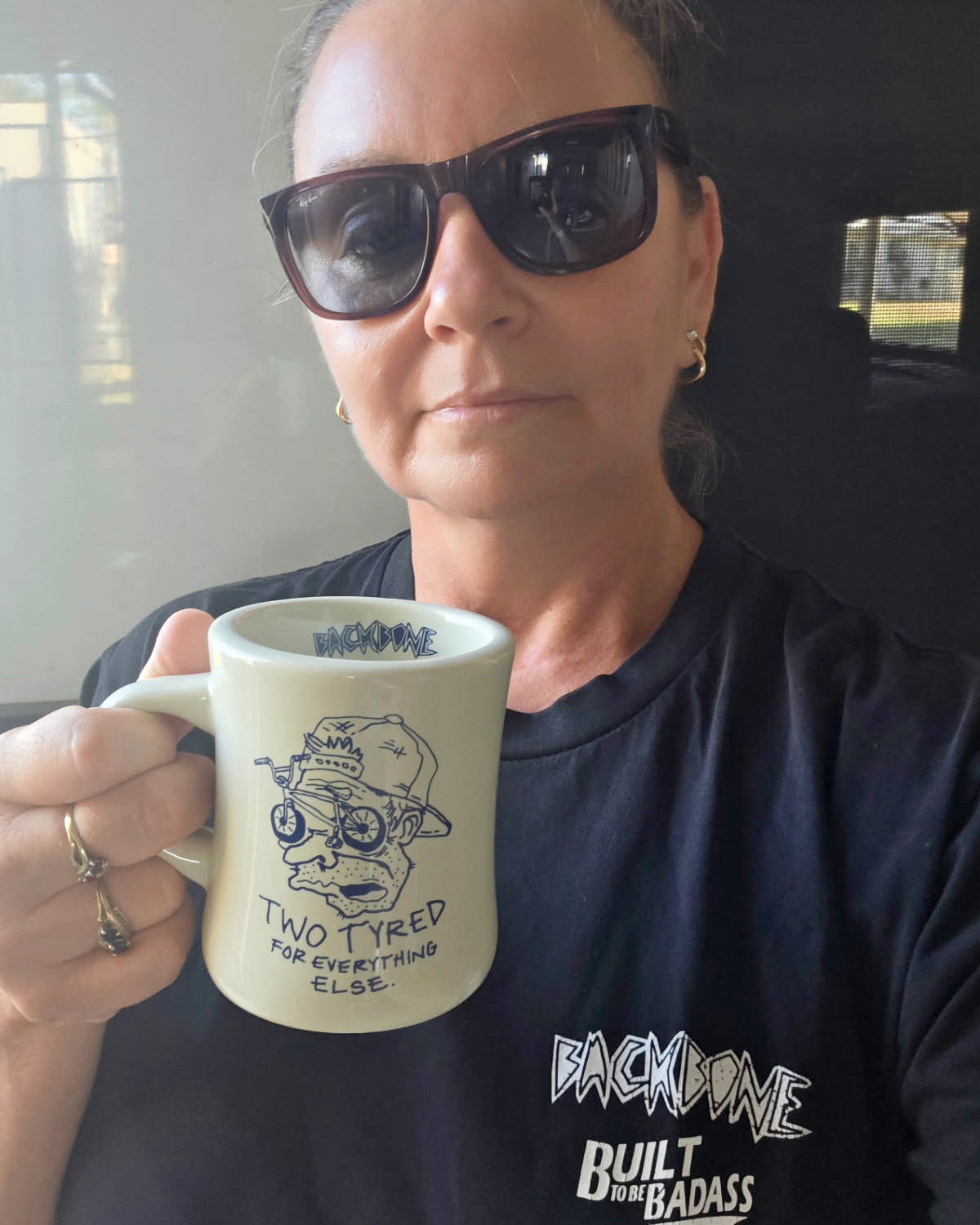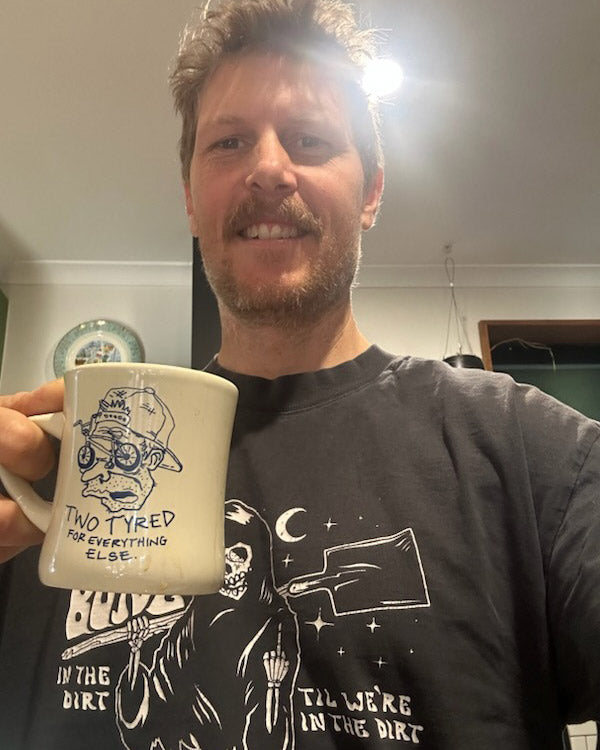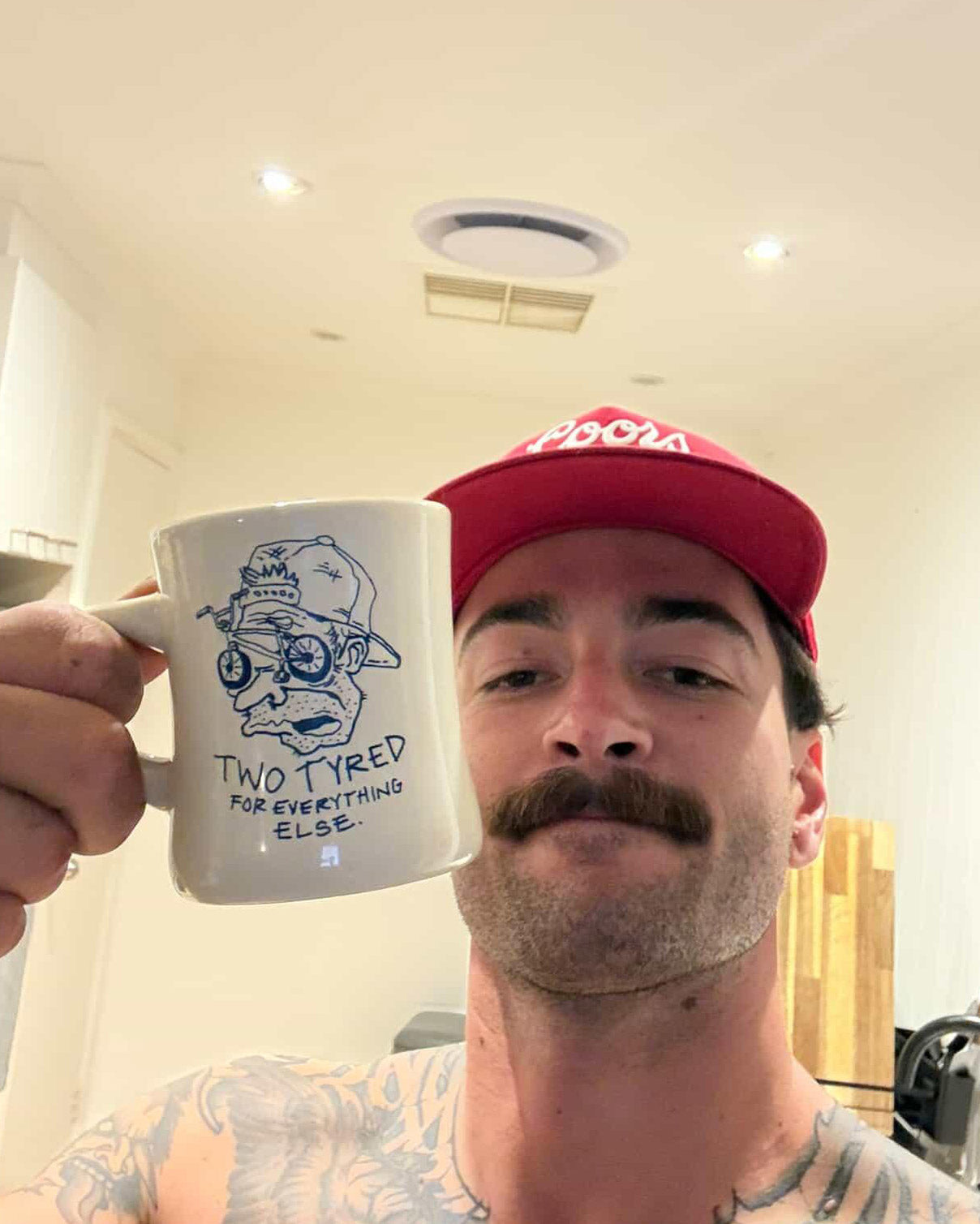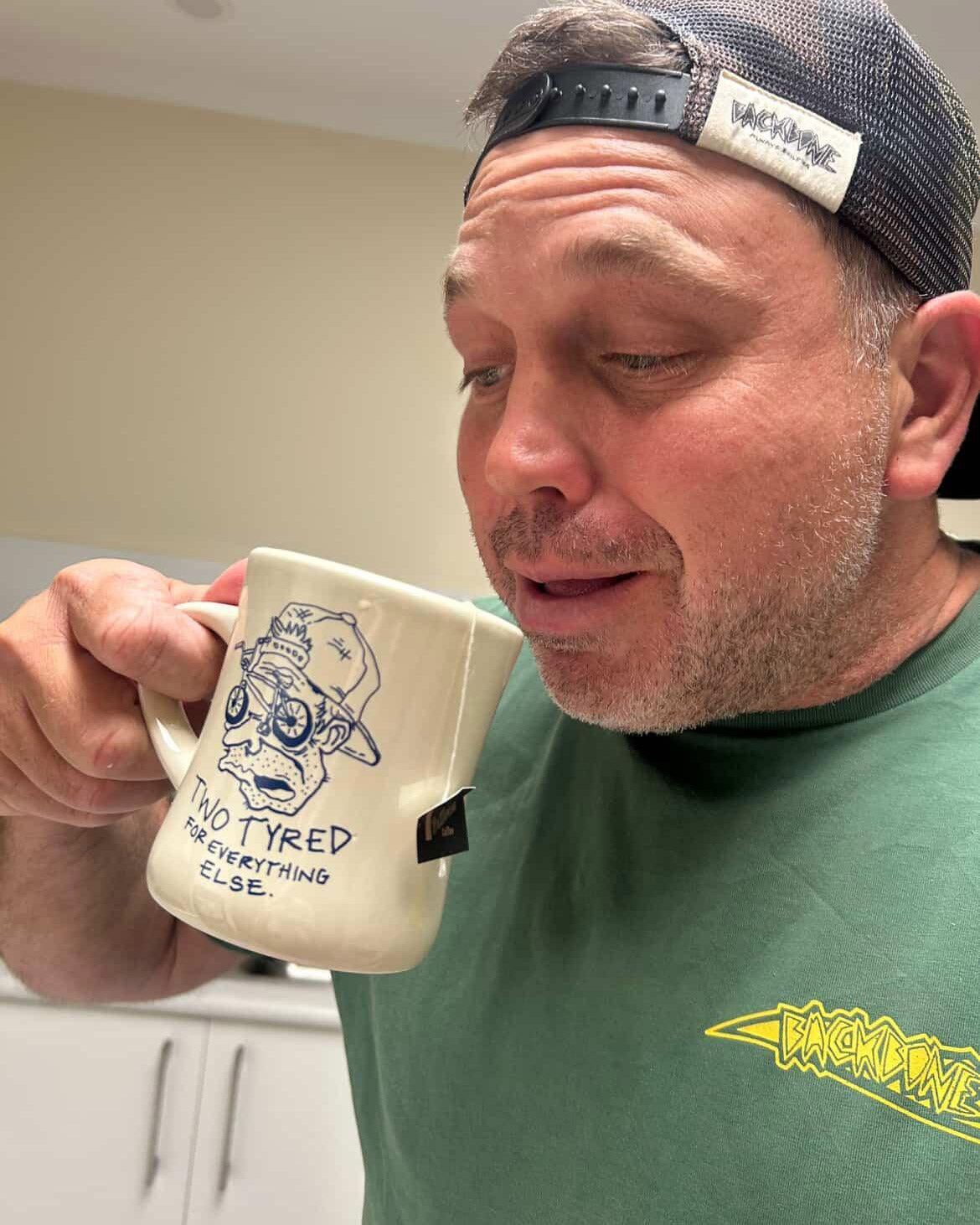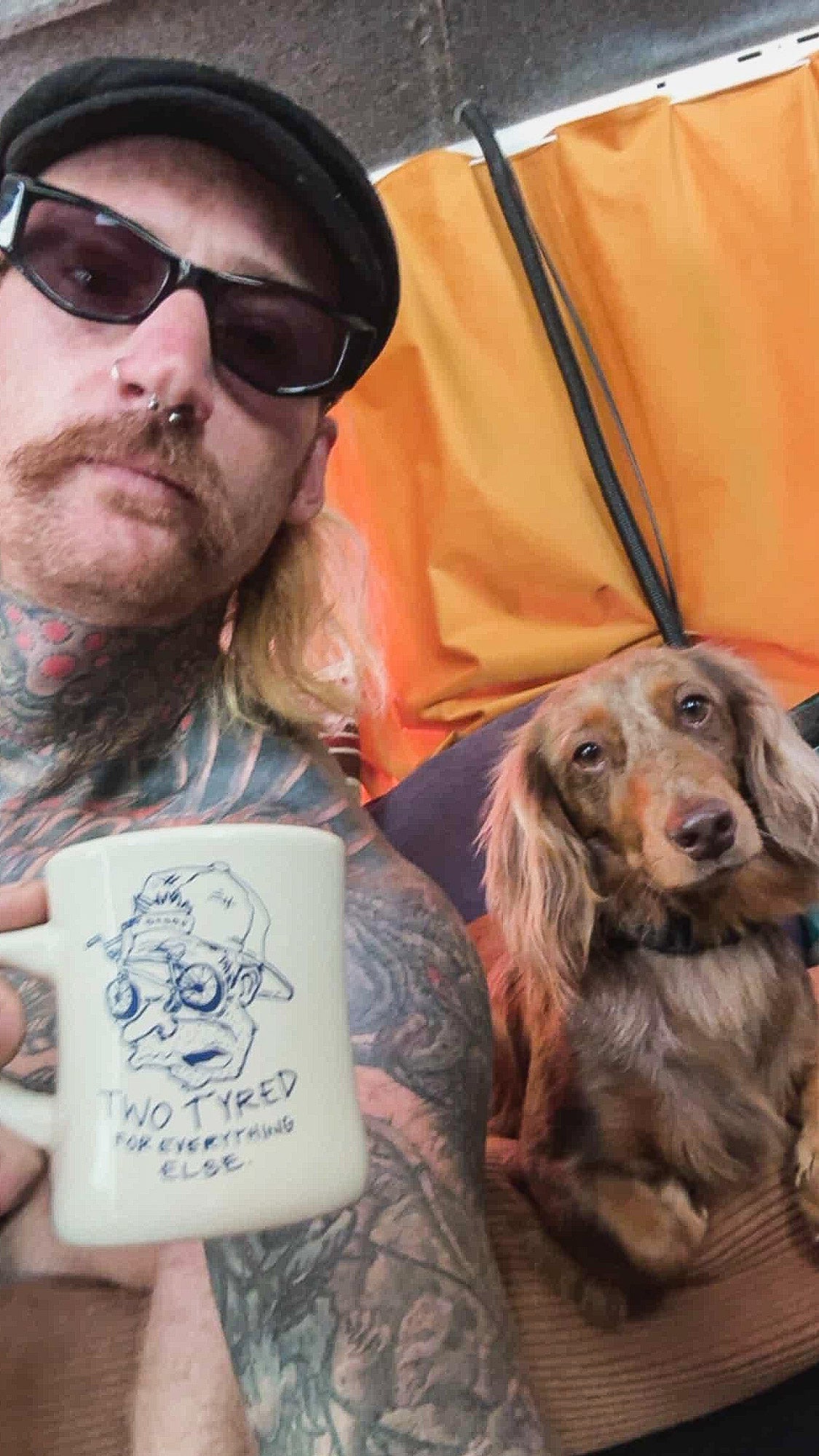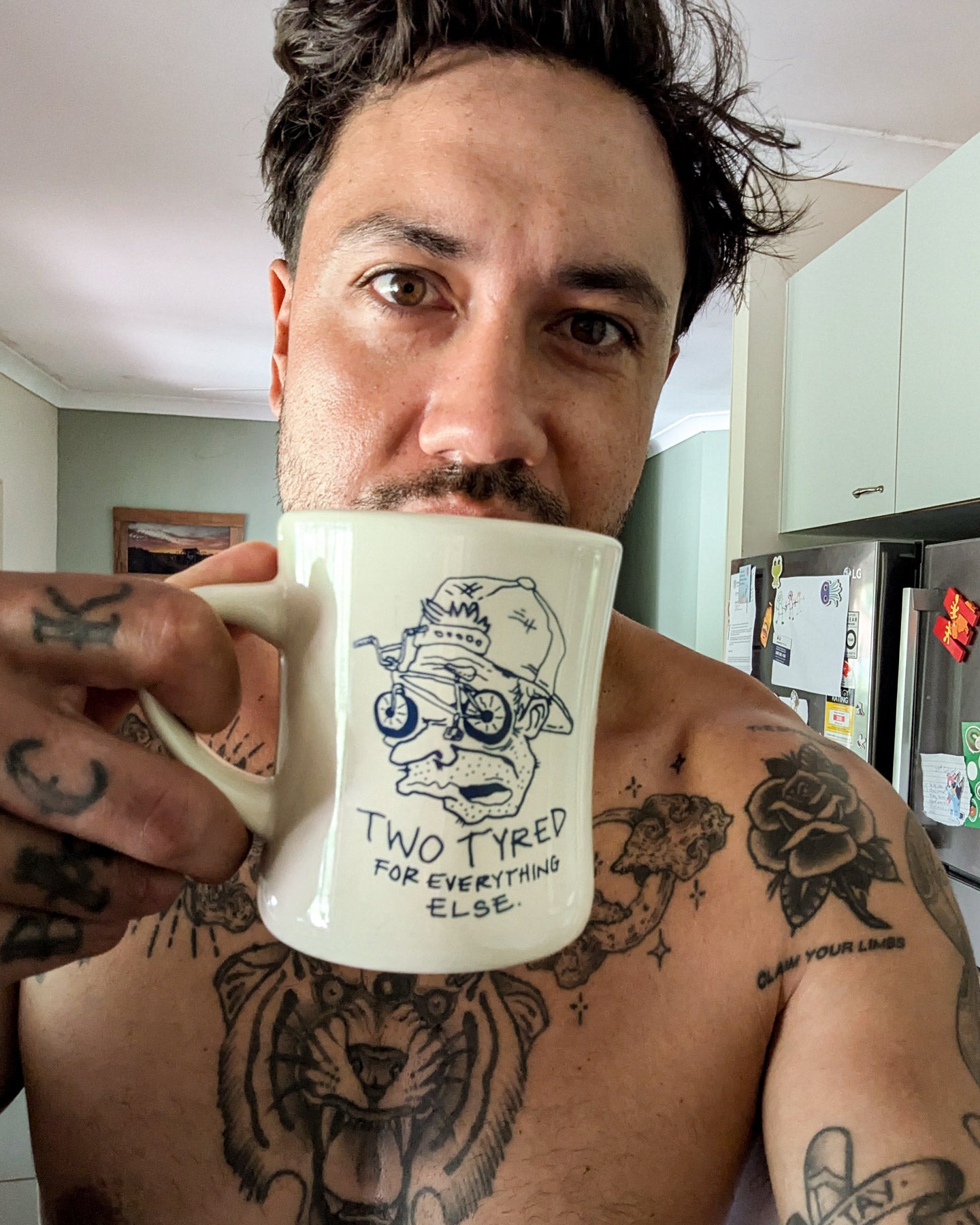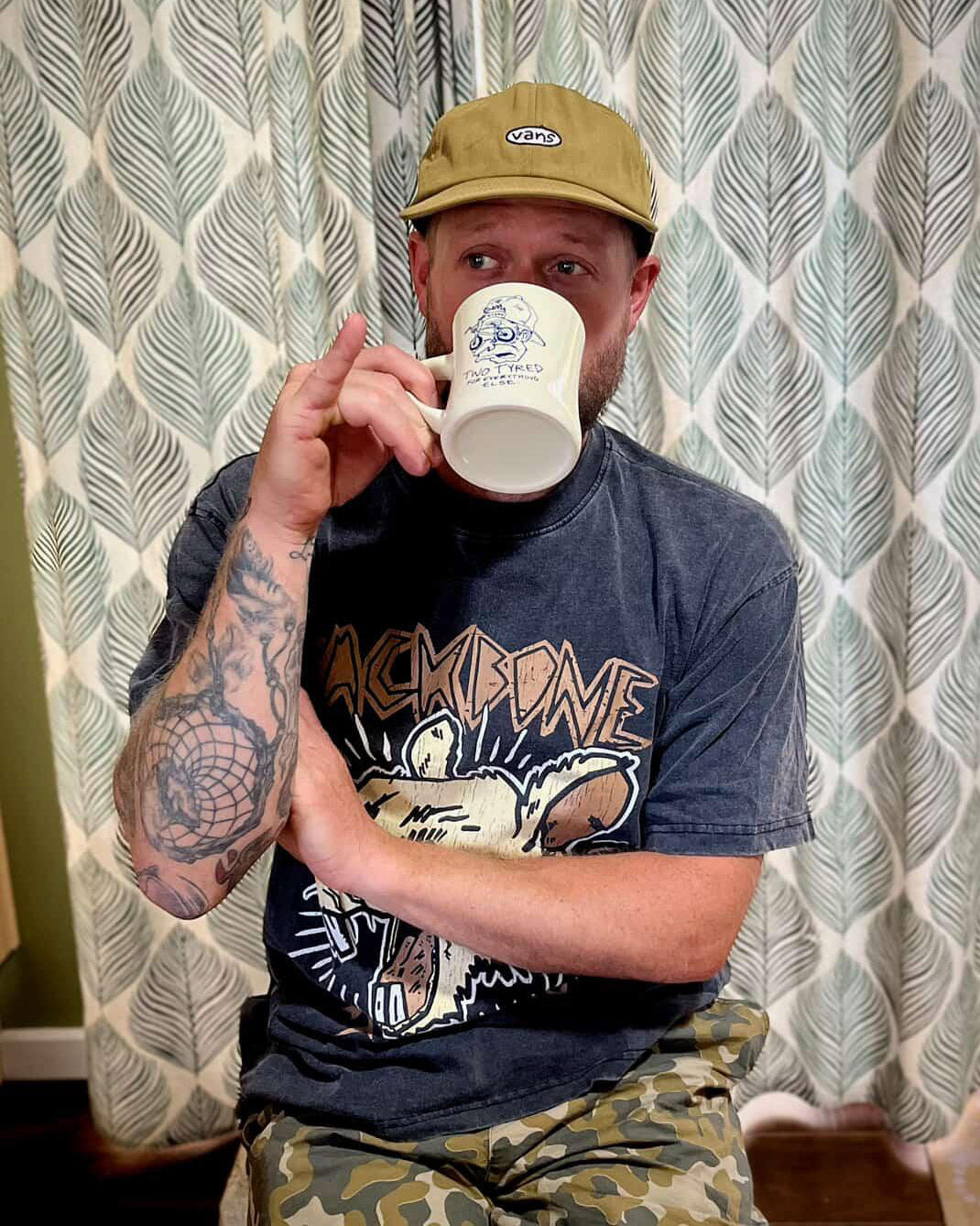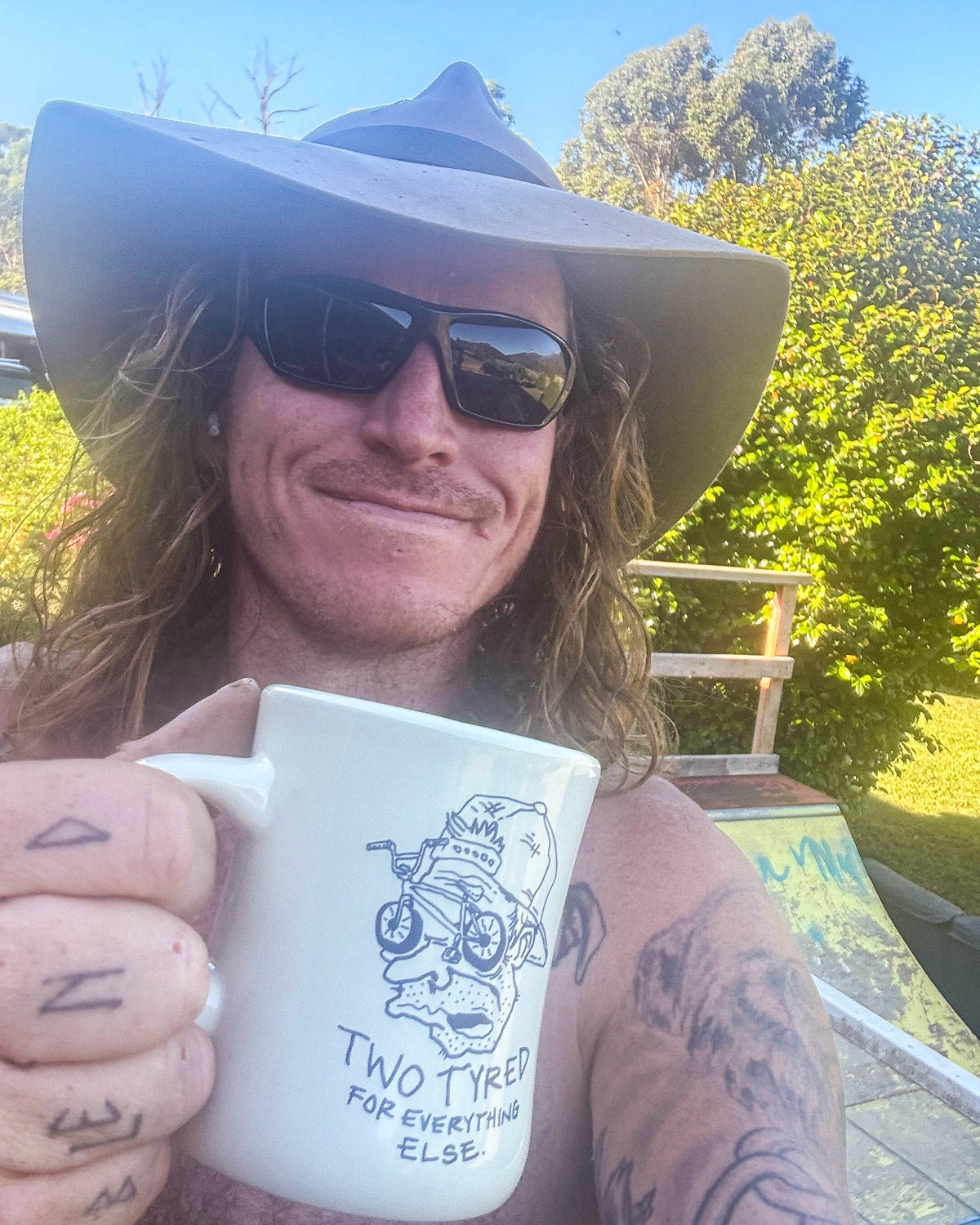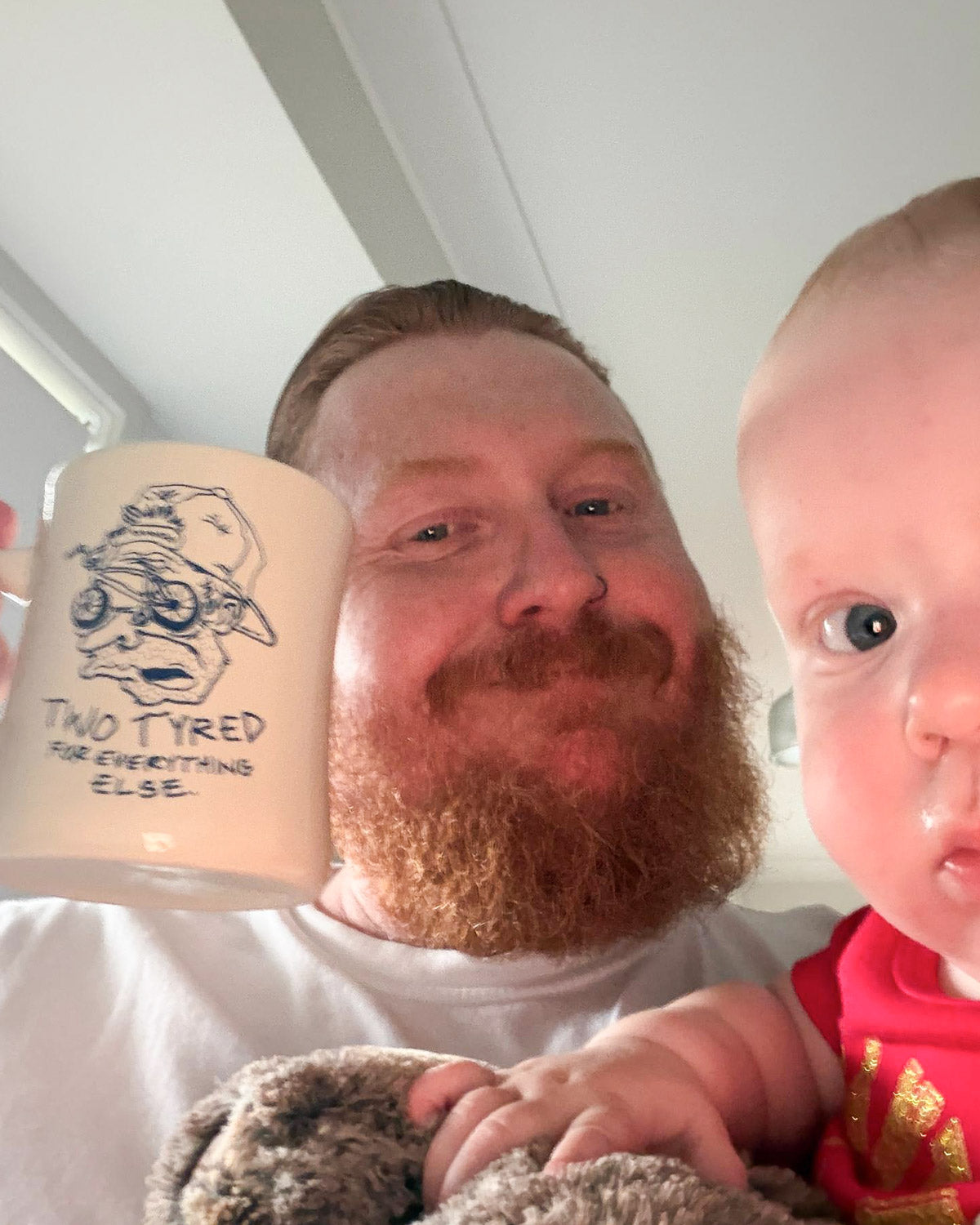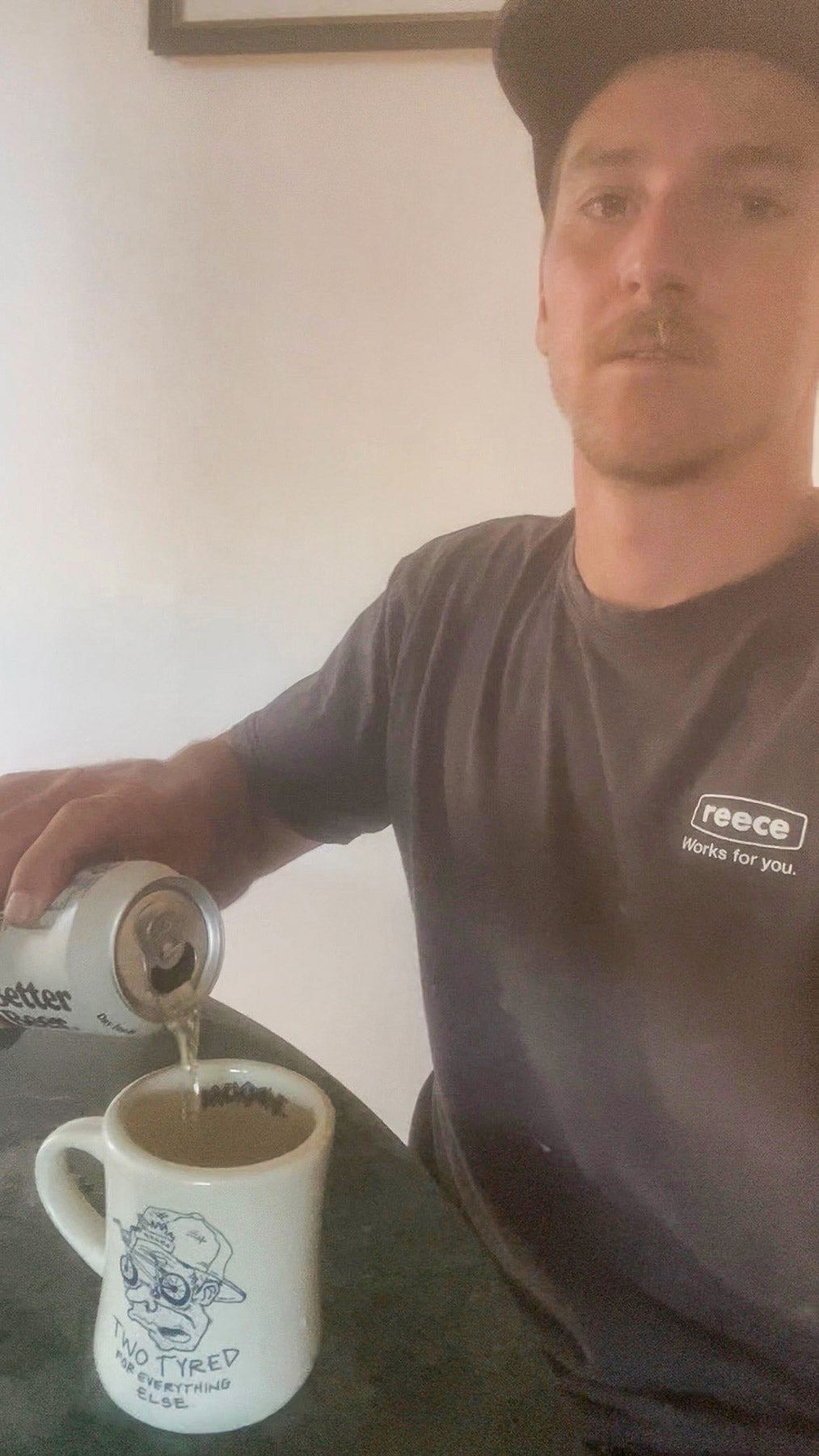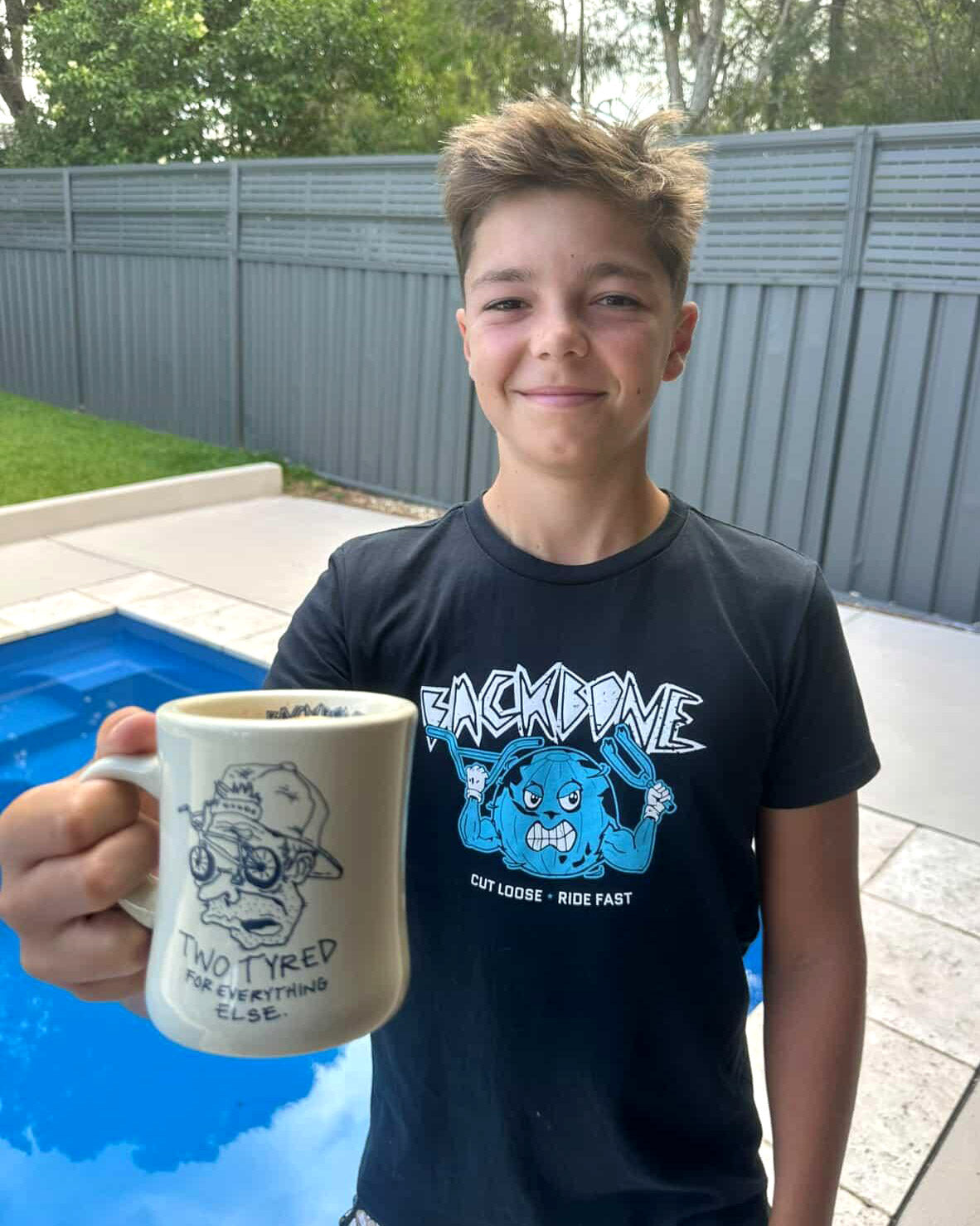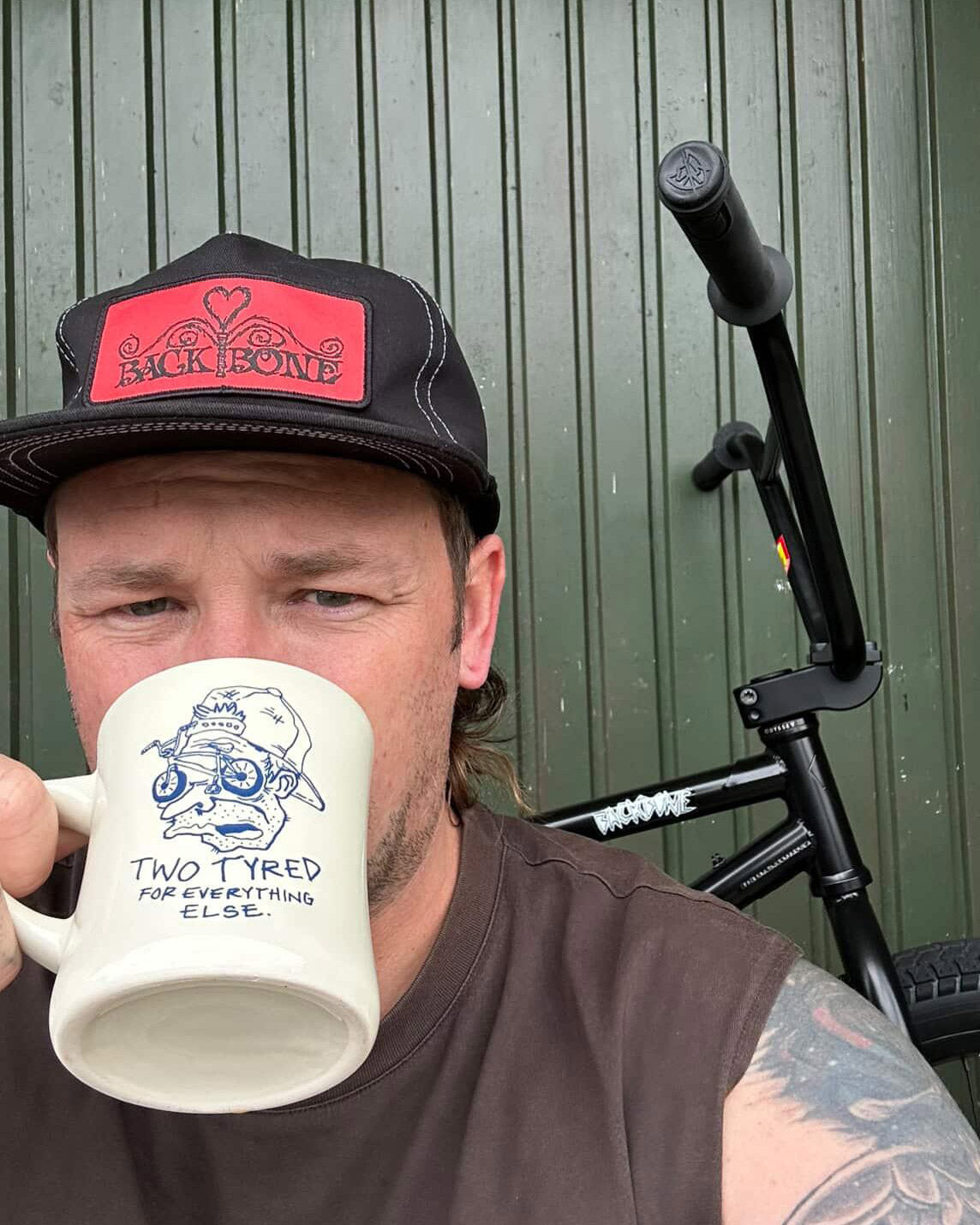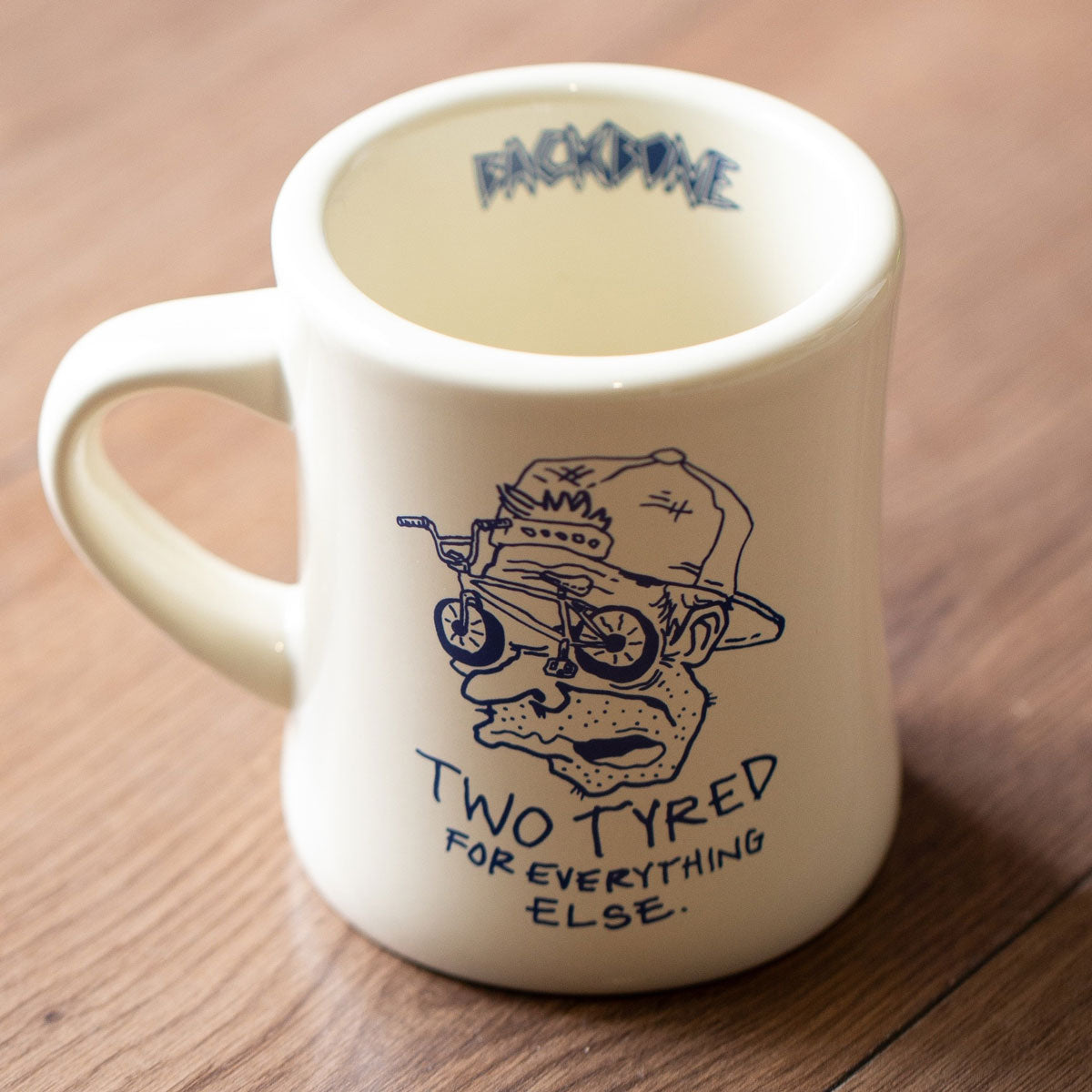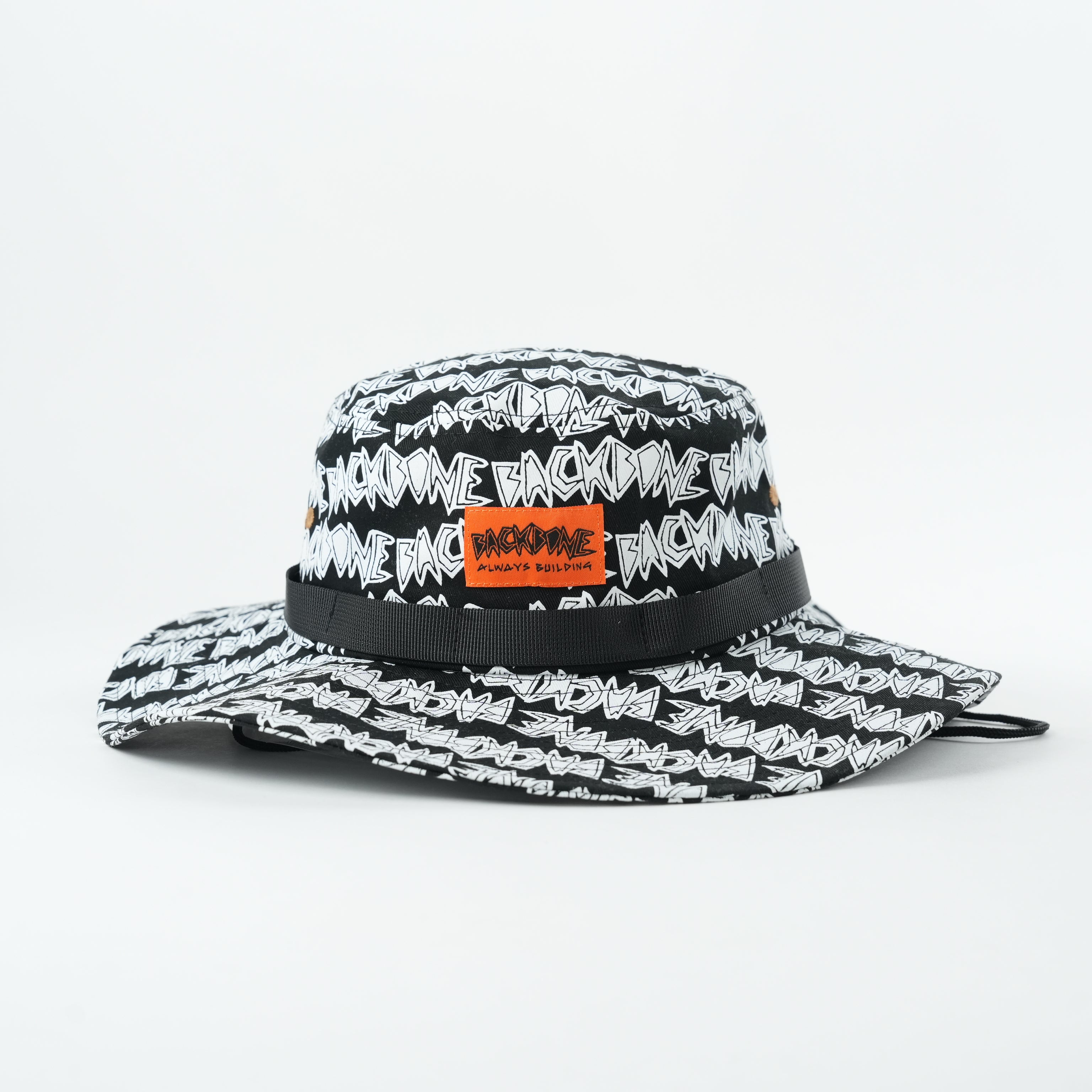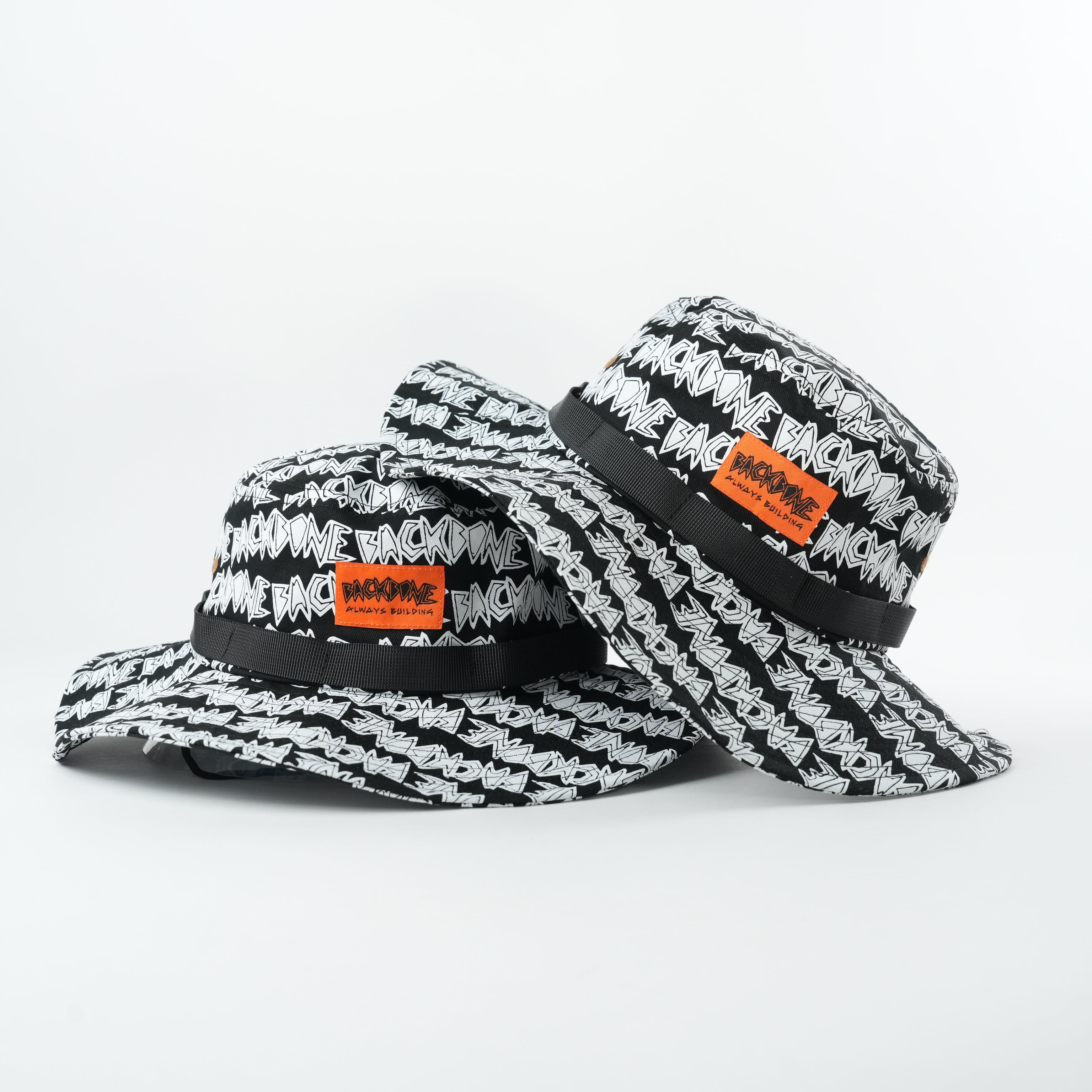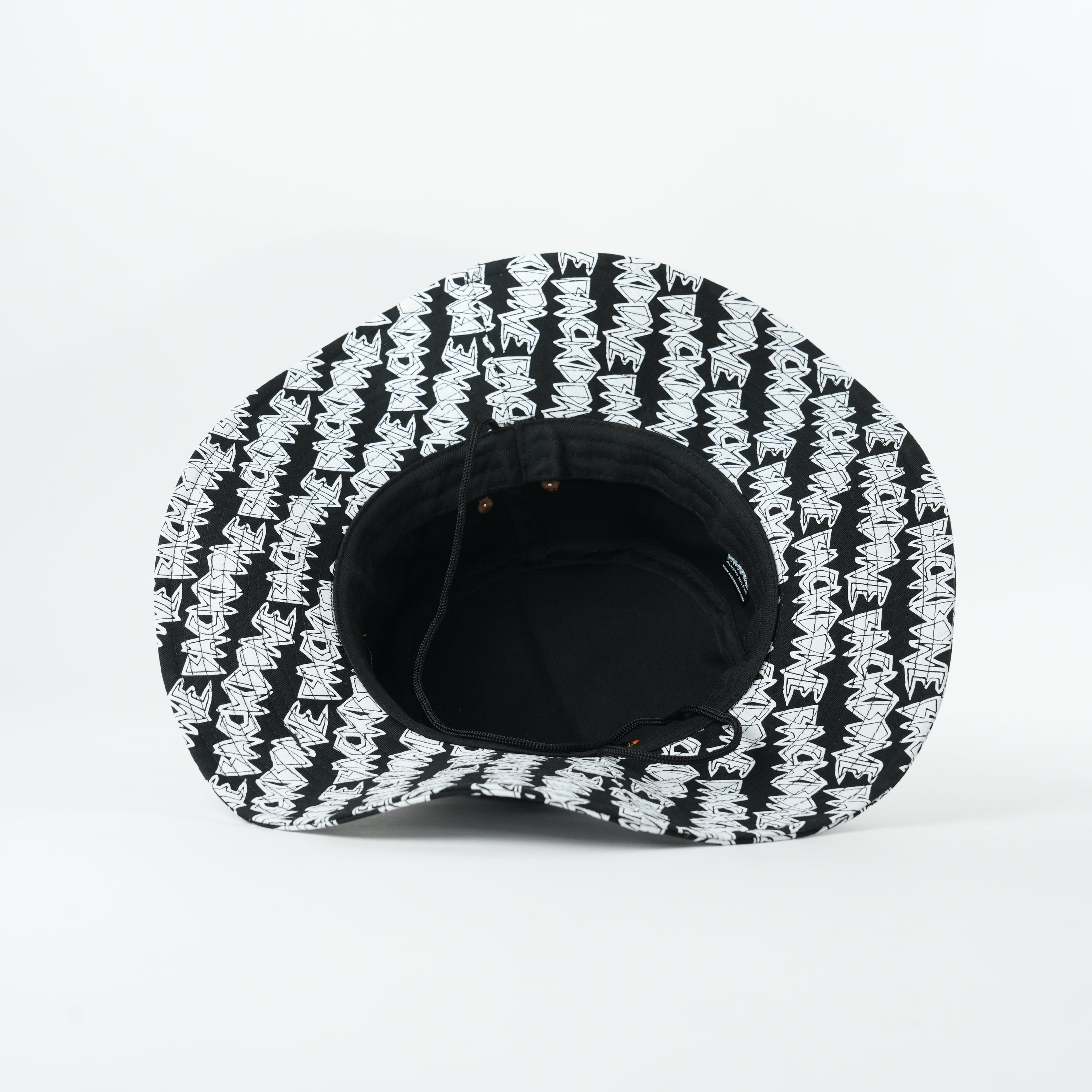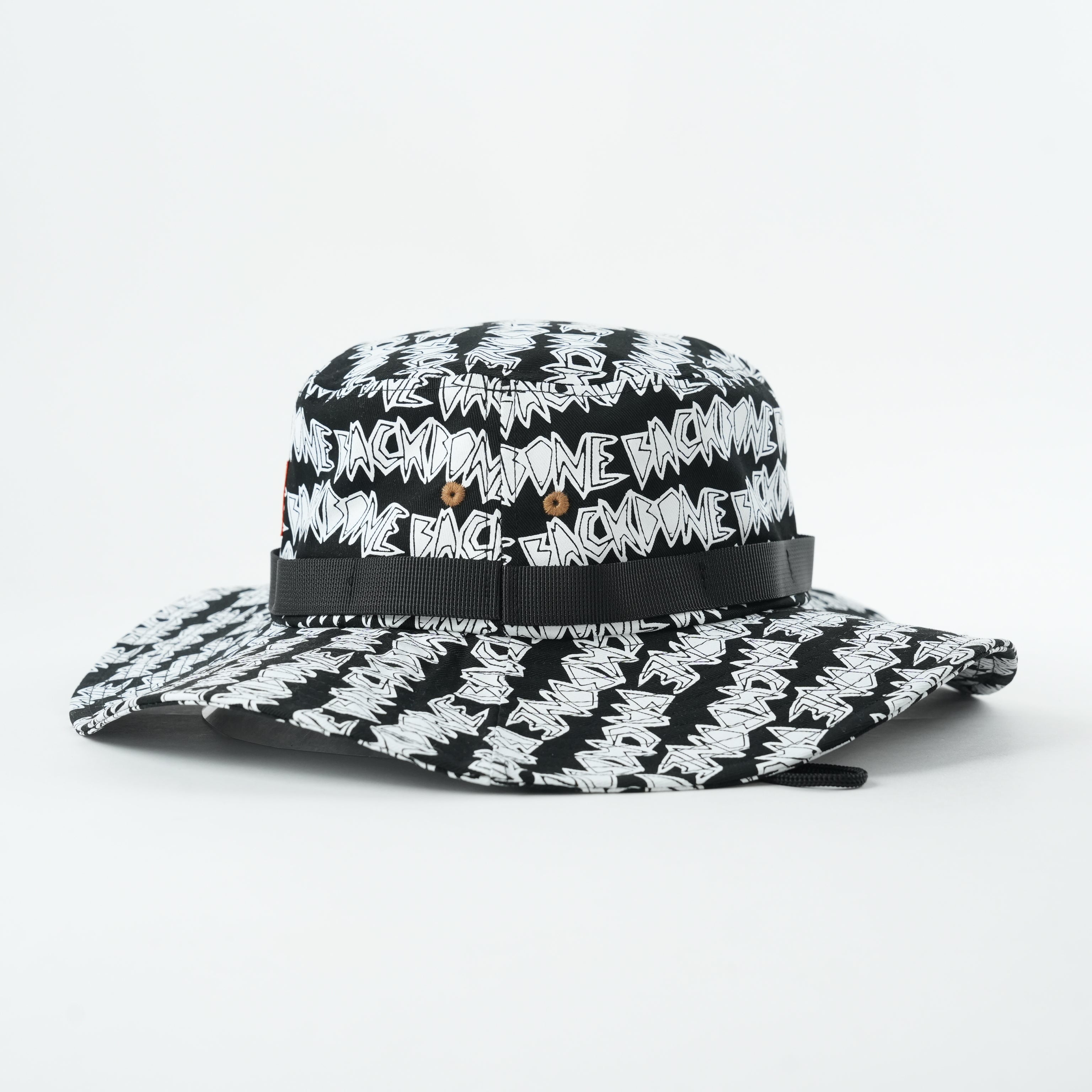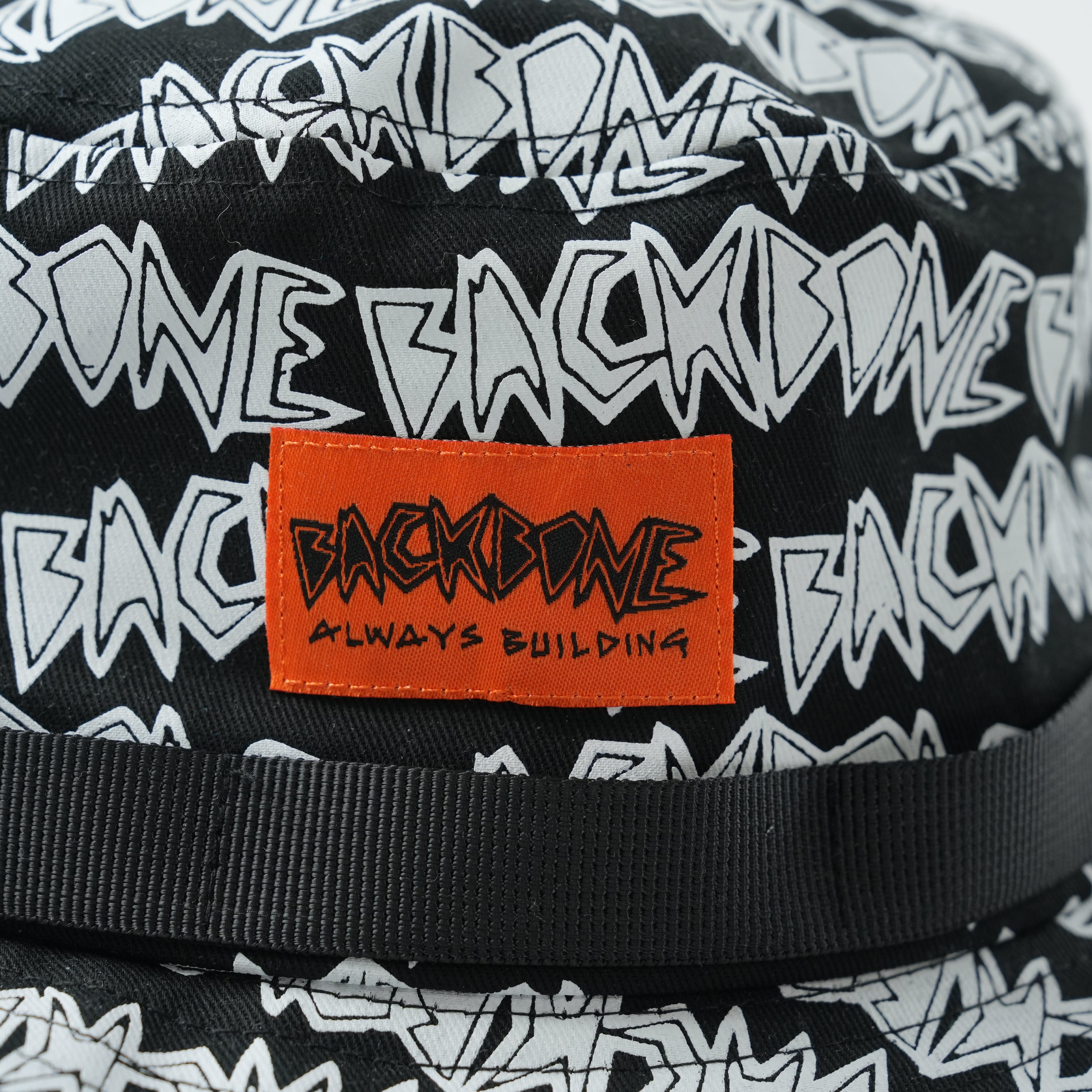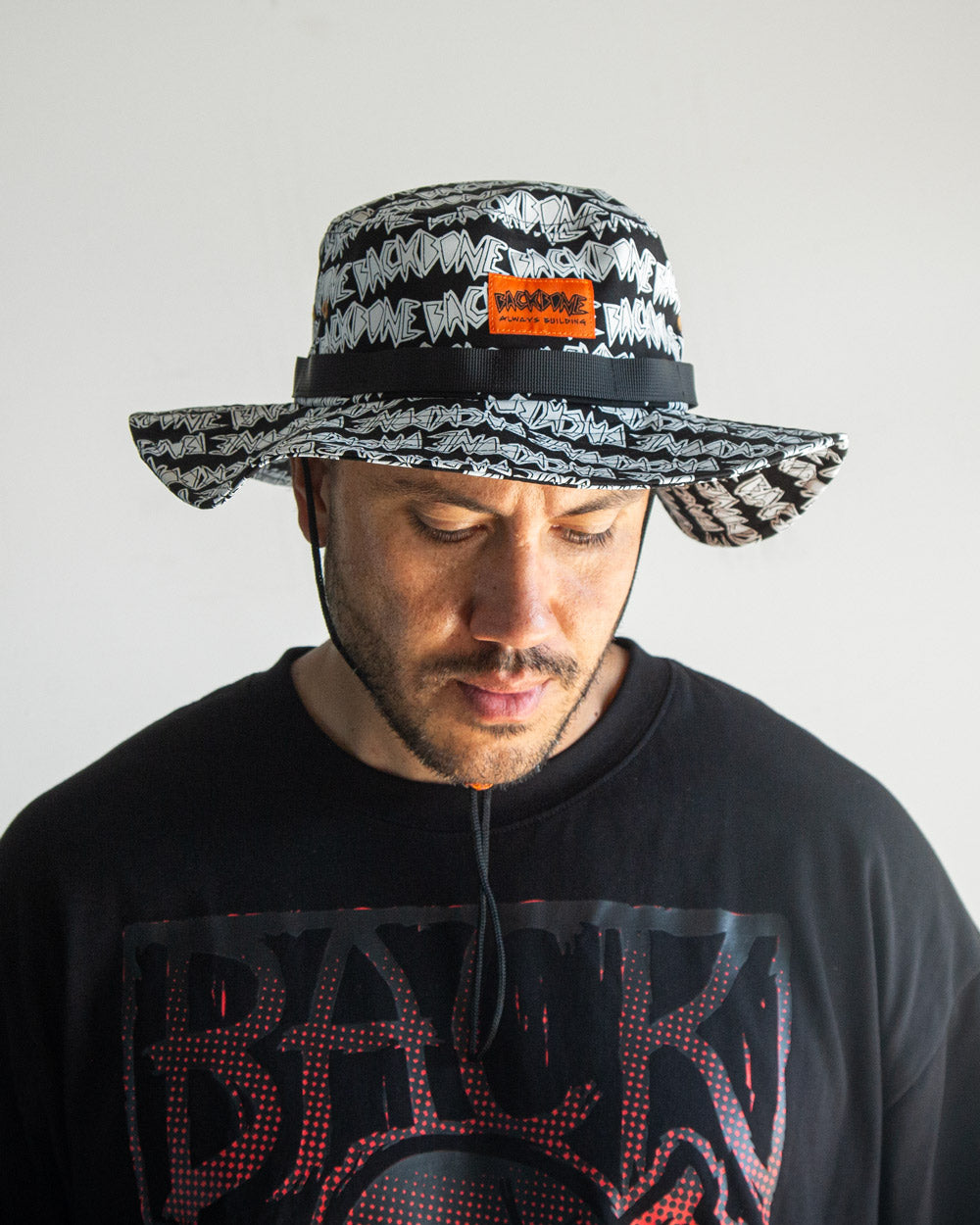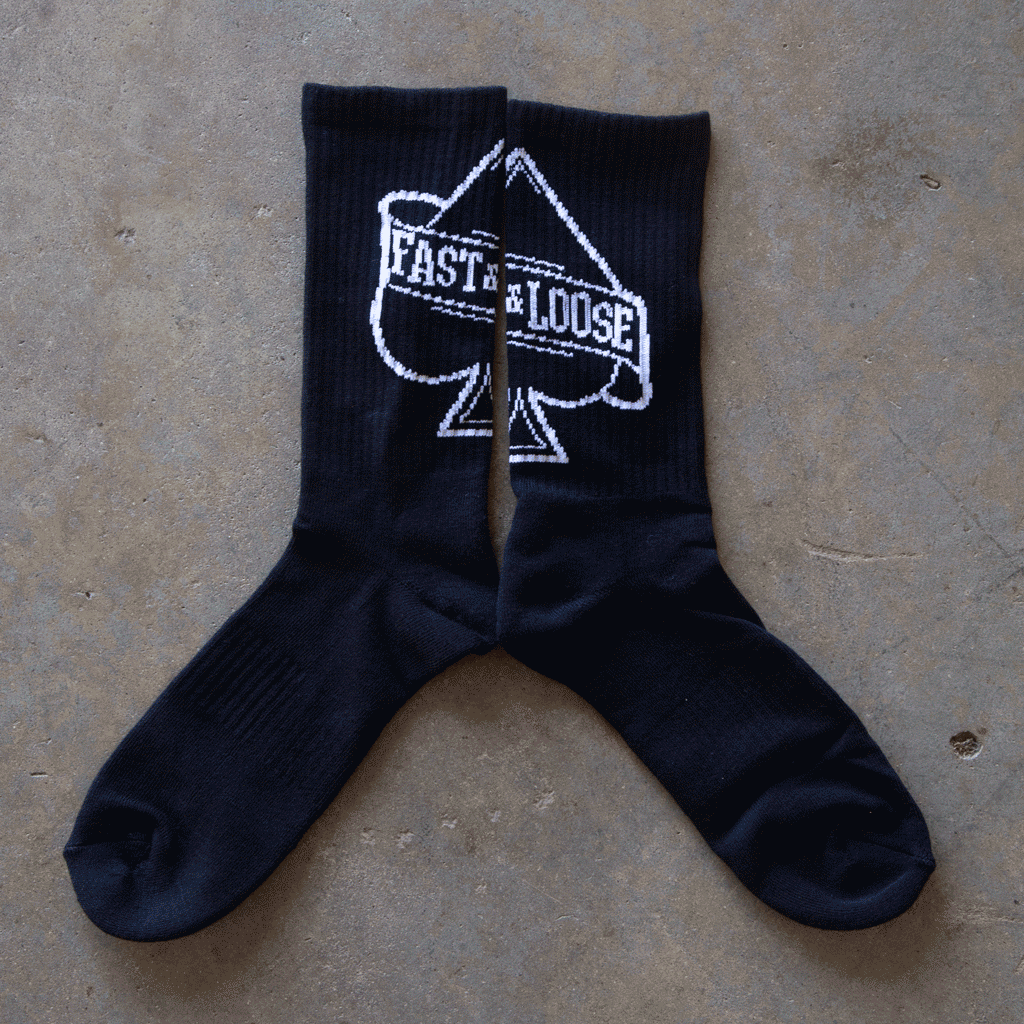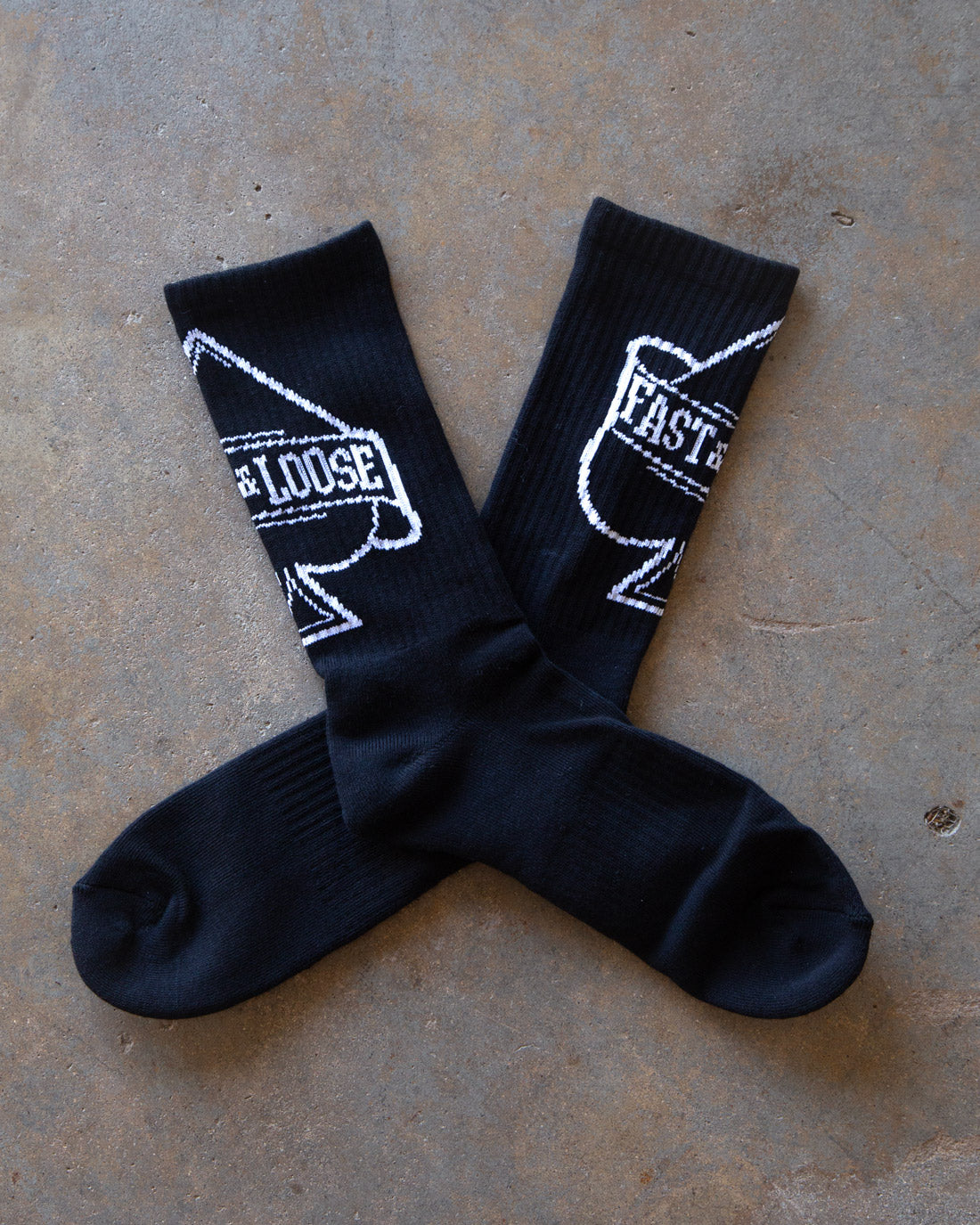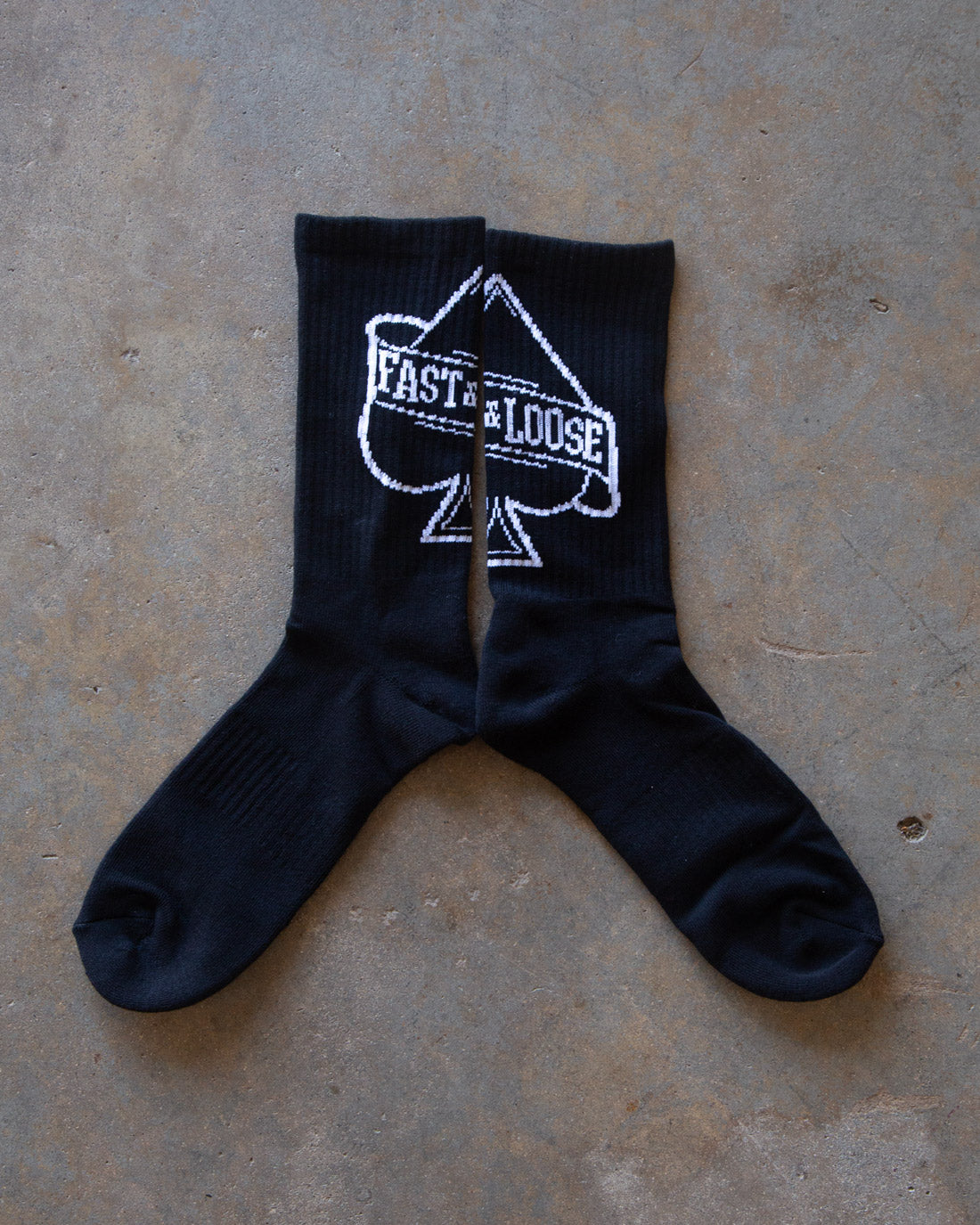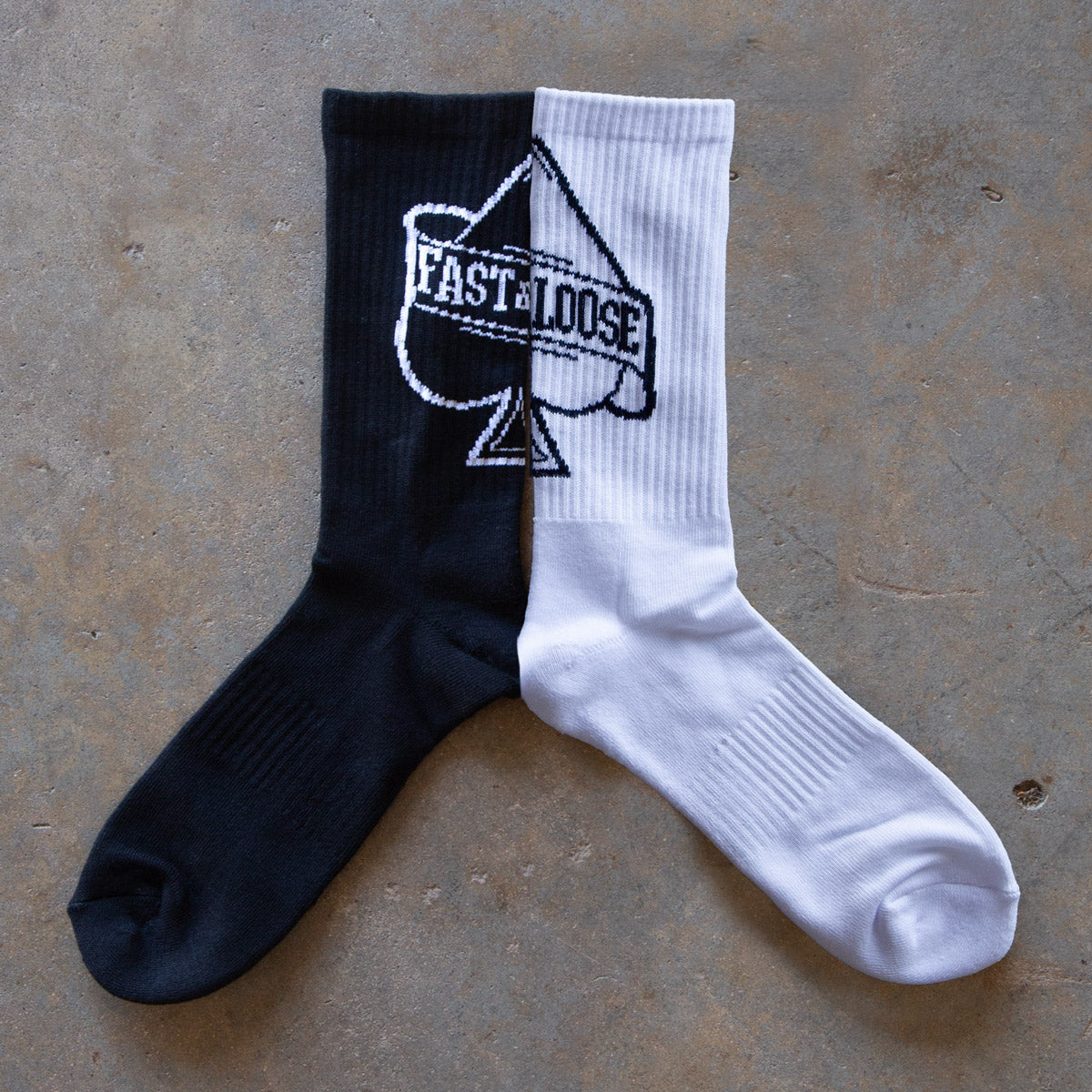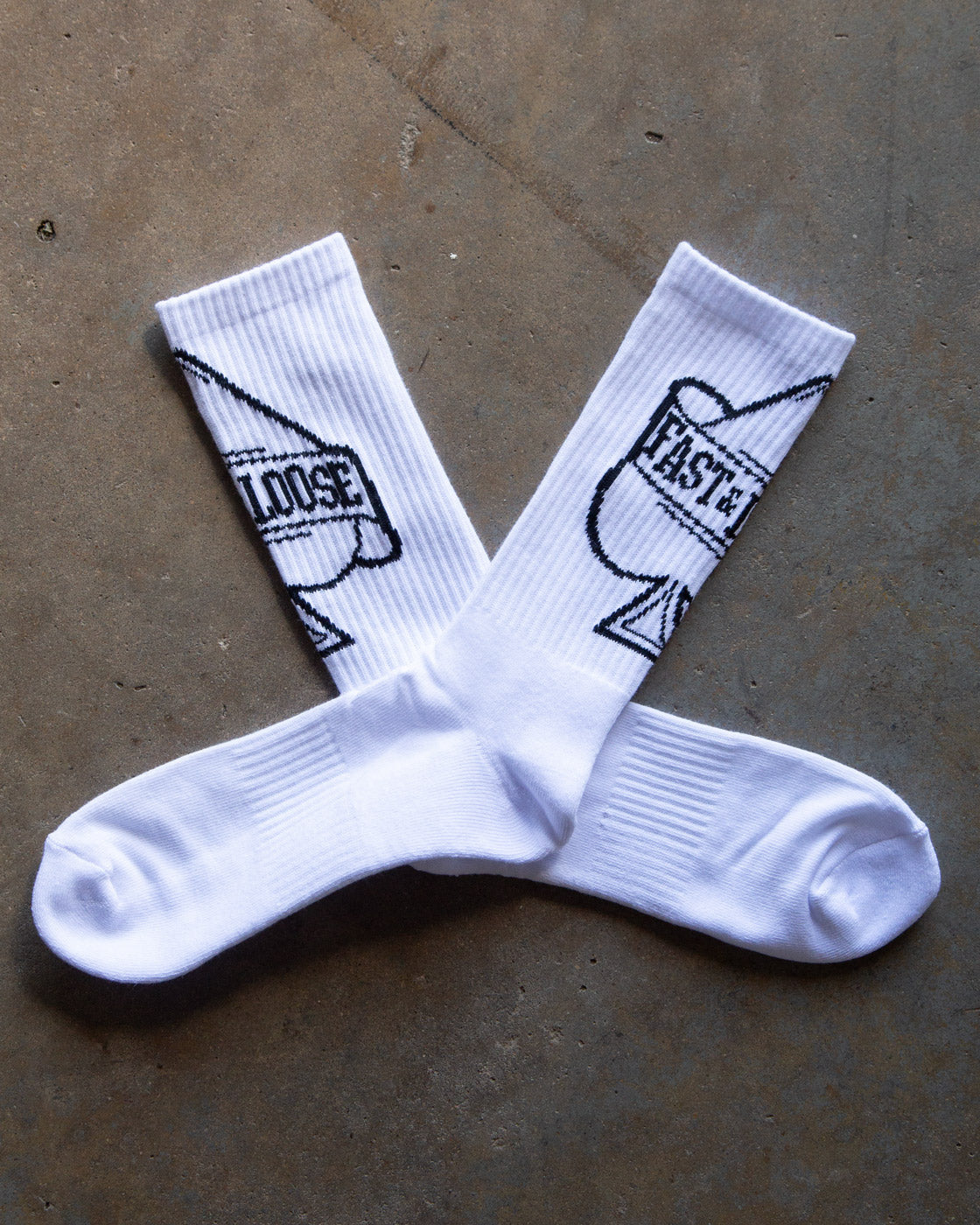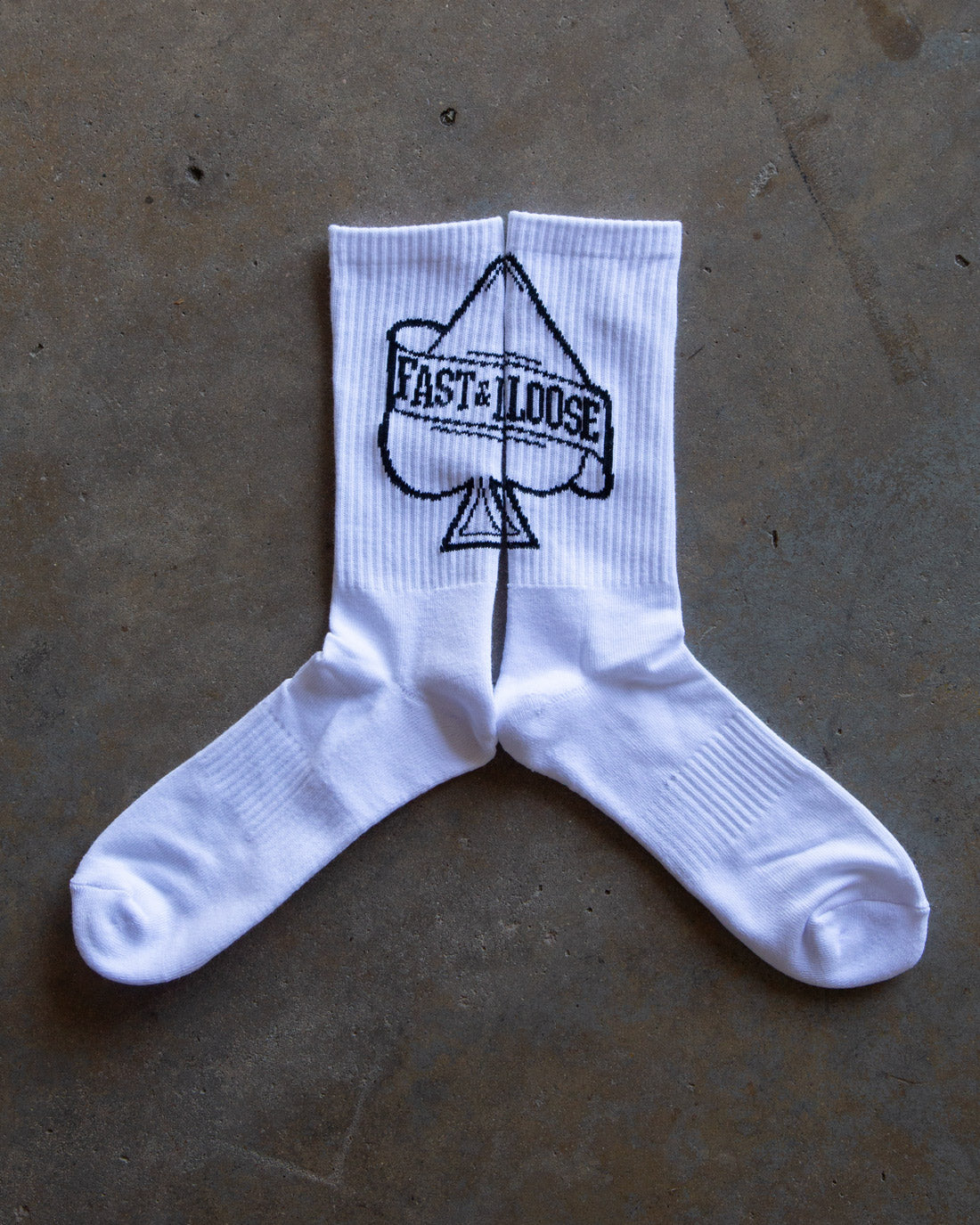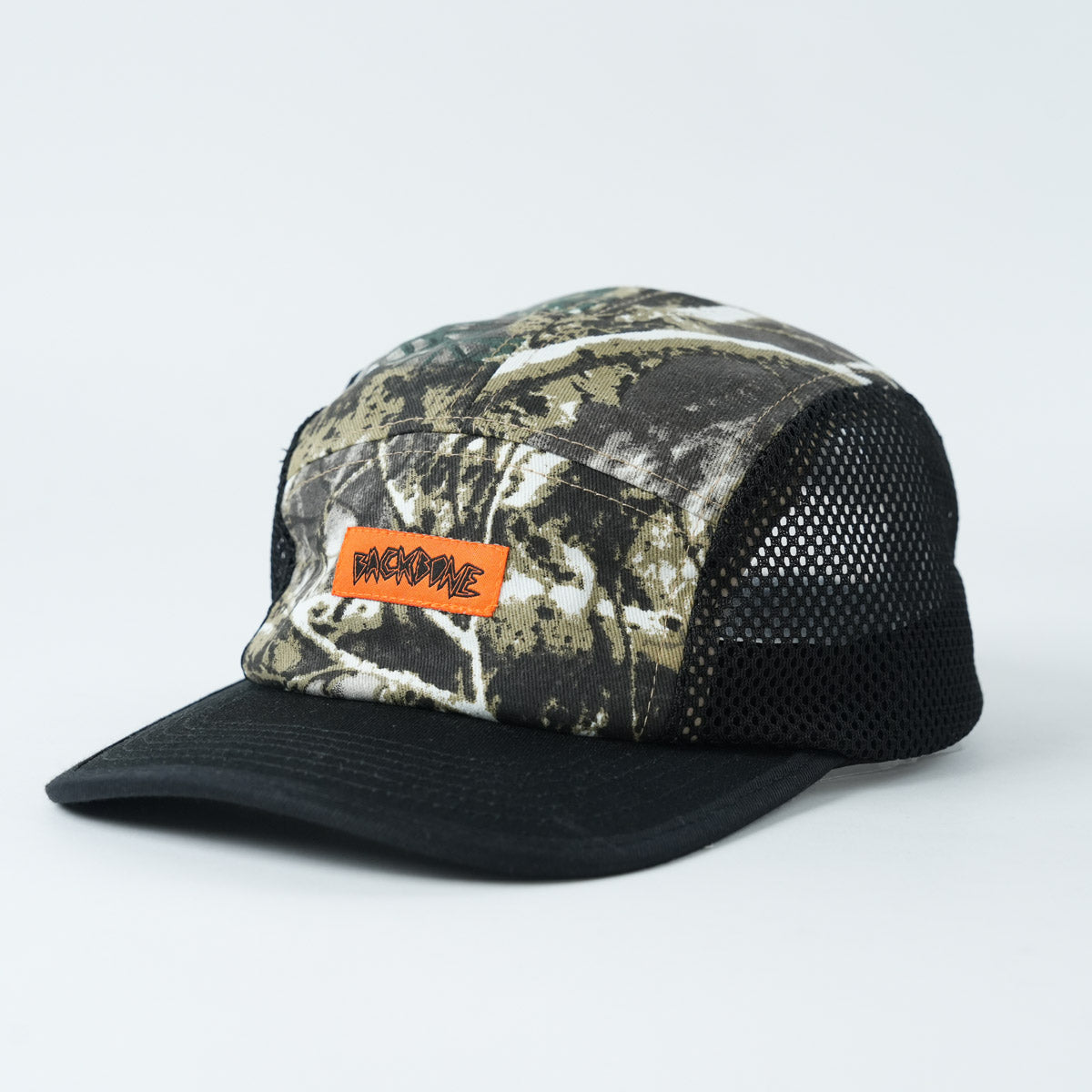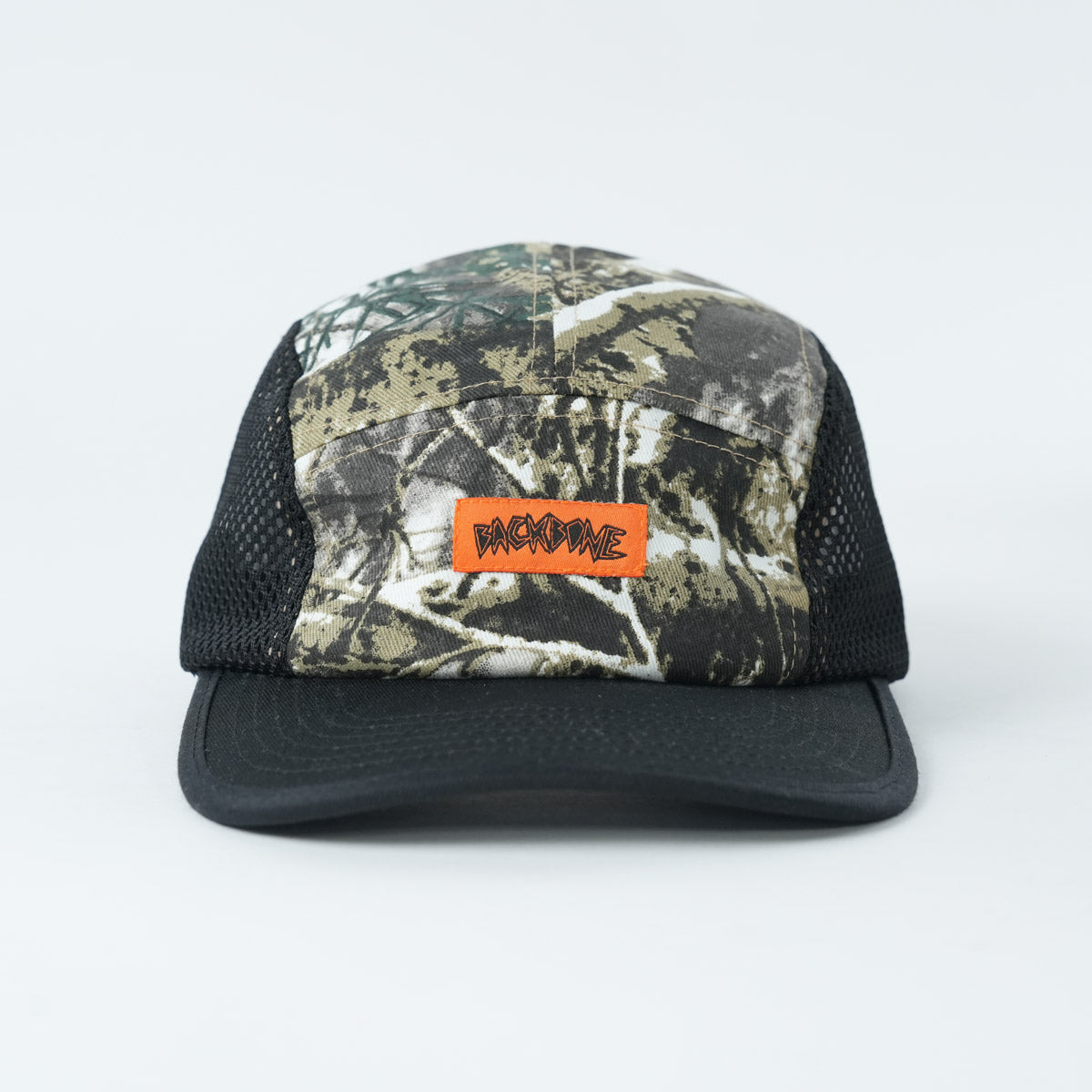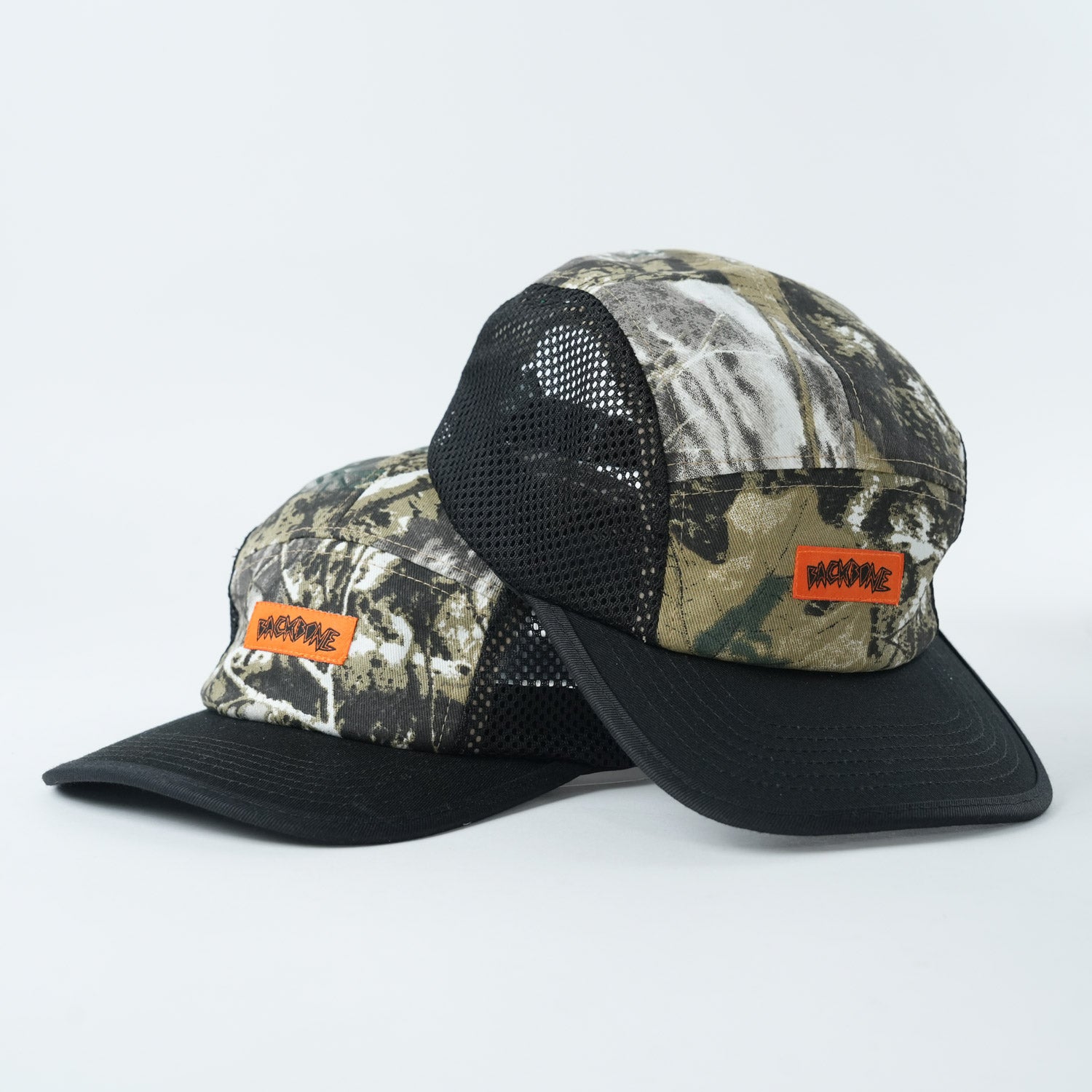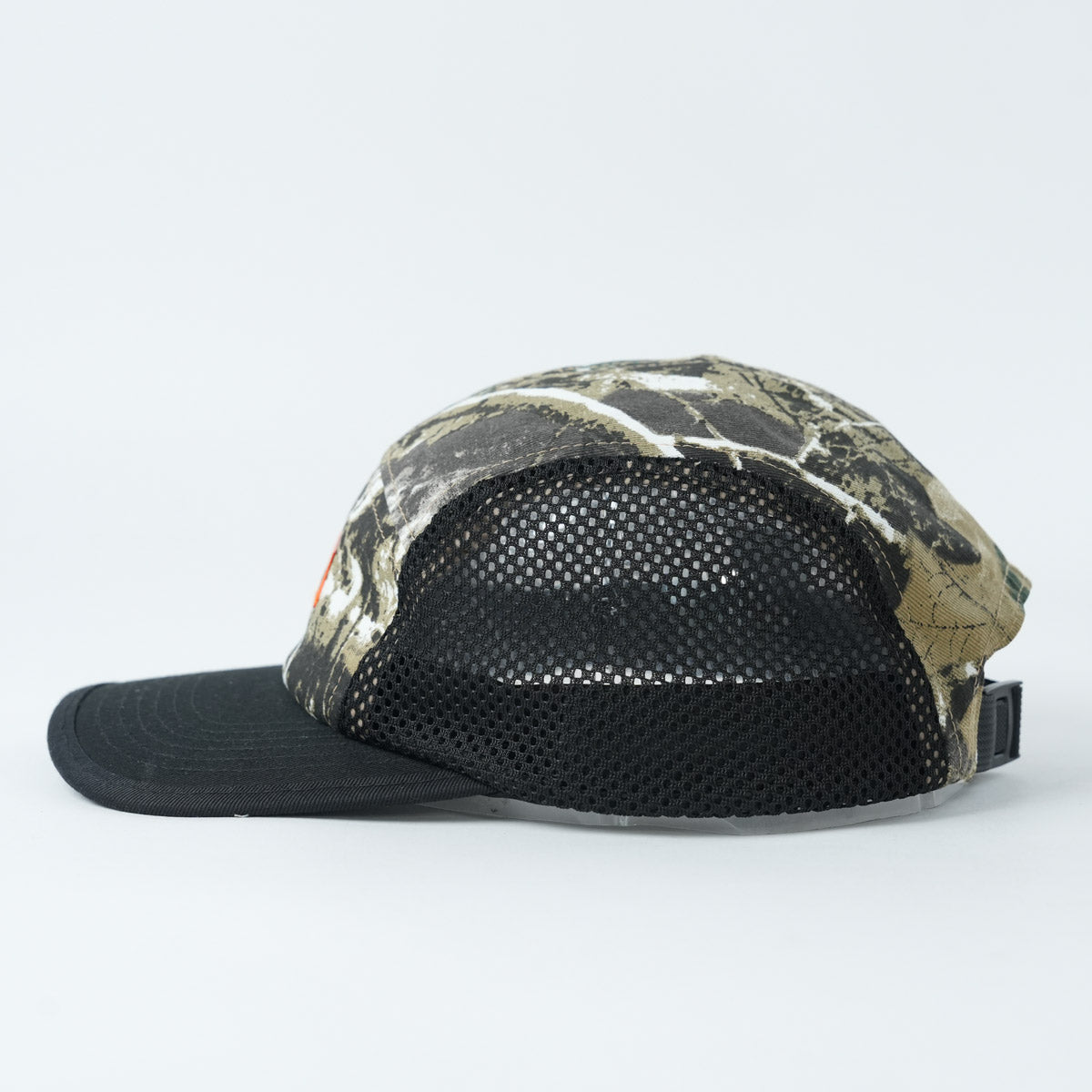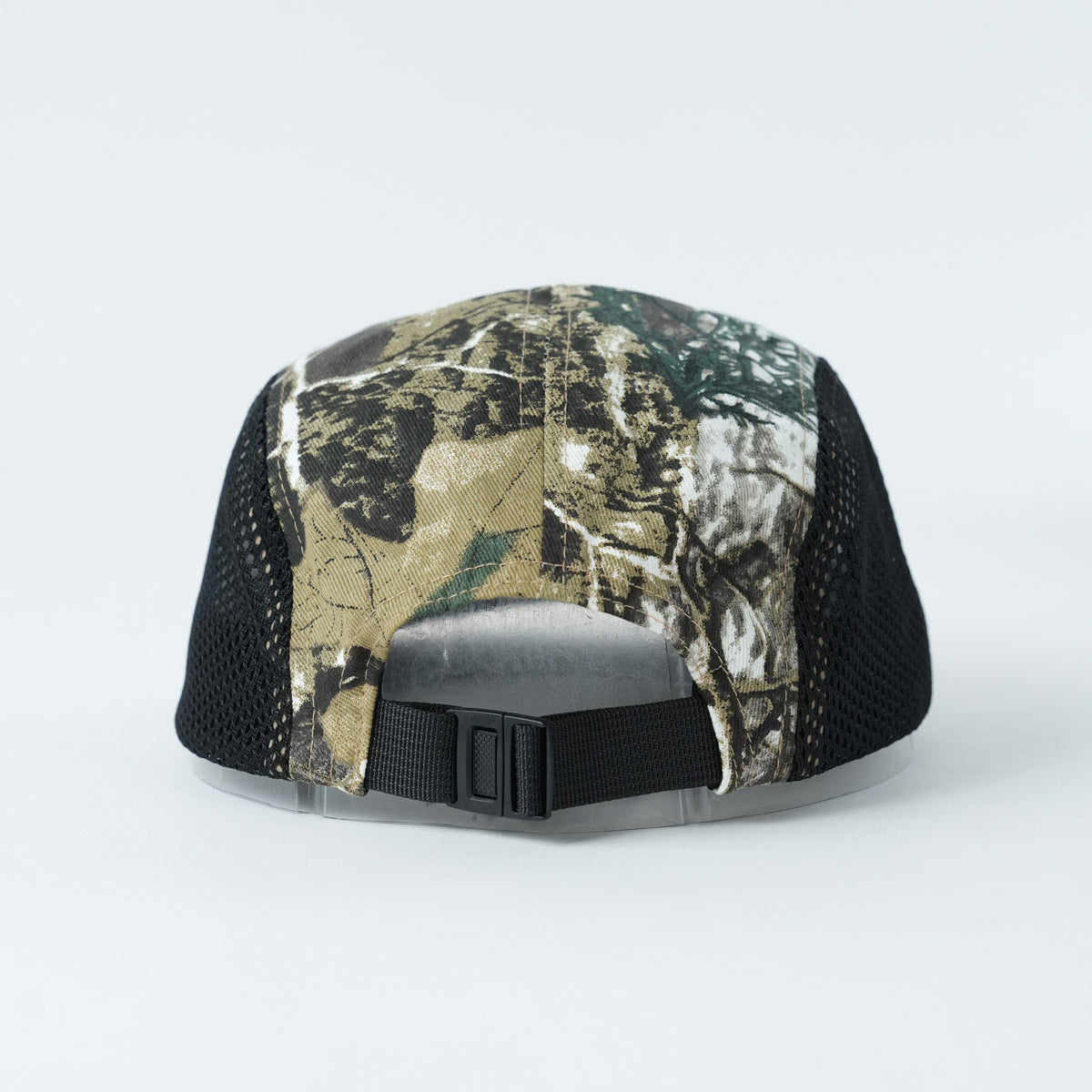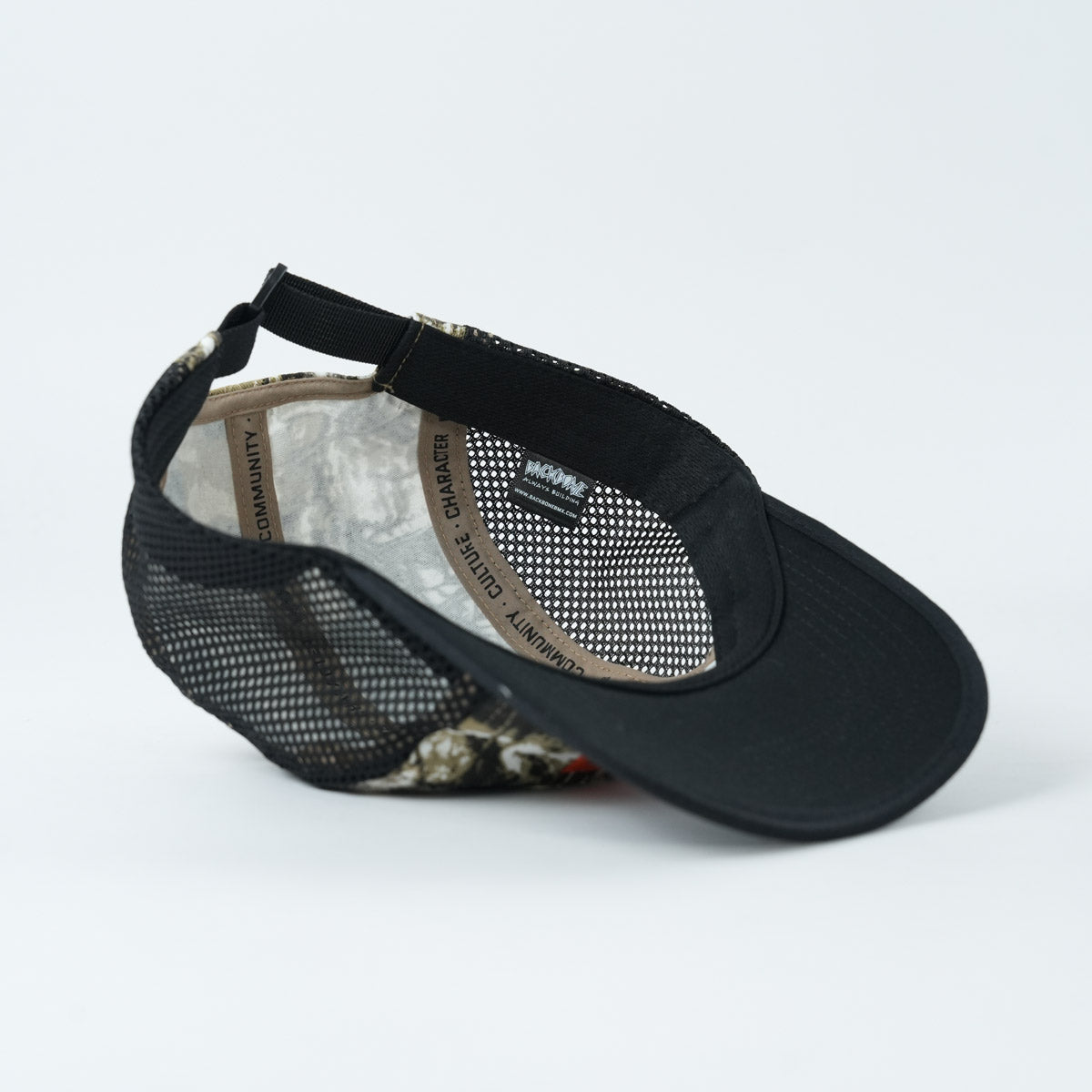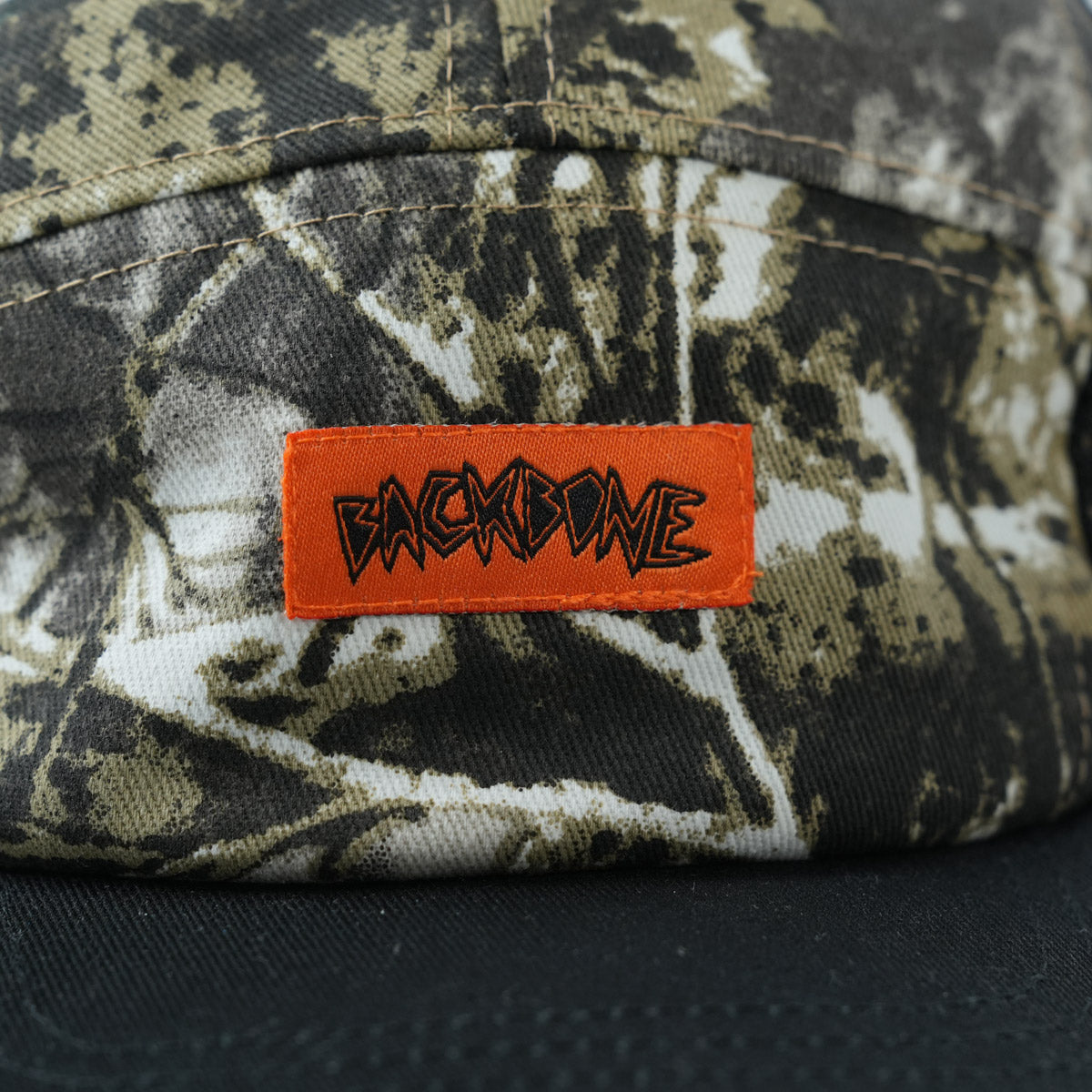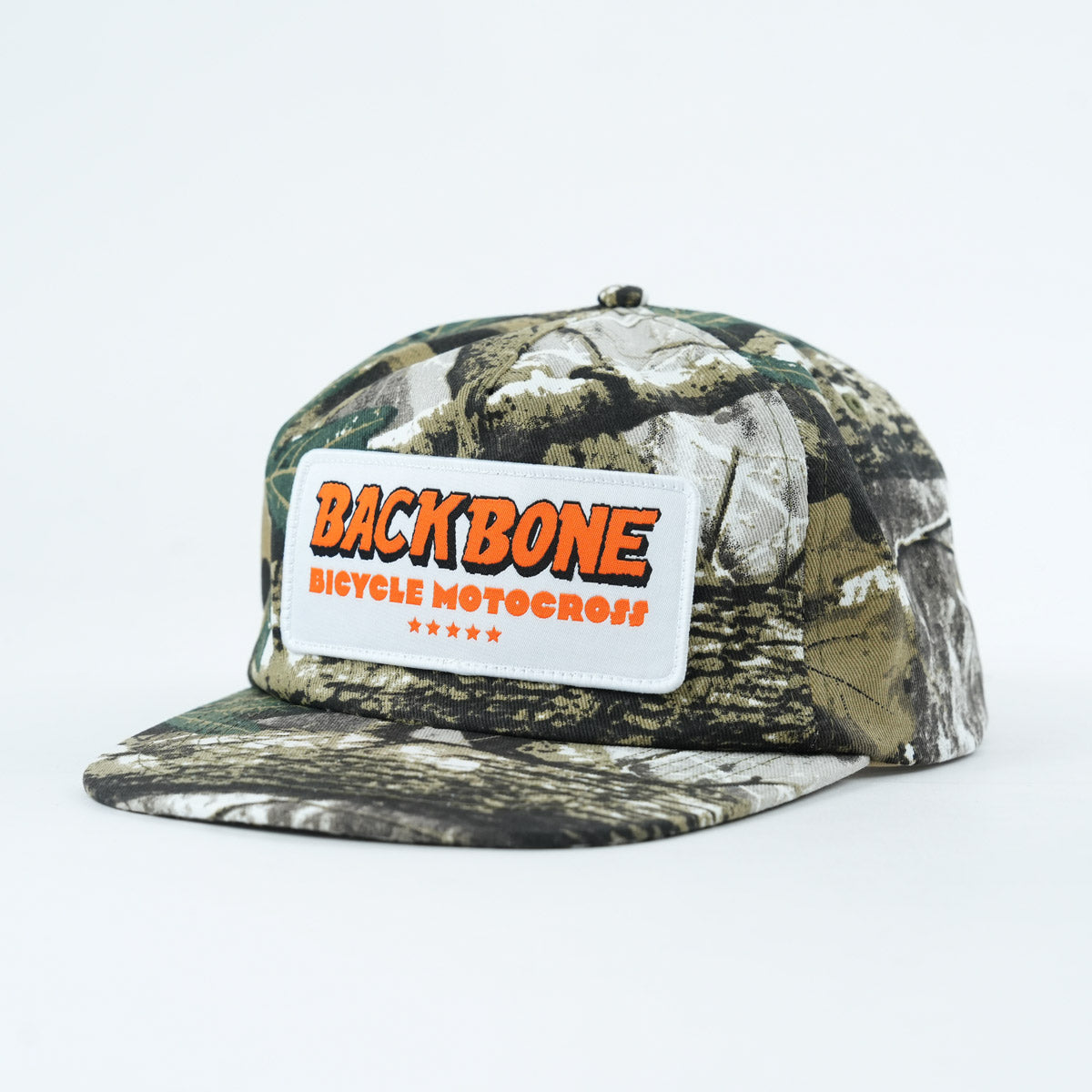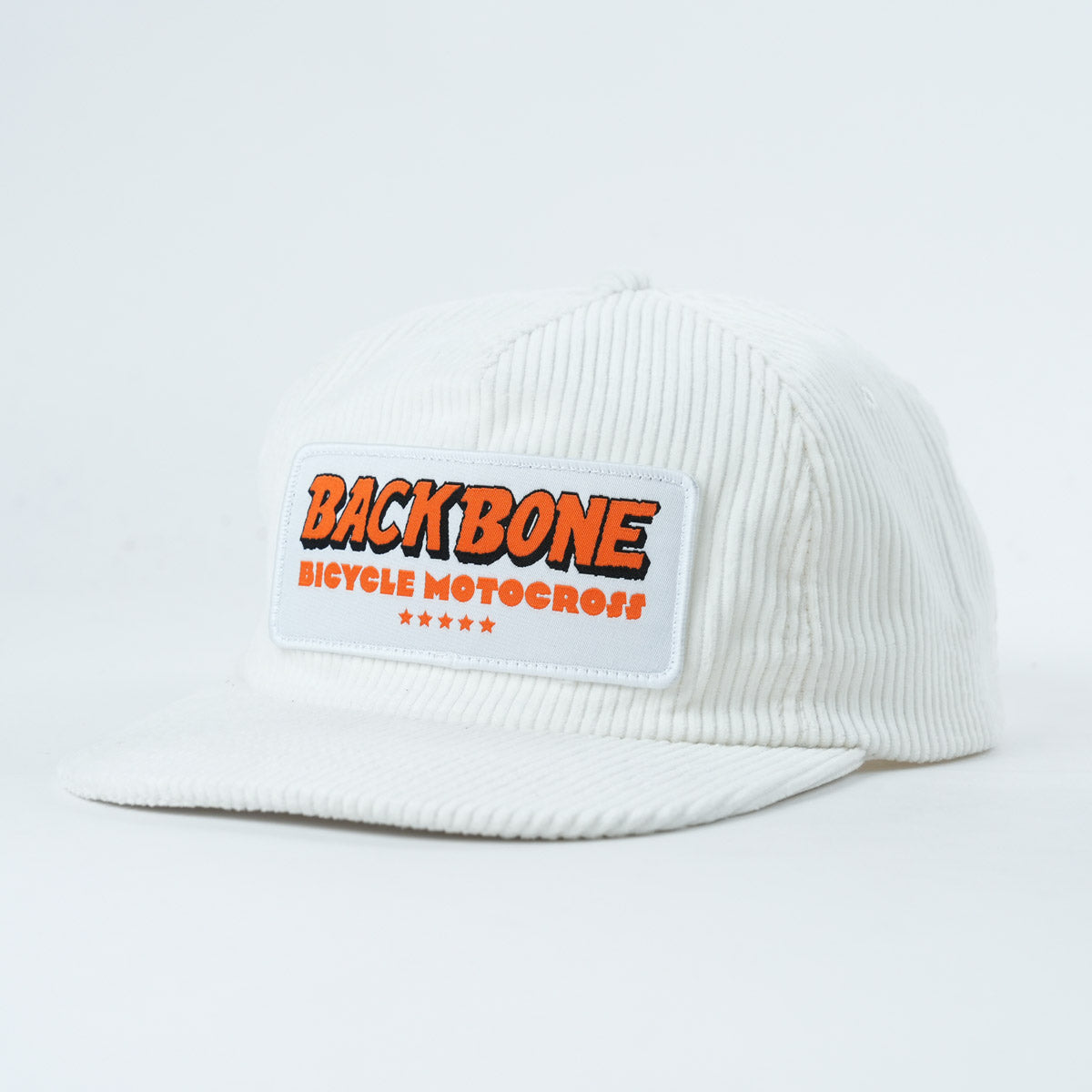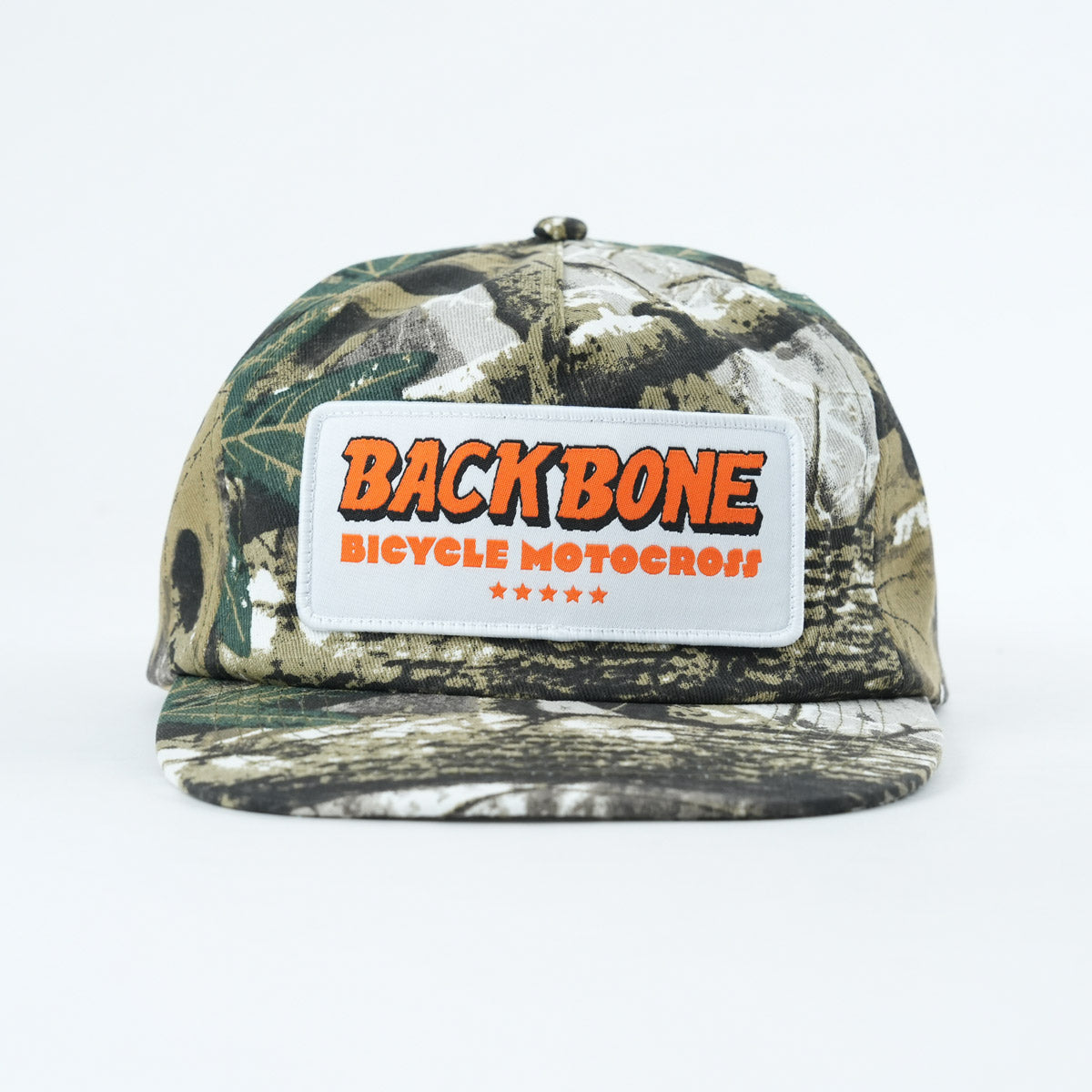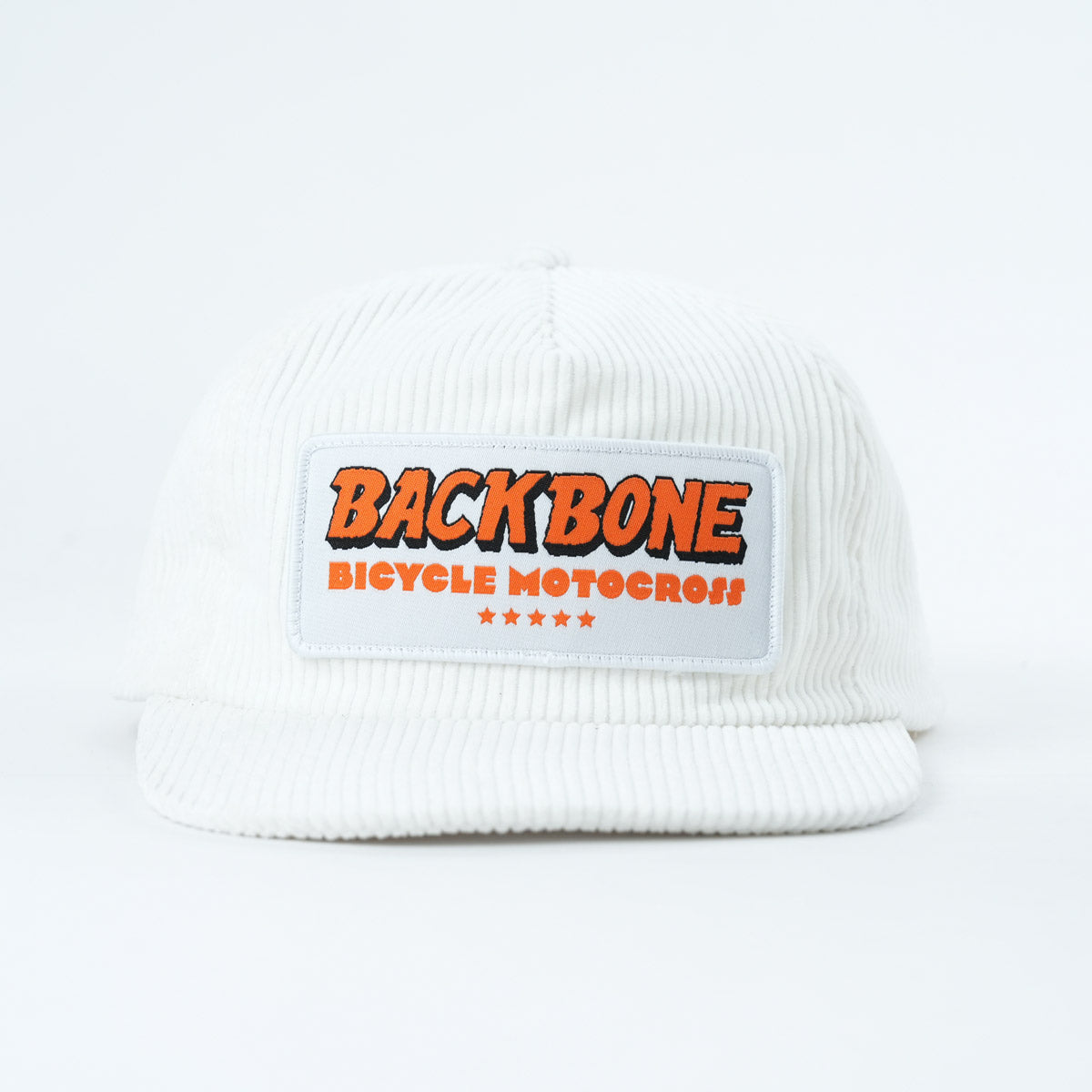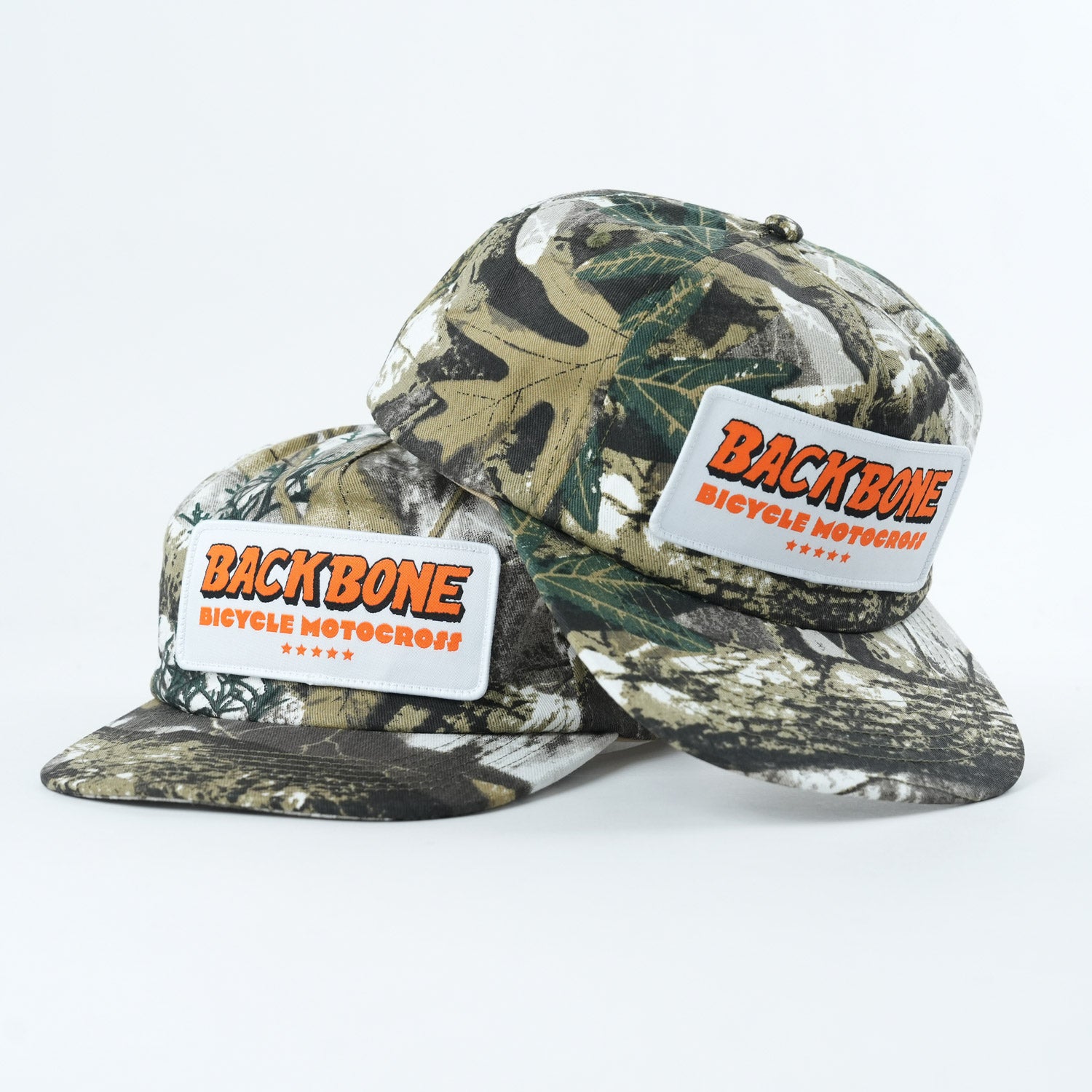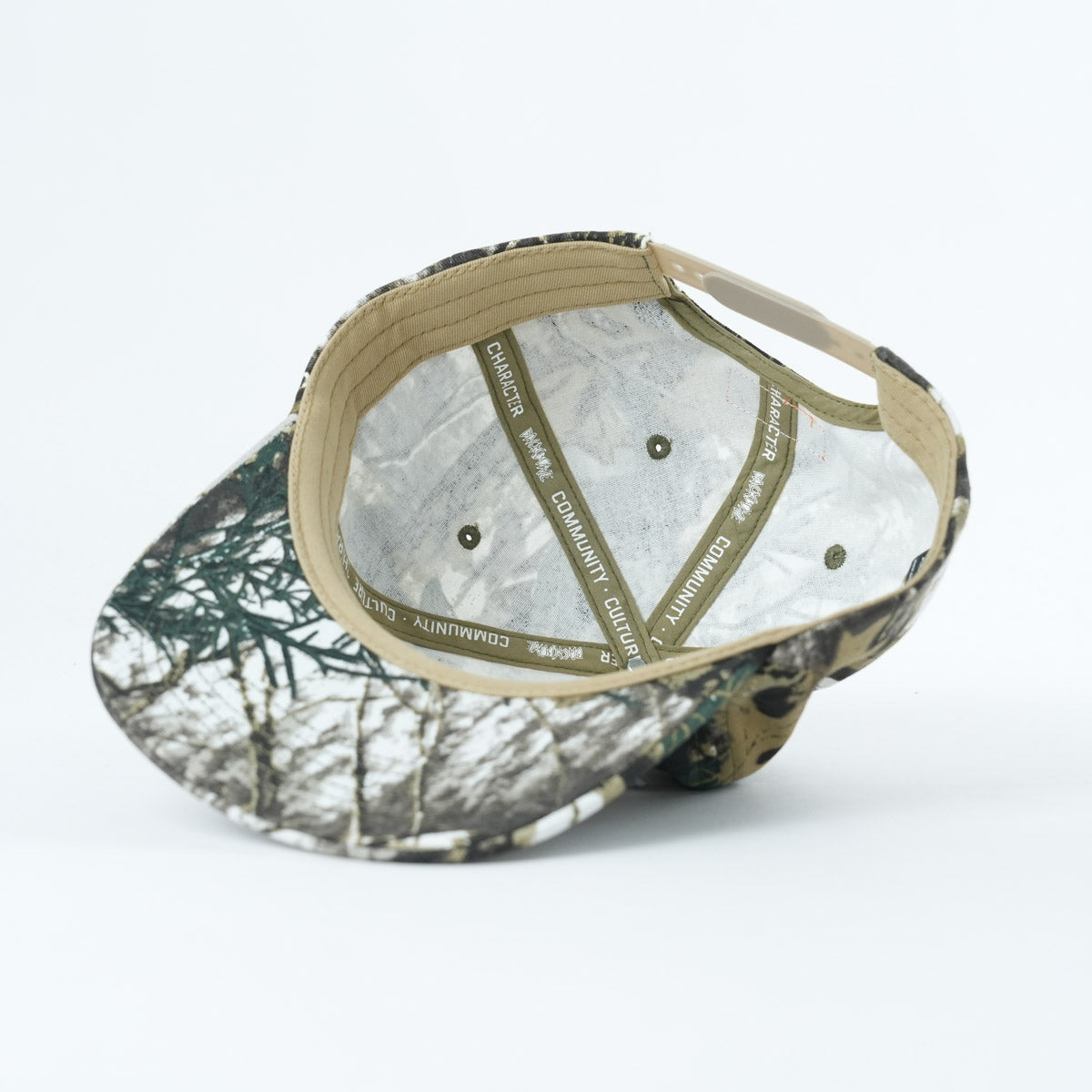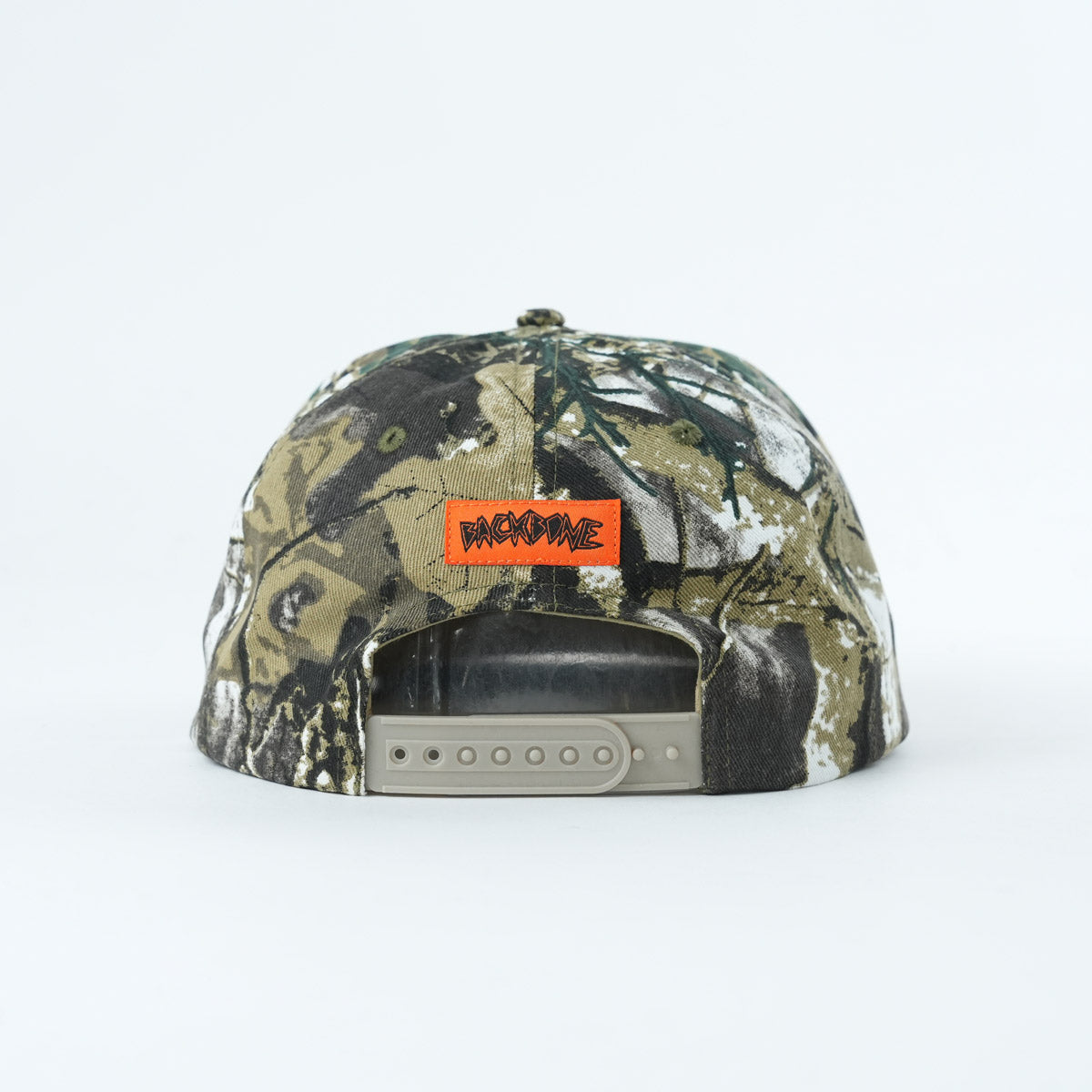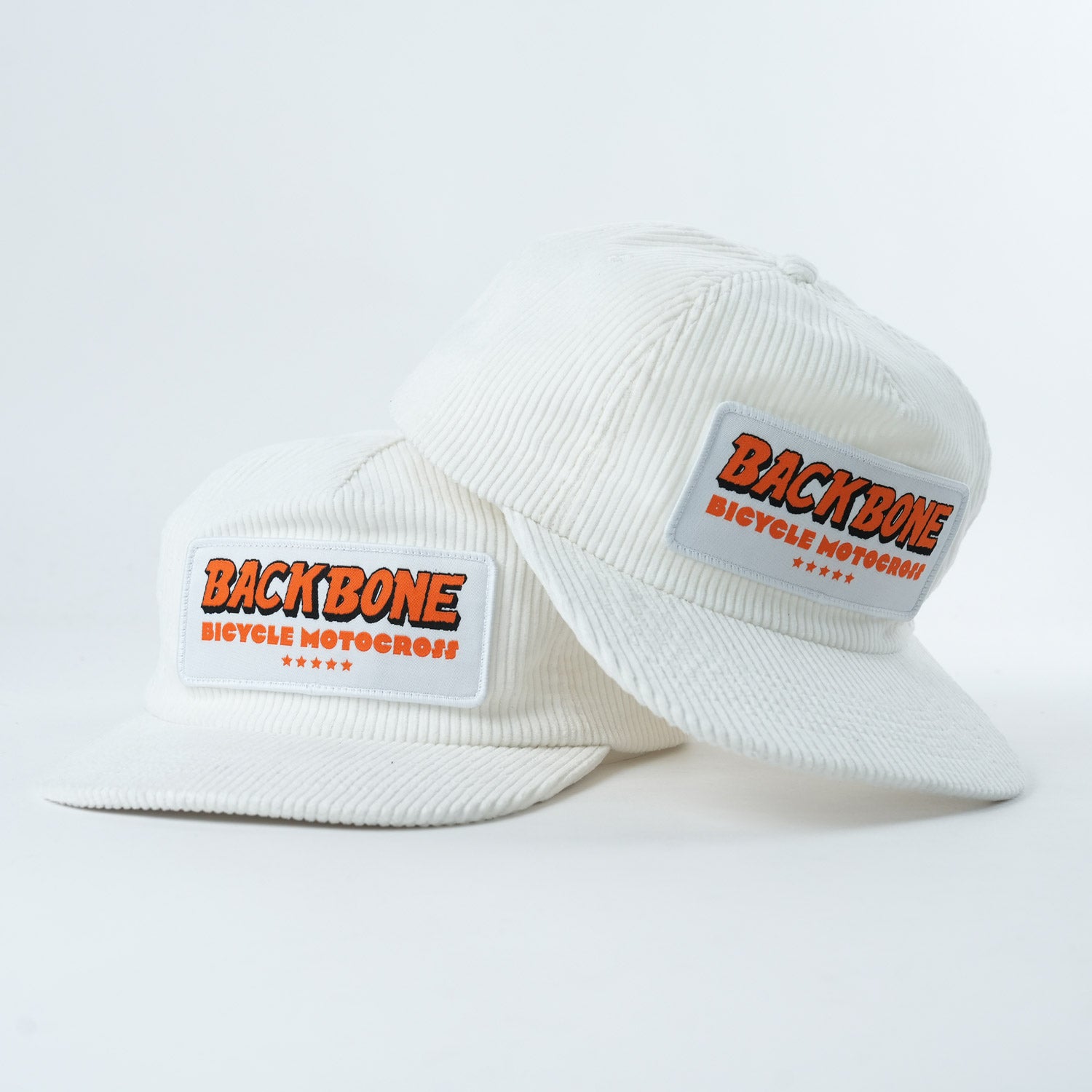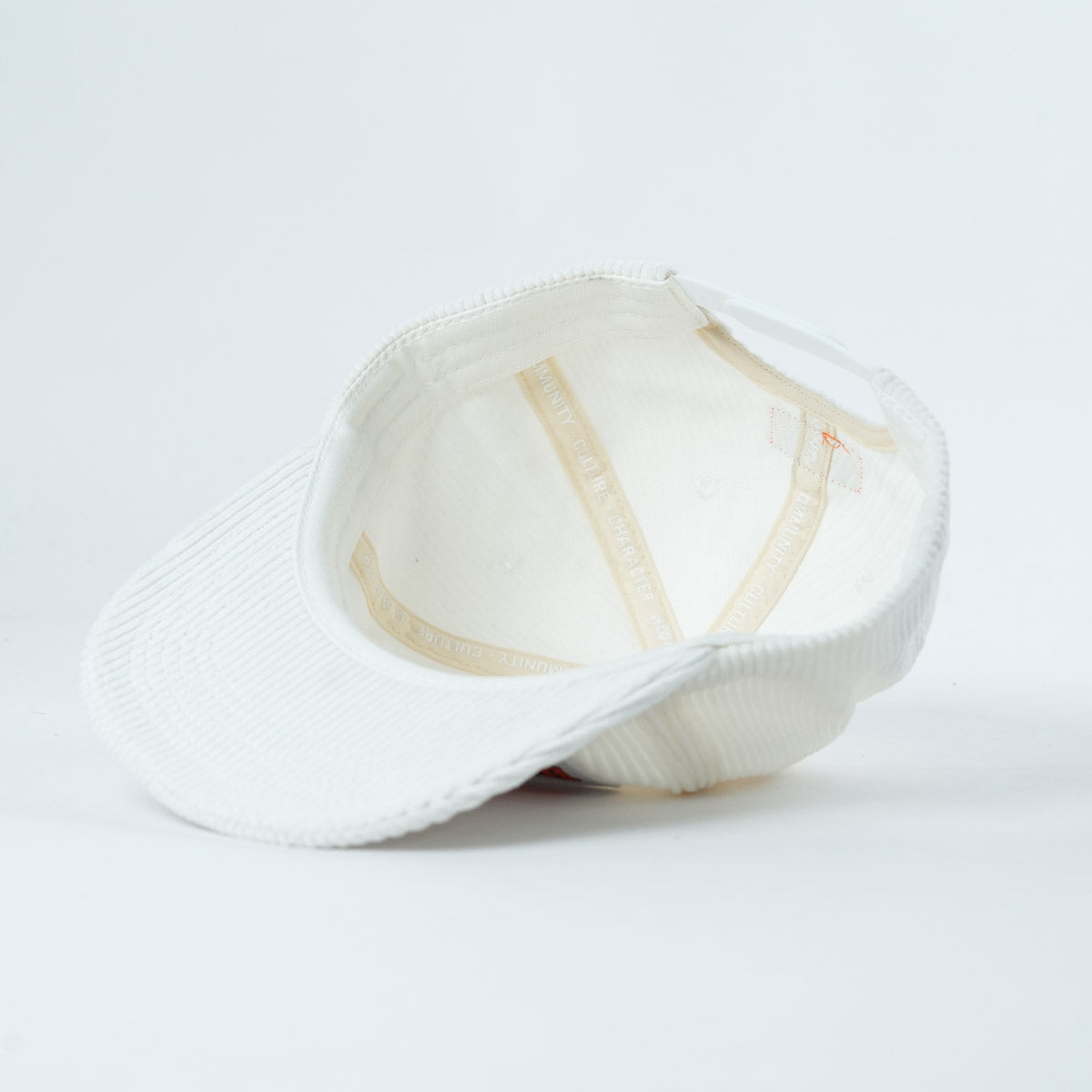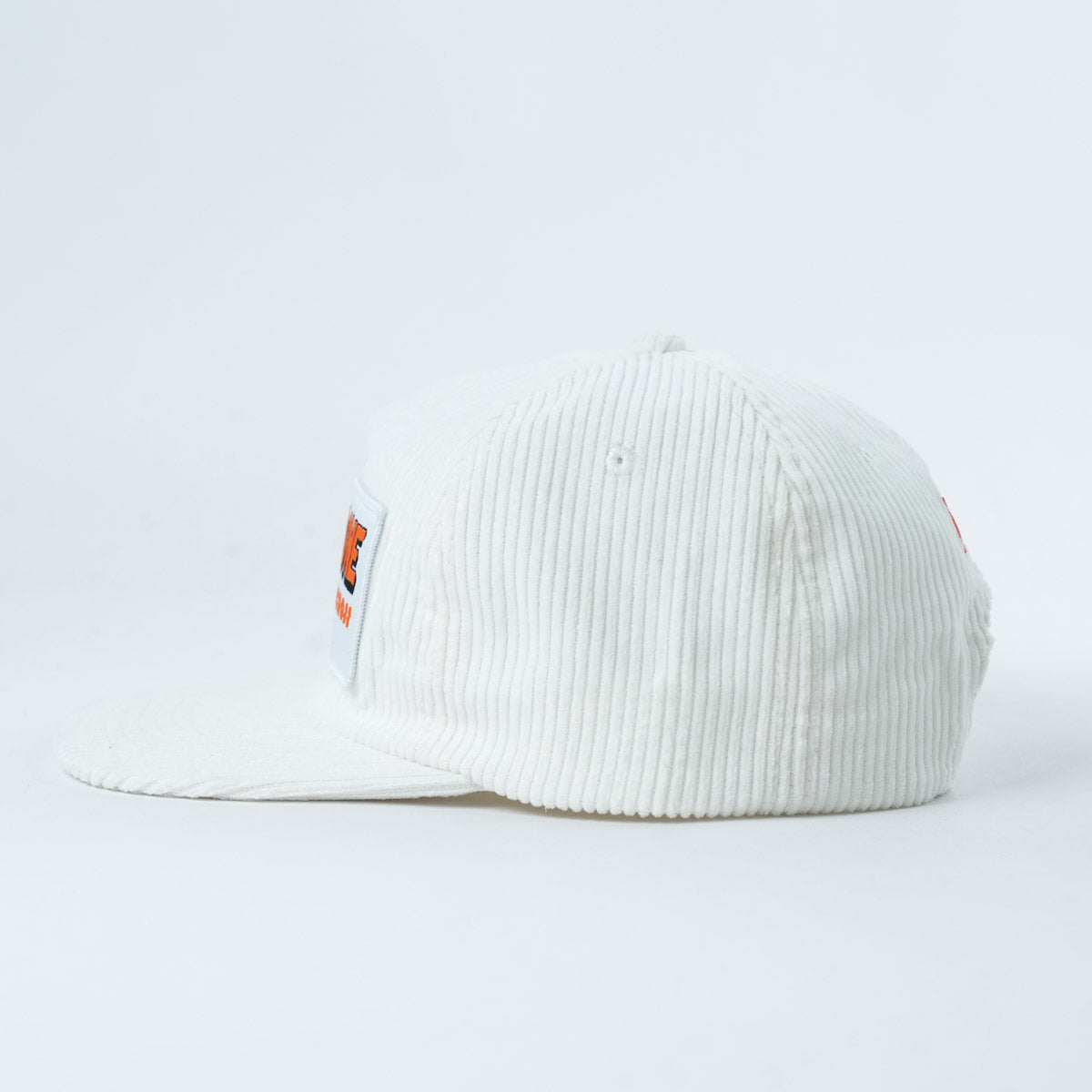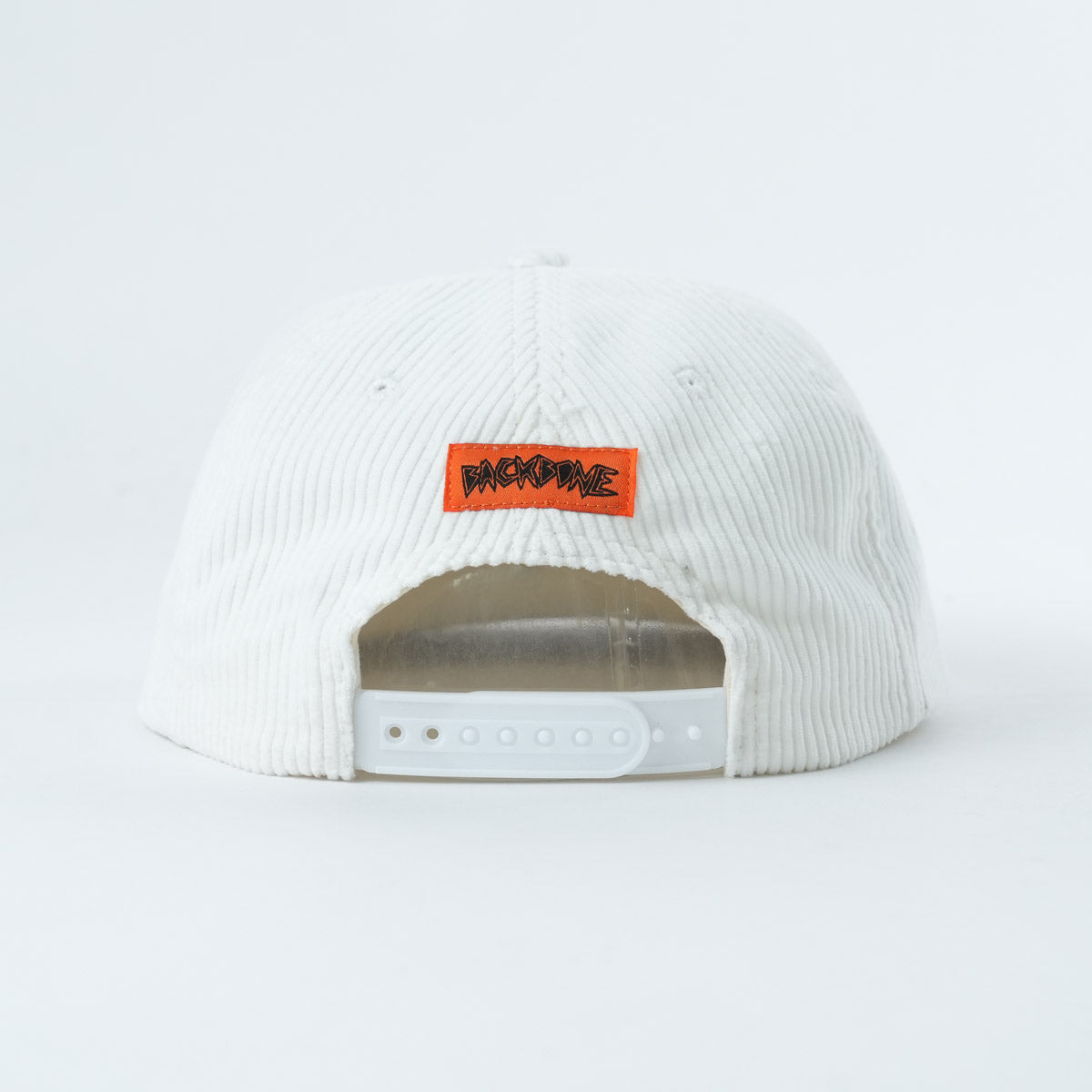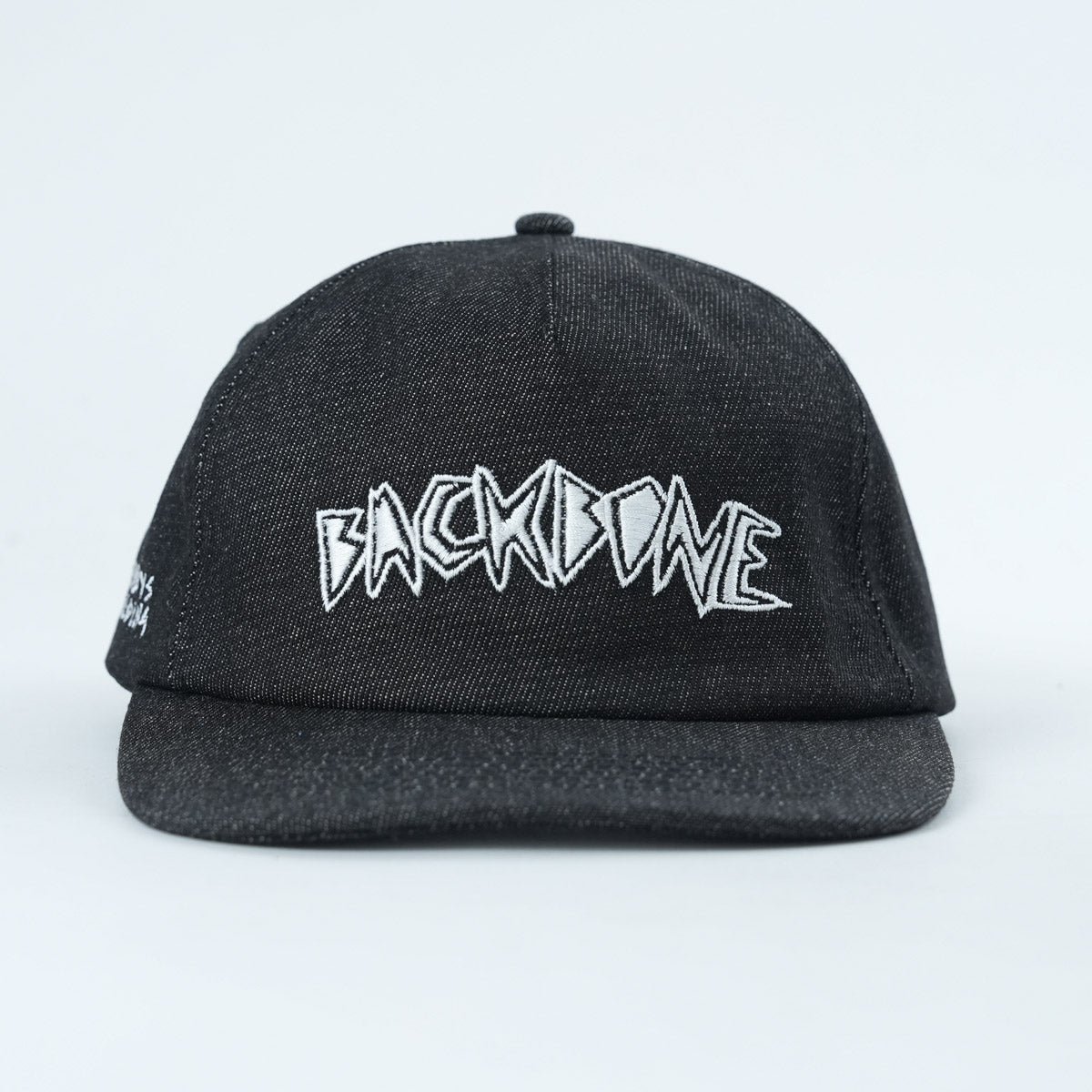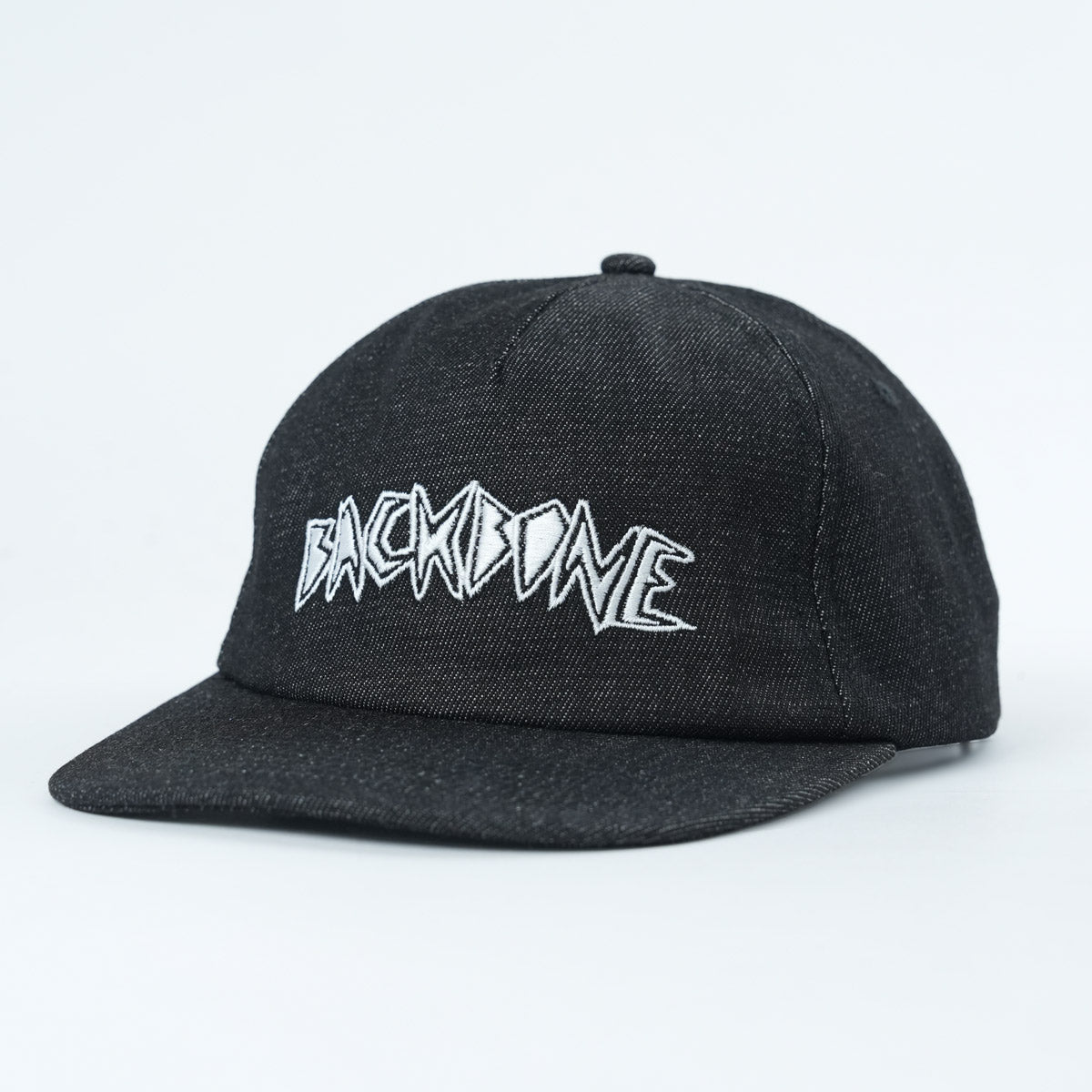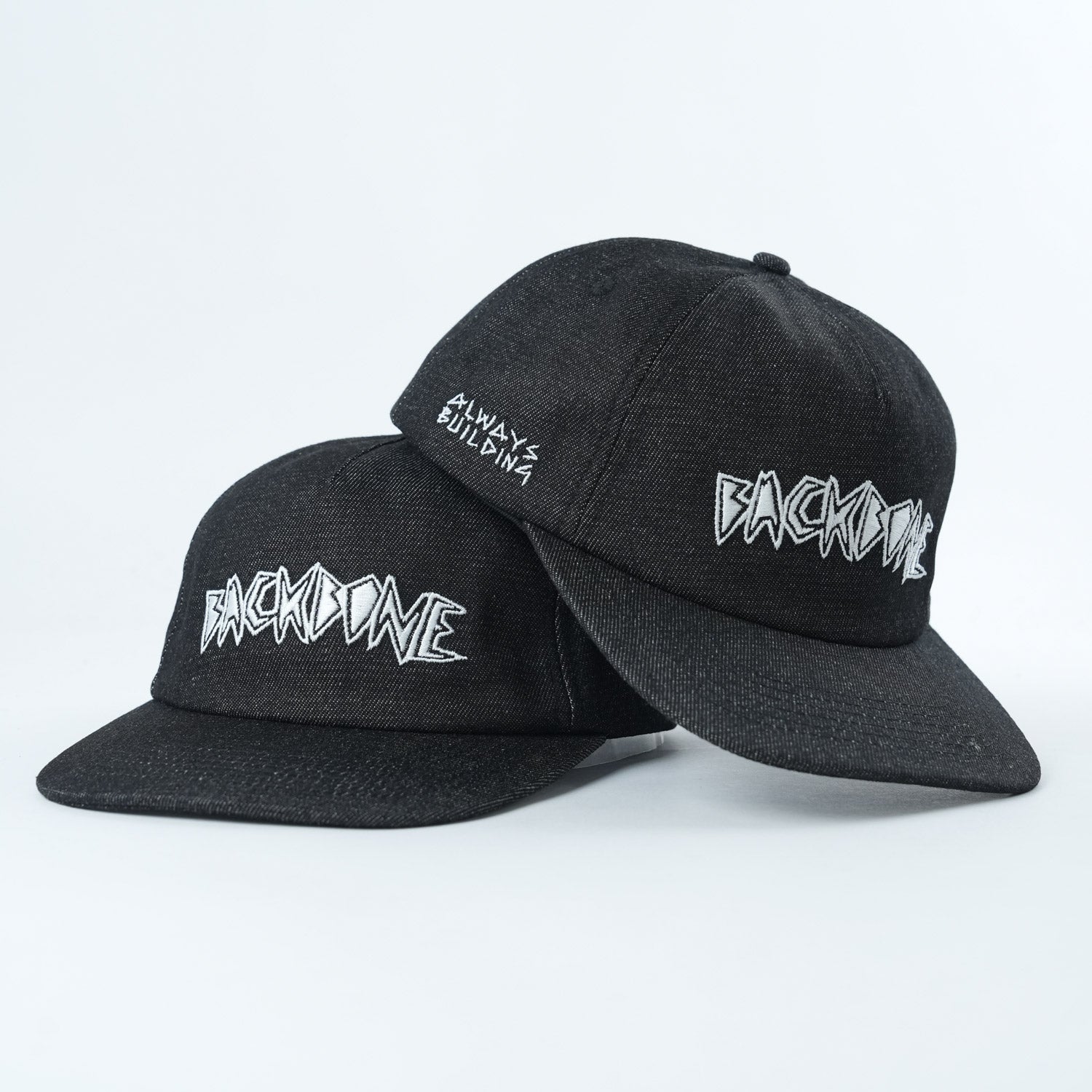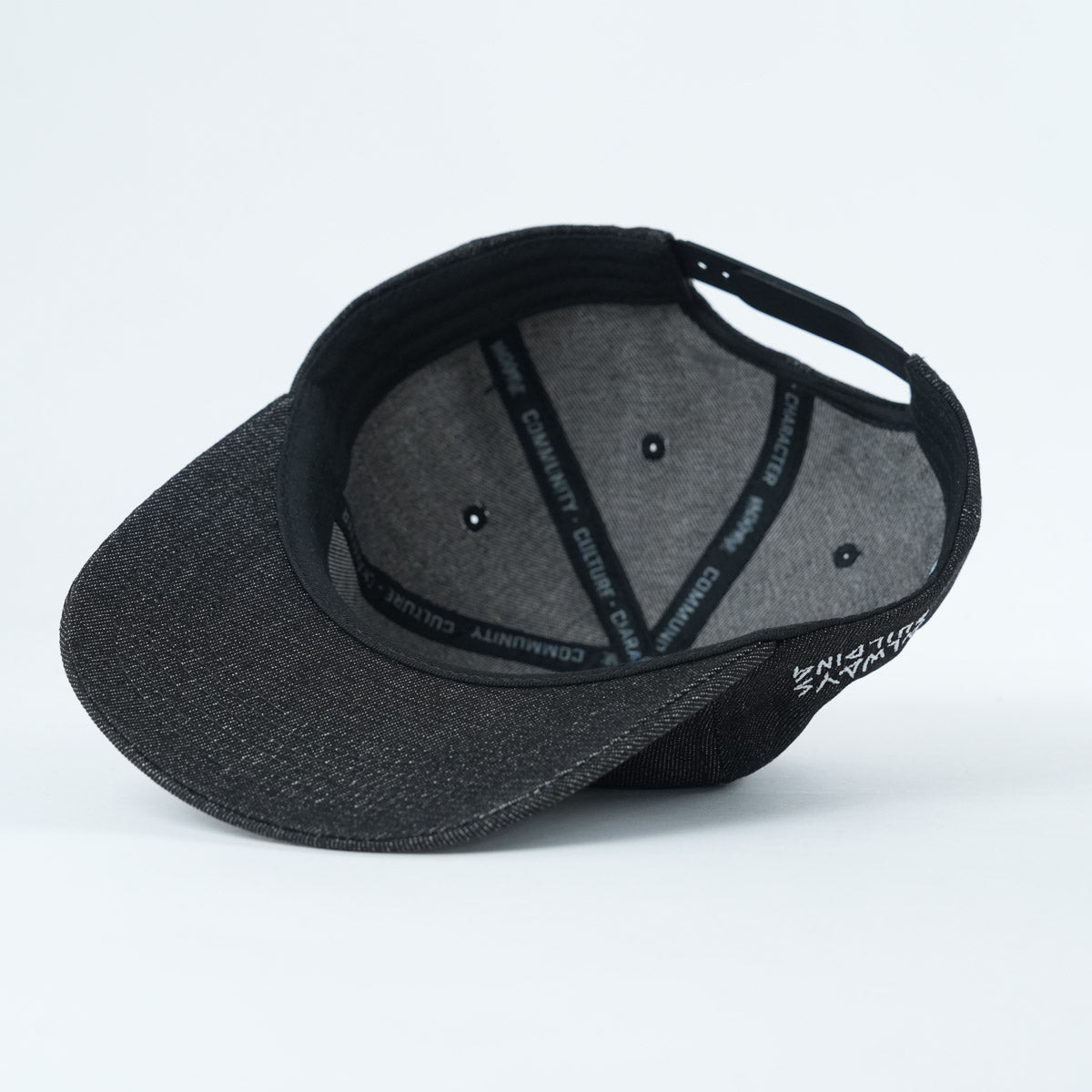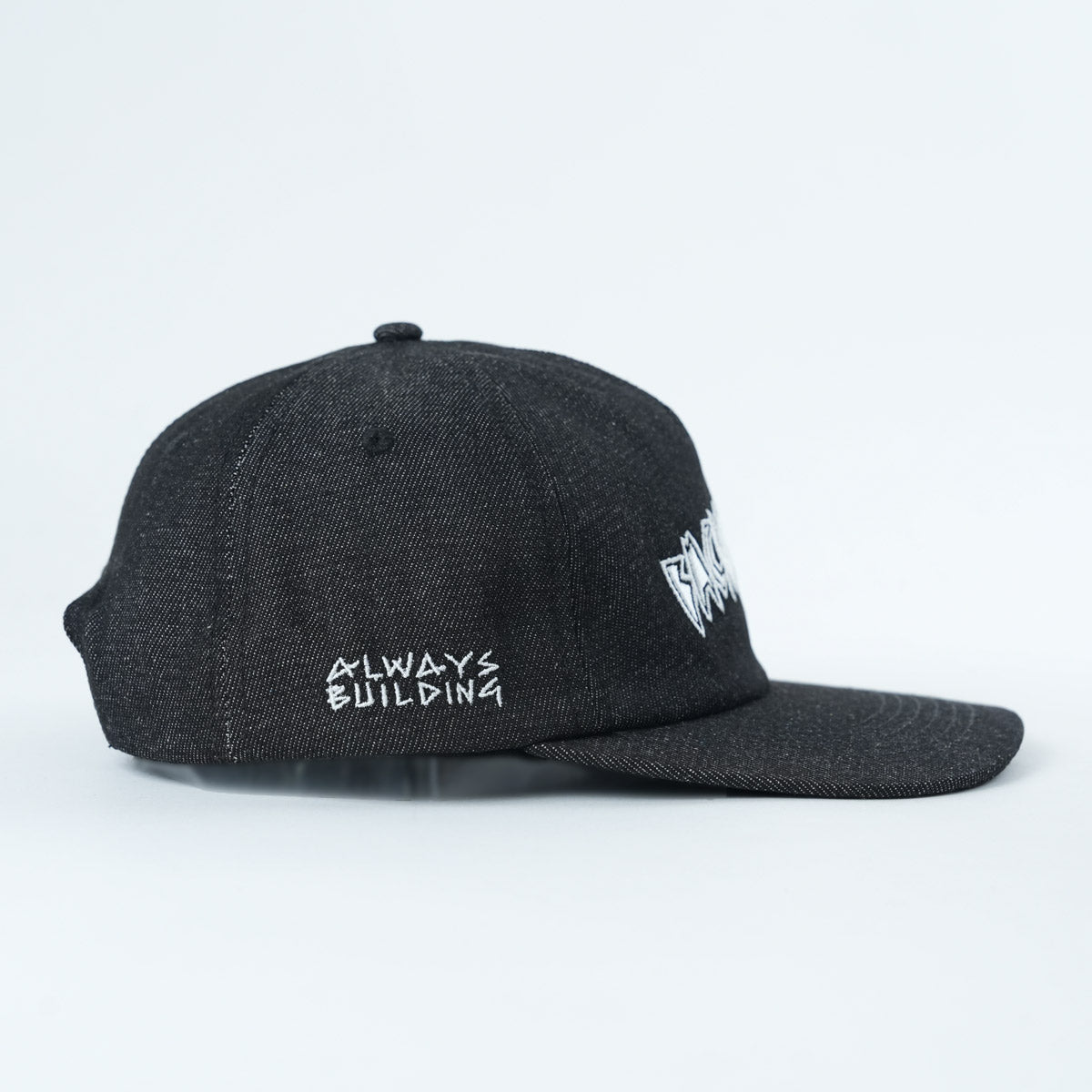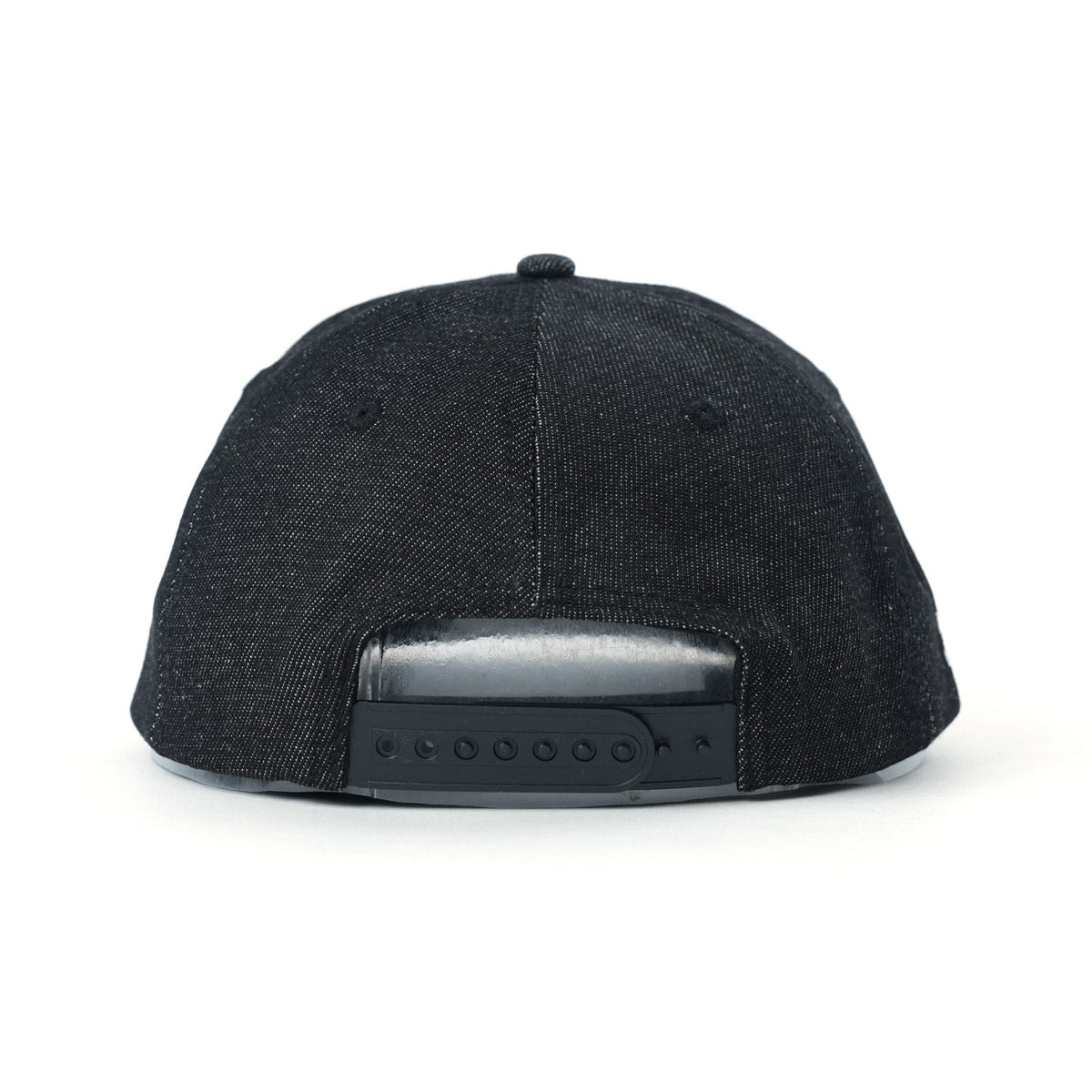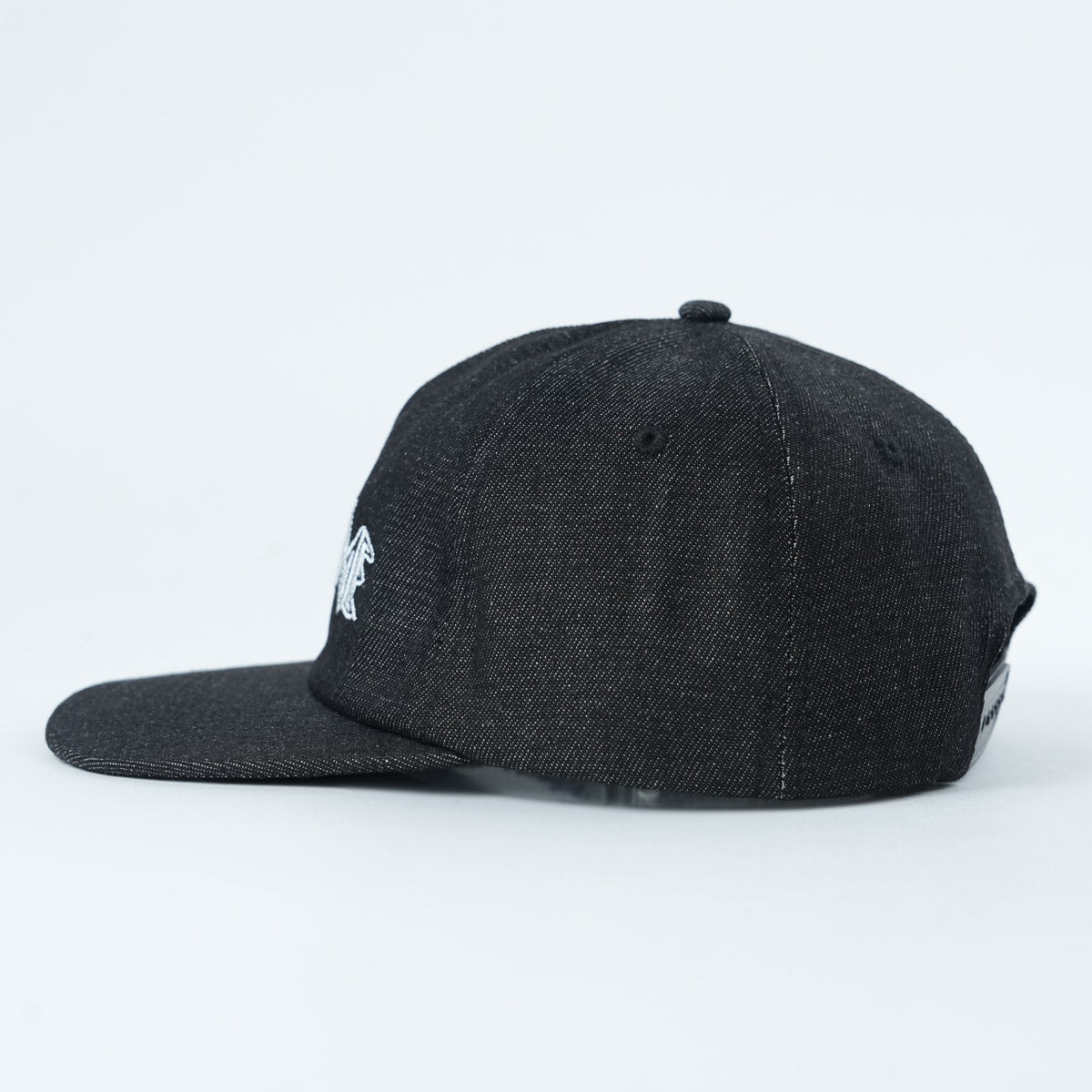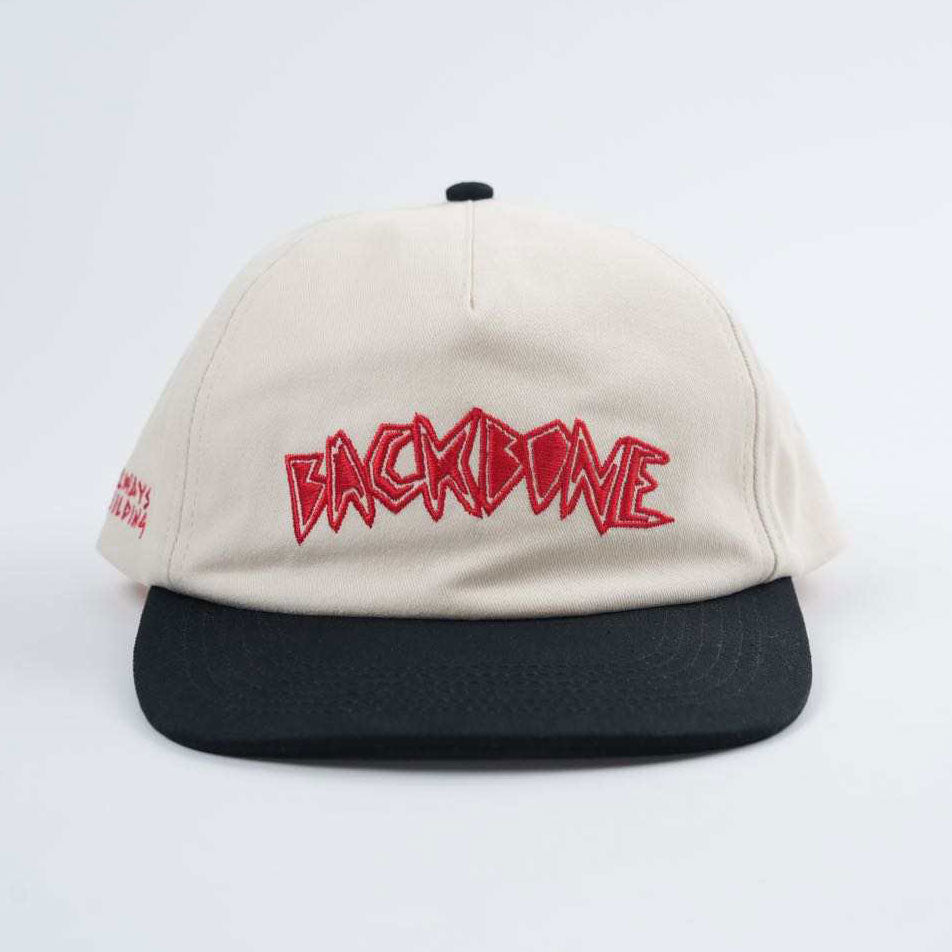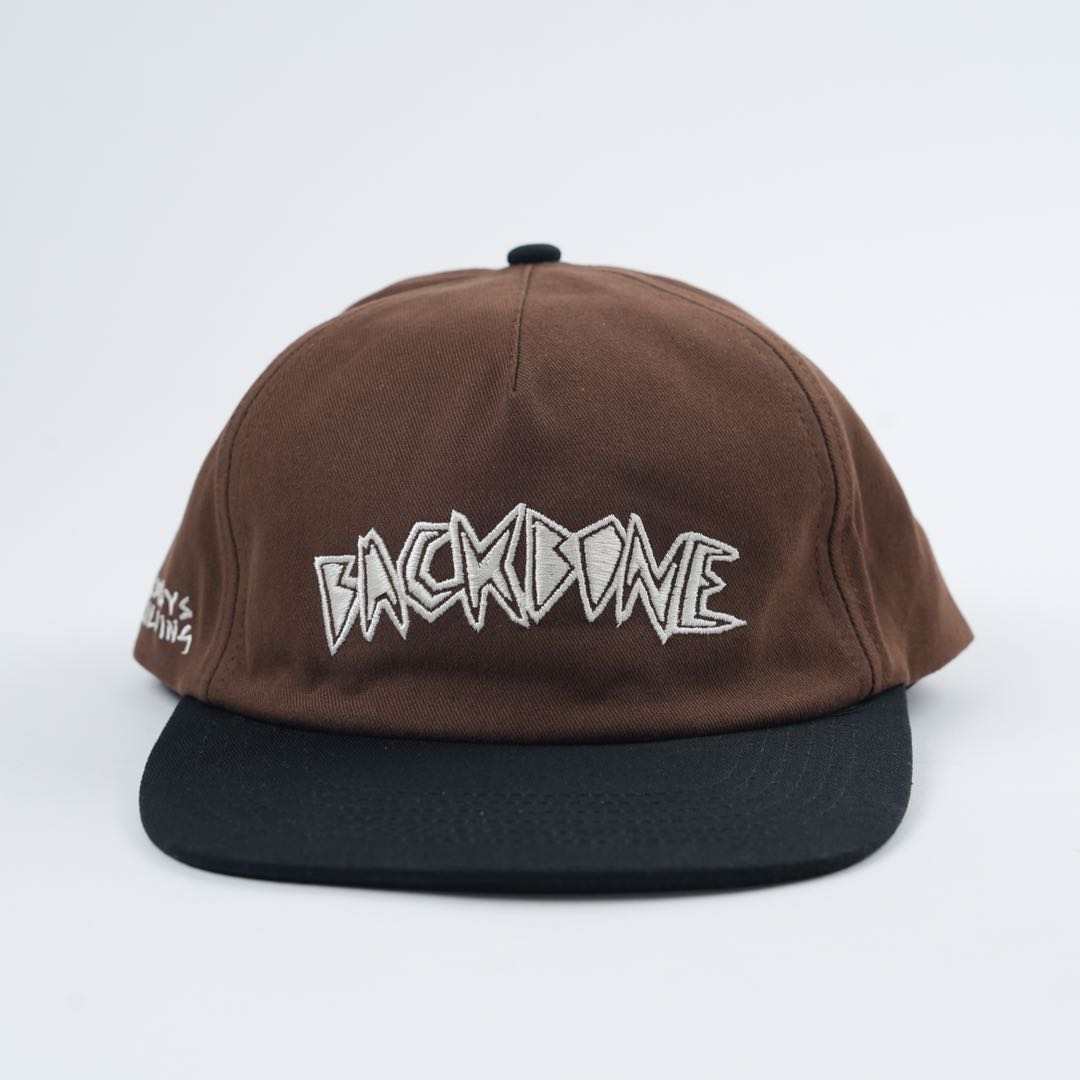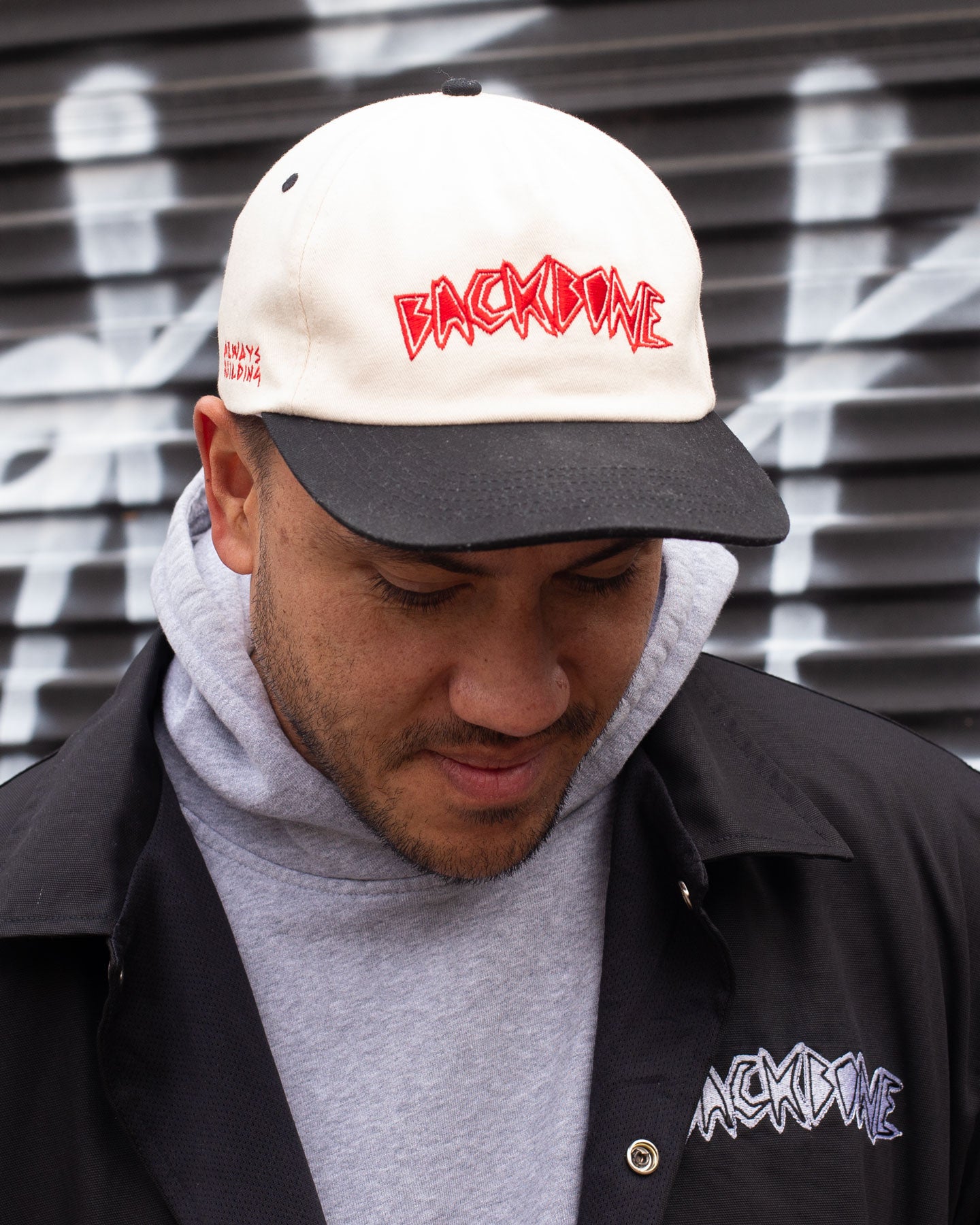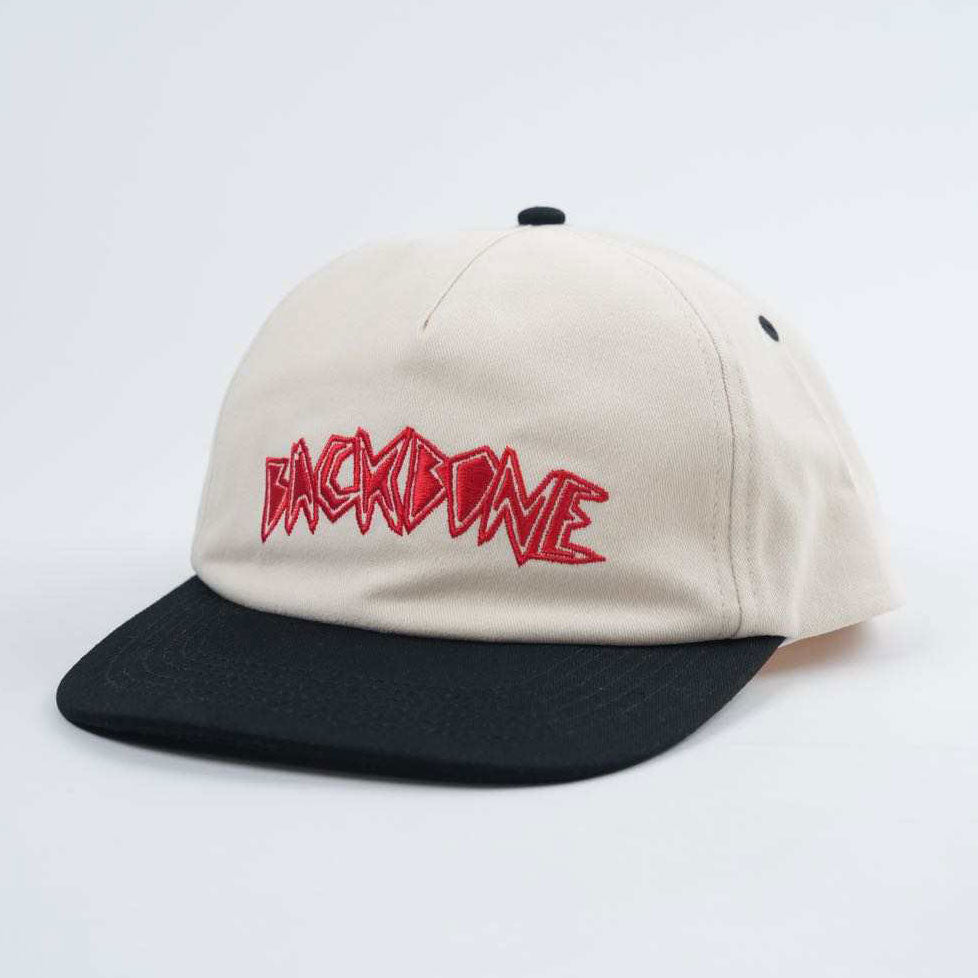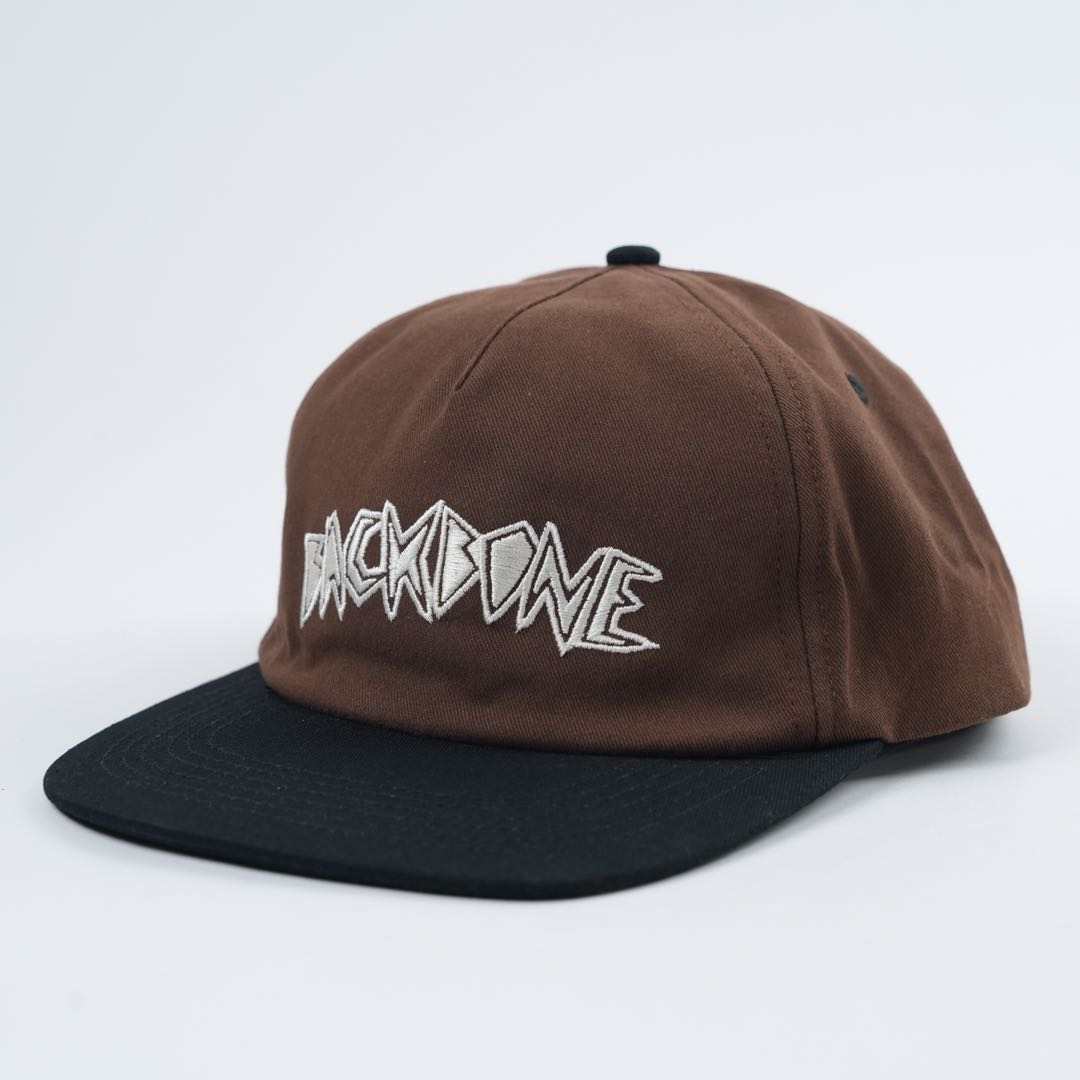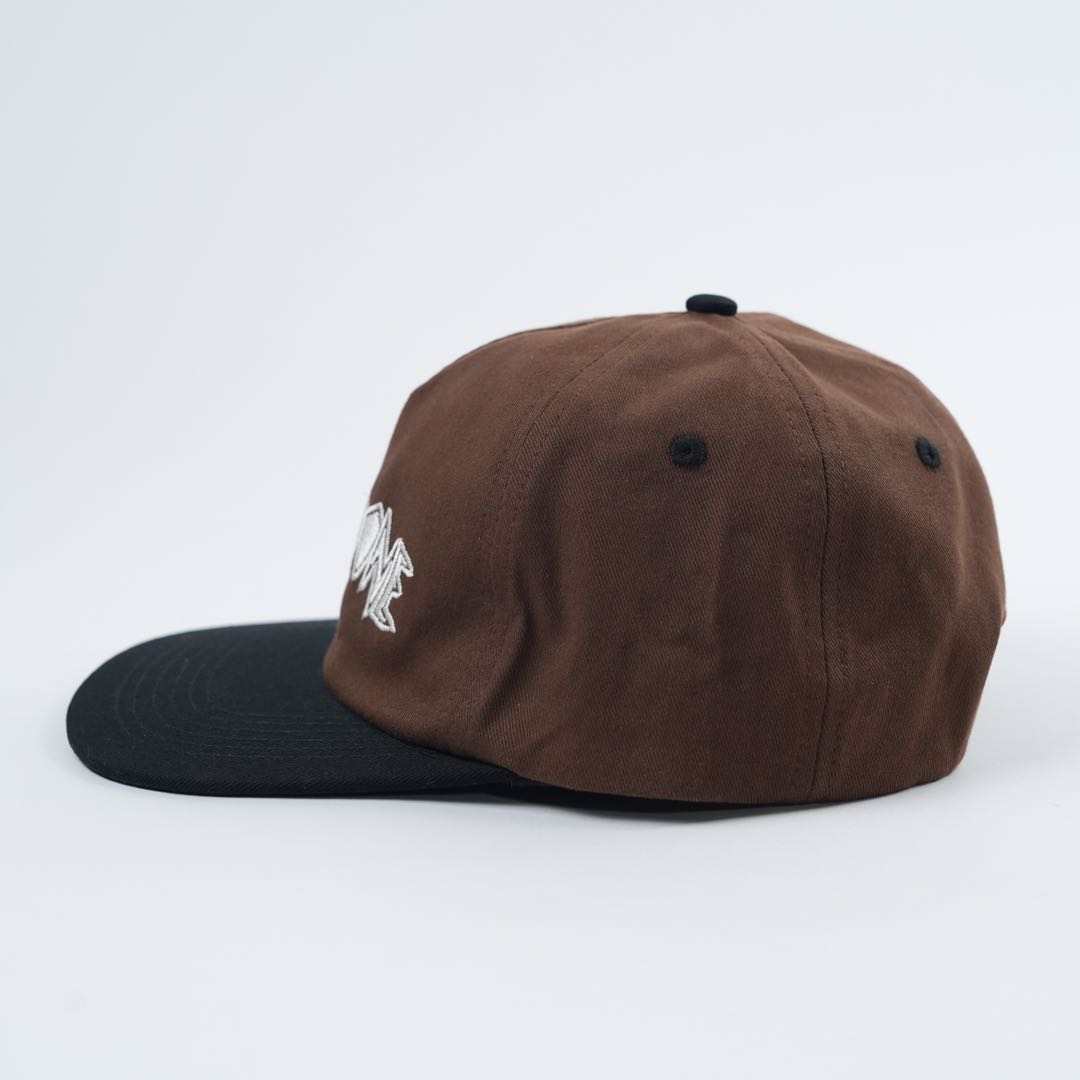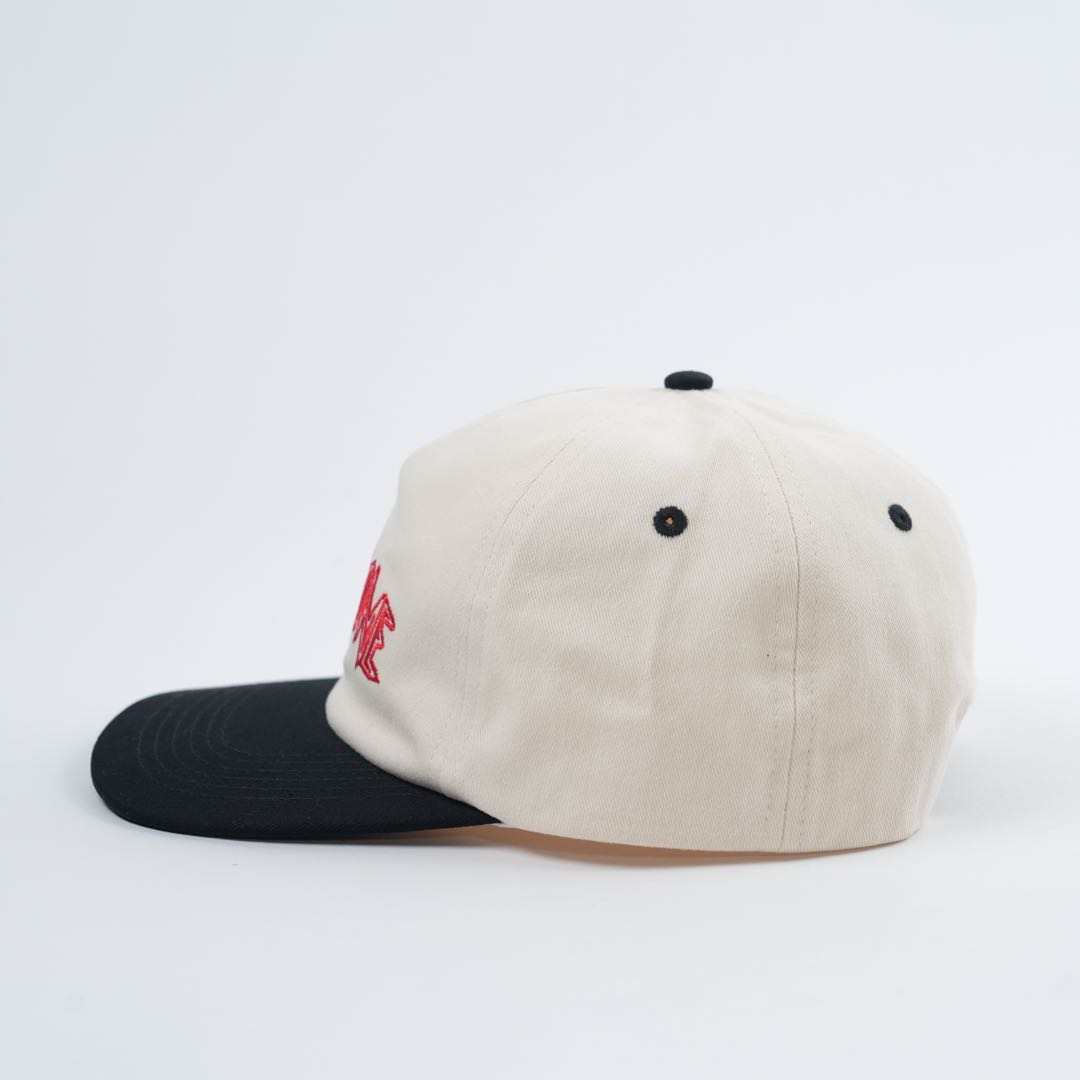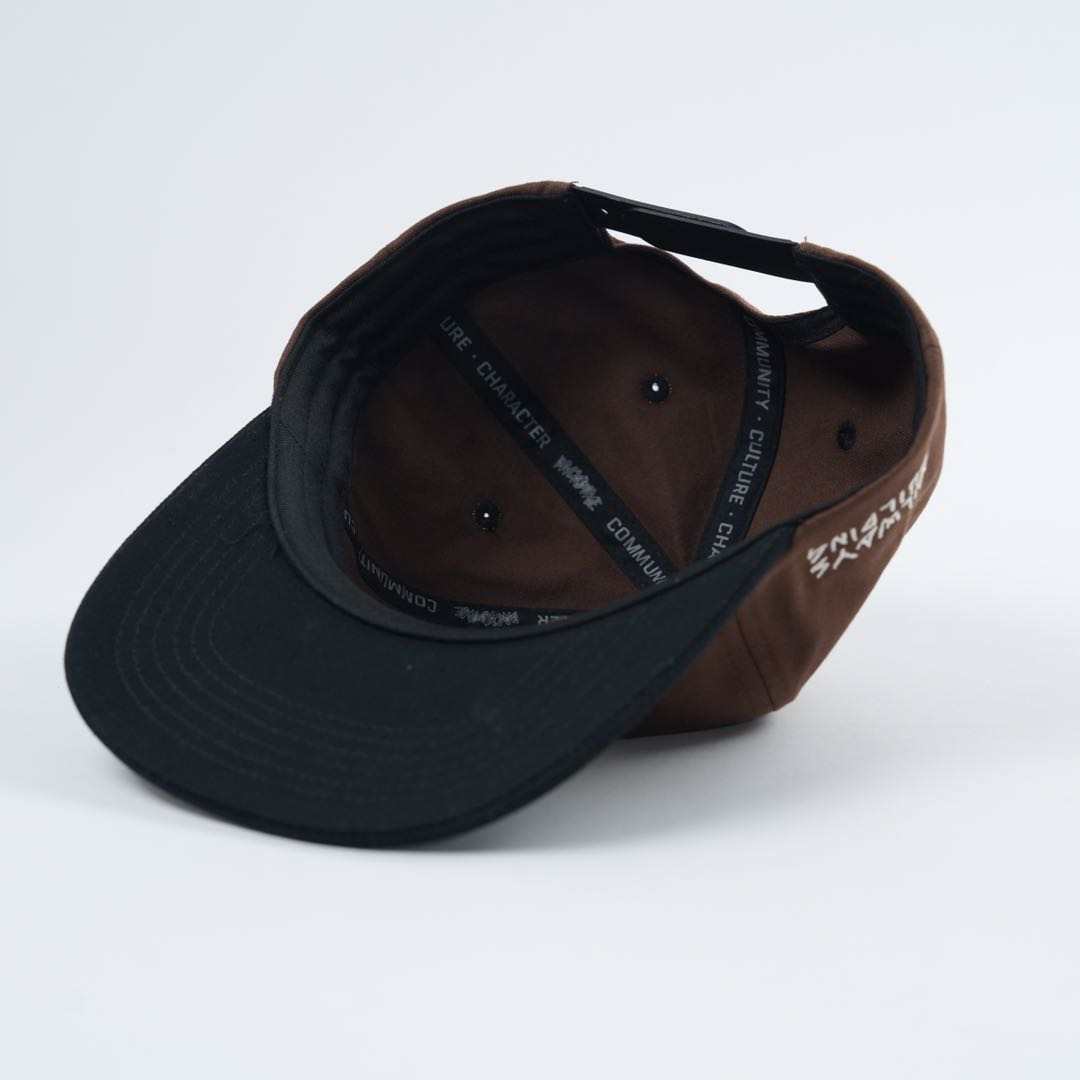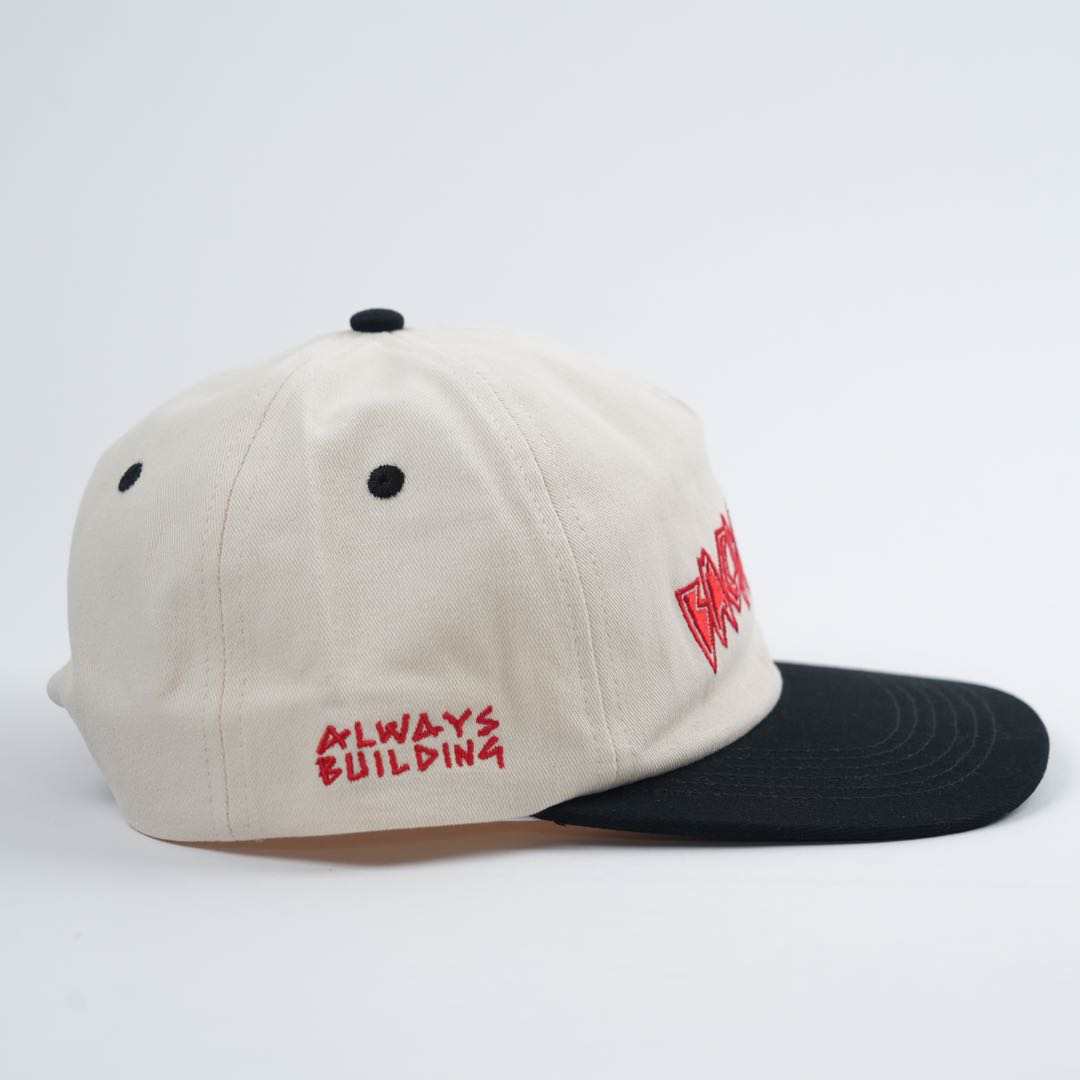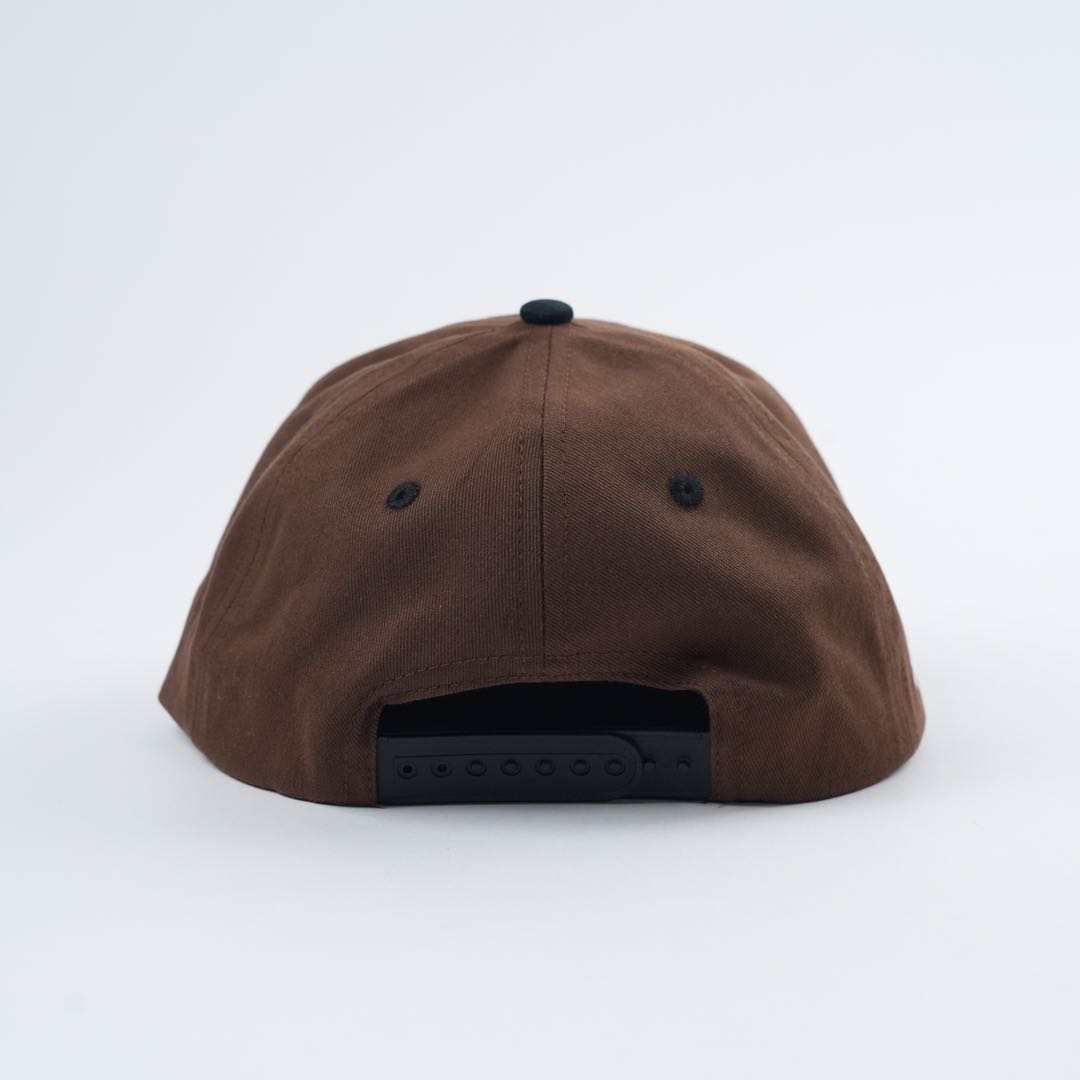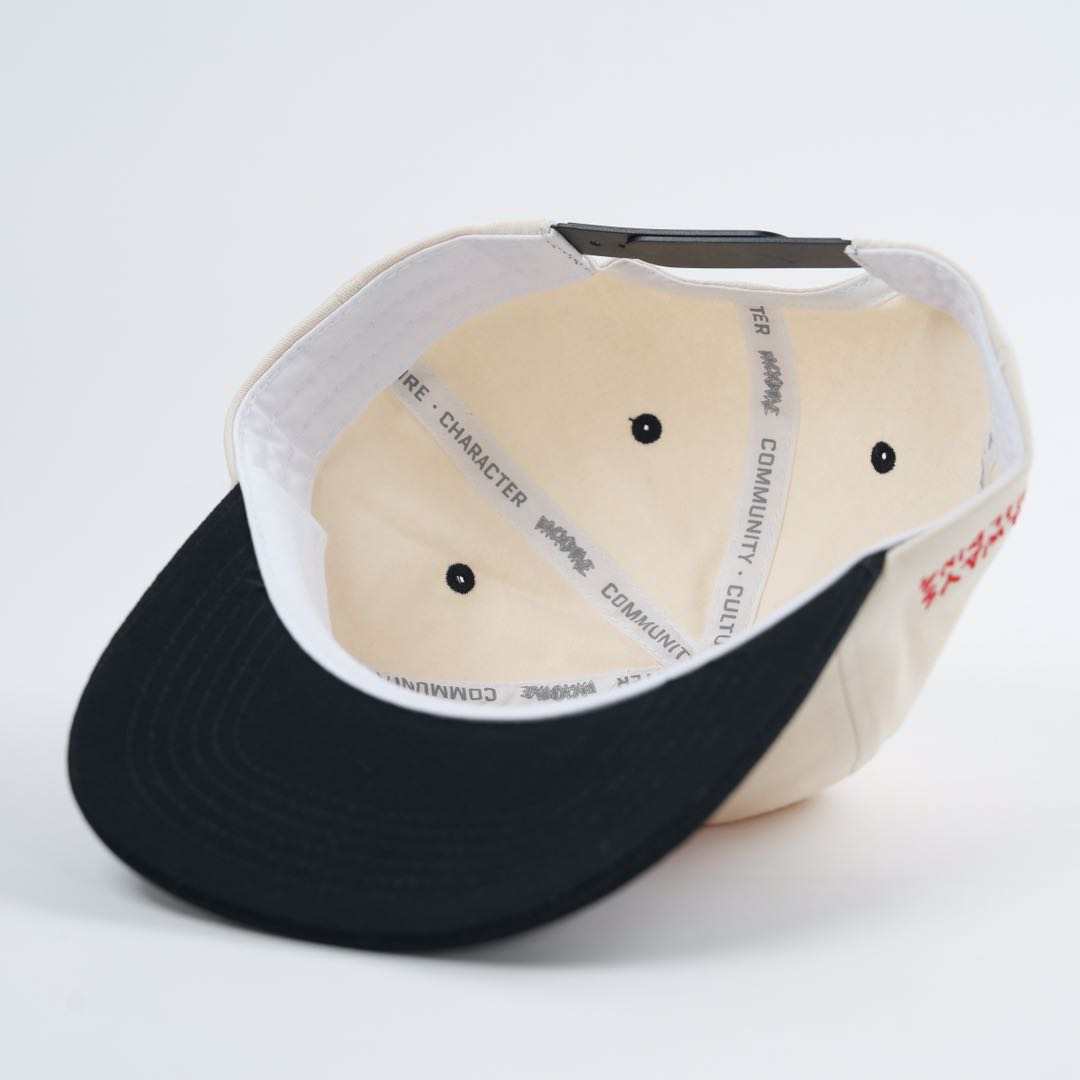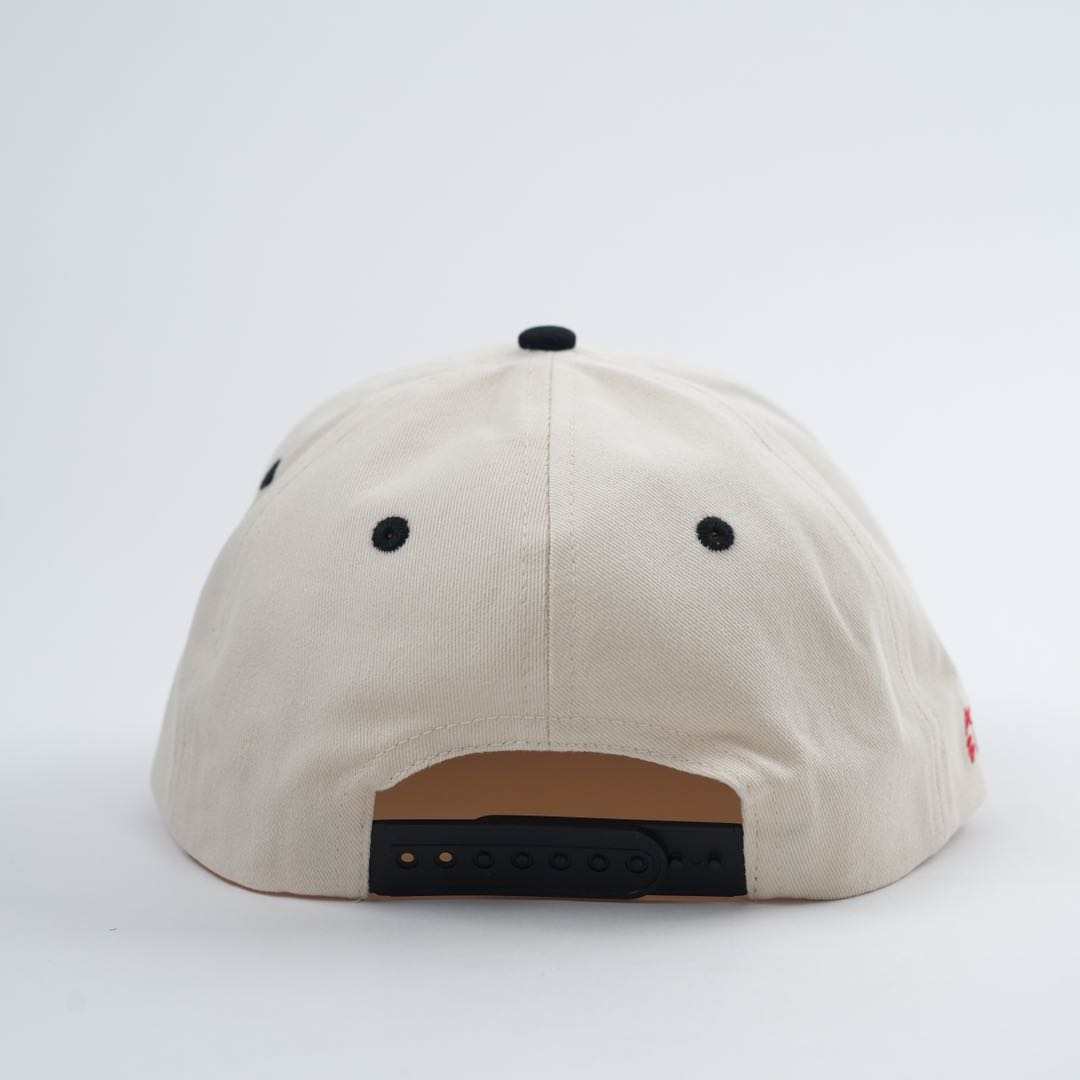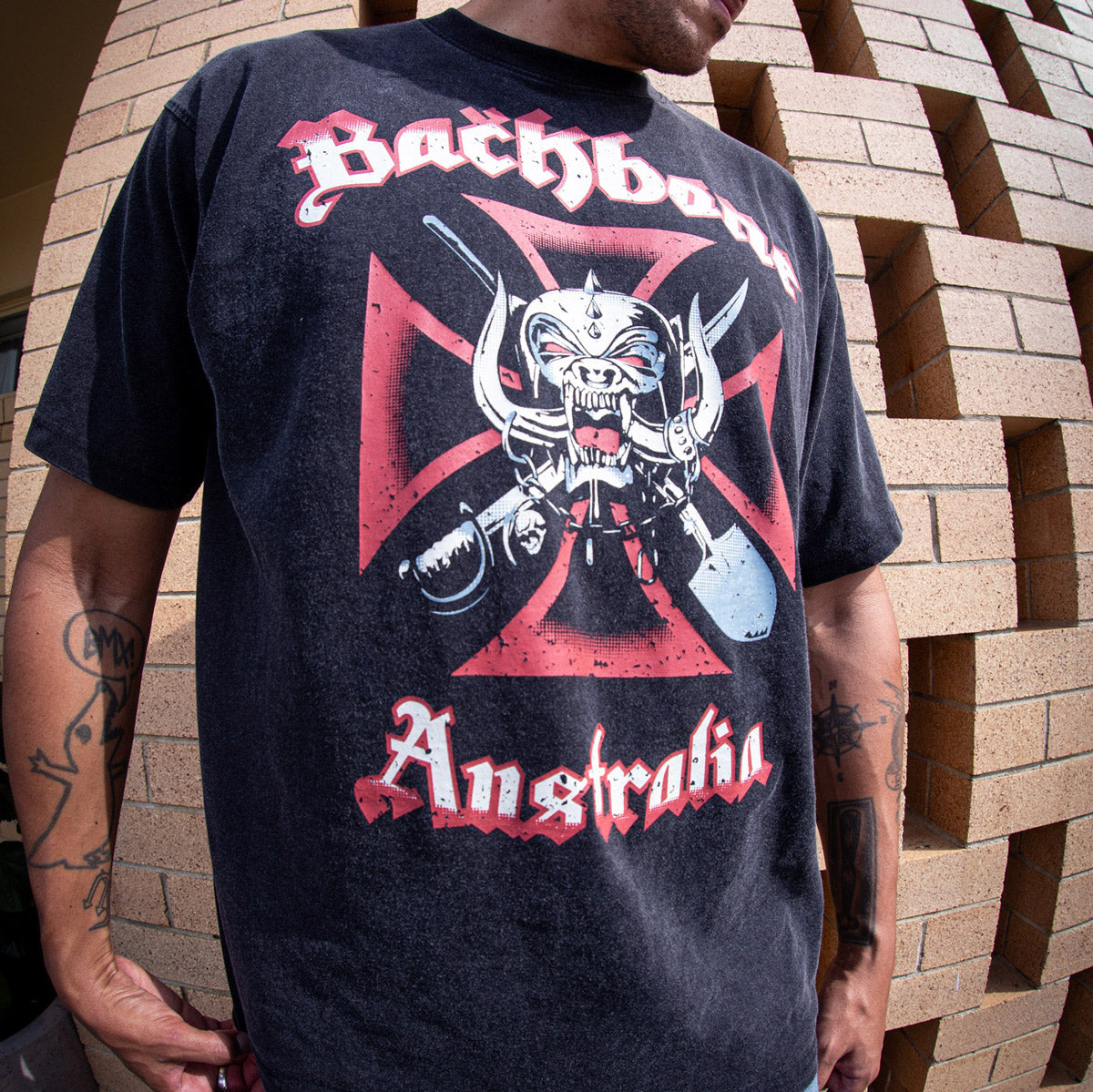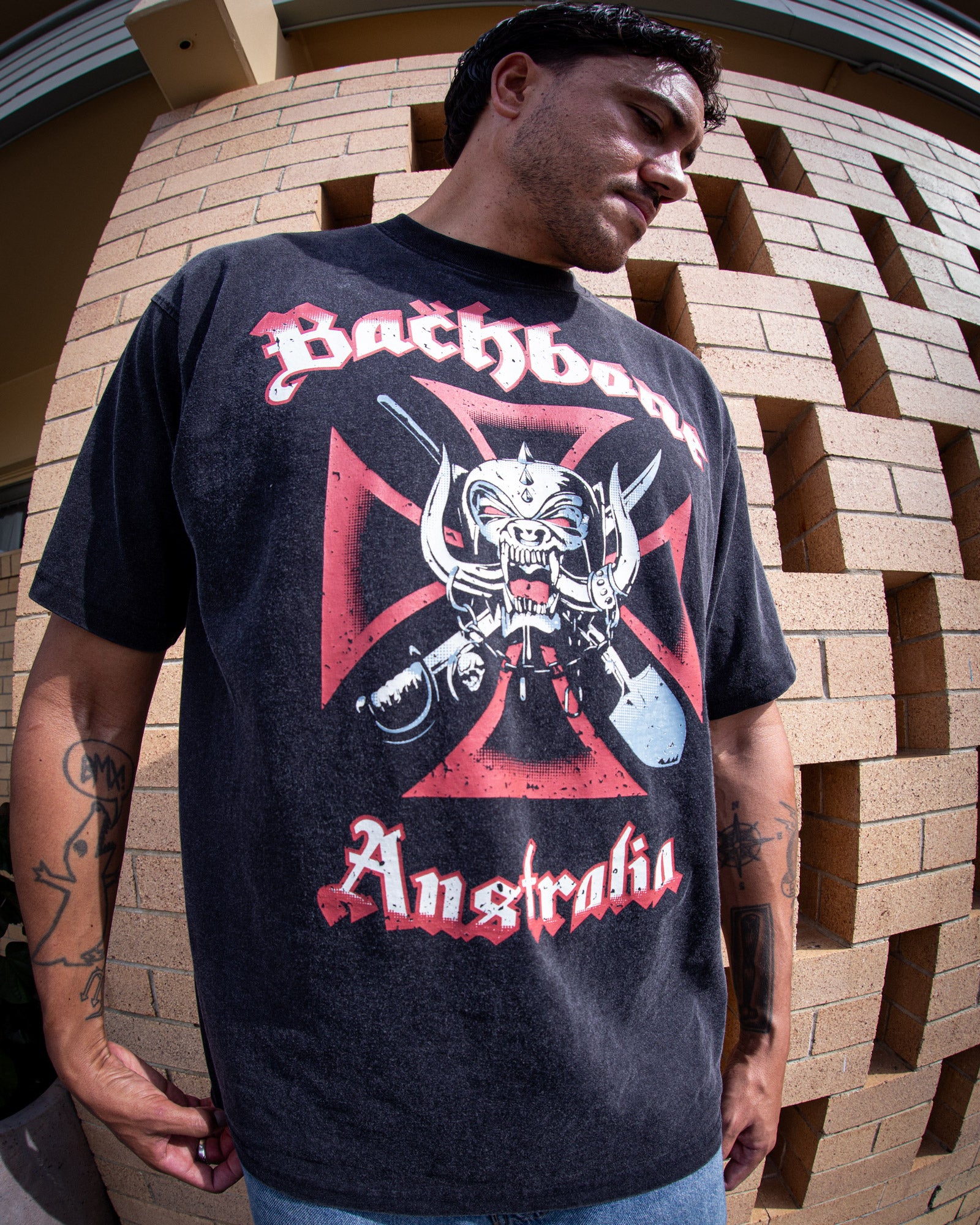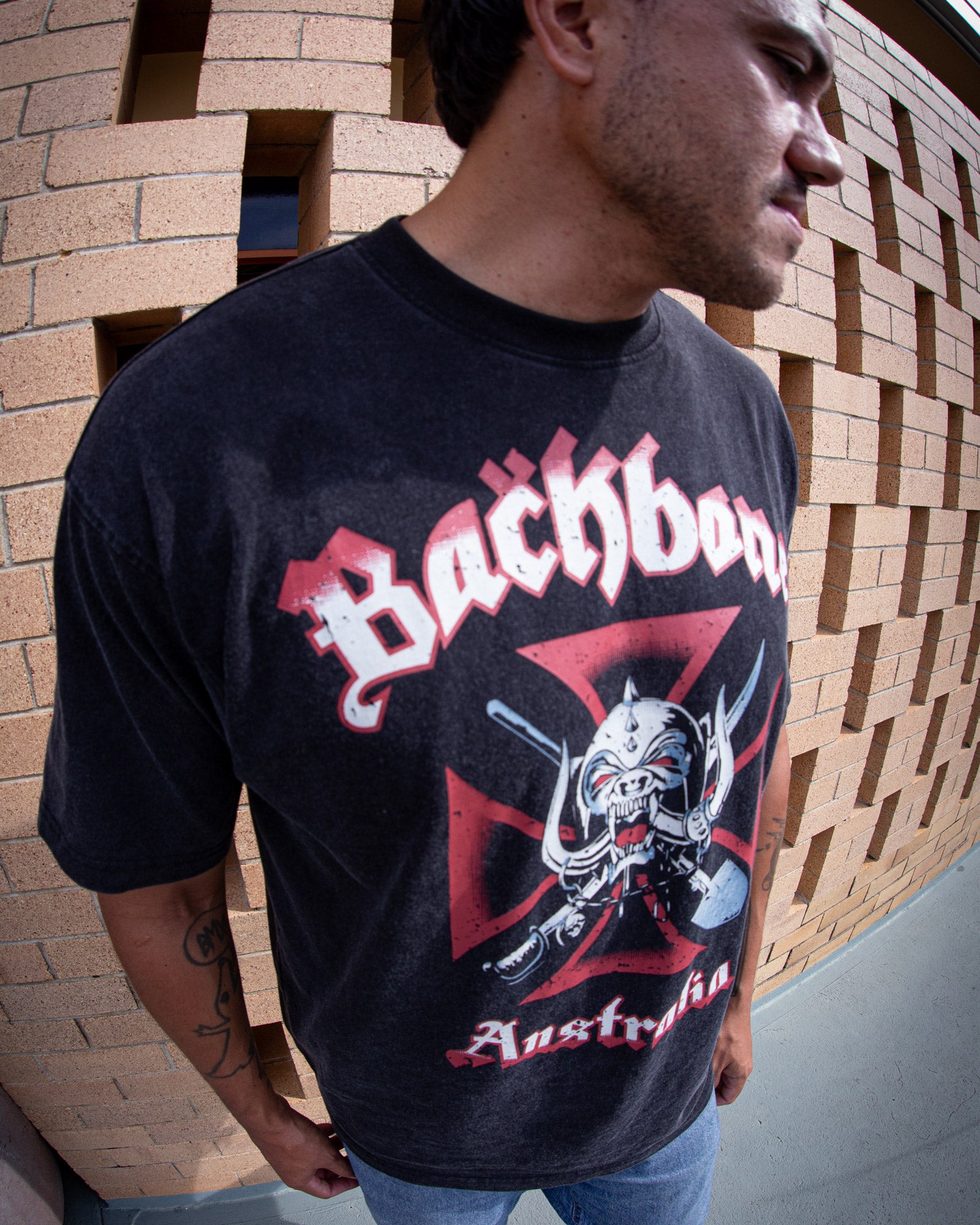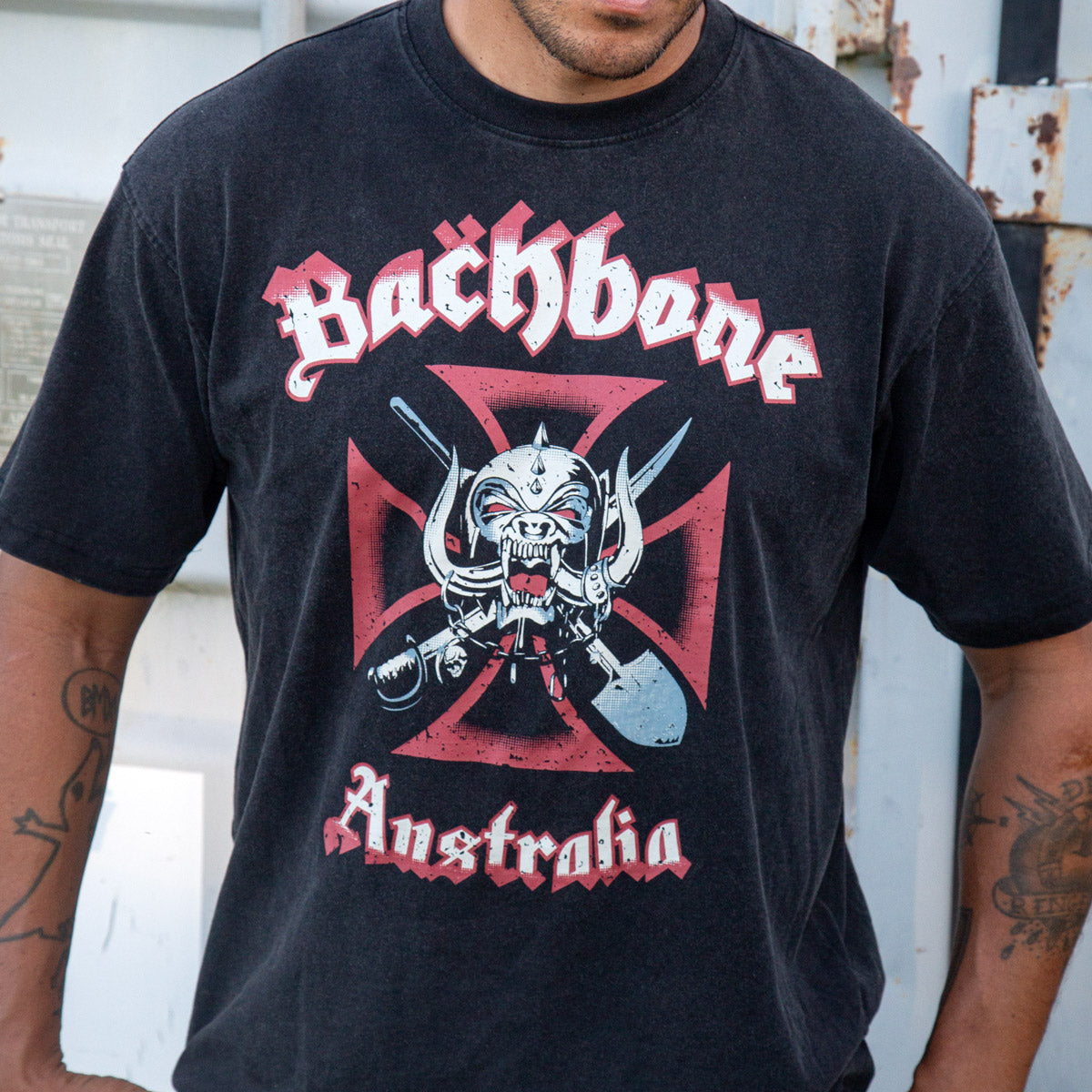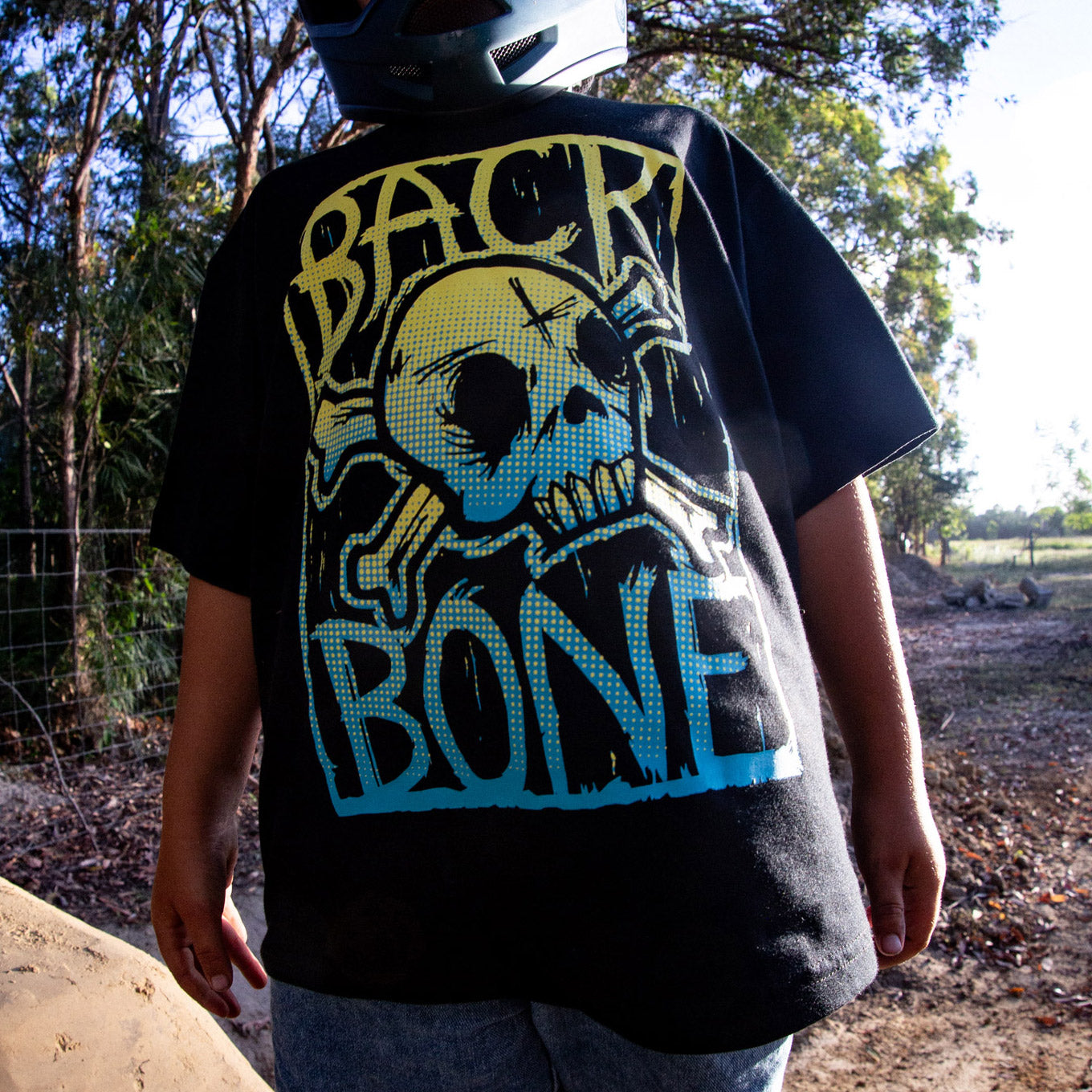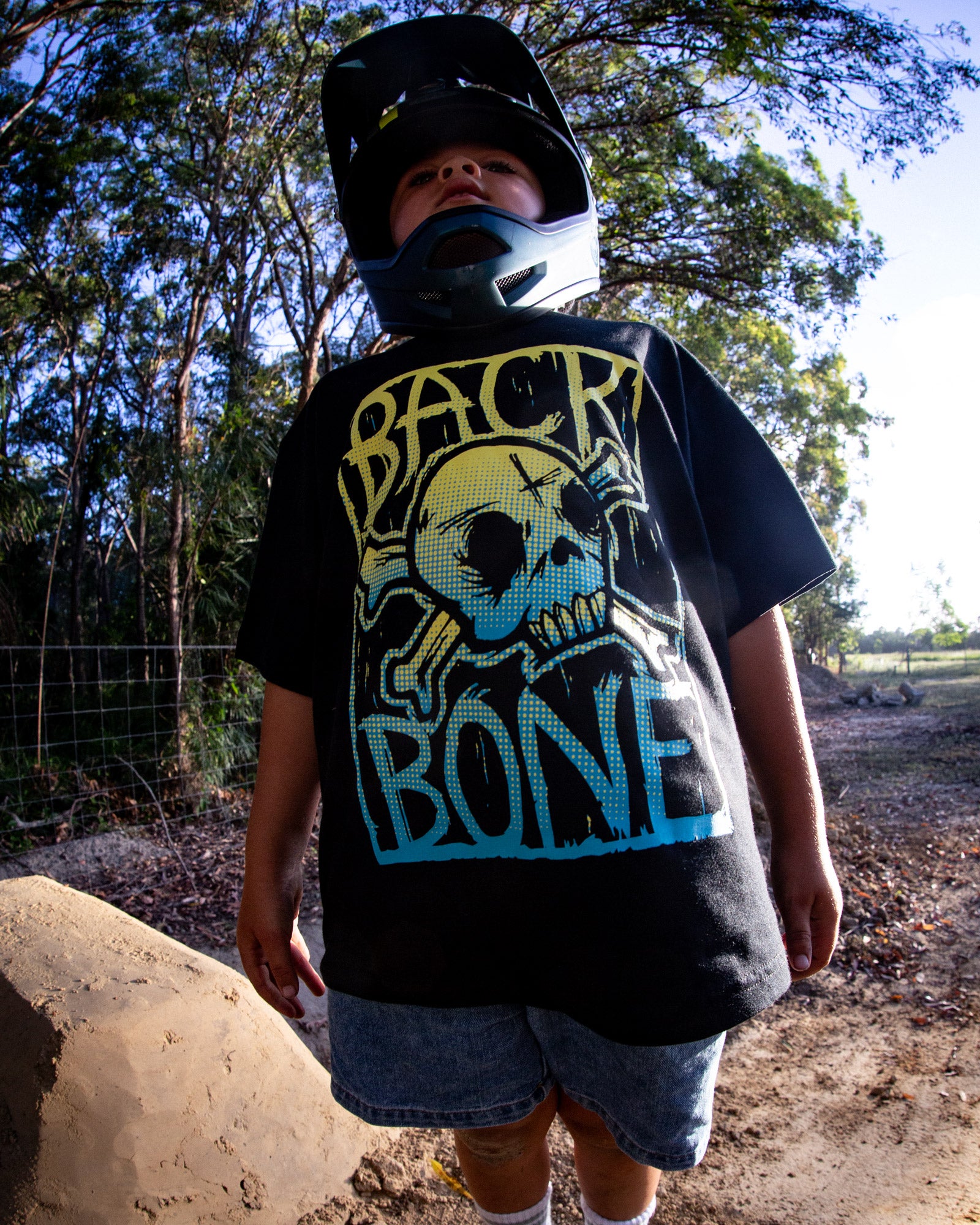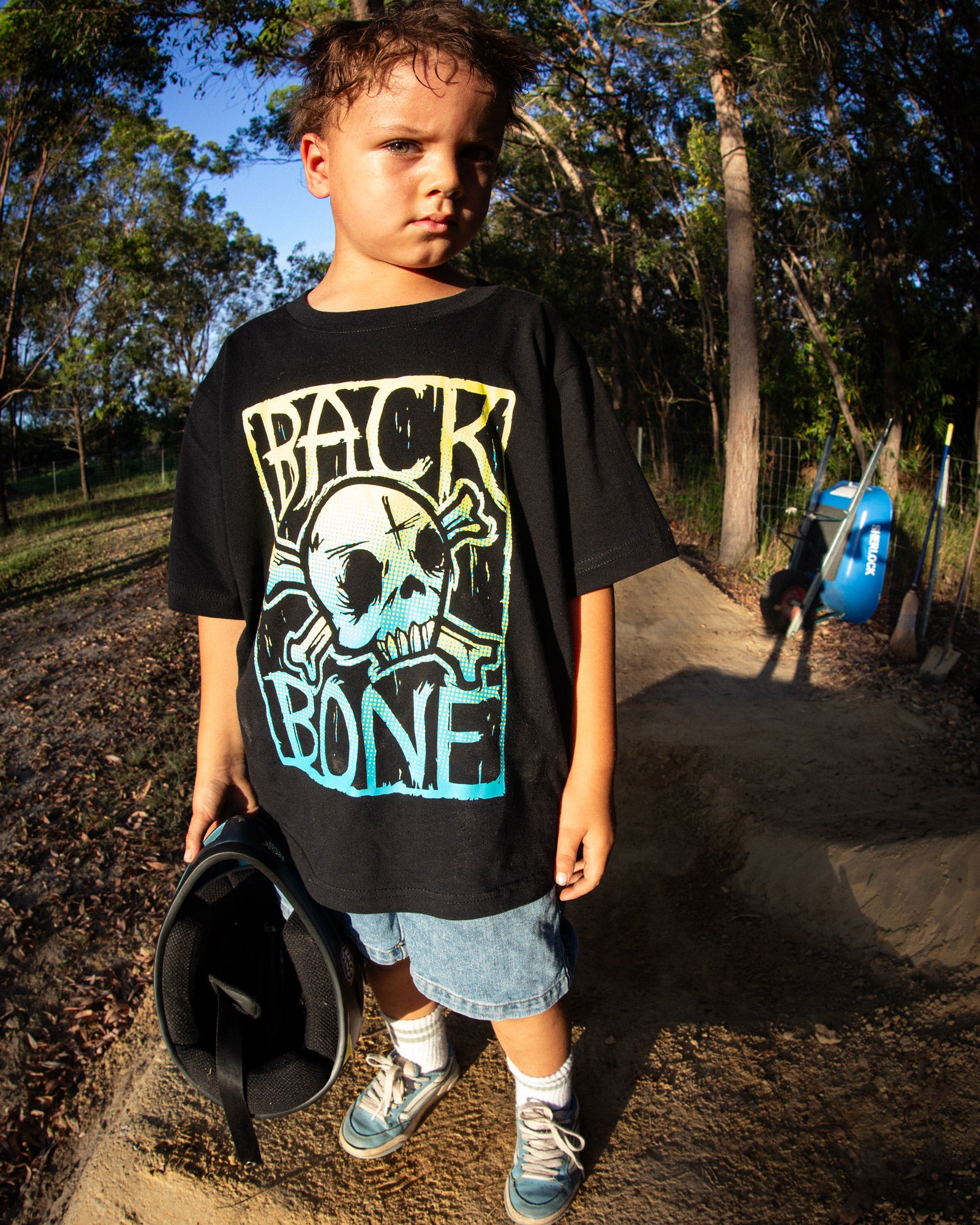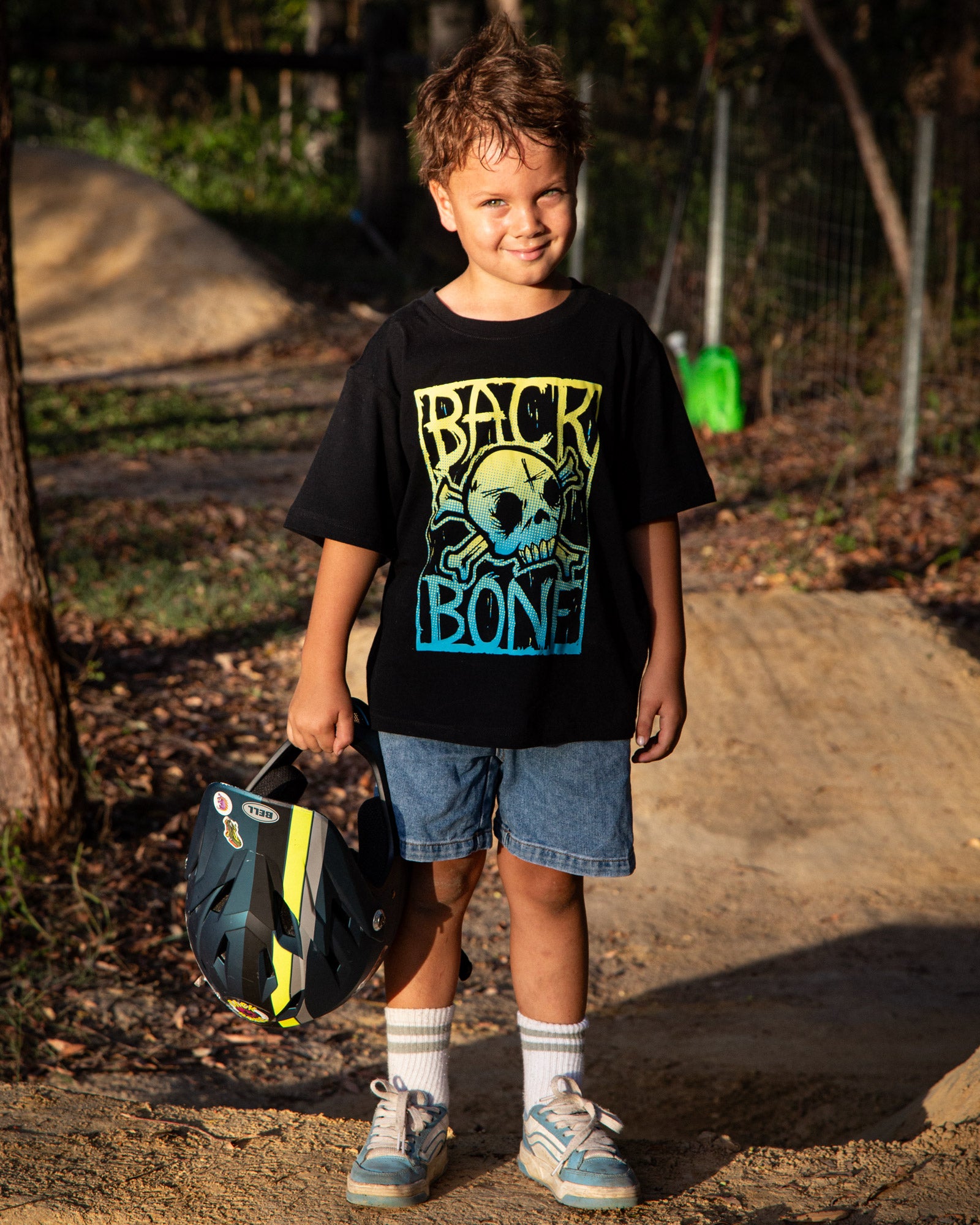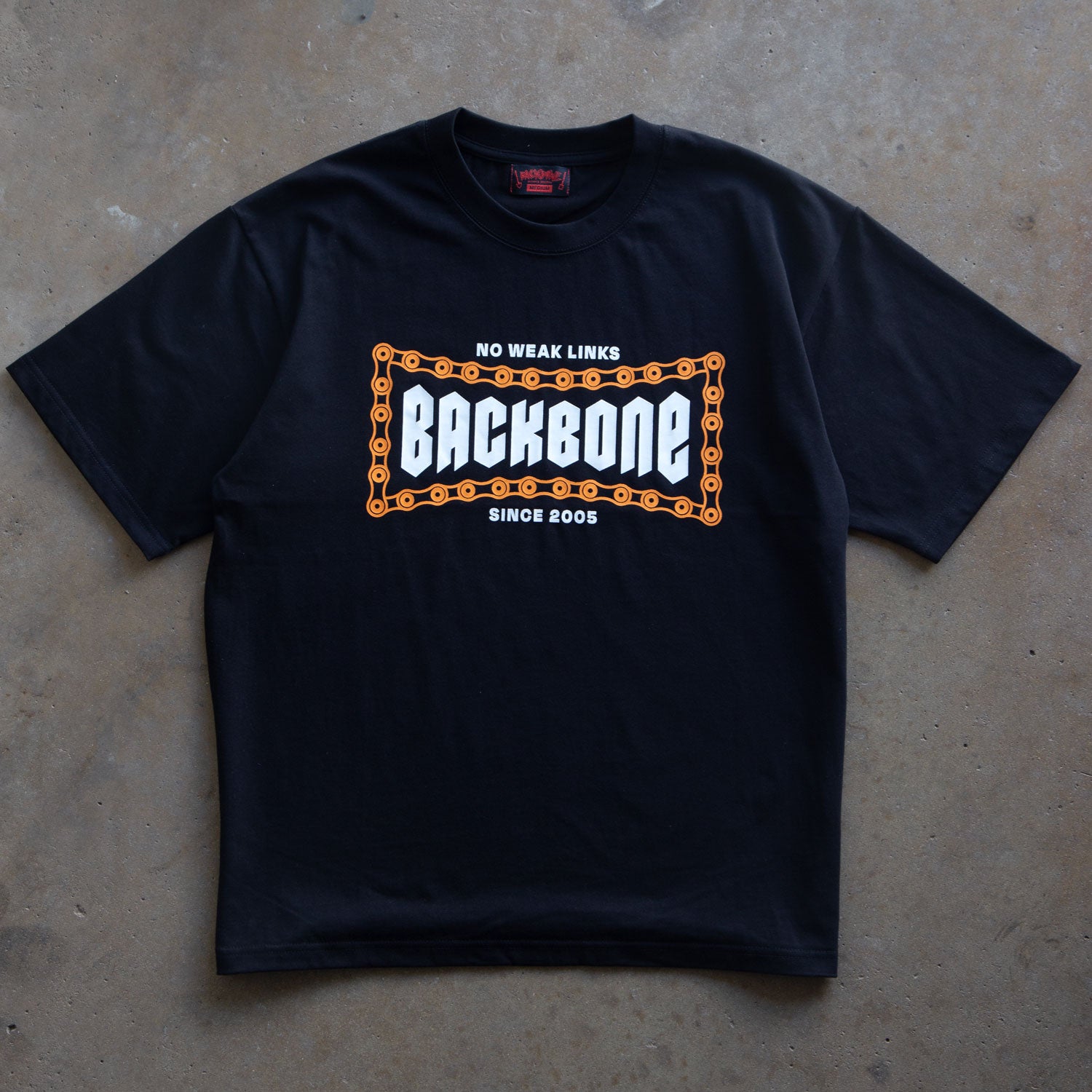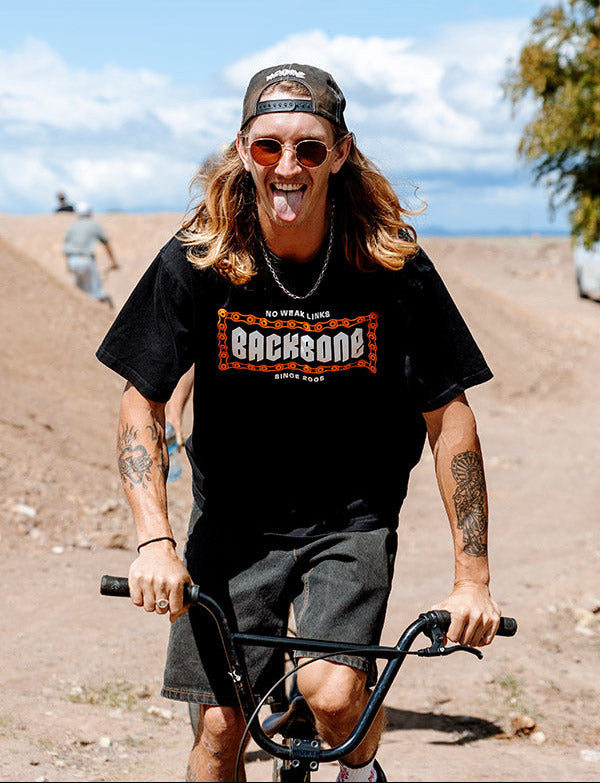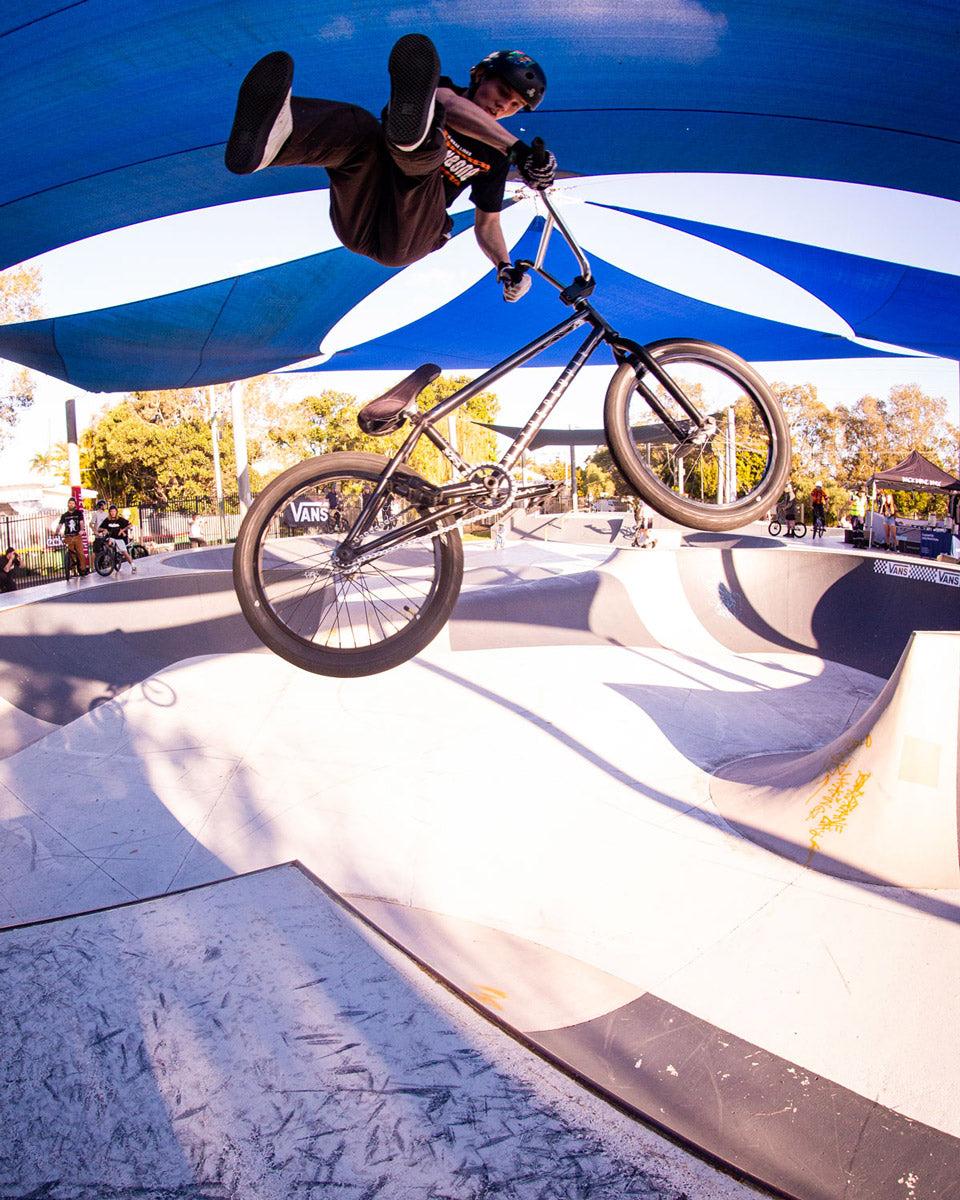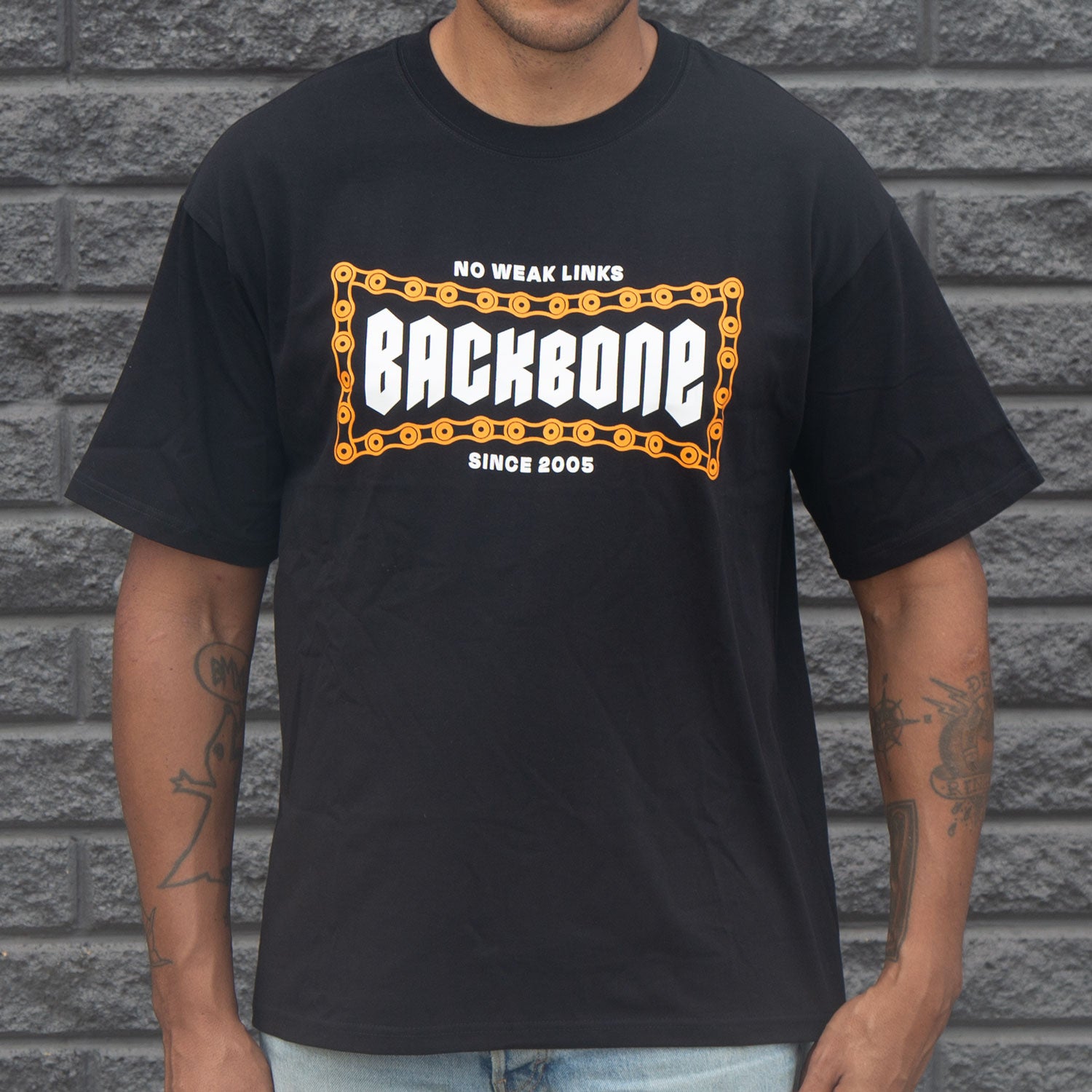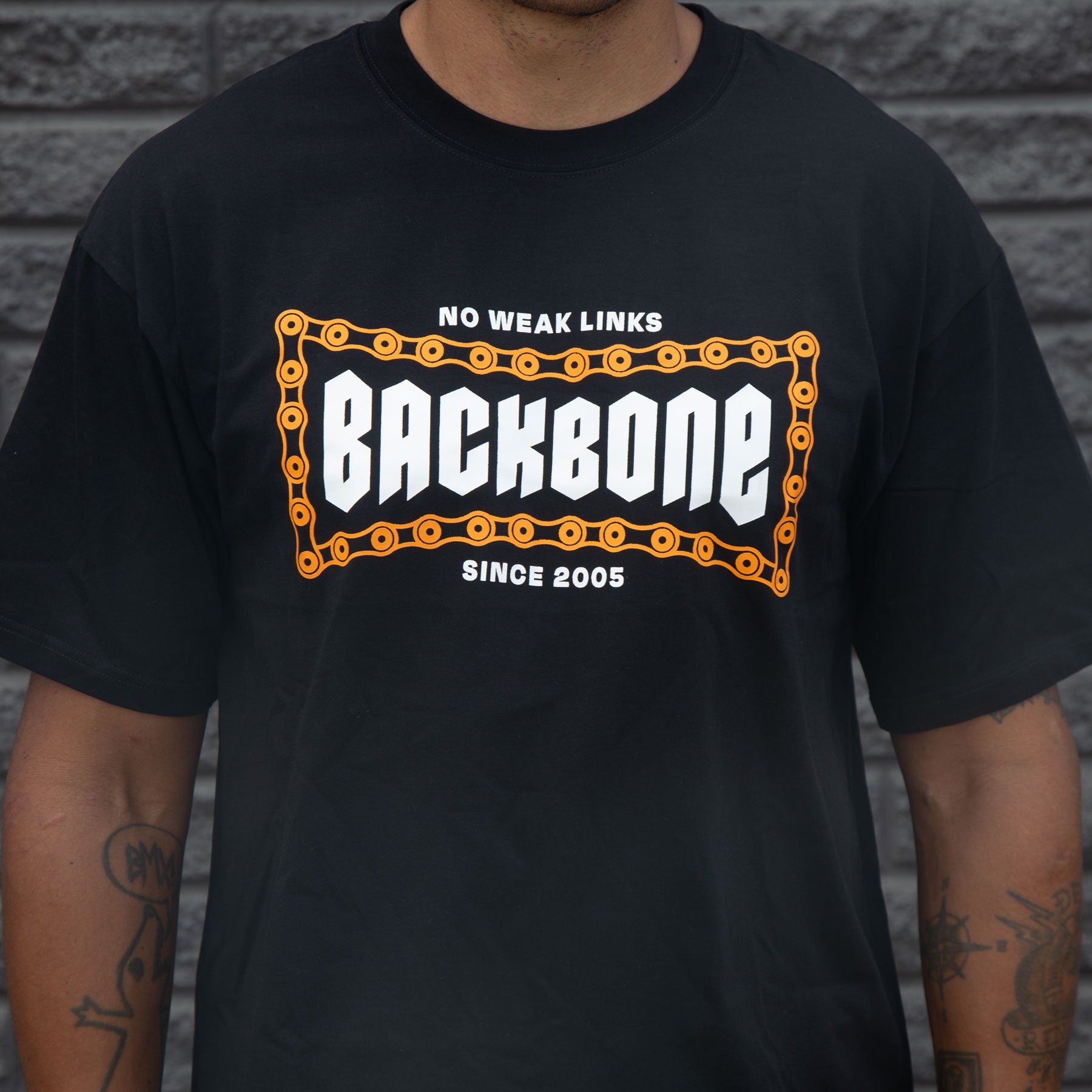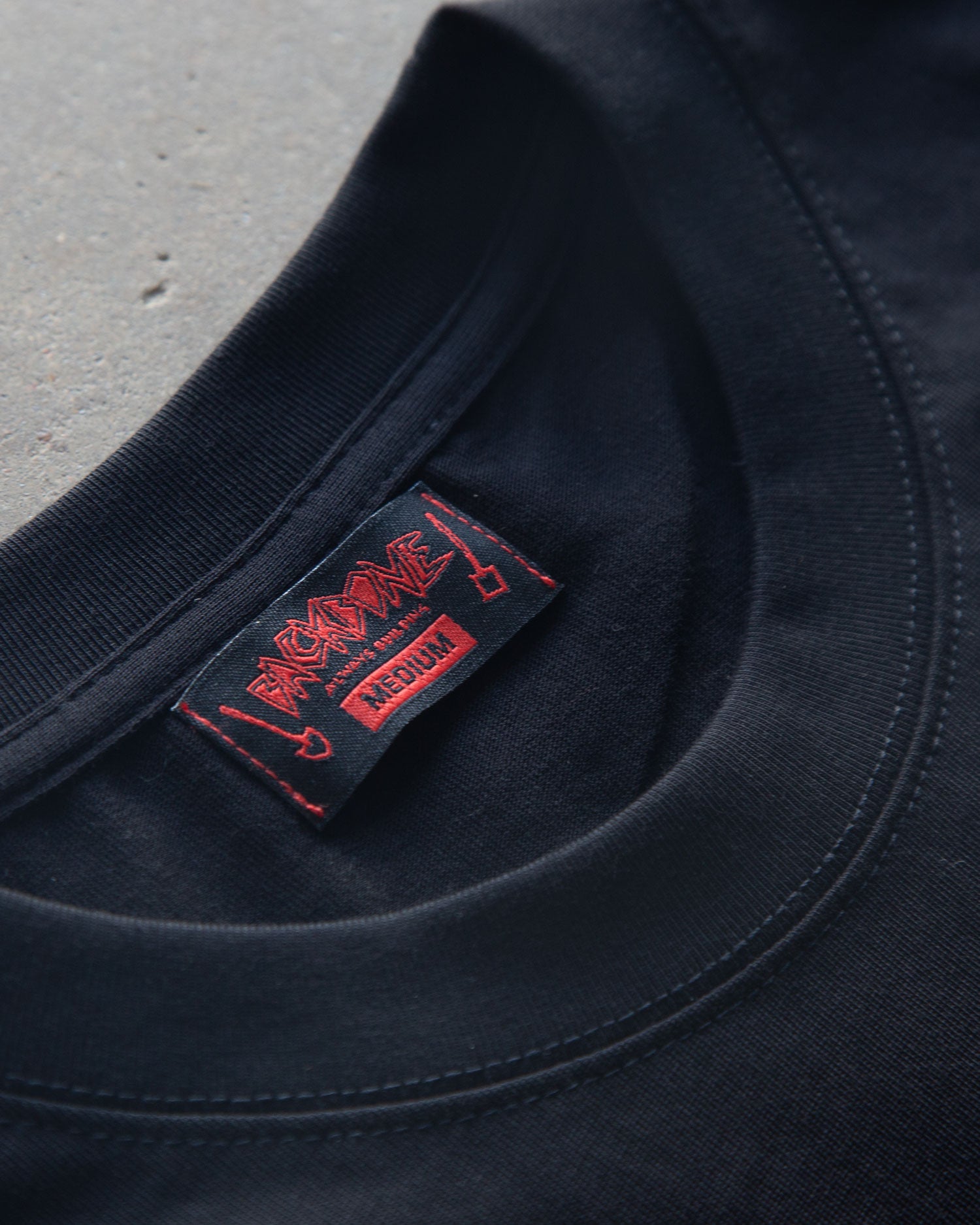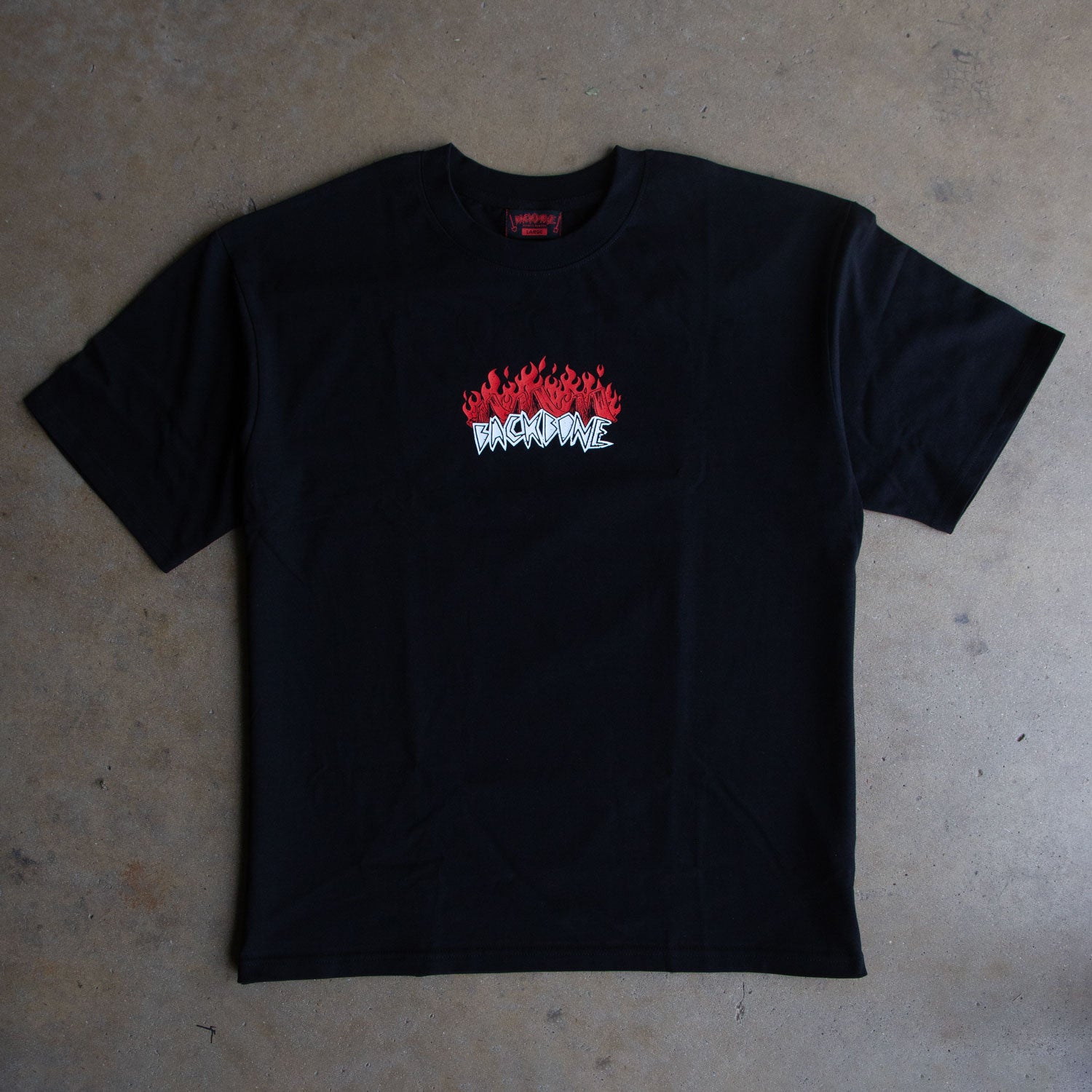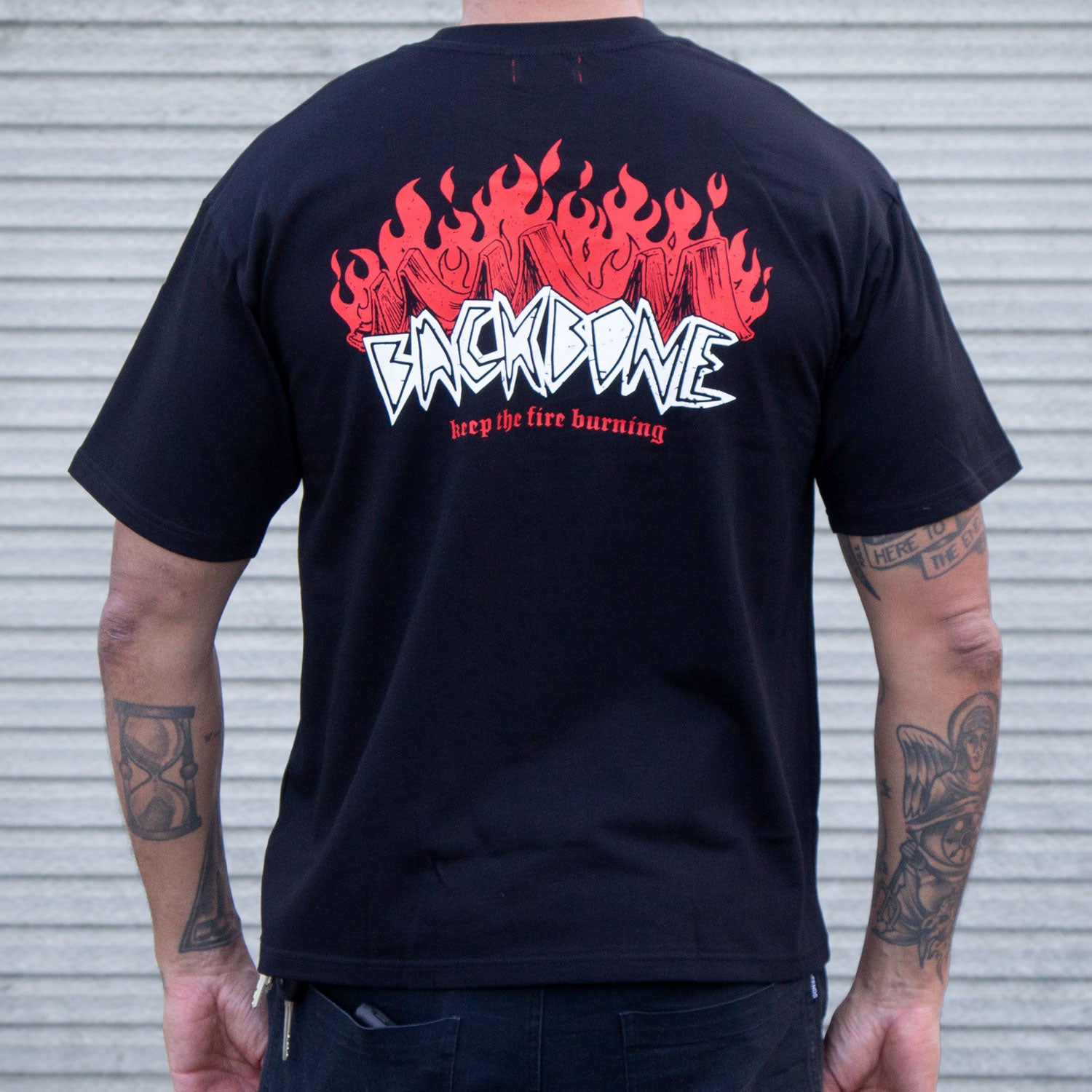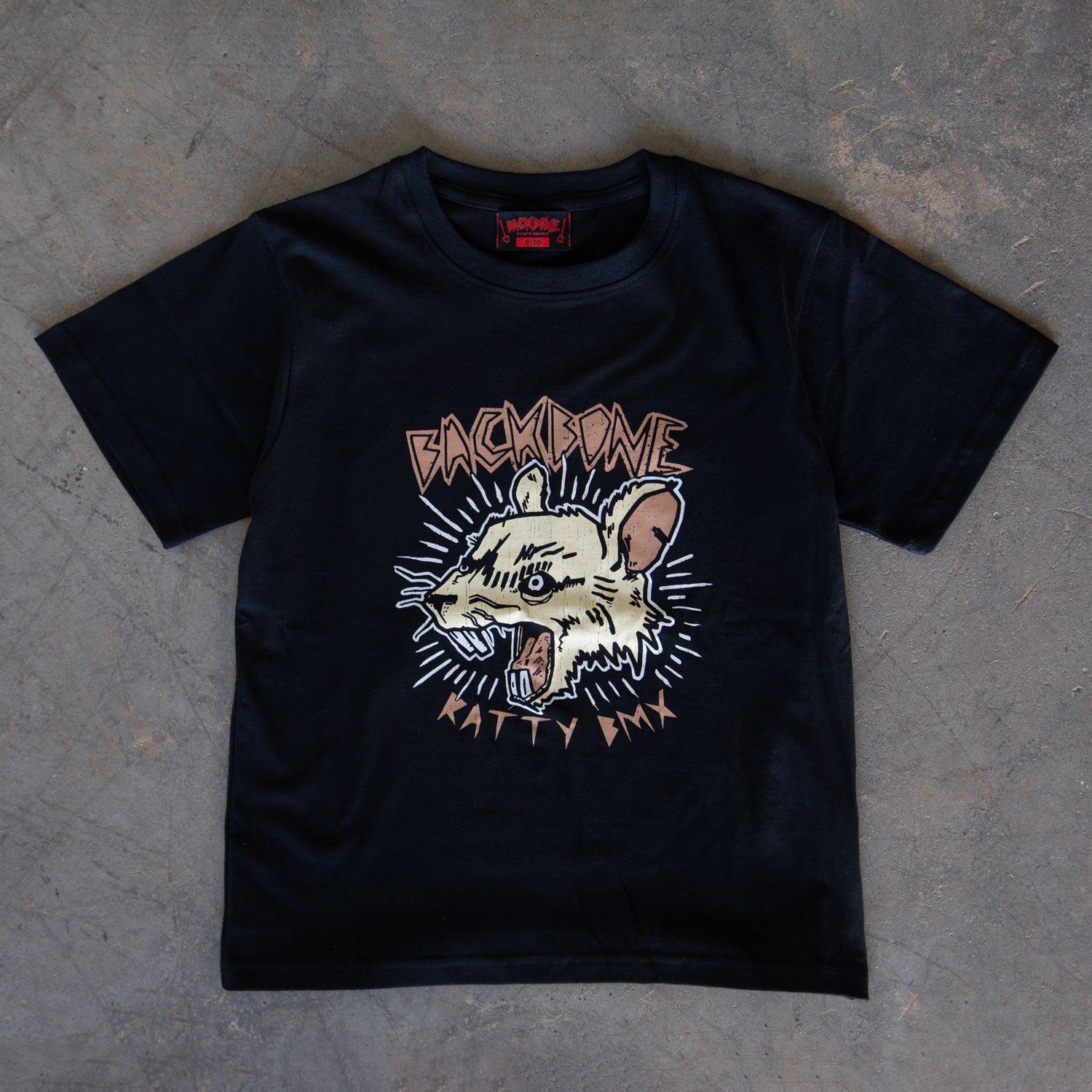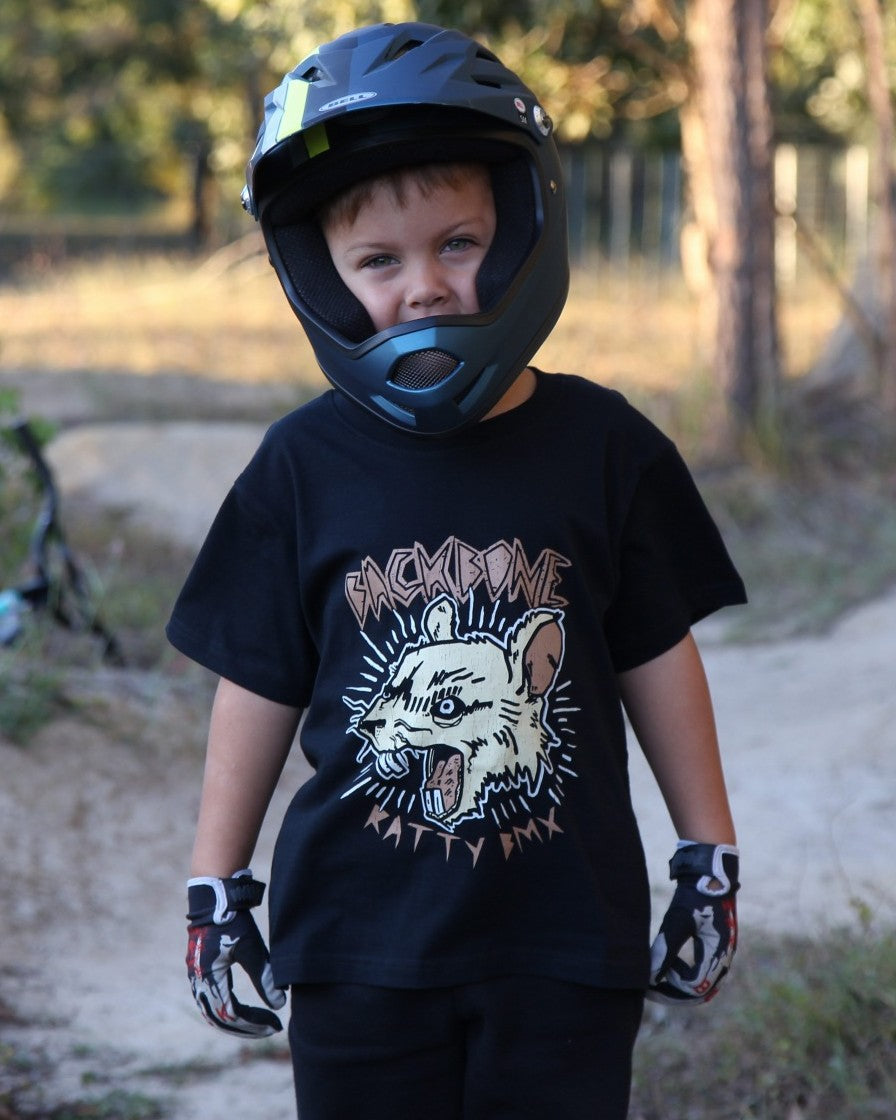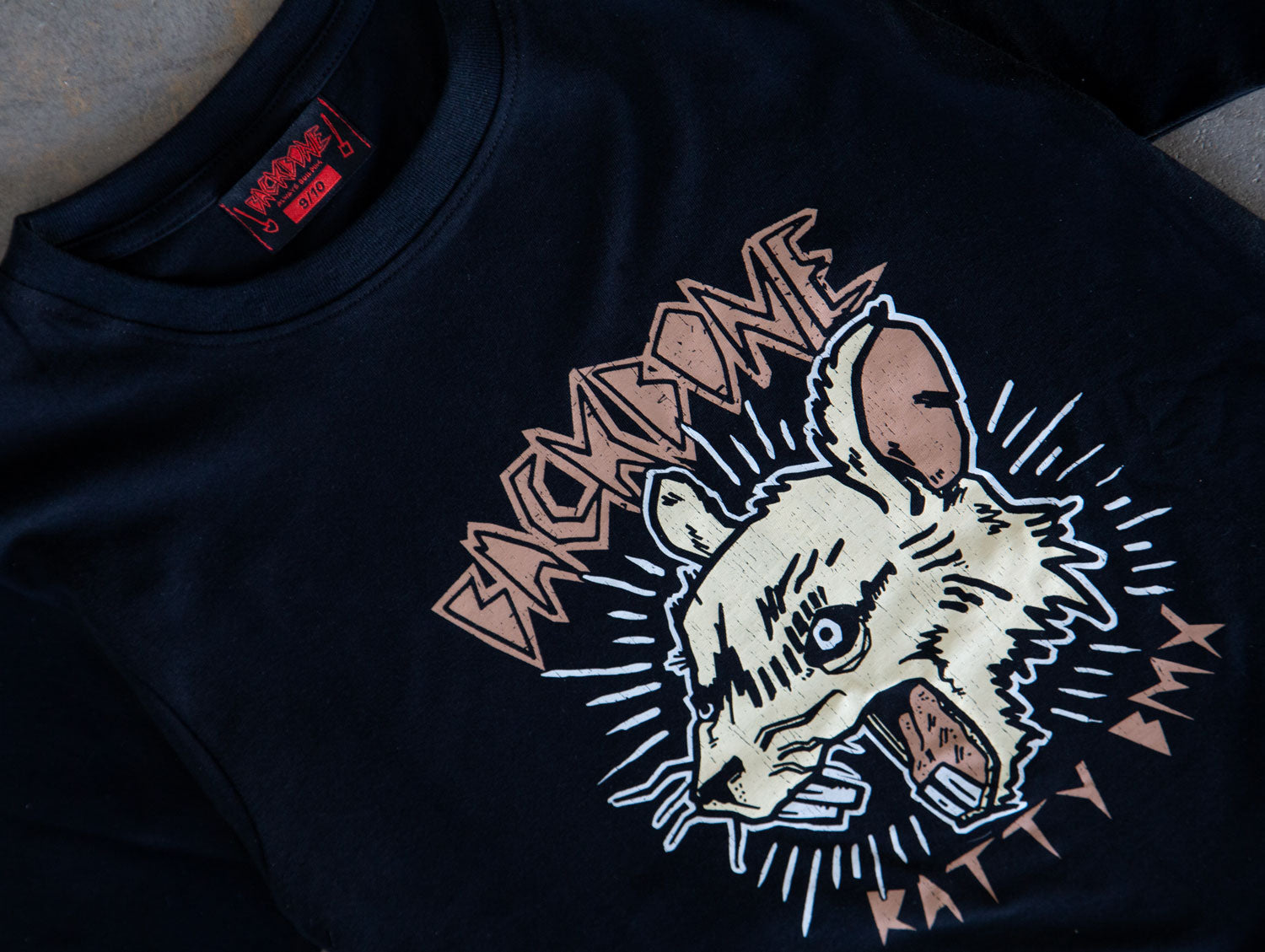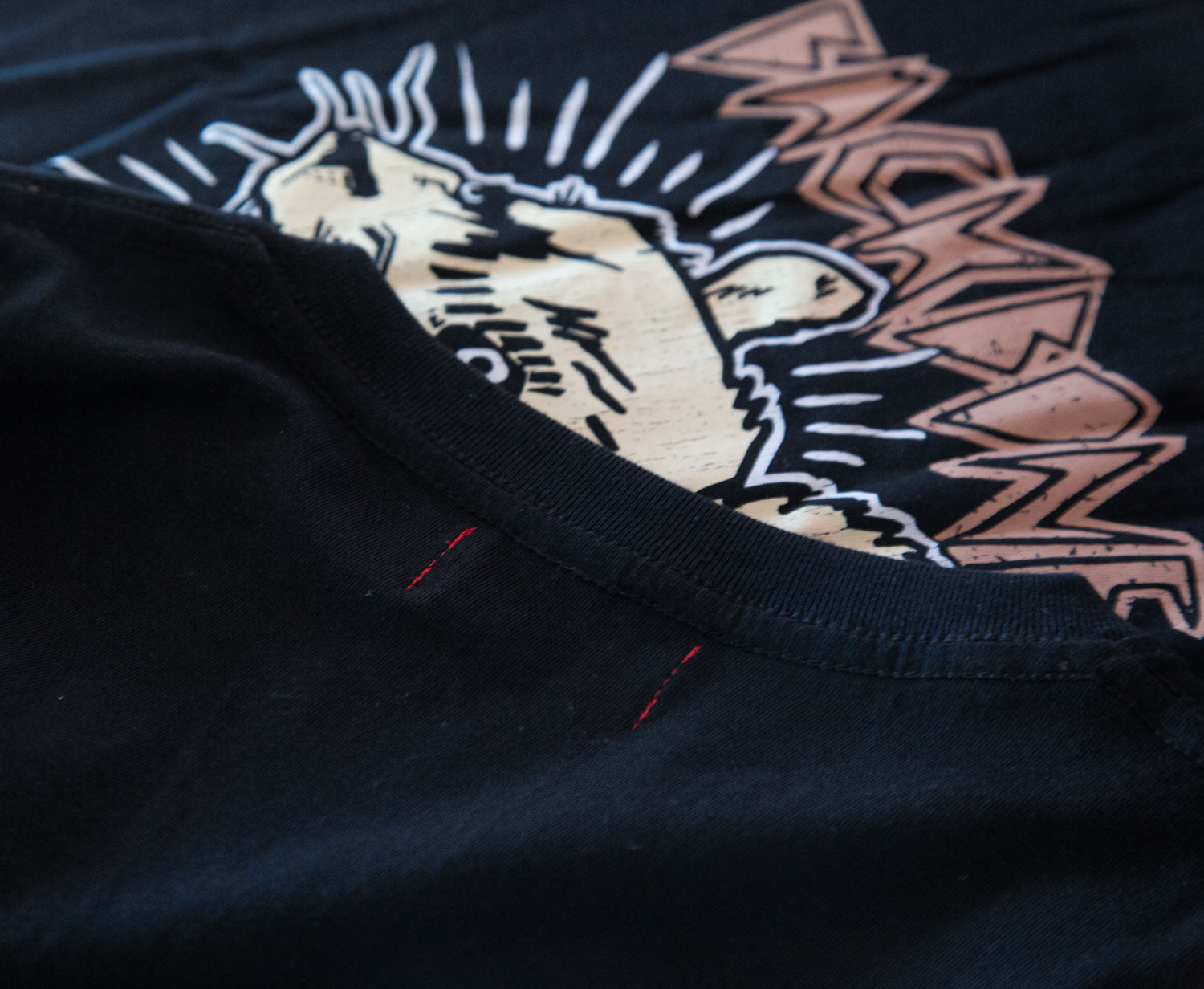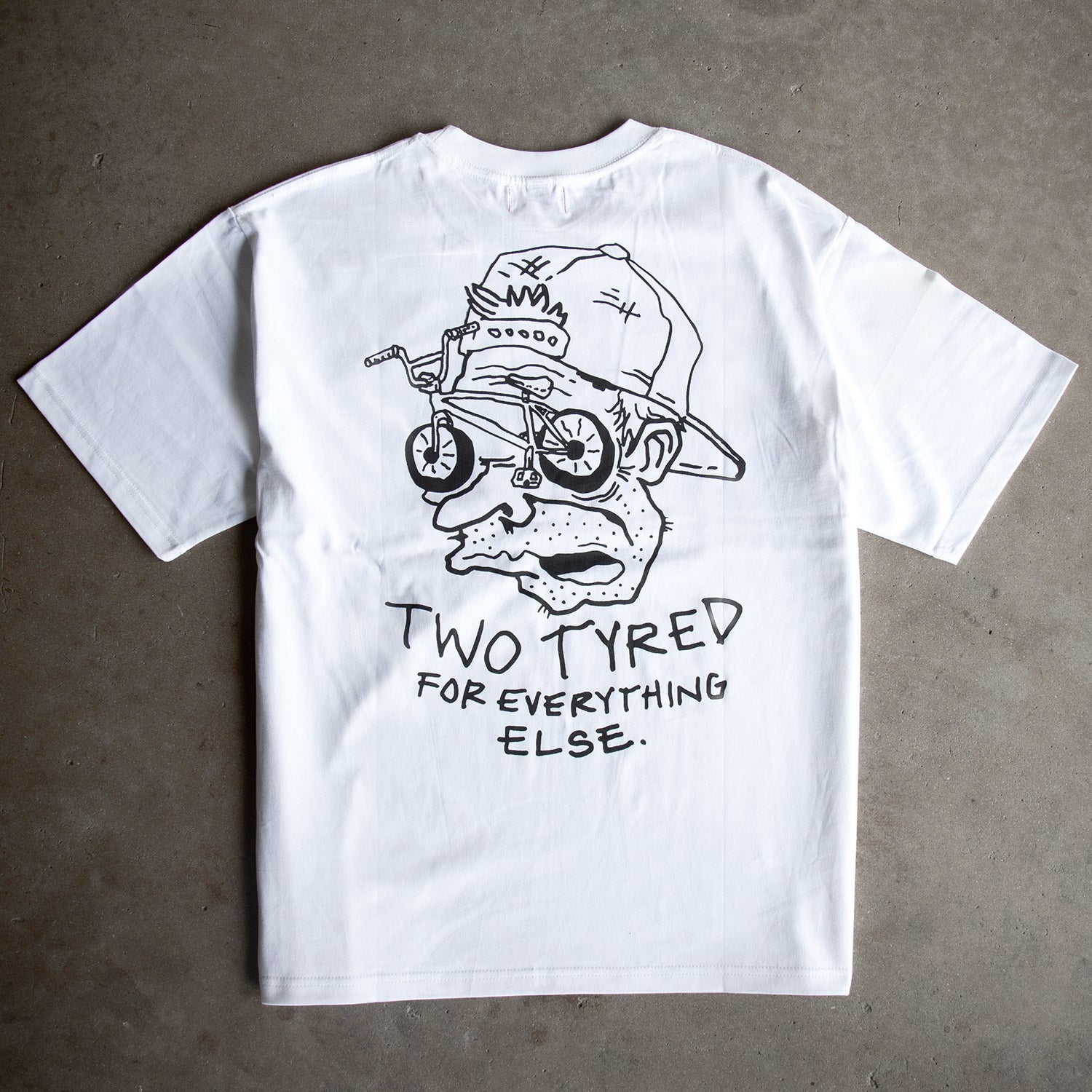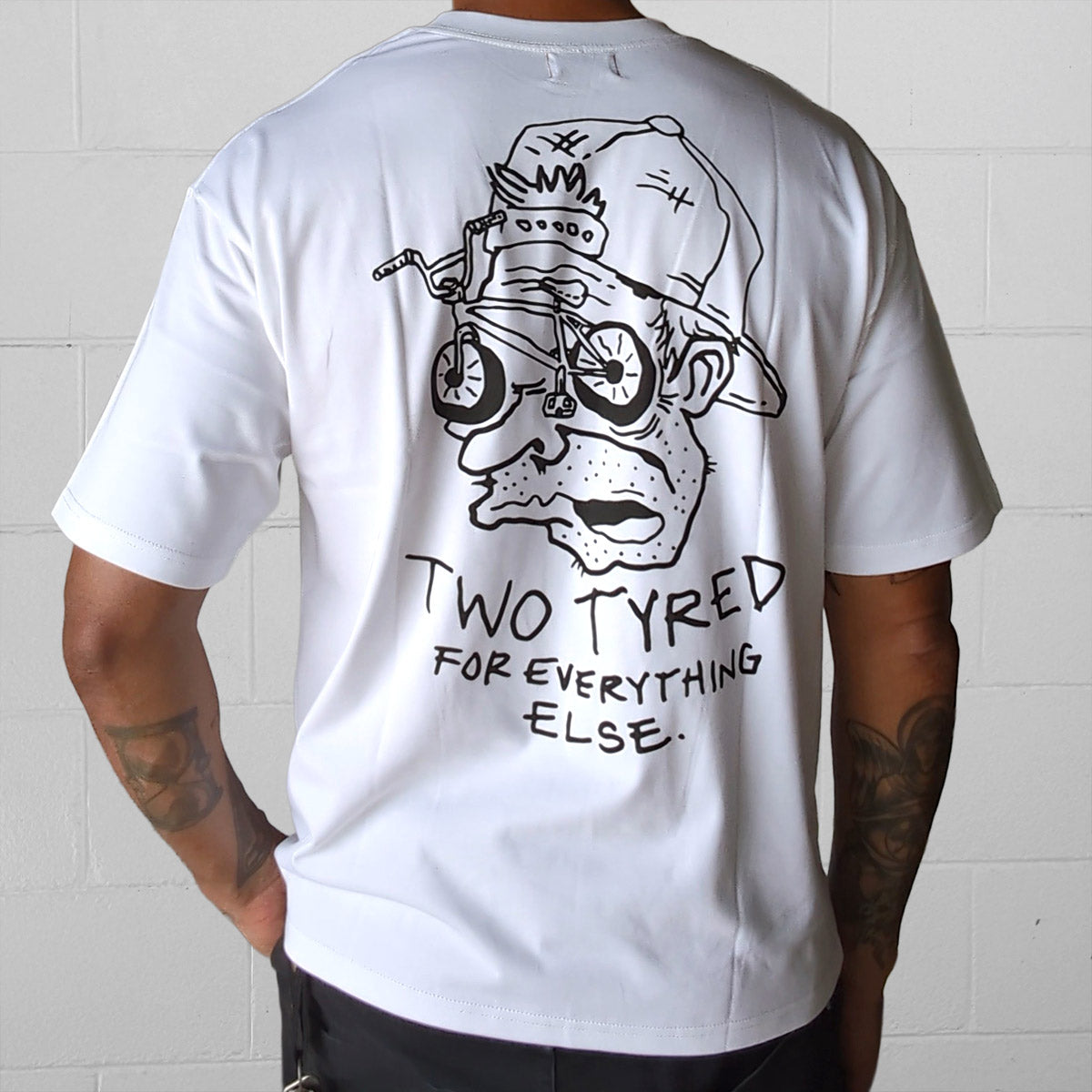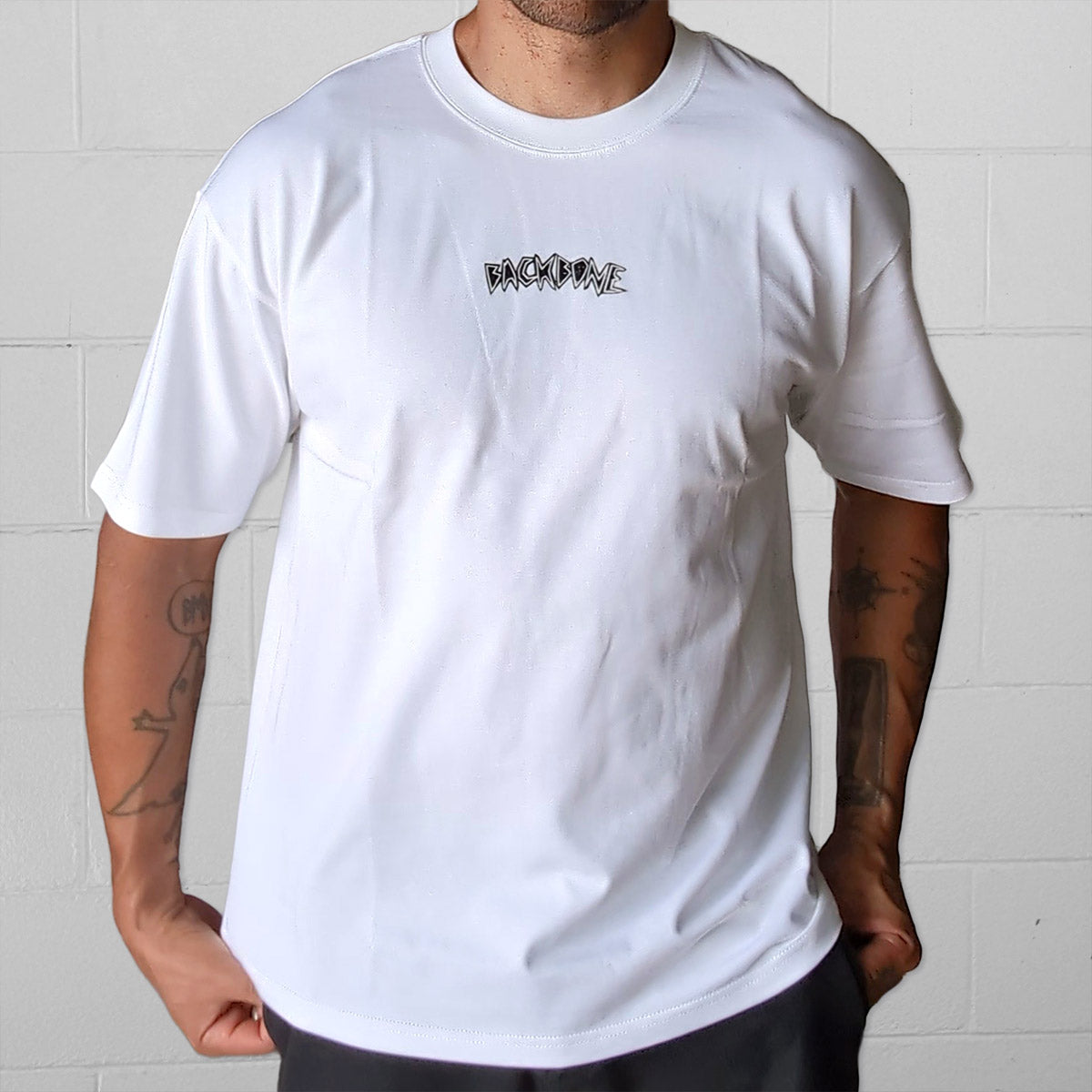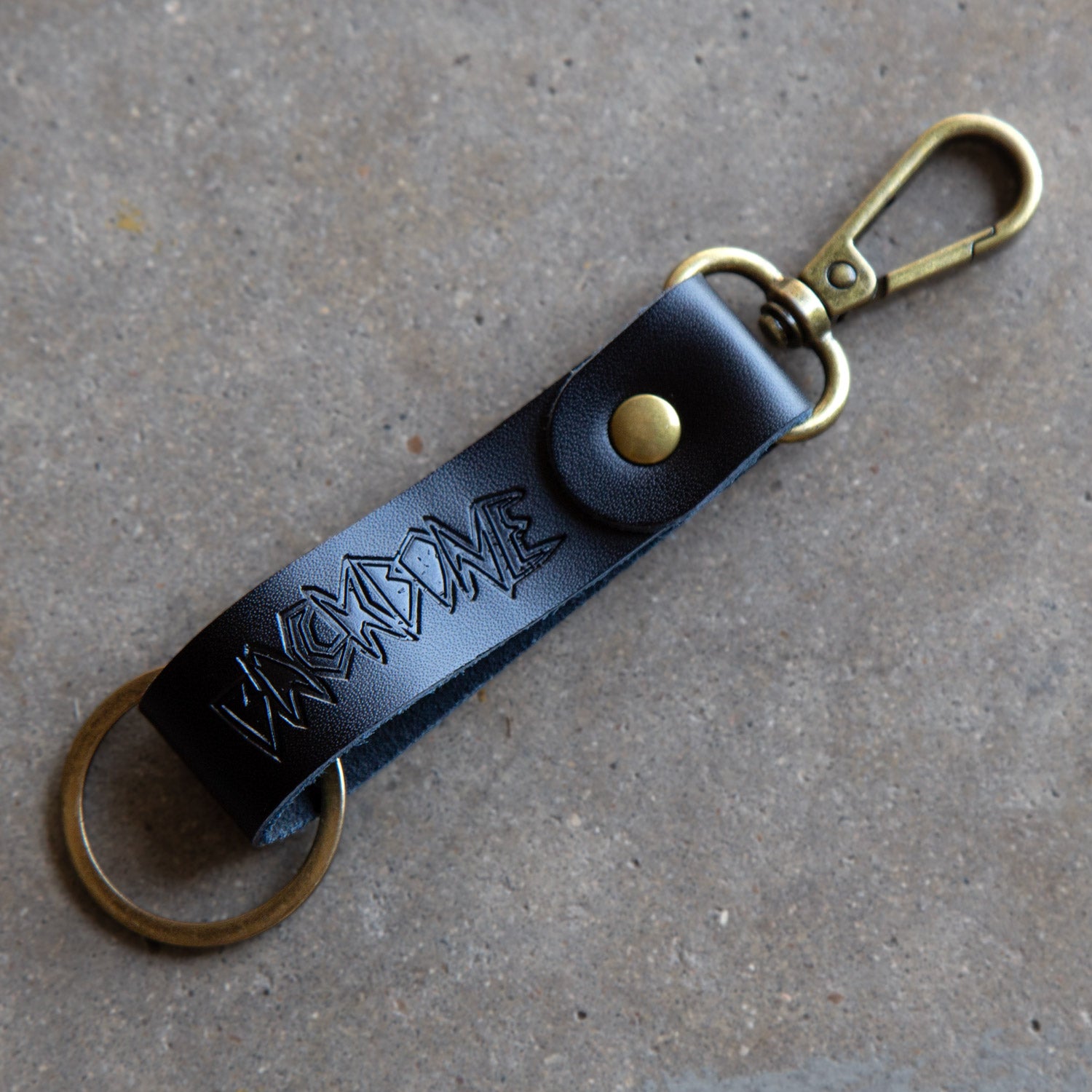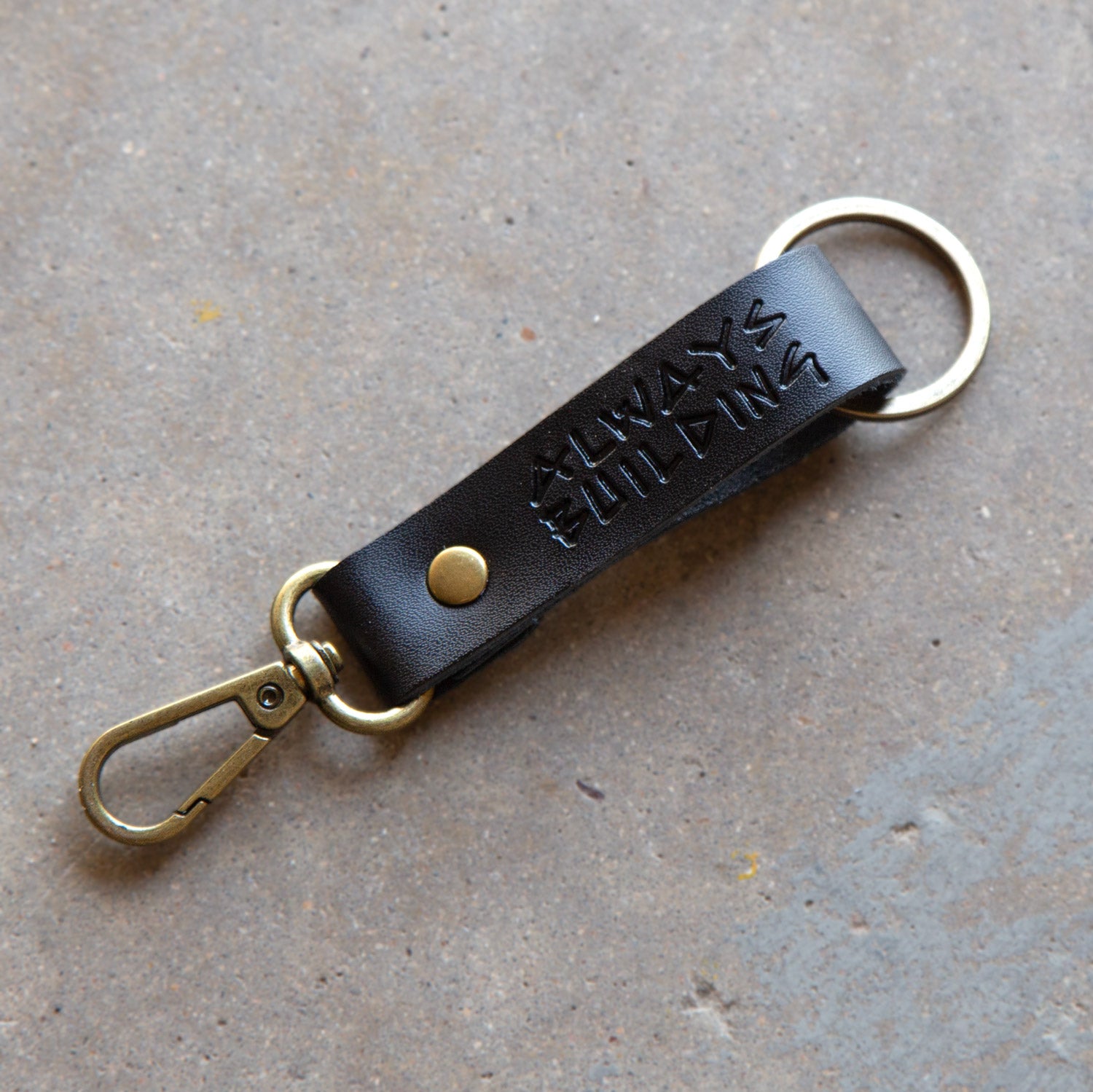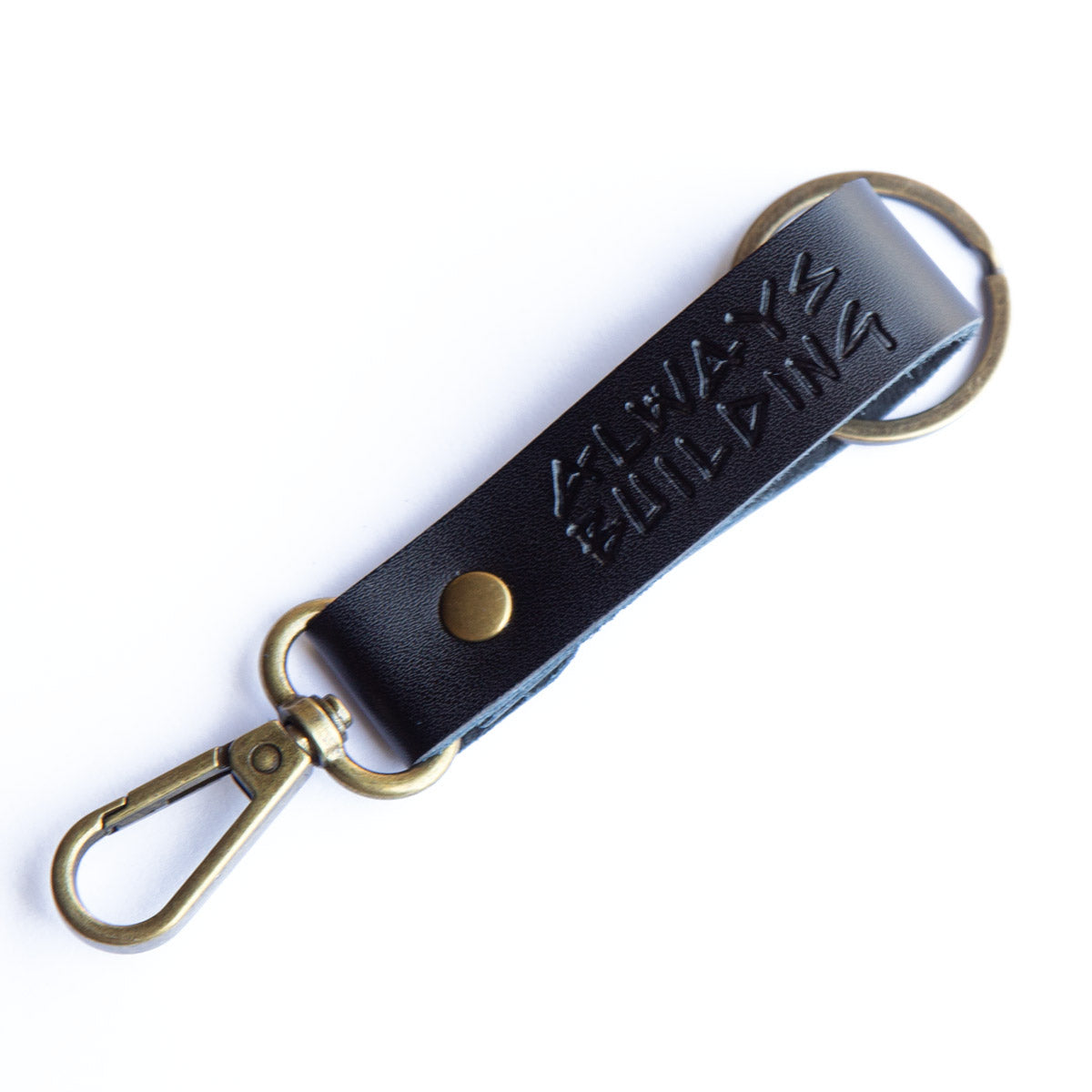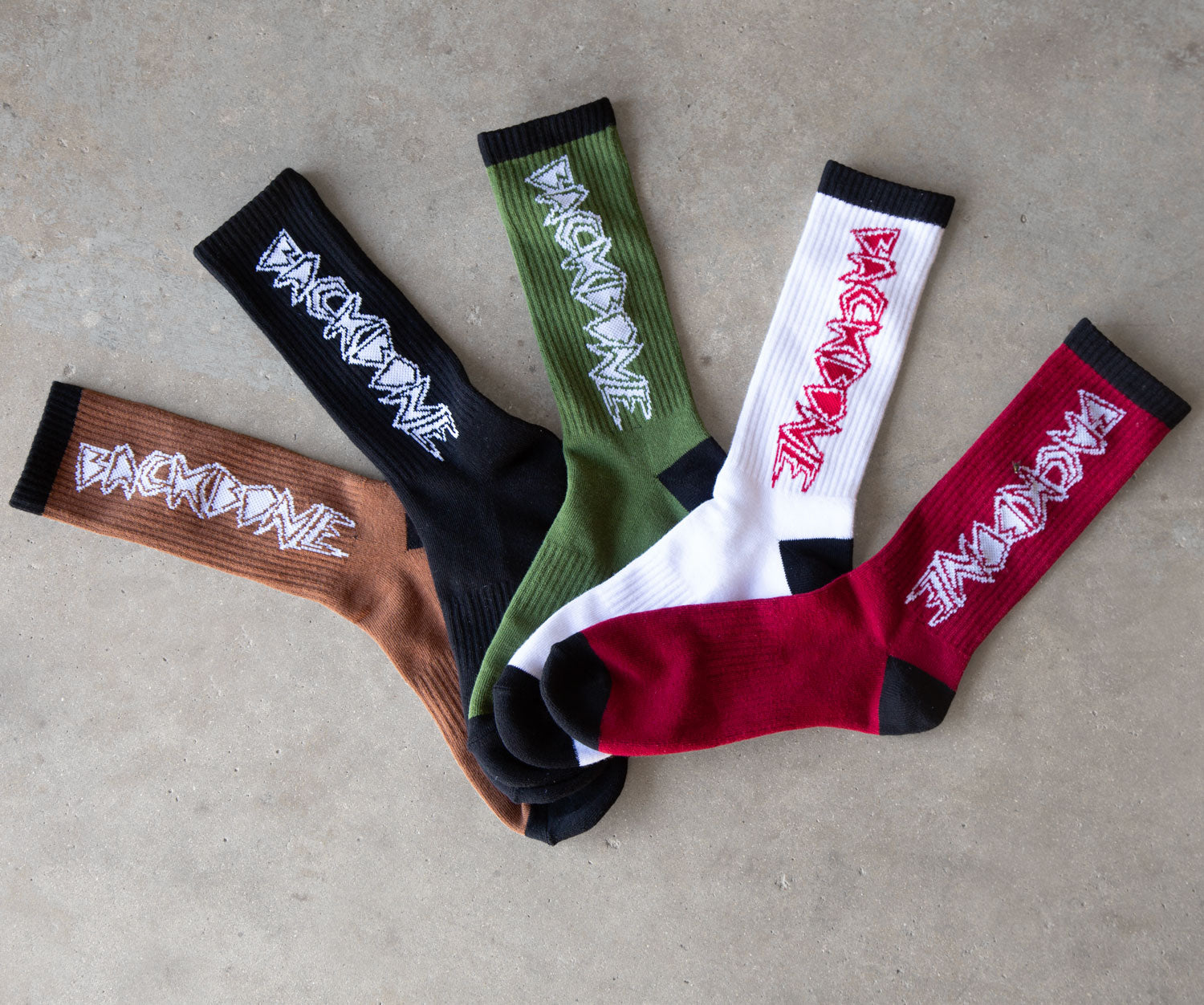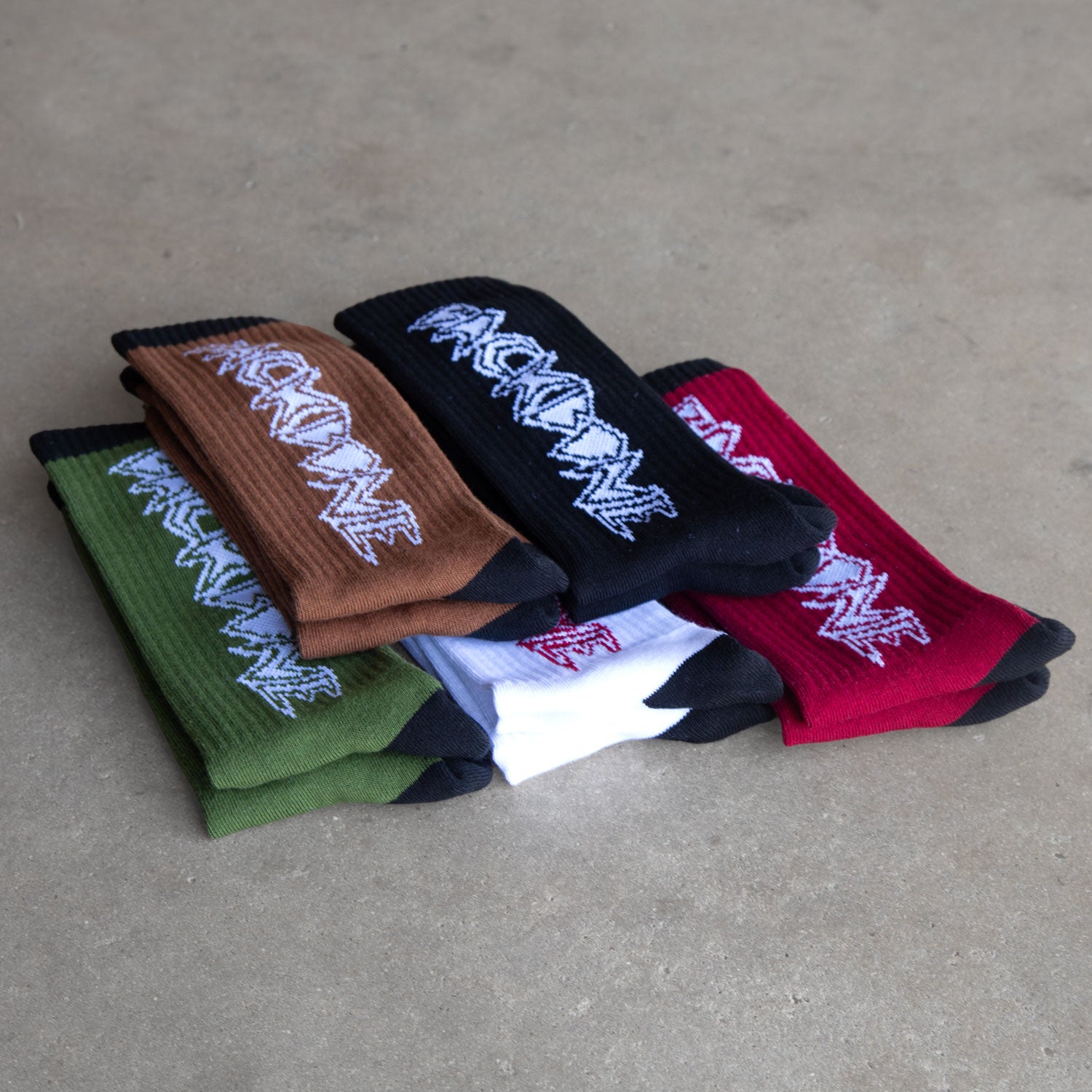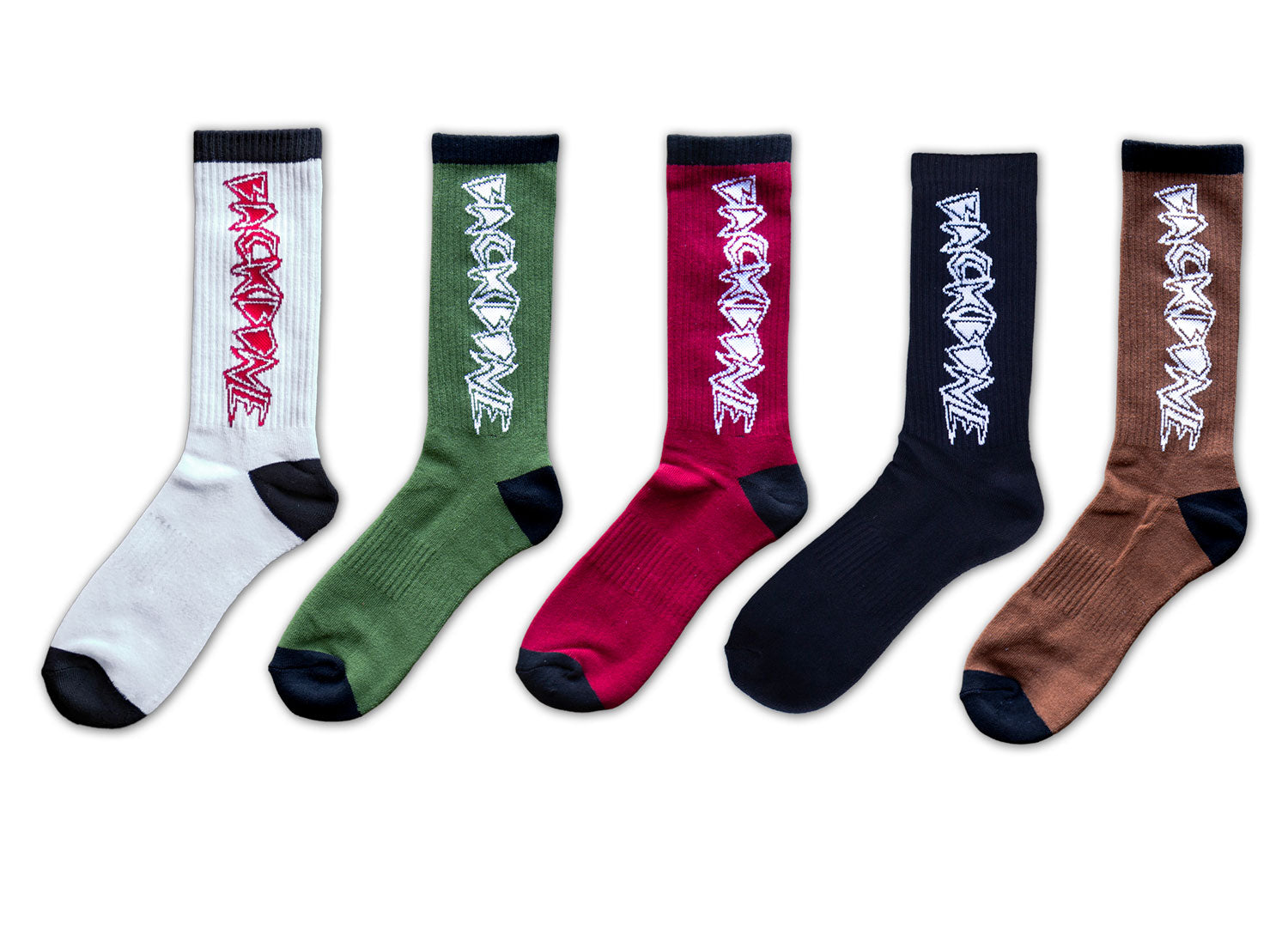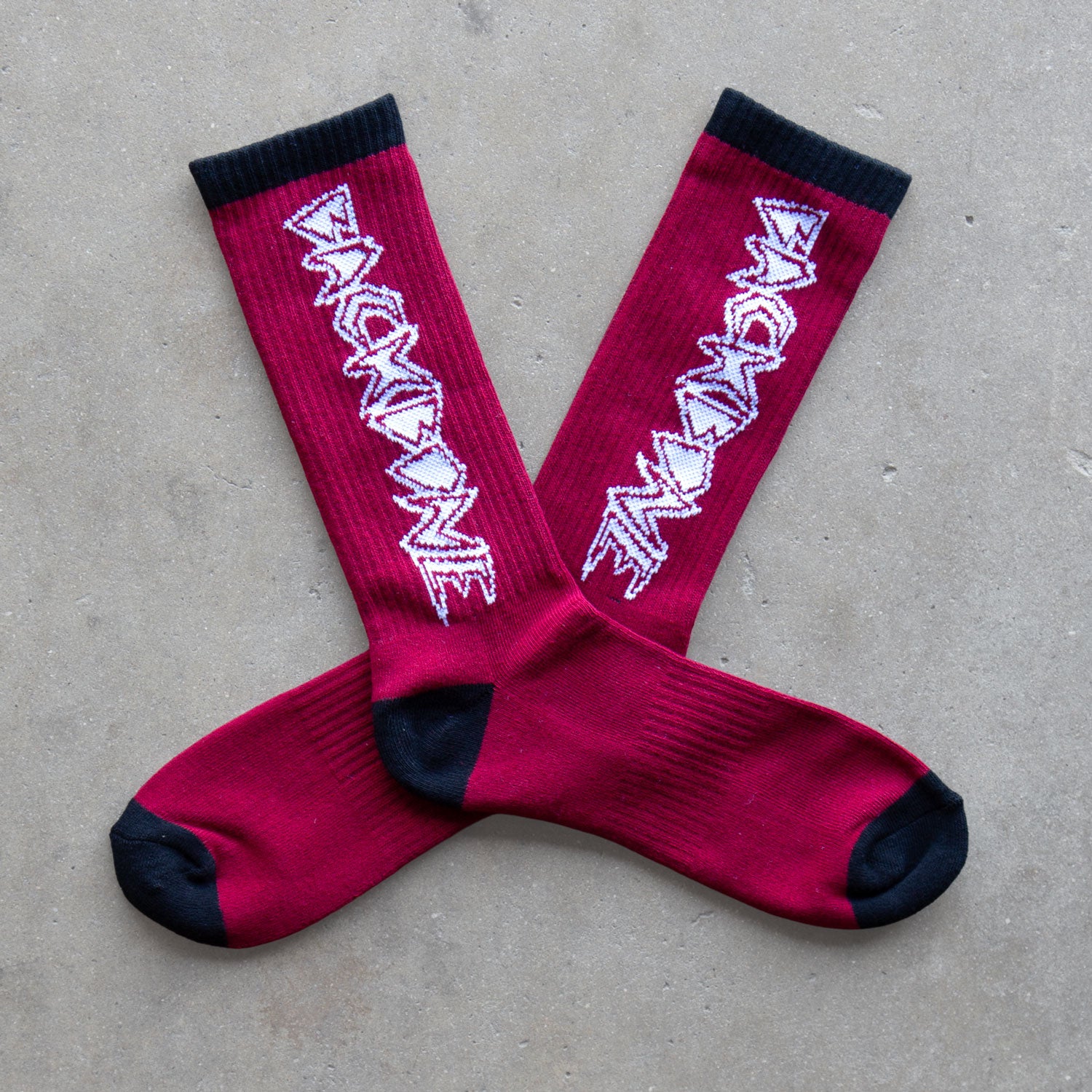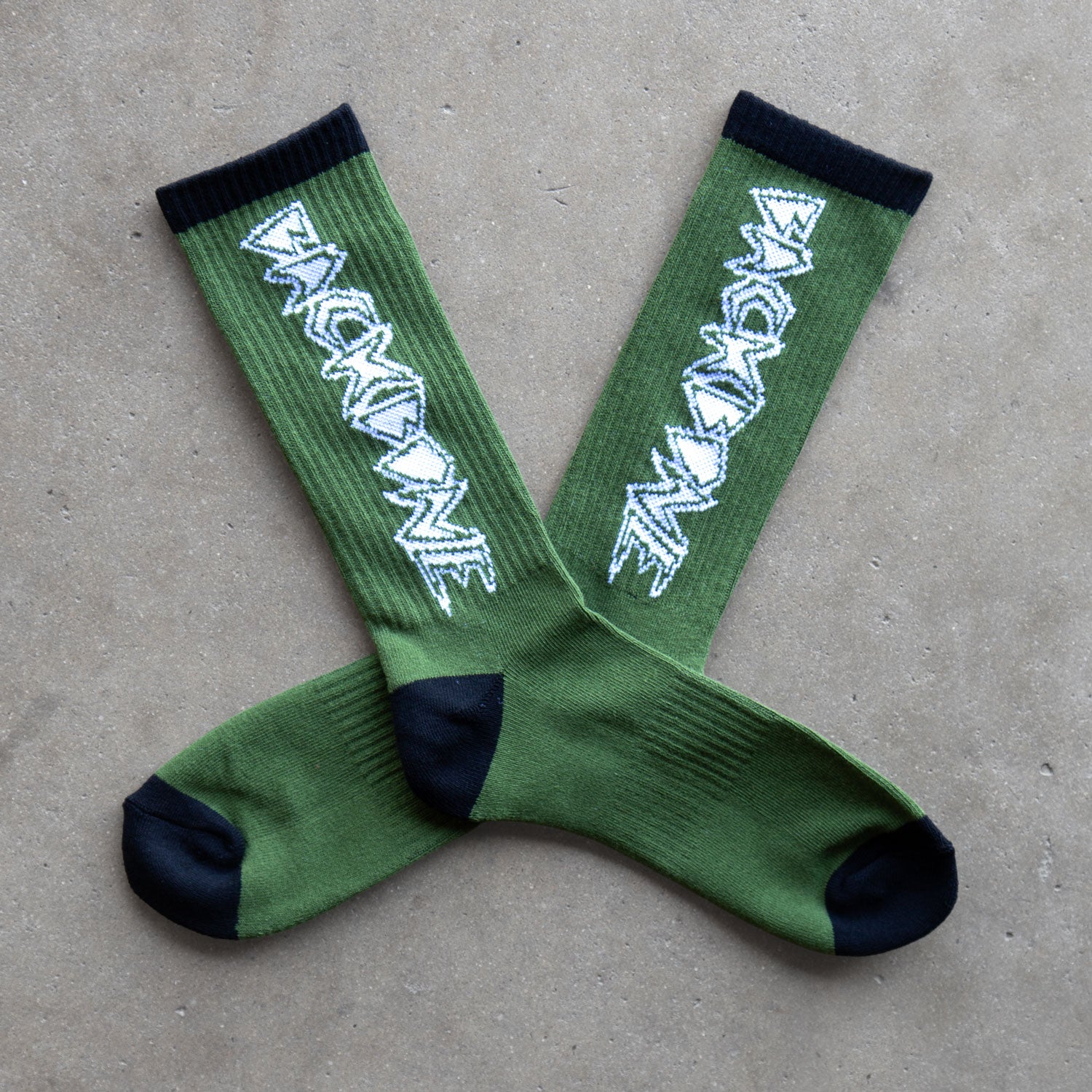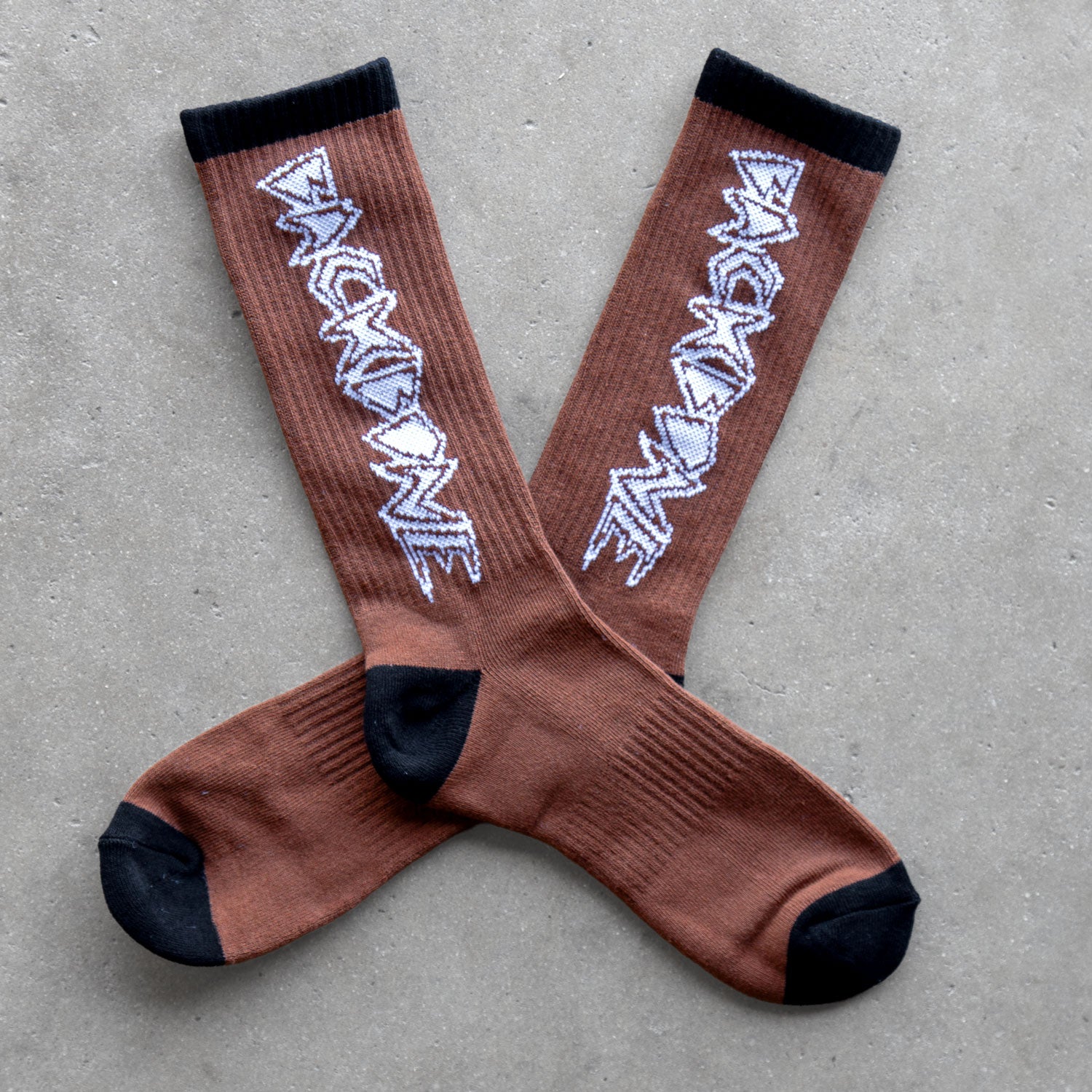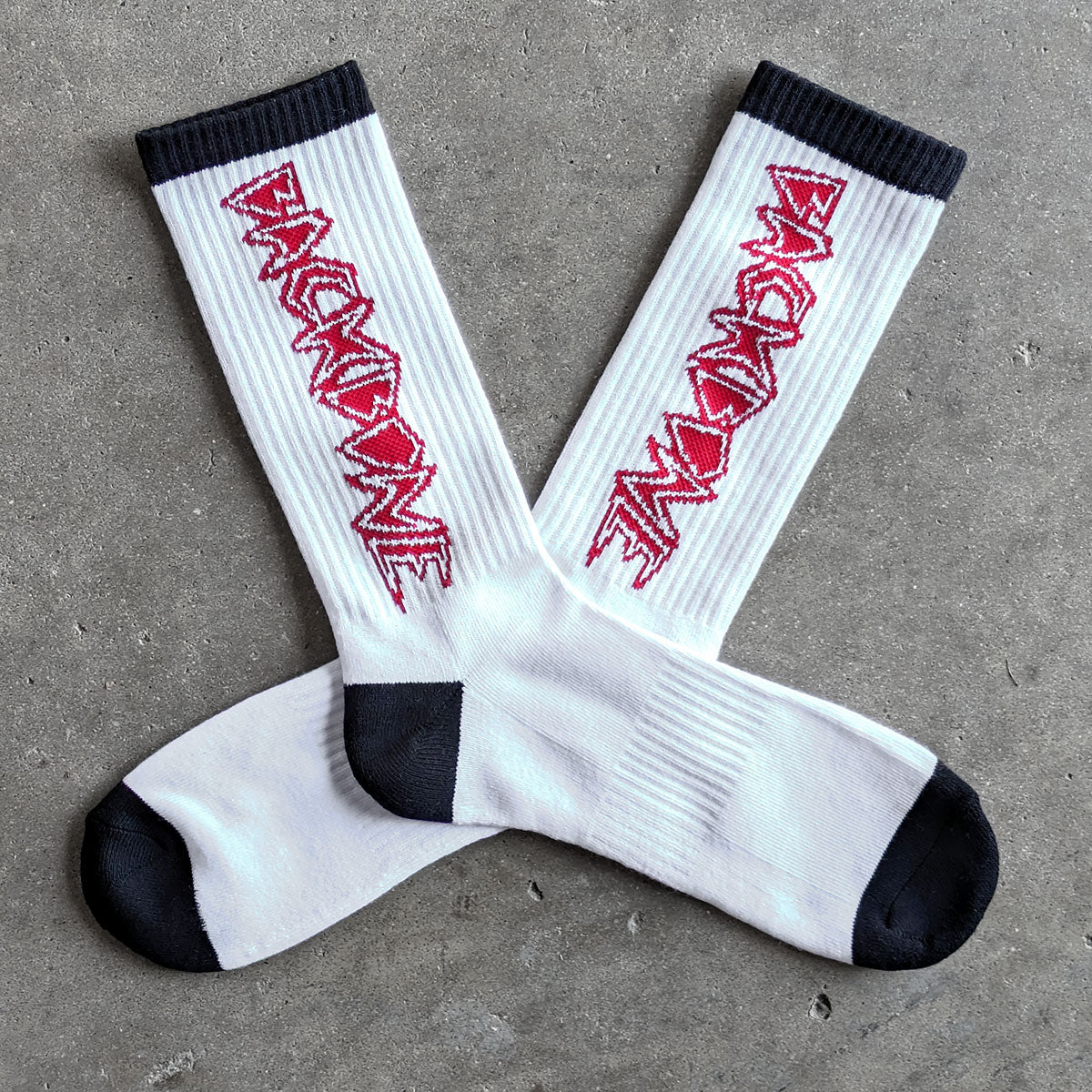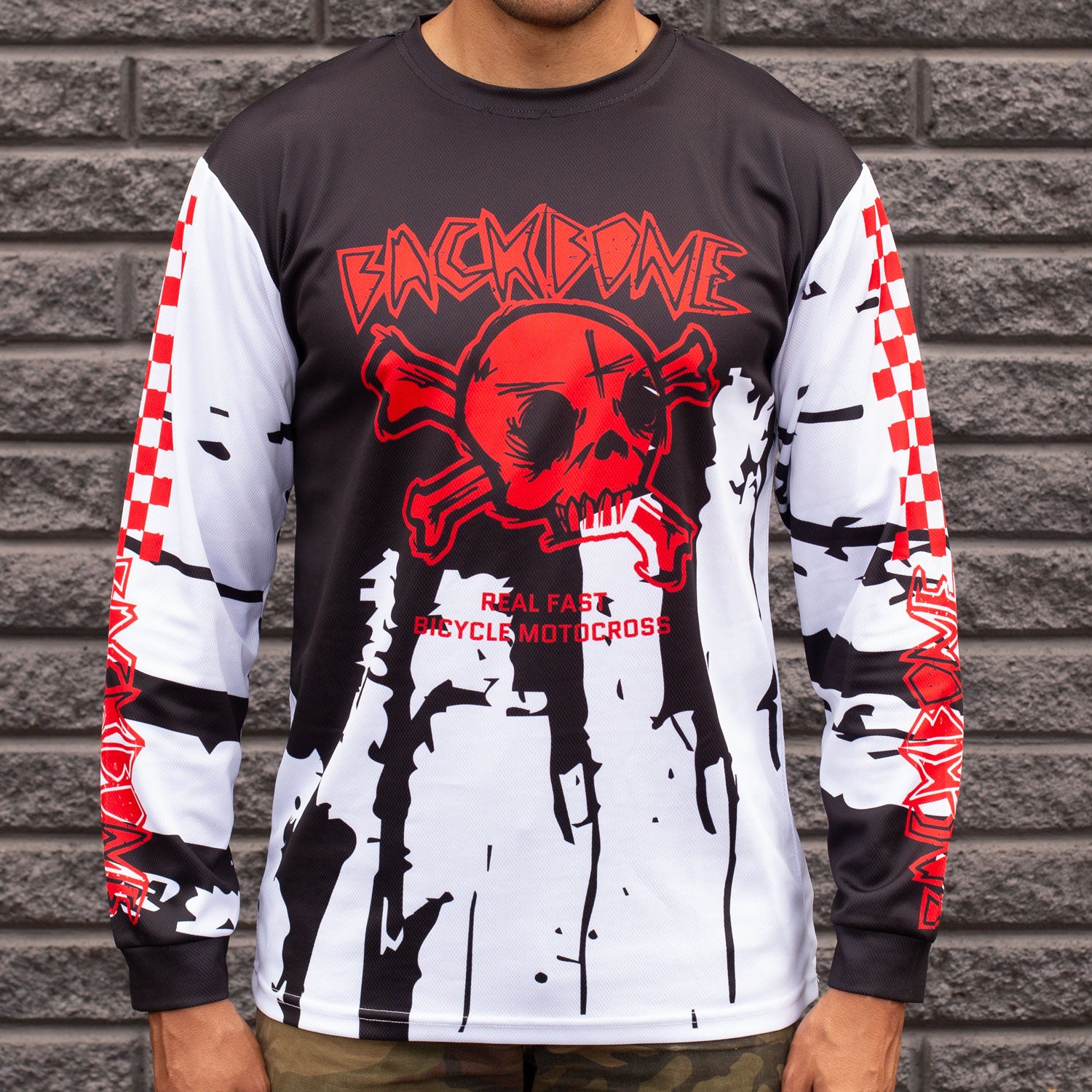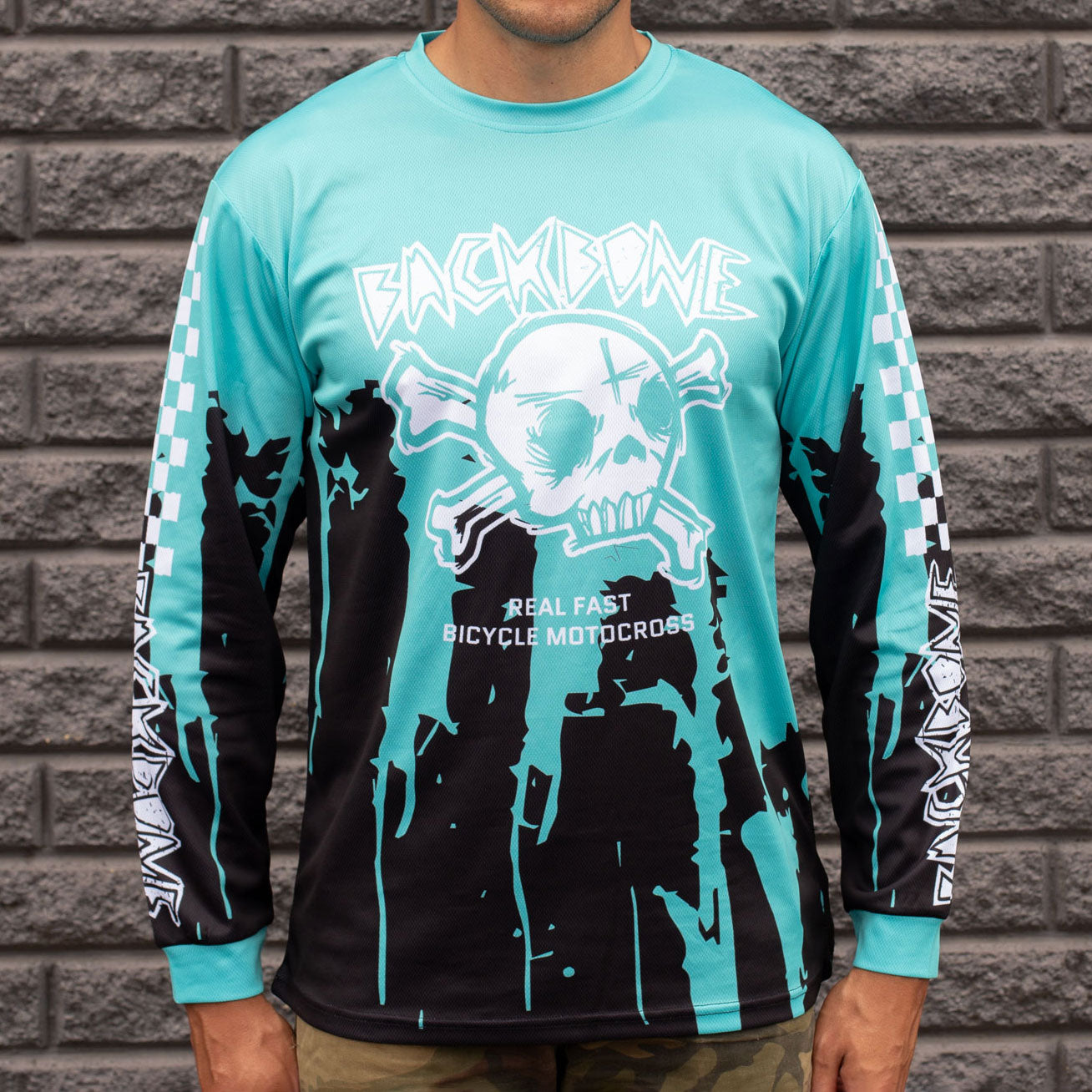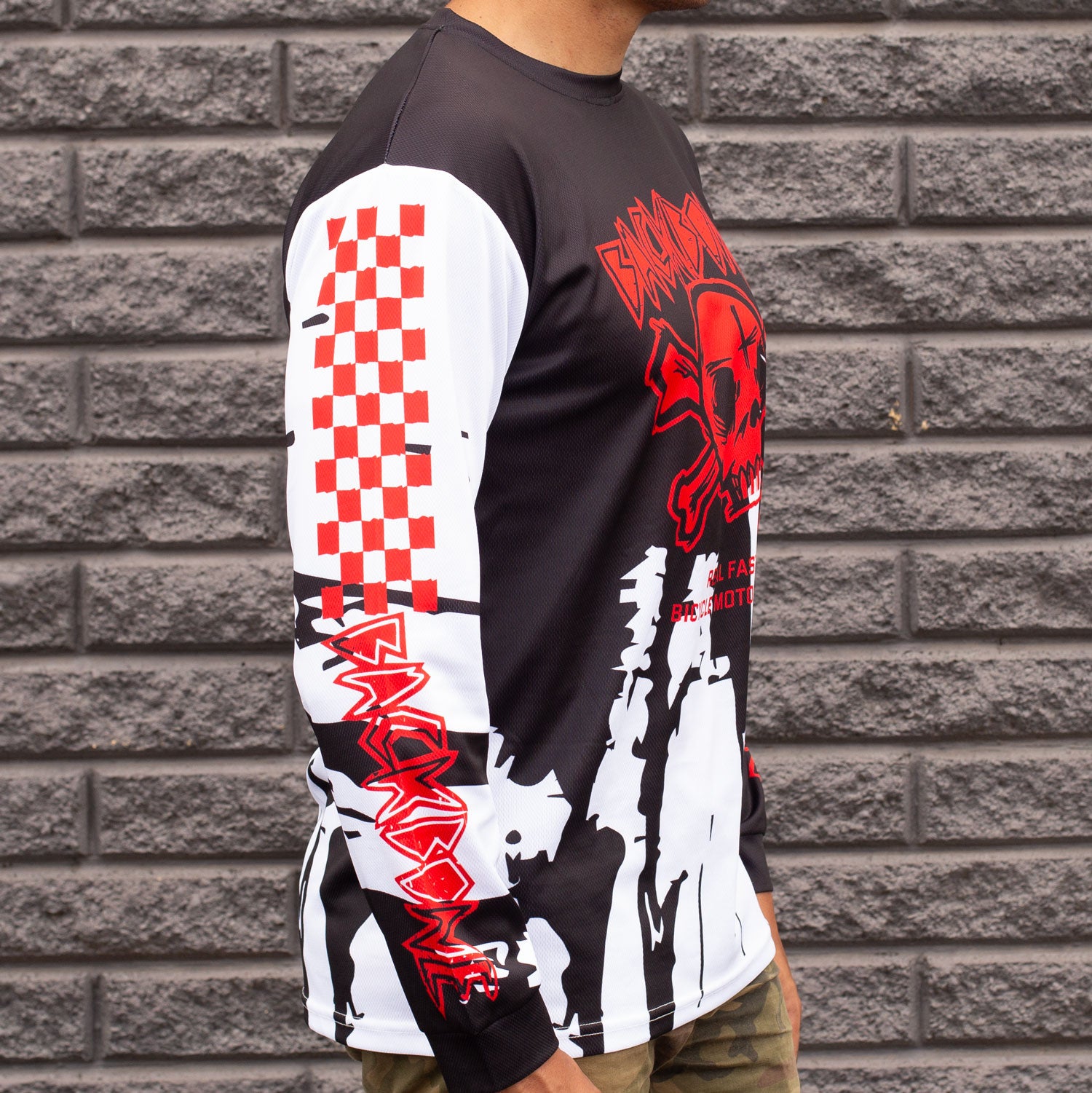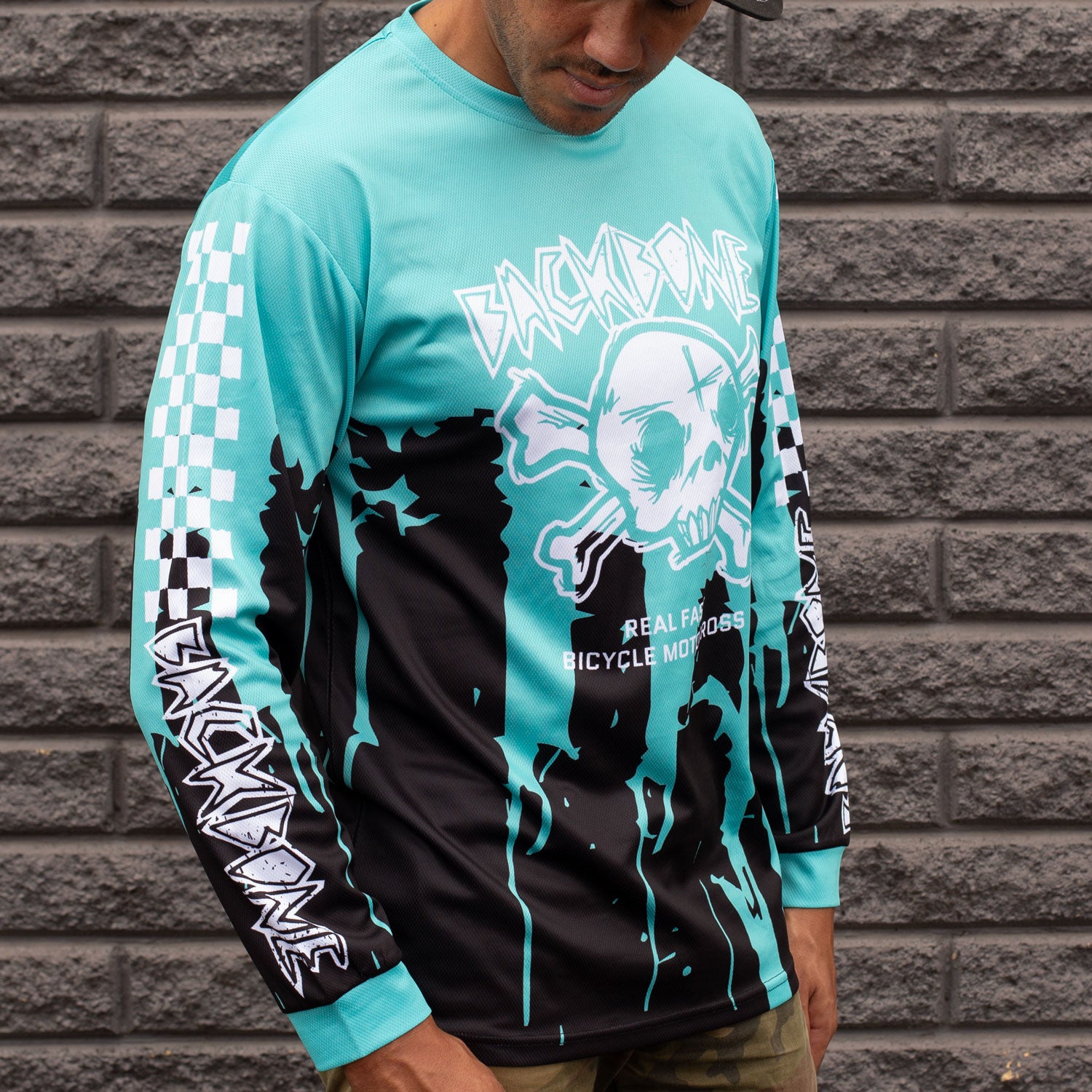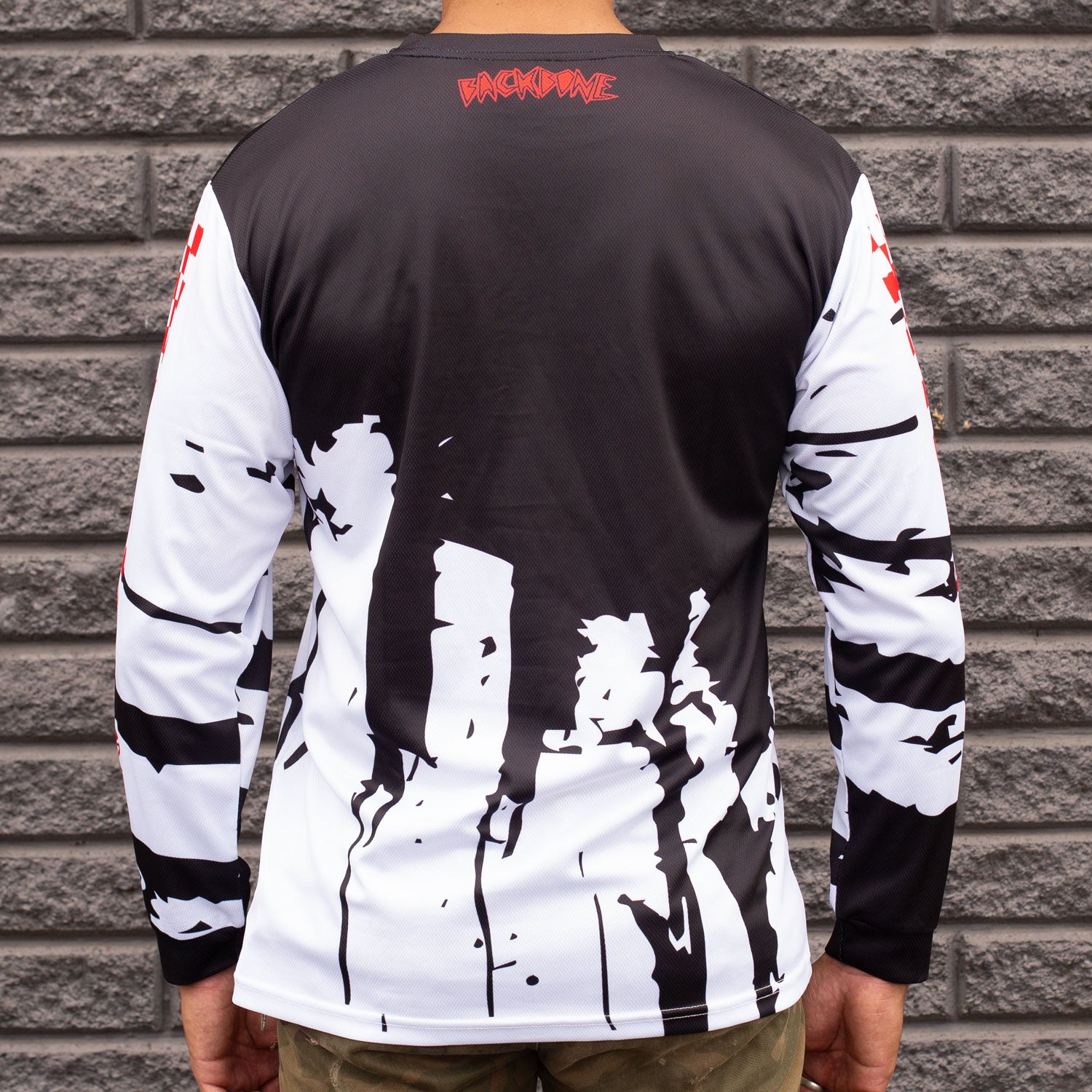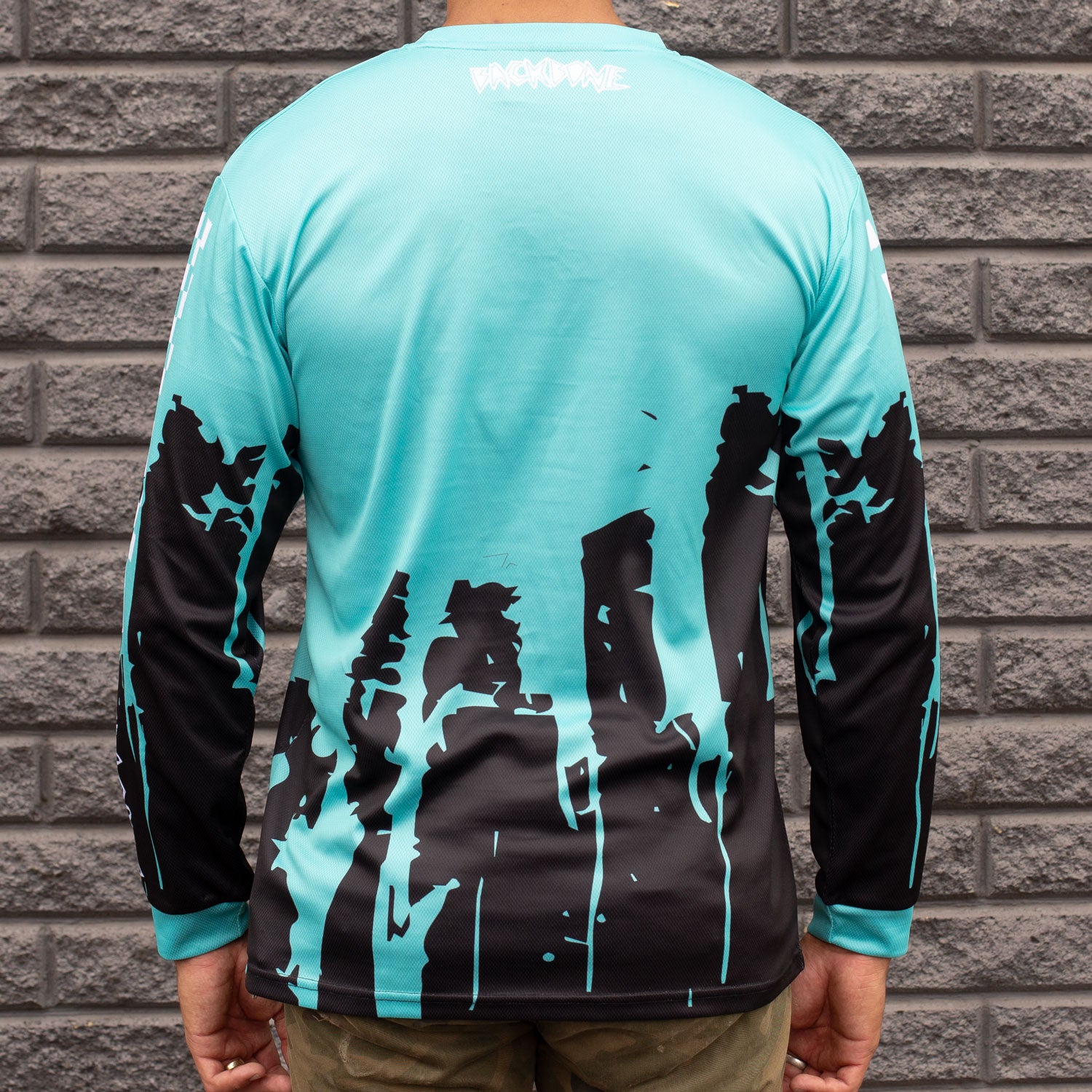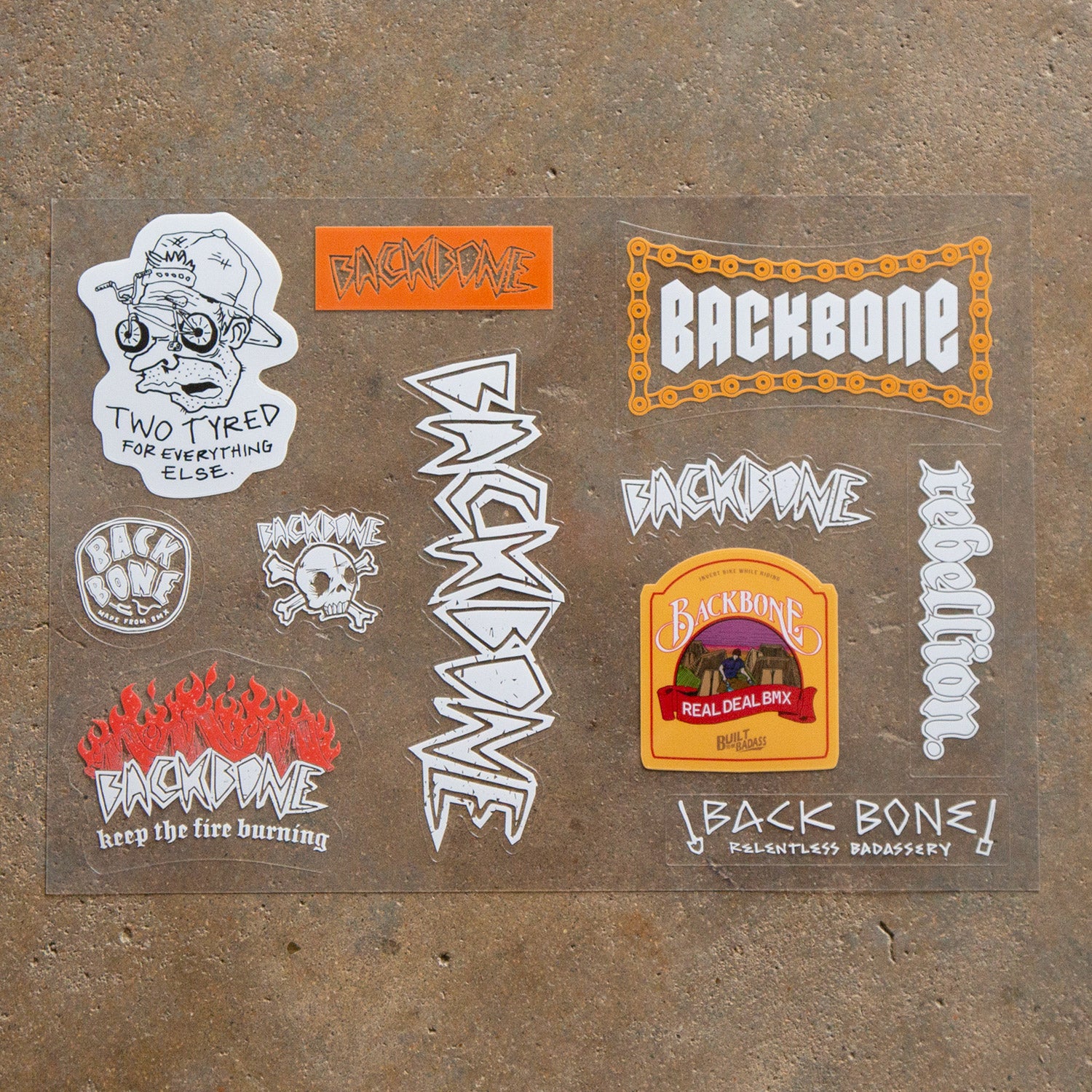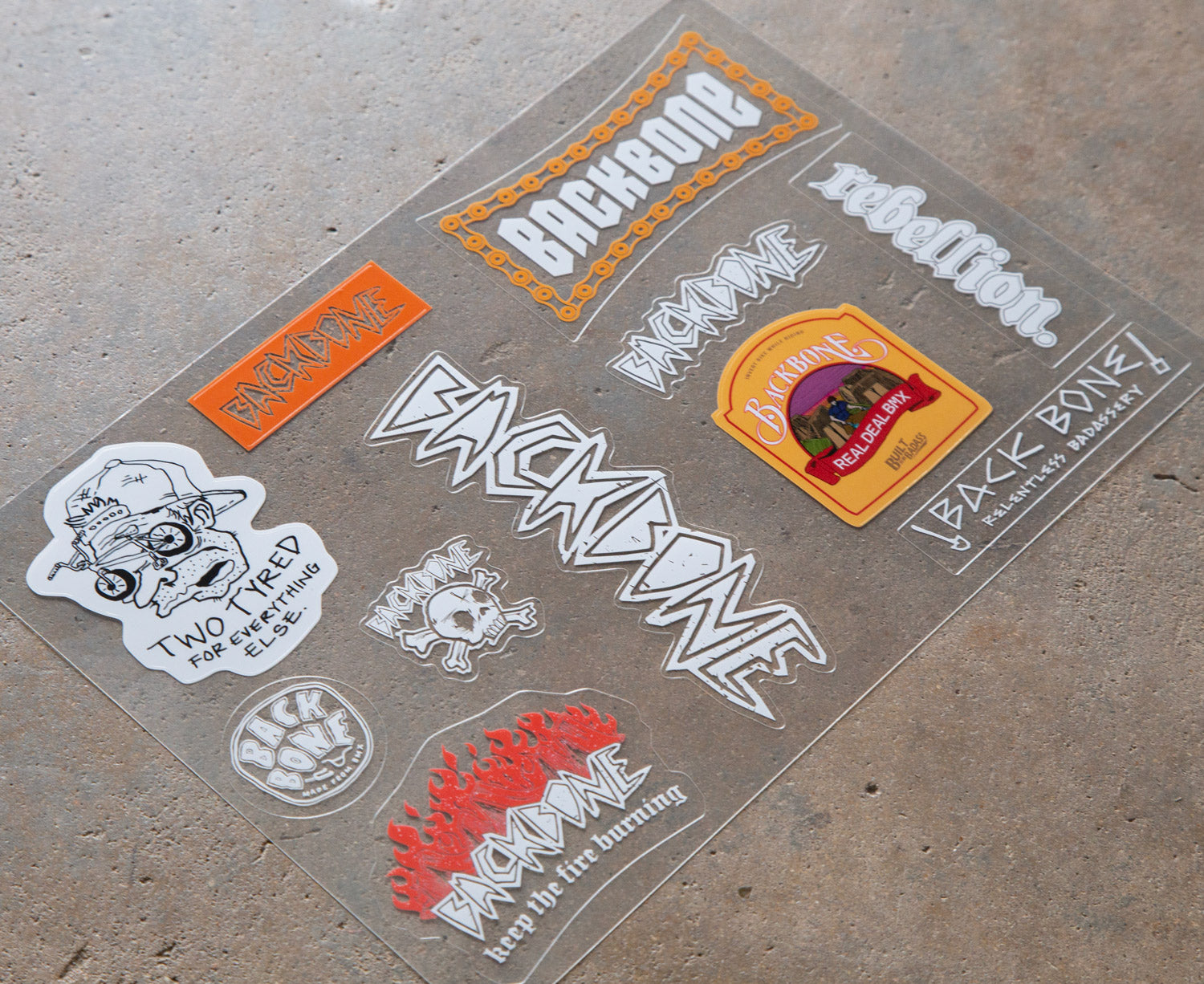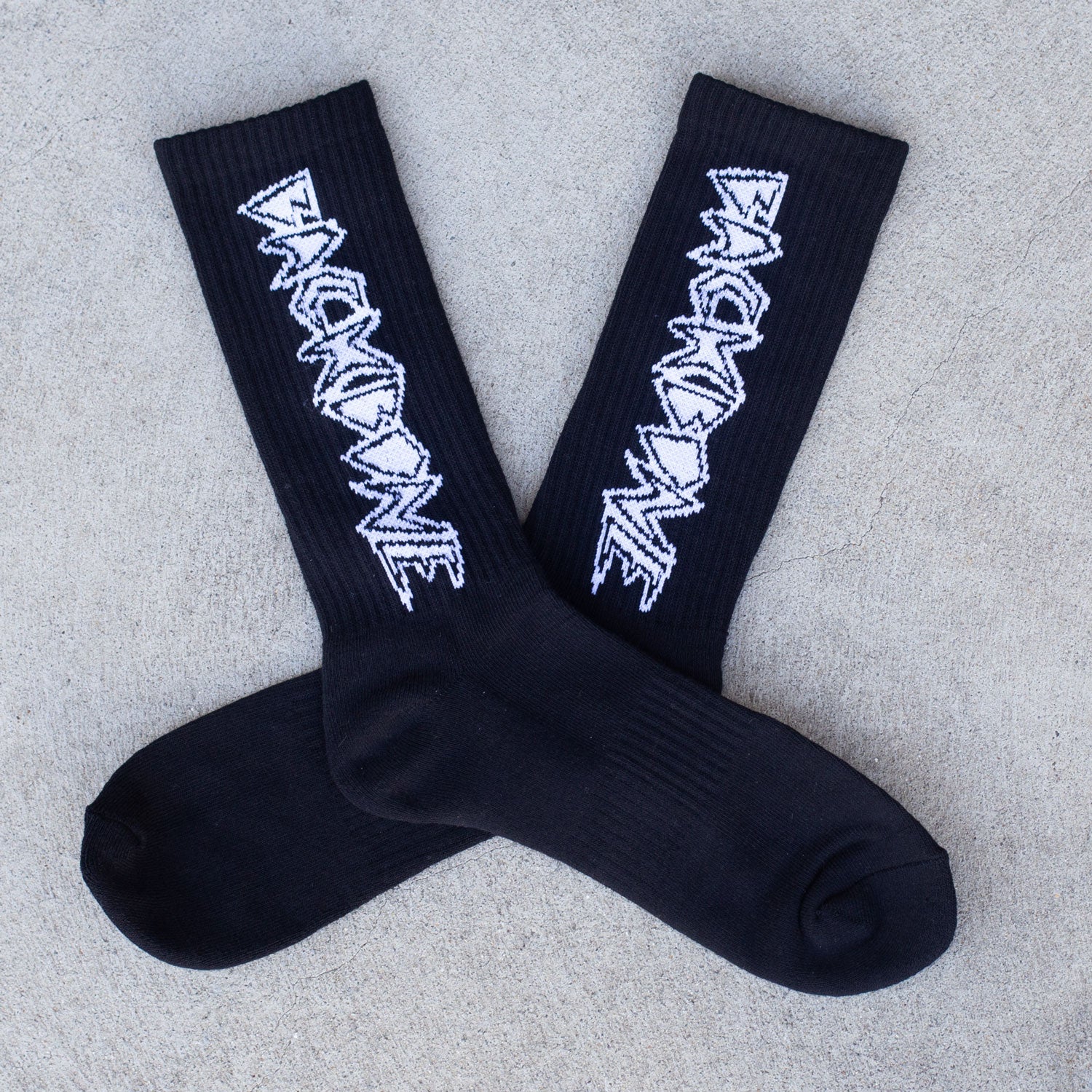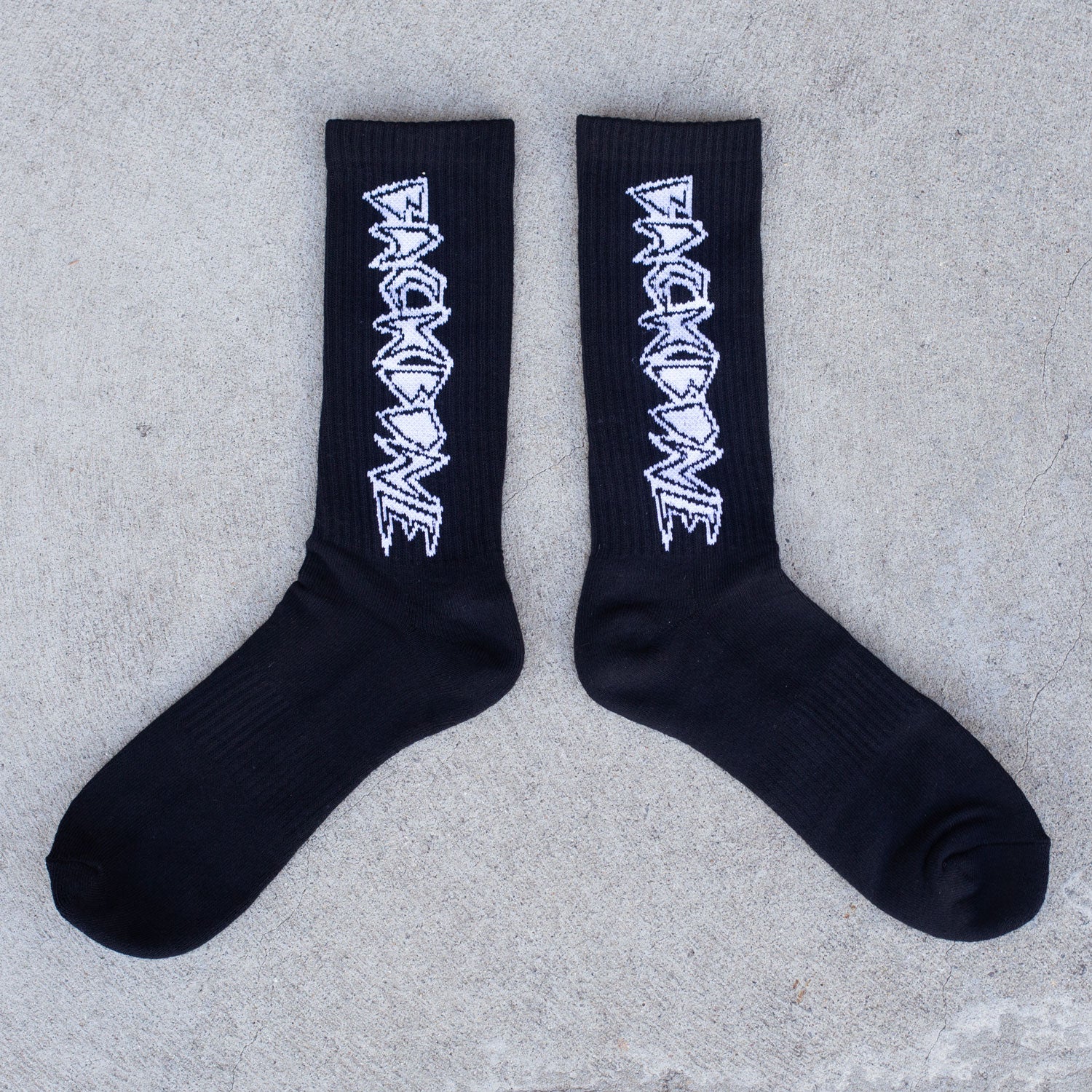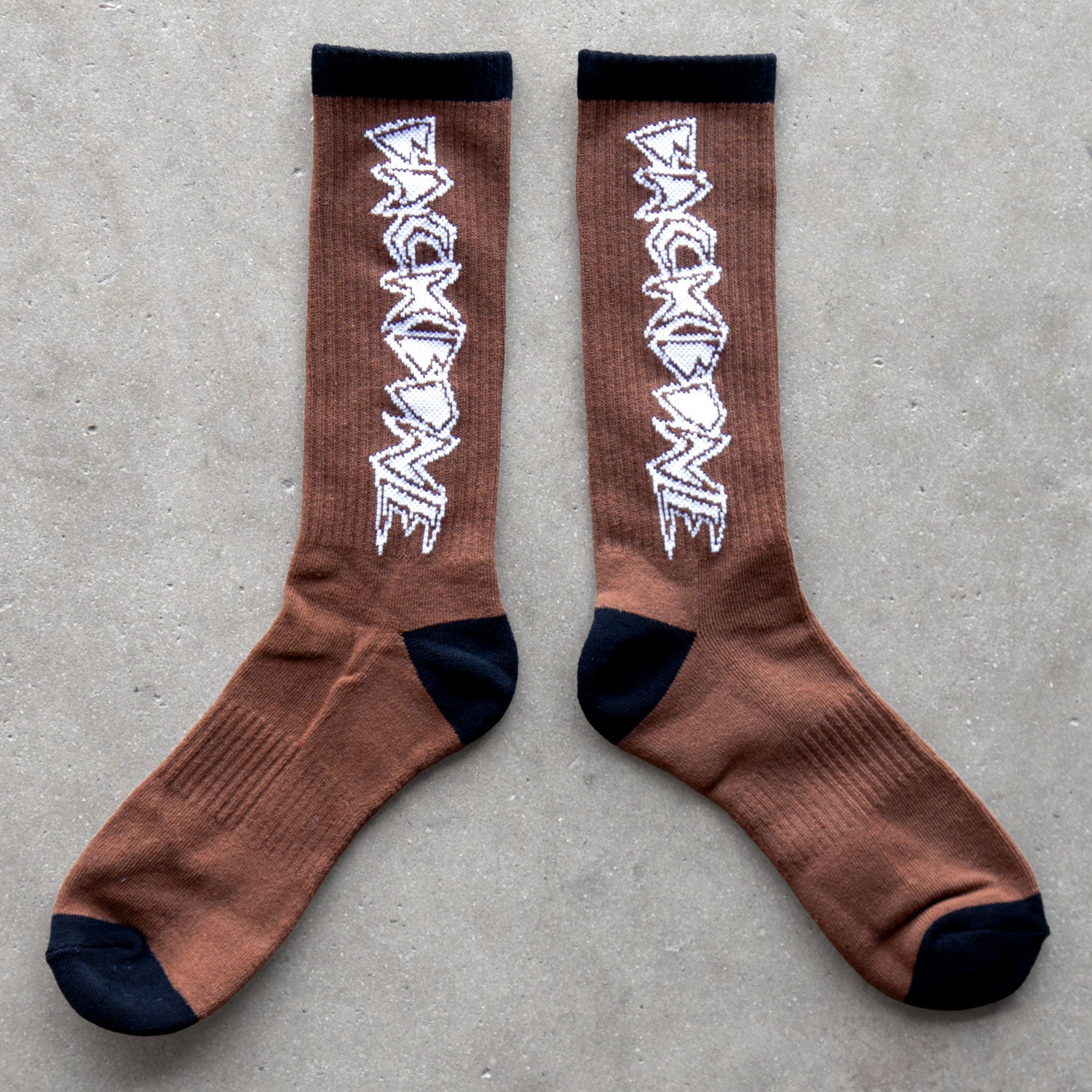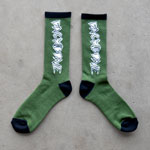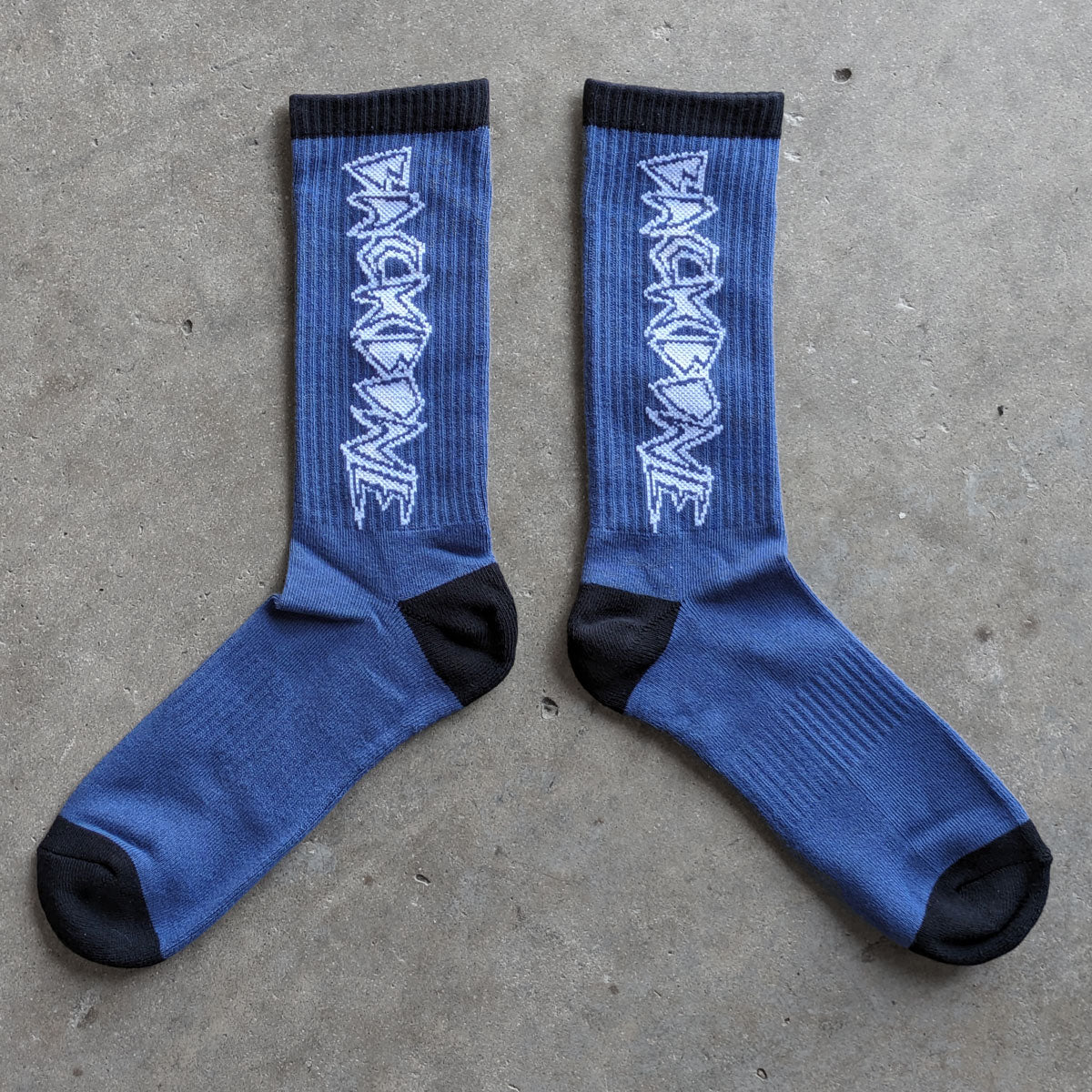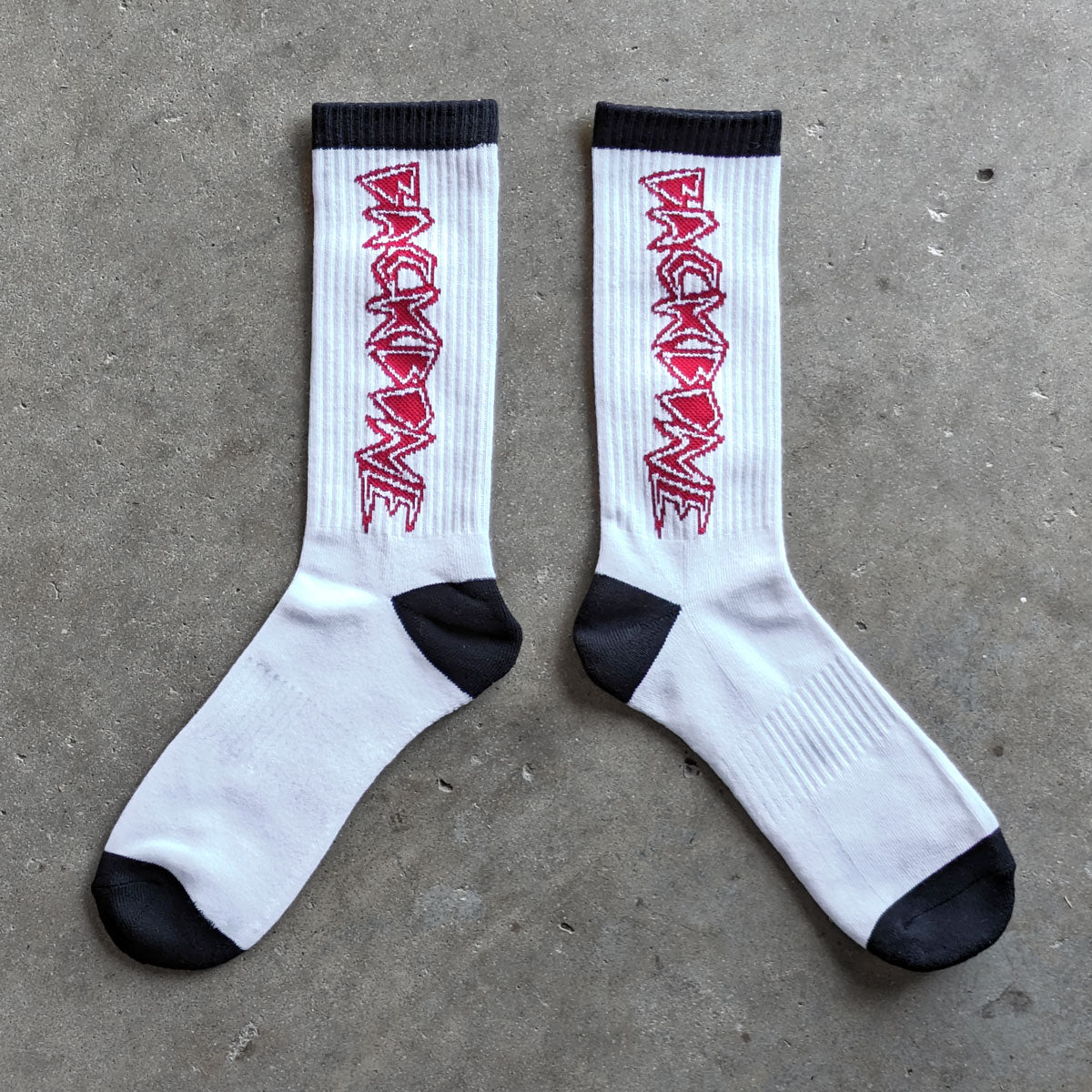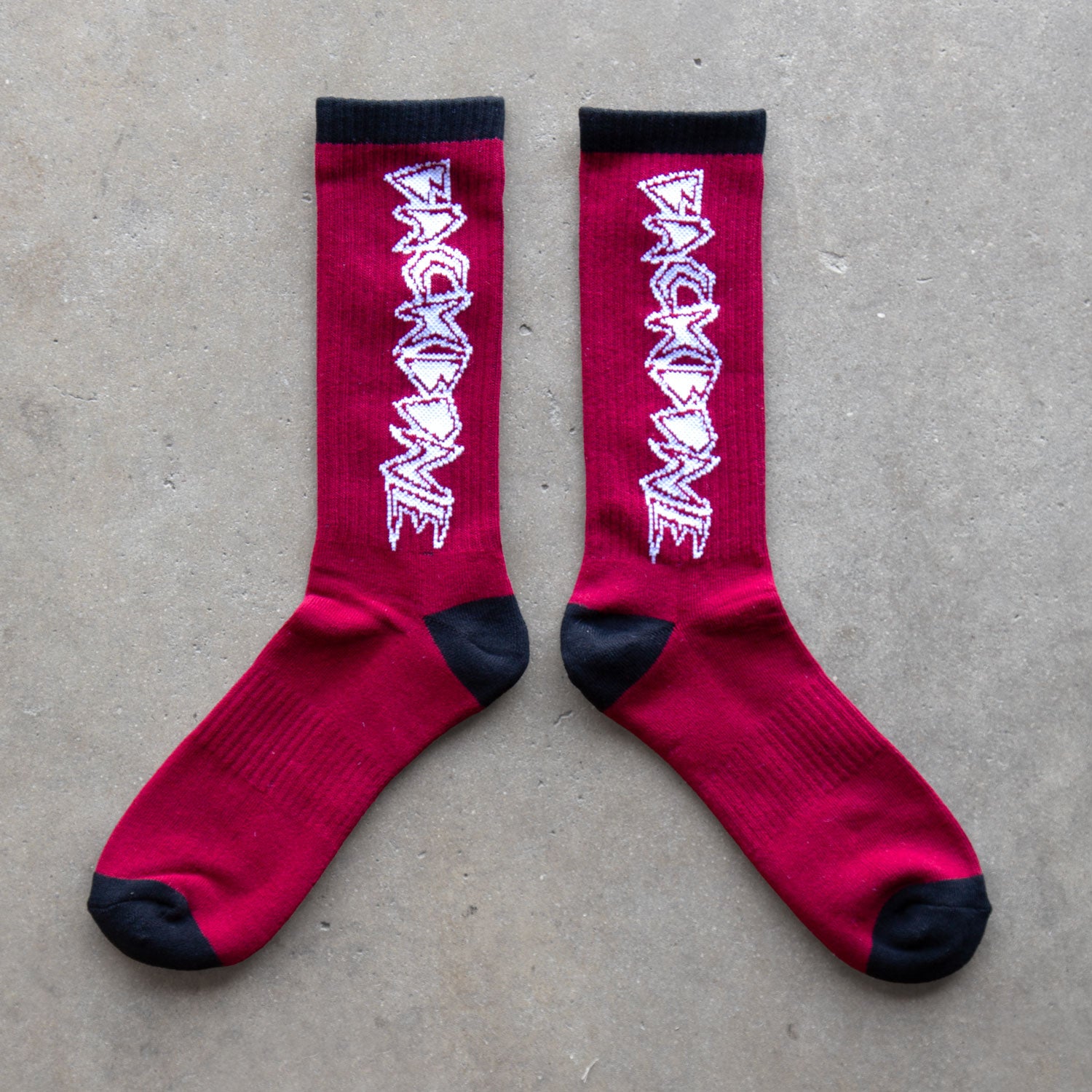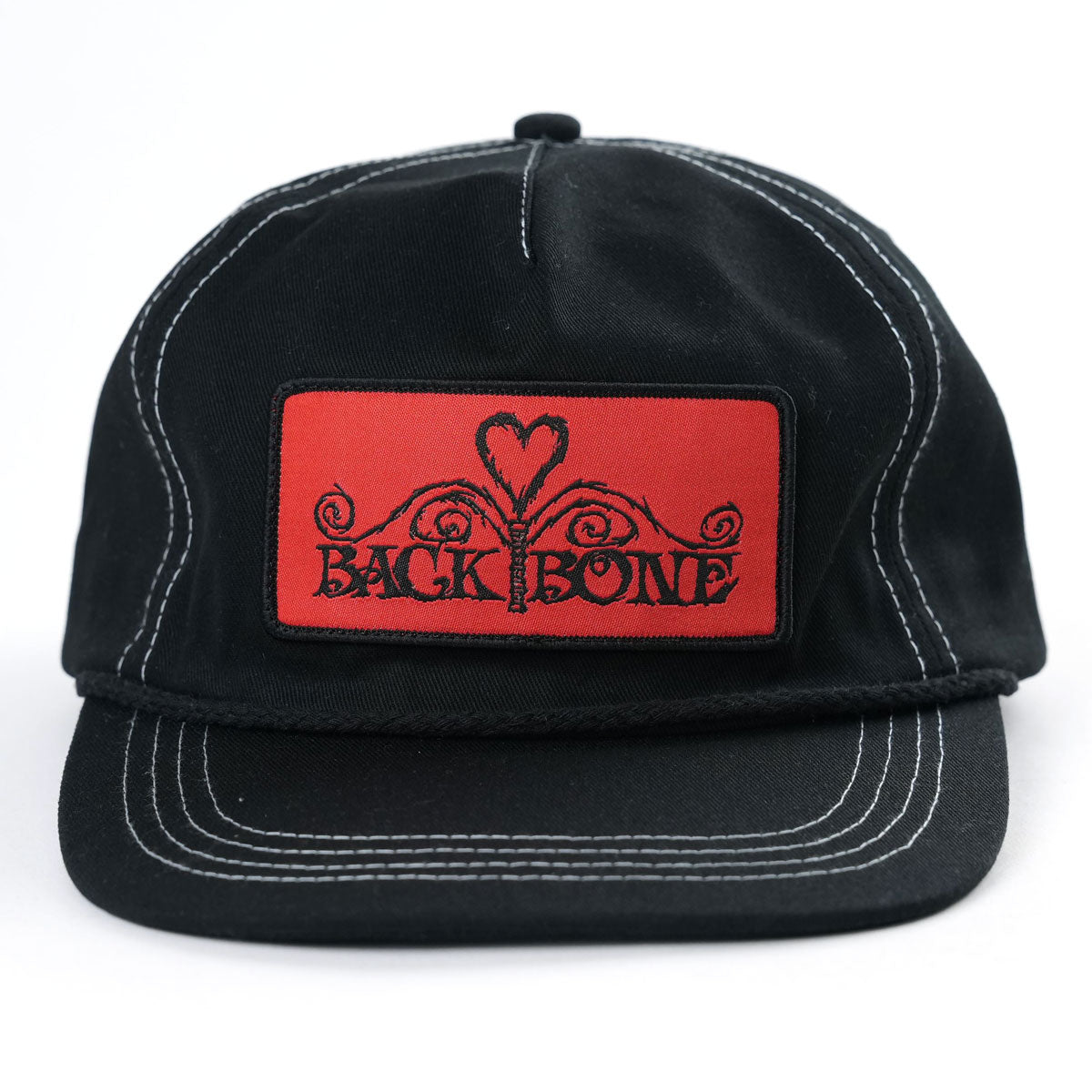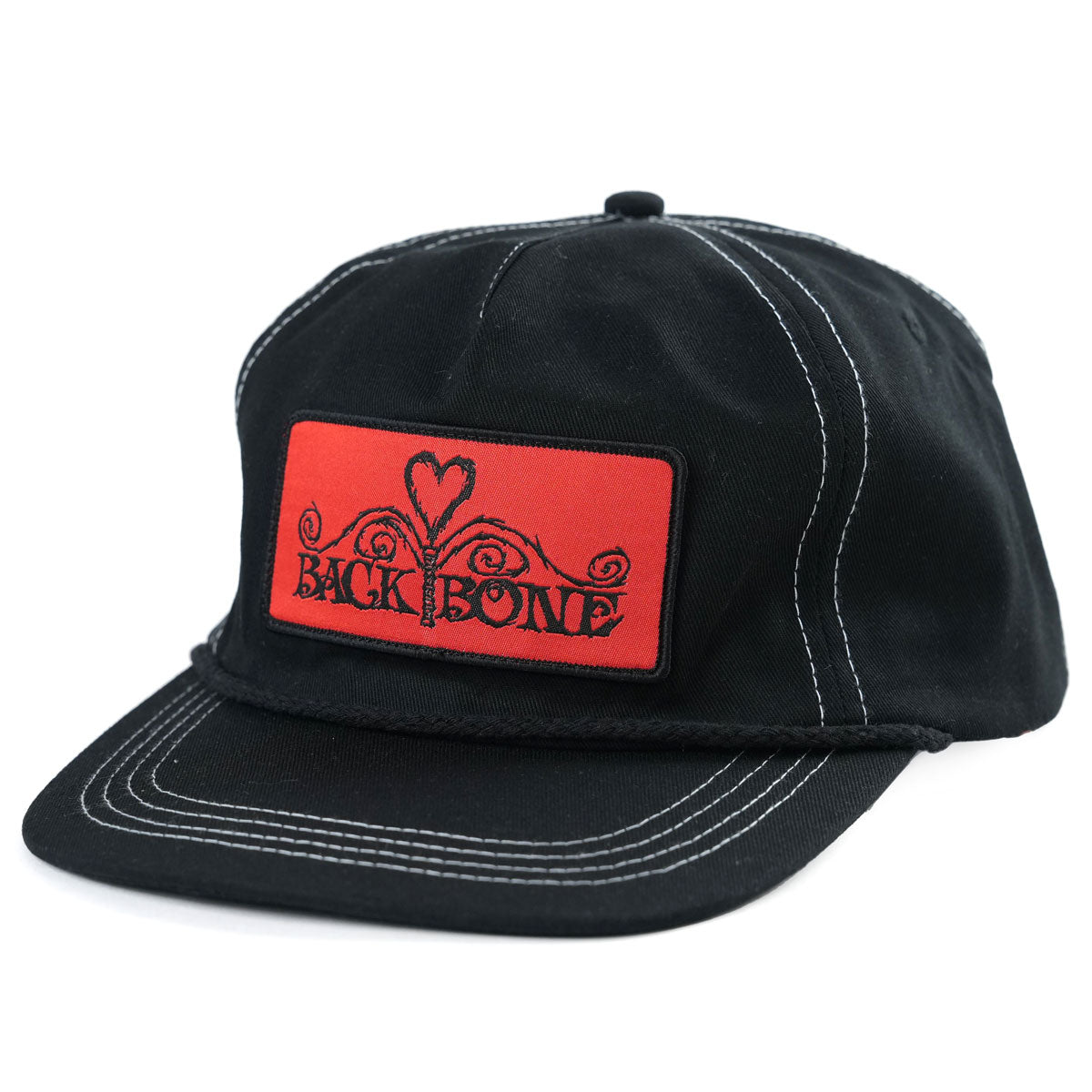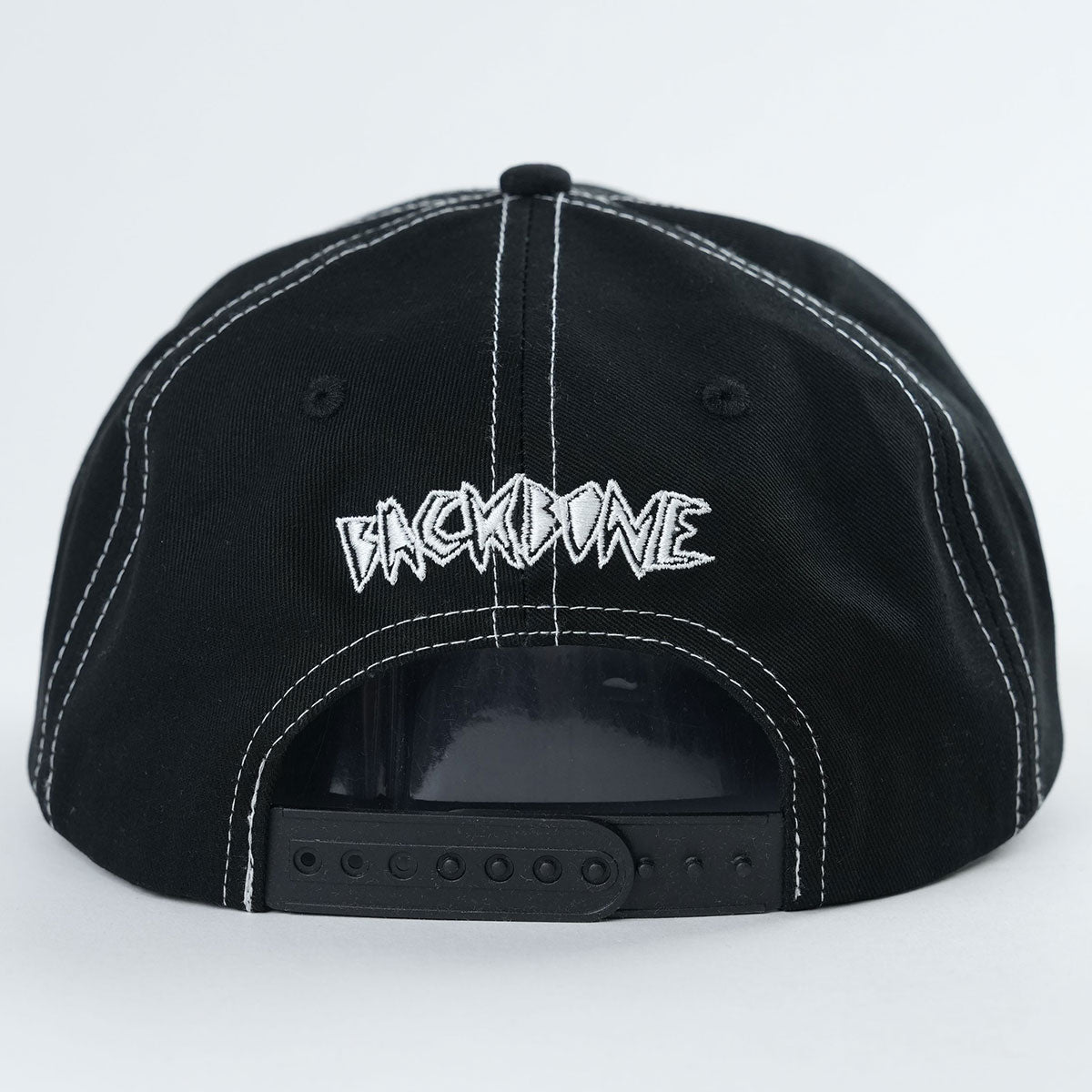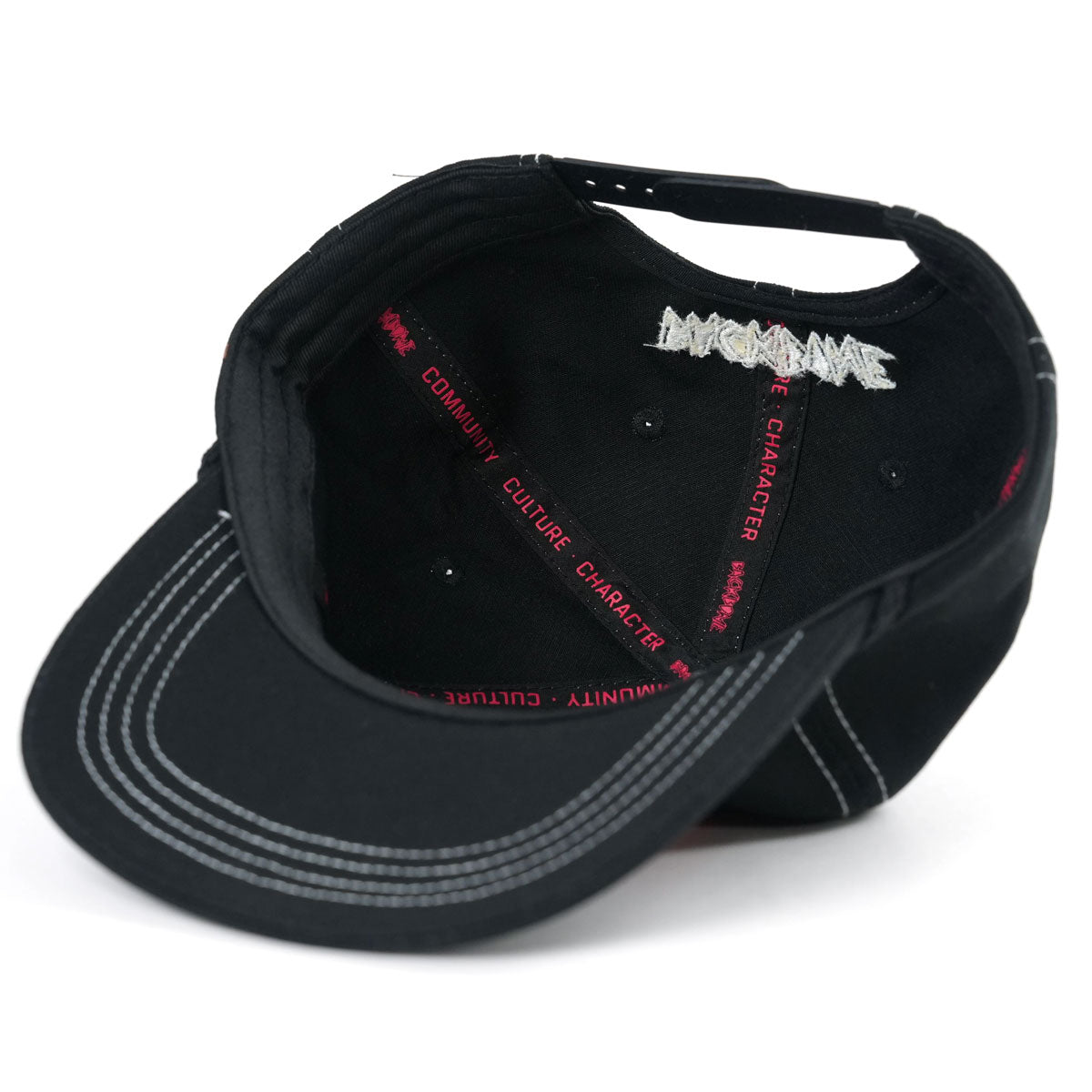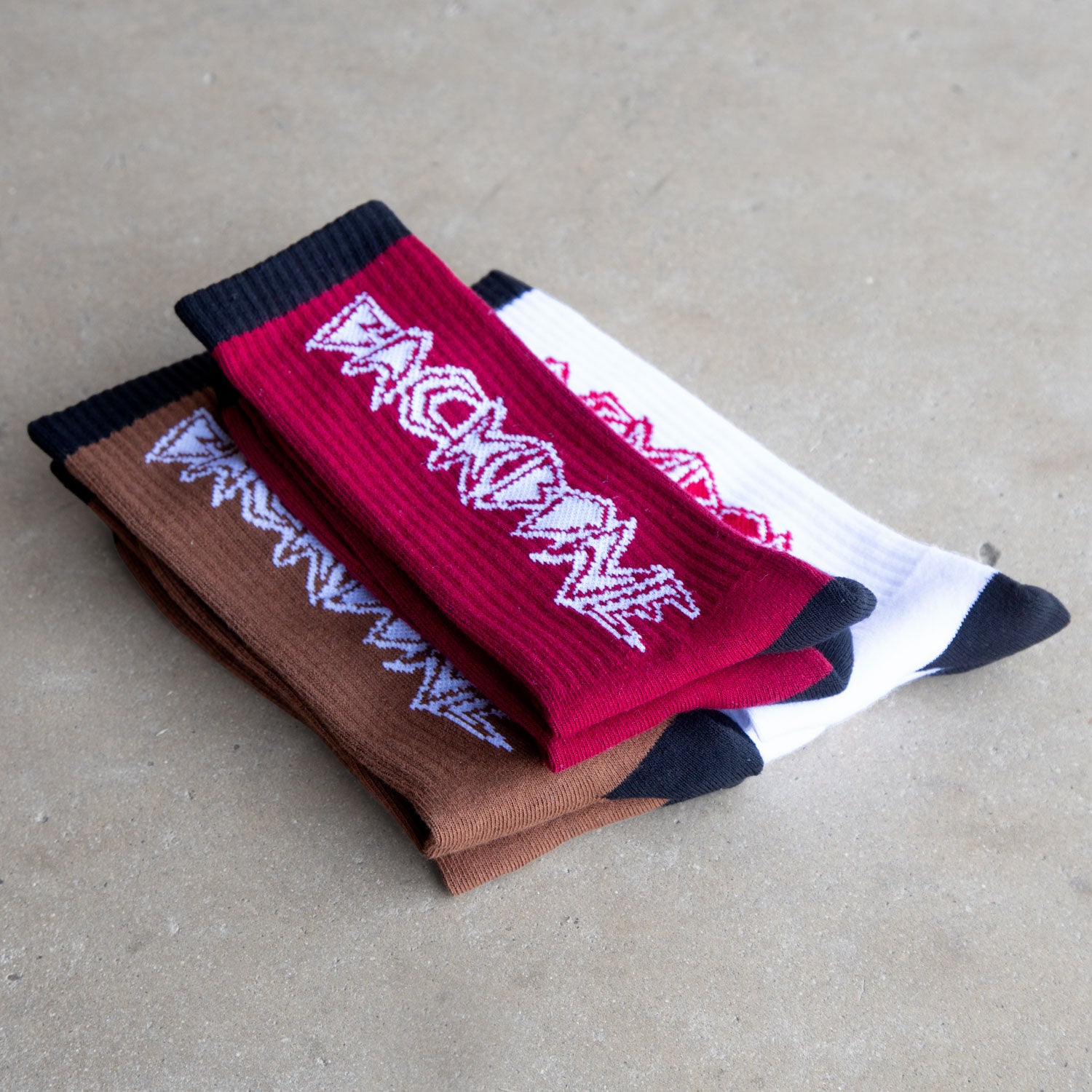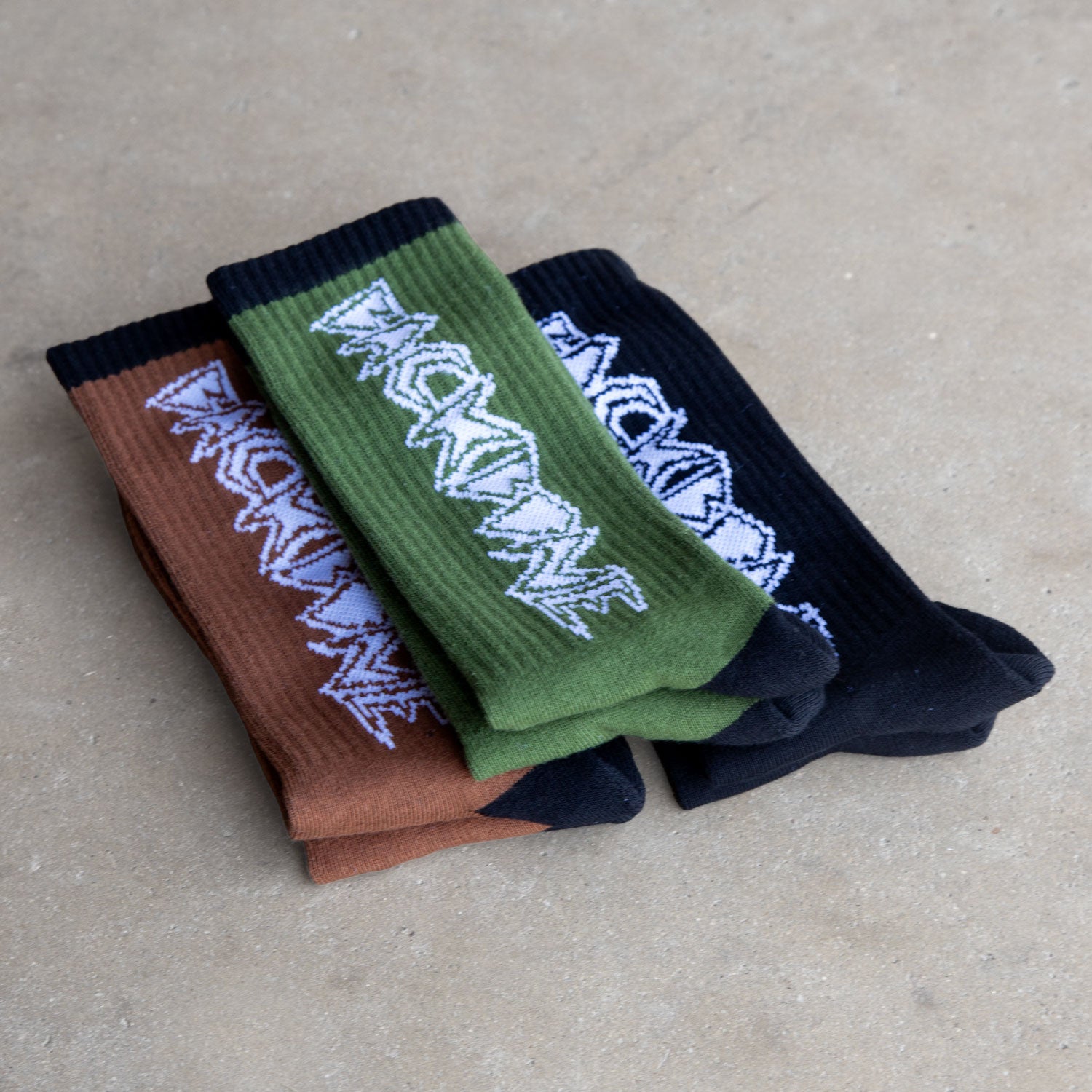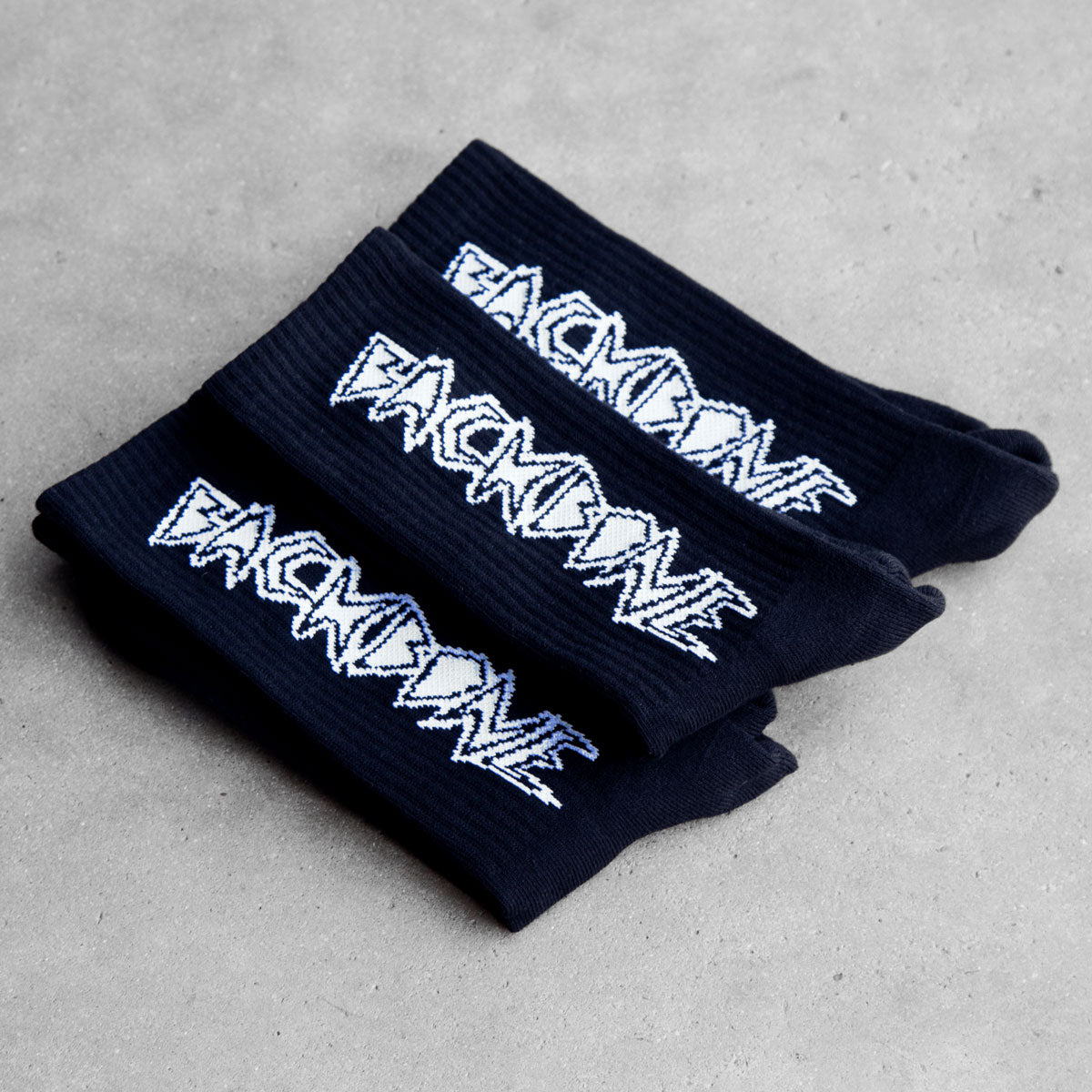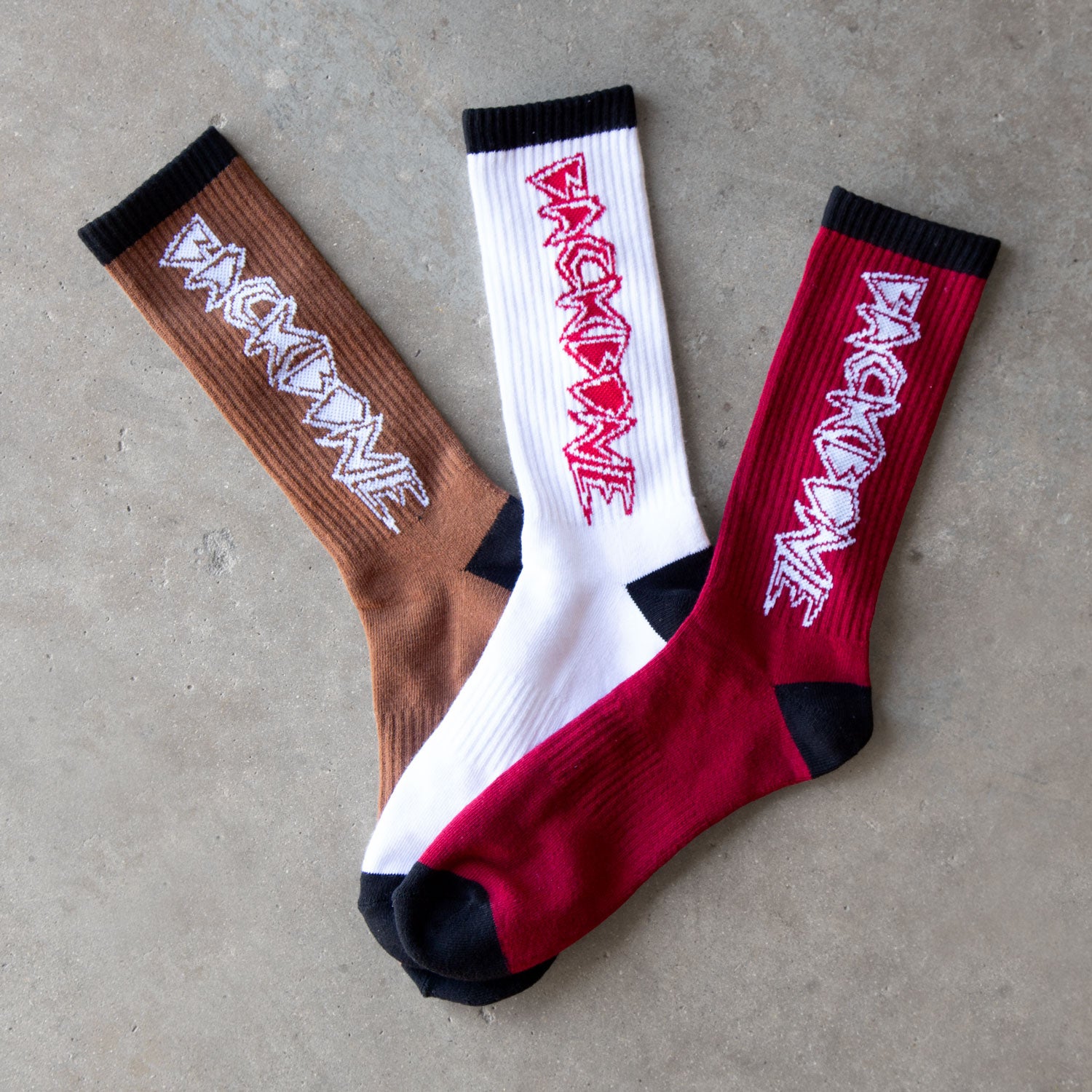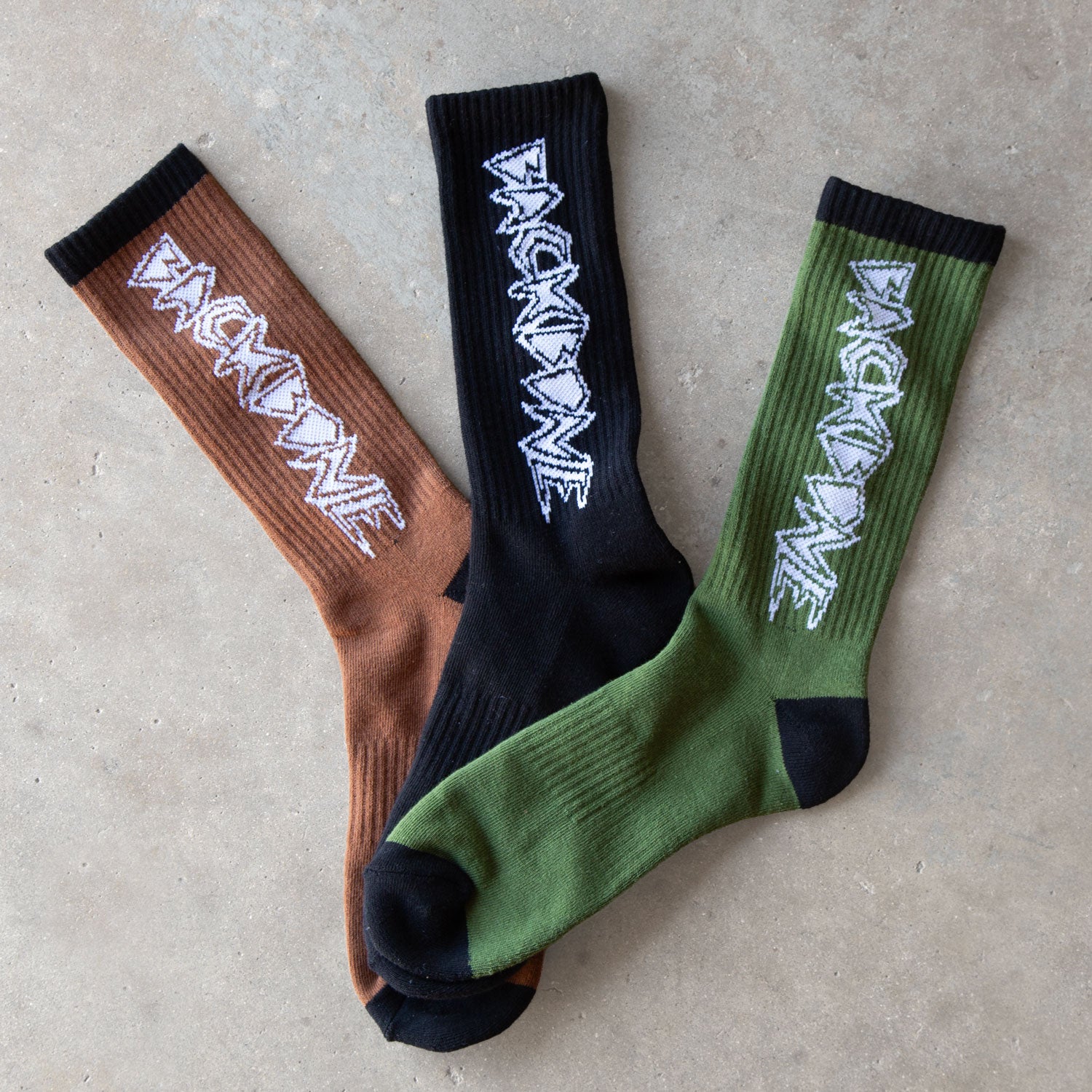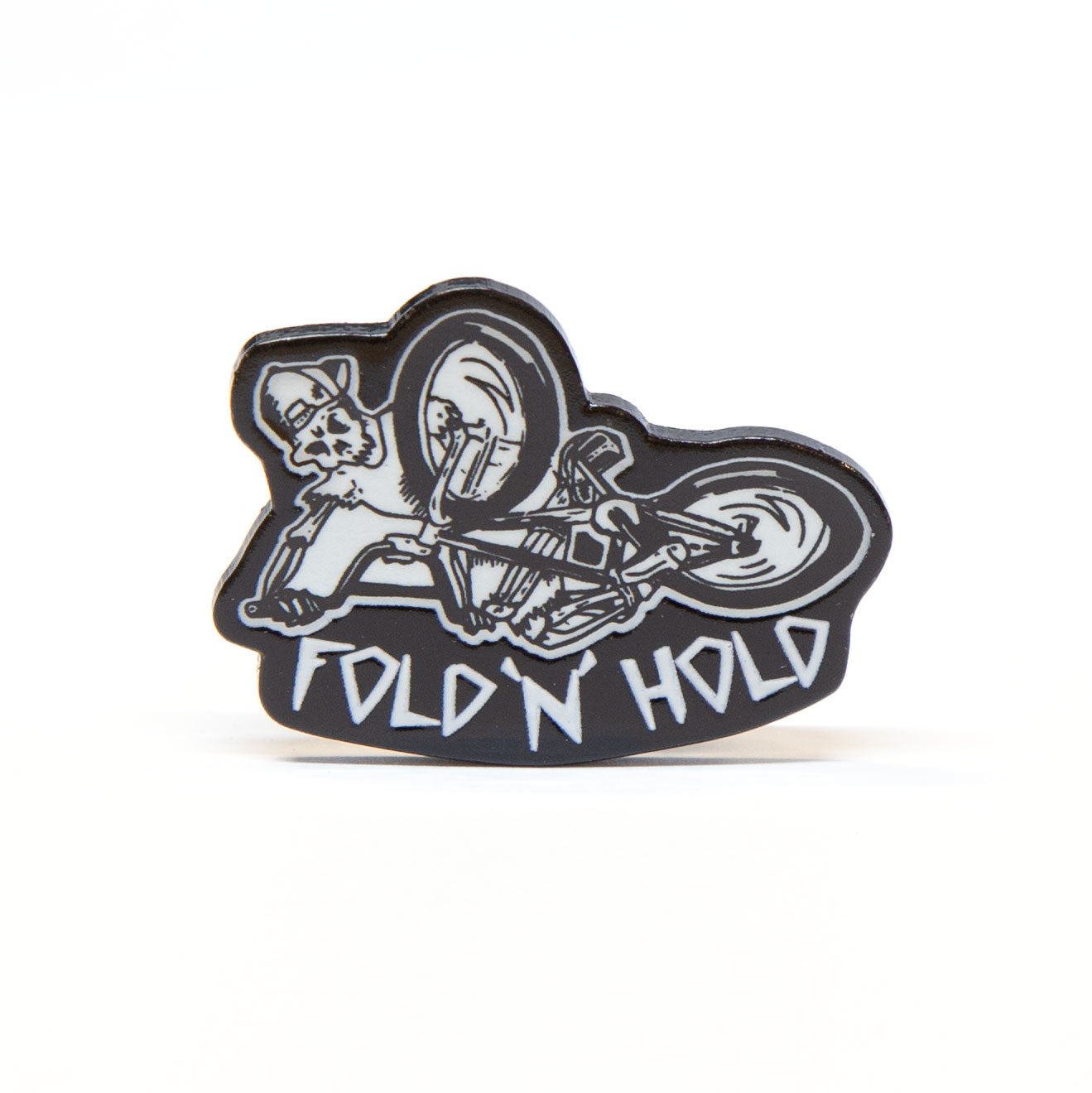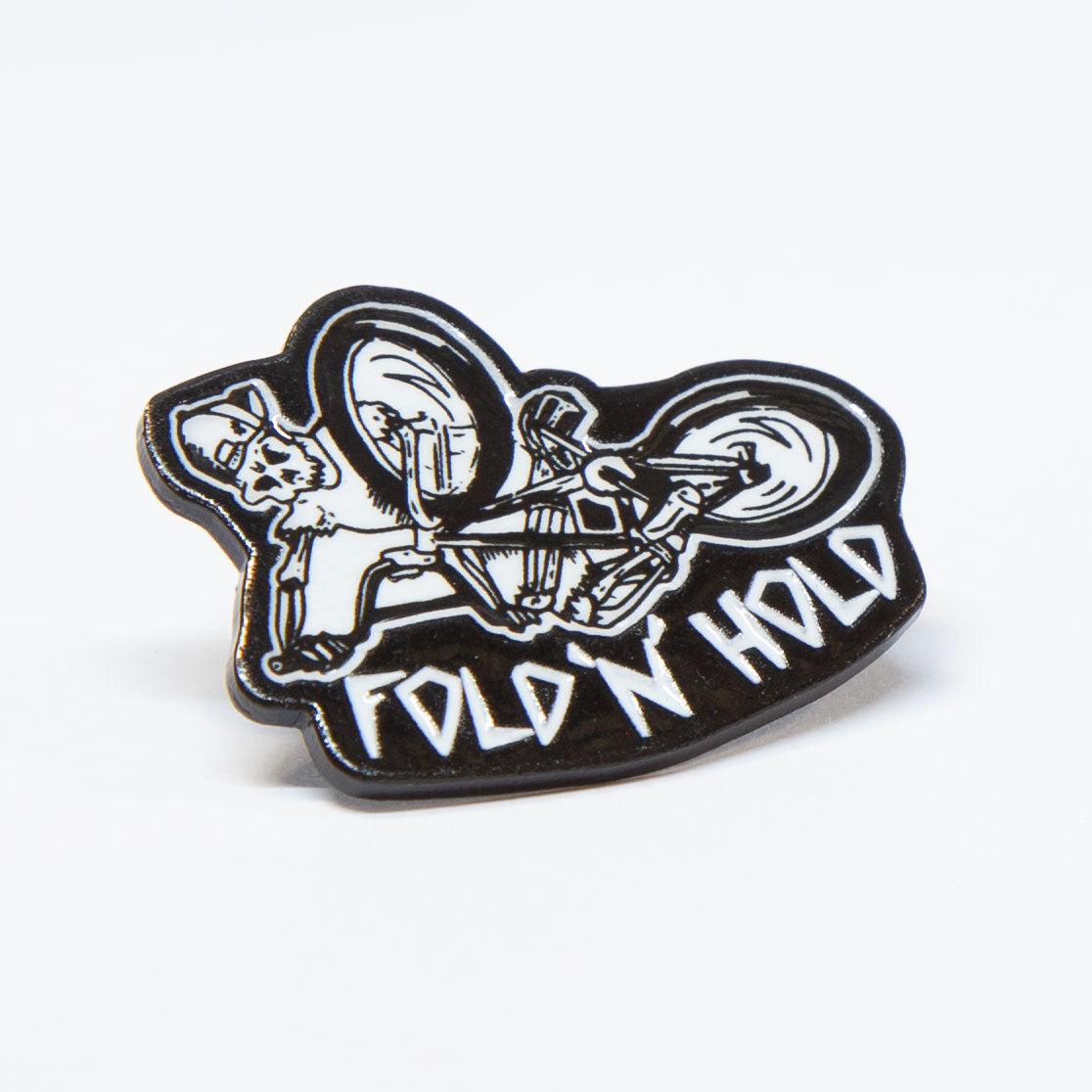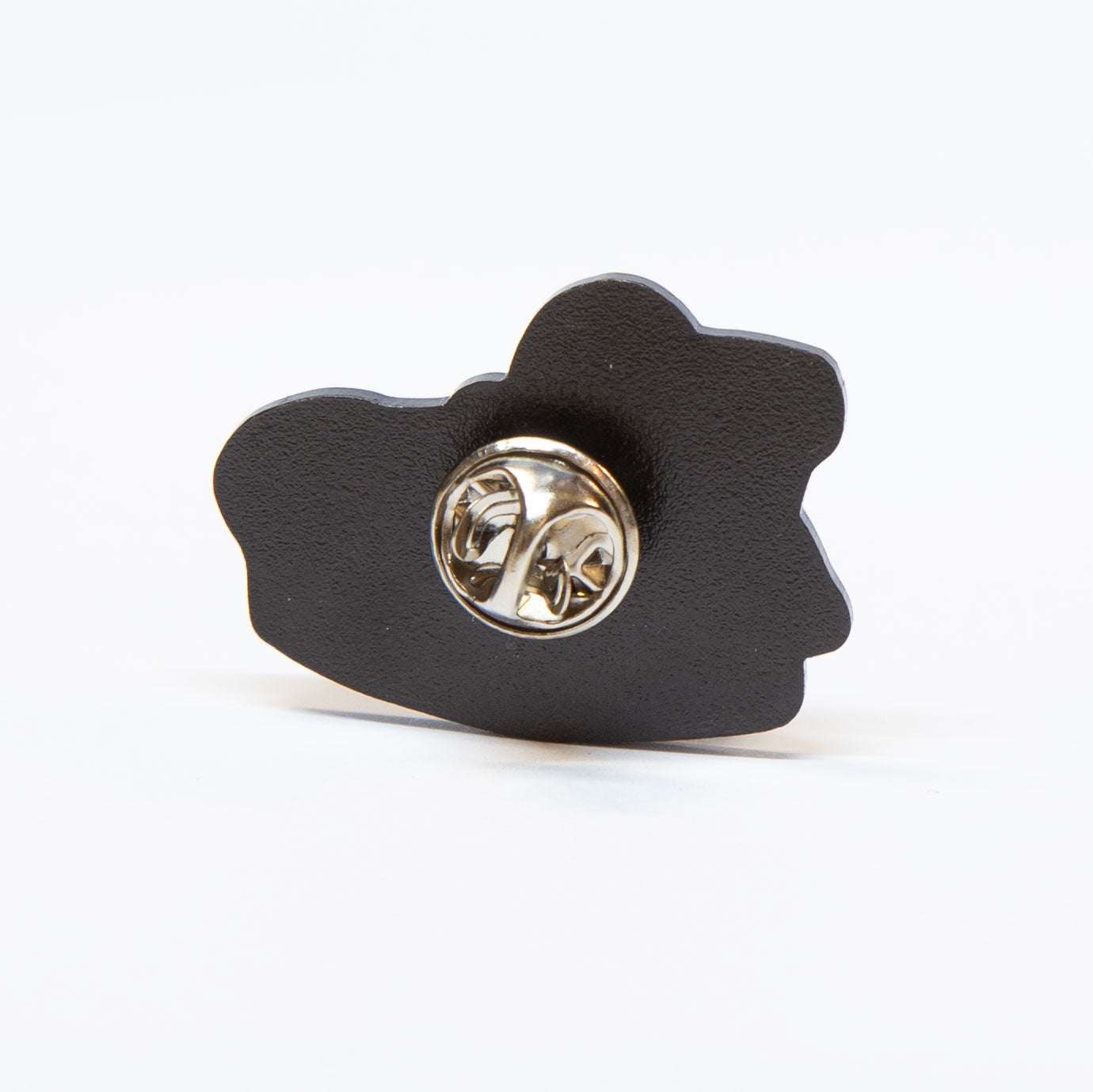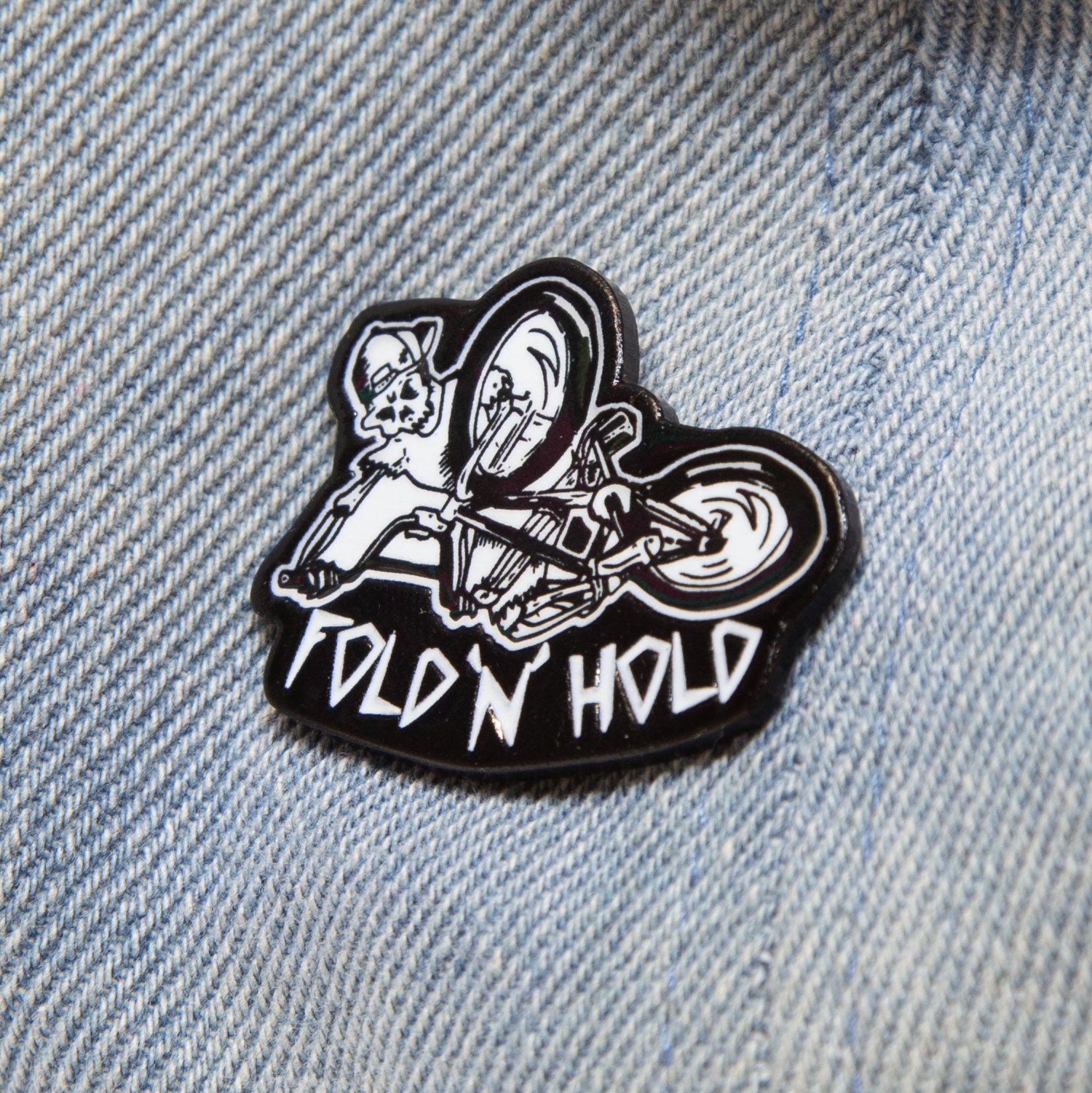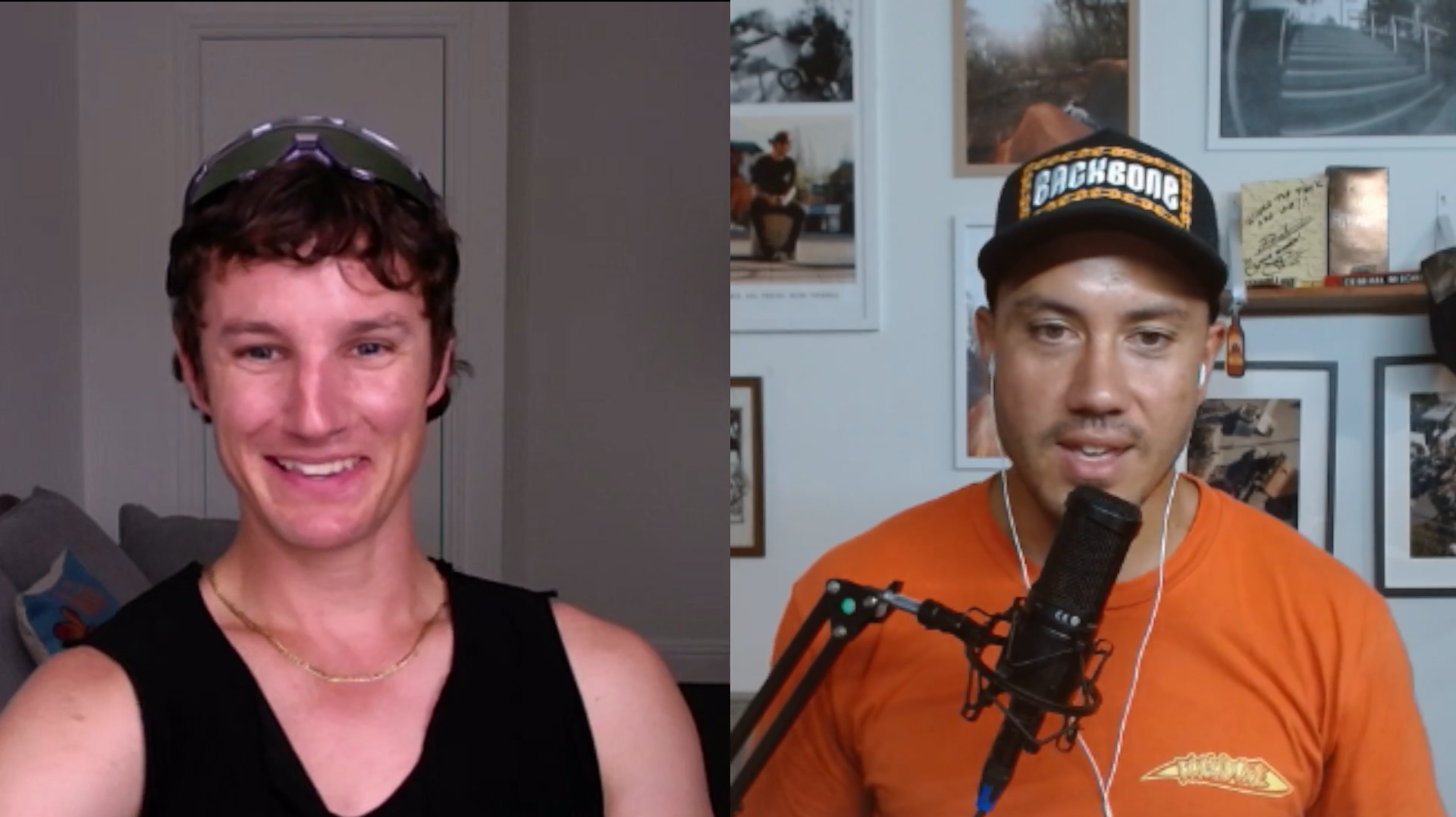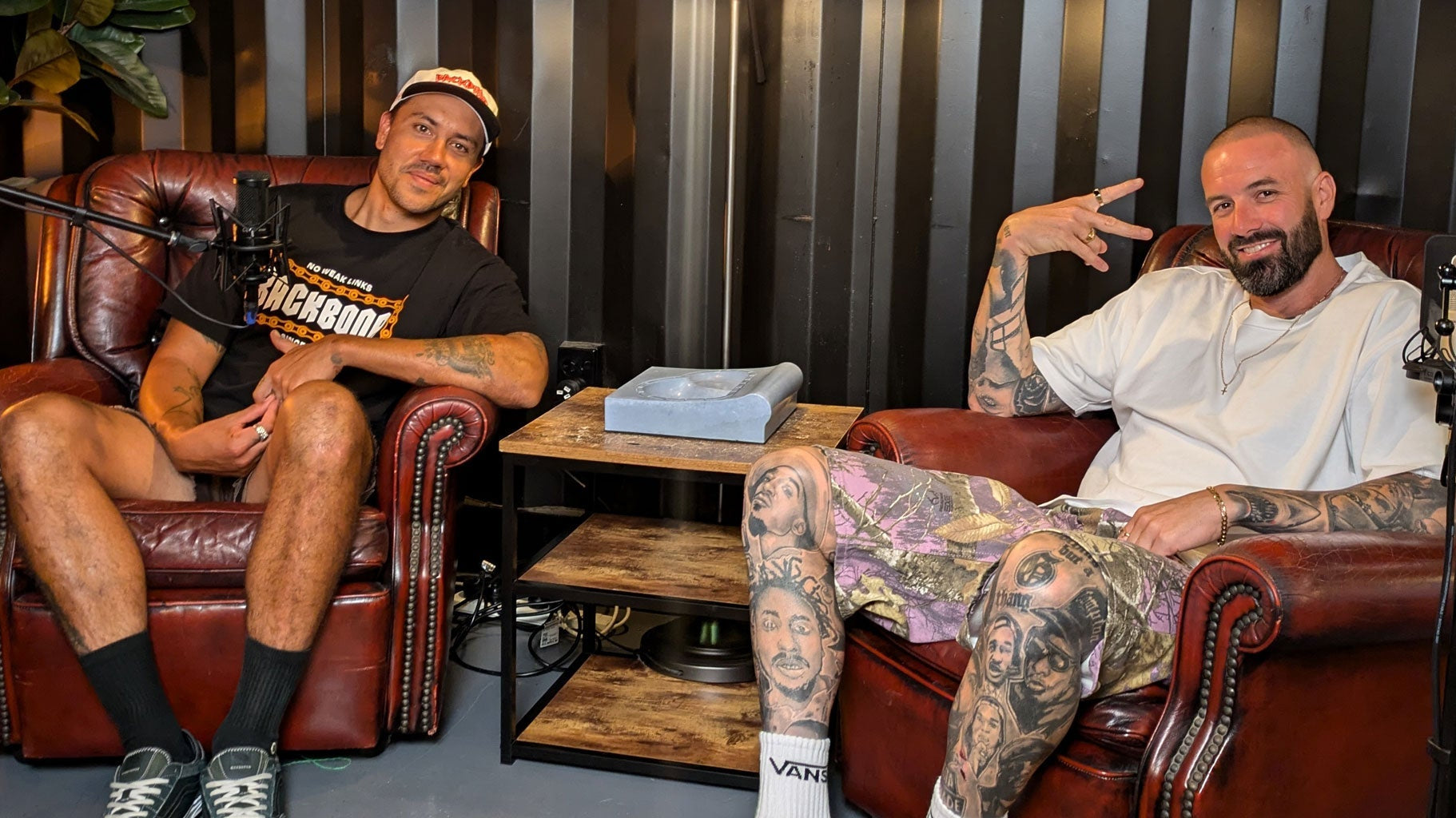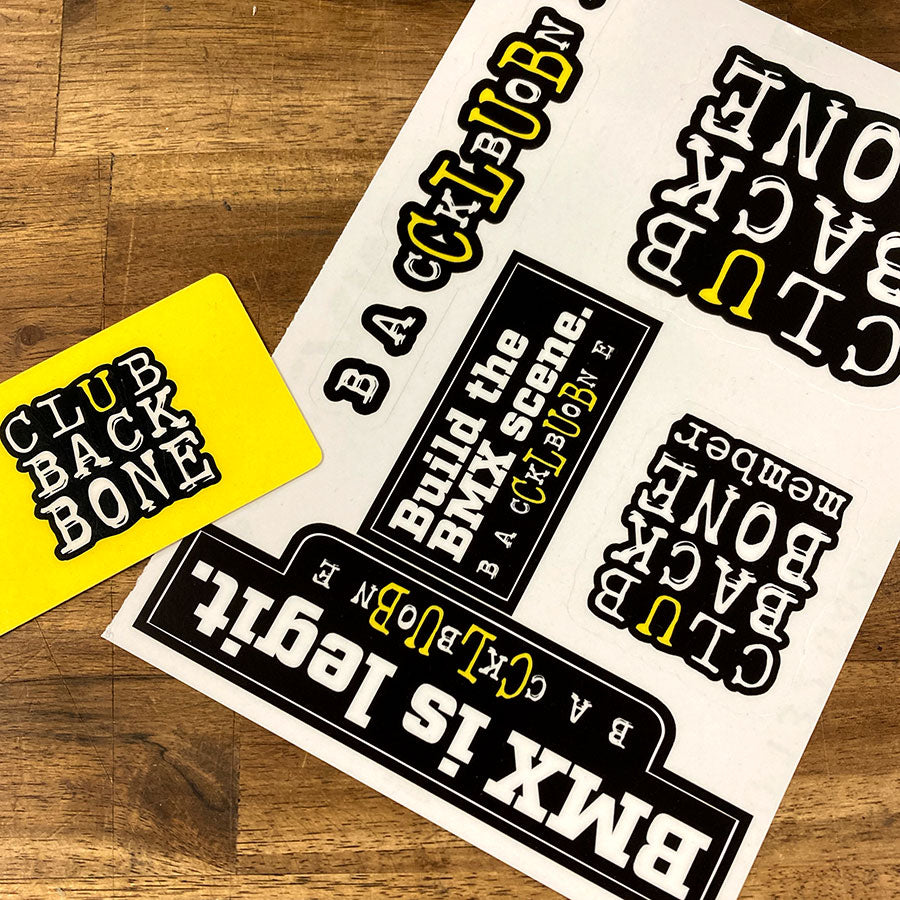Back Bone Zone Podcast Episode 34 - Transcript
Sick. Dave, thanks for coming on the podcast. I know we just spoke about it, but I have to introduce you. Maybe you can introduce yourself. How about. Yeah. Yeah, thanks. Thanks for having me. Yeah, yeah, yeah. My name's David Paterson. I am the product manager of We Make Things, which is basically the parent company for a bunch of brands.
Wethepeople, eclat, Fuse, Radio a lot more. And yeah, so I am currently living in sunny Cologne, Germany. And yeah, I guess I've never really done one of these before. That's, that's basically what I do amongst other things. But. But yeah we've been, we've, we've been doing a lot. I feel it's been so sick.
I think about this all the time. It's crazy how we have met through this, like, internet world, you know, like, I feel like you're my pen pal, almost. Yeah, it was. It was kind of like a like a Covid kind of Covid pen pal, wasn't it? Yeah, yeah, yeah. We're talking love fest I work in, but yeah, it's, it's strange because, like, I speak to you quite a lot, like, quite regularly and I guess it's like, yeah, the first time kind of doing something like this, which is good. Thanks.
Yeah, for sure. I mean, I wanted to have you on. To be honest, when I first started doing this, I was like, Man, it'd be so sick to talk to Dave because for me, I love, obviously, working in a BMX shop for so long. I love that industry thing. But I also love, almost not dispelling myths, but just you get to see behind the curtain a little bit, you know what I mean? Even when we started speaking, obviously, I started riding for Wethepeople back in 2020. And right away we started talking about doing stuff. And it's just been really cool to, after so many years working in a bike shop, to still be like, 'Oh, wow, that's so crazy to see how things go'.
So I am very honored to have you on on the show.
Thank you. I appreciate that. Yeah, it's the first one of these I've done actually. A few people have yet been trying to get me on, but I have a bit of a chat and talk about bikes and bikes and everything.
How long have you been working where you make things and what do you do?
So it's almost nine years now. Oh shit. So I moved to Germany in 2014. Yeah, it's crazy. Long time when you think about it like that. But. But yeah, I basically came in as as product guy. And I guess the cool thing about the role was they, they were, they were really cool about it.
They kind of let me kind of move into a job and kind of find my place. And yeah, I guess I started kind of like it's like product marketing. I guess in the beginning when I started, my role was kind of split between kind of a product side of things. And Harry taught me a lot and I was learning.
And then also the marketing side of things. So I guess when I started I was a lot more kind of involved with like, you know, team riders and going on trips, stuff like that. And I guess as the years have gone by and the company's grown and evolved and my role has changed a bit nowadays, I'm kind of I'm the basically the product manager, so I'm more focused on, yeah, like developing products, developing a product lines, helping market with those products and growing what we do here, I still still quite closely connect to the team, almost kind of like the middle man in a lot of ways with product, with product projects, a lot of people are involved to make a BMX product come to life. It's not it's never just one person. A lot of people from, you know, 3D designers creating the 3D models, the graphic designers, the sales team. So I basically helped with everybody else coordinate that. And, and yeah, it's, it's, it's a lot of work. I mean, we make a lot of products, We've got a lot of brands.
But it's it's always rewarding to see the whole process from start to finish, you know, from coming up with a concept for an idea of a product and seeing it all the way through from the design to the testing, working with a rider to get it now down, and then over, I grew to kind of helping shops and distribution sell it when it comes out.
So that's kind of like a brief summary of what I do and how my jobs kind of changed. But yeah, it's been nine years and it's it's been fun. It's been a lot of fun.
Yeah, that's awesome. And for you, you do have a lot of products too, to work on, that's for sure. Are you just doing that by yourself or?
So there's a big team here like I'm privileged to work with a lot of really talented, cool people here who work on various different parts. So like, um, it depends on the project really, but kind of like the product team, there's like two or three of us and then there's just a lot more people involved from like we've got like a whole graphic design team here.
We have a bunch of really talented freelancers that we work with for various different things. But, but, but yeah, the actual kind of like here in the office, it it's me and Harry Schmidt, the CEO here And then, then, yeah, we have like a whole graphic design team. We have a lot of really cool designers that we work with on like a freelance basis, that kind of thing.
But, but it's, it's small, but there's definitely and a lot of people have to be involved, too, to make even a simple product become a reality, really. So I'm kind of right in the middle of it.
I mean, let's talk about - I guess this is my experience, right? We obviously spoke about well, firstly, I feel like I need to explain how it went from my end with the whole way.
There's nothing because it was obviously pretty surprising for me to be even looked at being sponsored it at my age, you know, at that time. And it was really cool to then start riding for Wethepeople. And I don't know if I ever explained this to you, but obviously trails is my love and passion with riding BMX and, well, half of it's not even riding -
- shovelling and talking shit.
Yeah, yeah, that's right. But you know, a big part of what was exciting to me when I guess I left the last bike sponsor that I was riding for, and I thought that I'd just like, buy an S&M or whatever, you know - buy something else. And then, and then Scott, who owns BMX International, was like, Oh, dude, have you ever thought about Wethepeople?
And I was like, Oh, man, I love I do love Wethepeople, but I just had never even thought about it. And then I went home and I was thinking about it more and more and I was like, Wethepeople are such a sick brand and it would be really cool to work with that brand too, to almost be like, 'here's another brand out there that that cares about trail shit'. You know? Not that we'd even talked about since parts or anything at that stage.
I just thought that you guys made real quality products and I was like, oh, the patrol frame is actually really sick and pretty close to what I ride. And, and then once I spoke to you, you were like, offered me a signature frame straight off the bat. And it was just it was just such a trip out, you know, like to see that.
So Wethepeople is always, I guess in recent years, a lot of our pros have been straight riders, but we've got like a rich history in sponsoring dirt jumpers. The brand itself is almost 30 years old now, and during that time we have made trail frames, we've supported trail riders.
And for us, we're being next company. You know, we all we want to offer a product for every kind of rider. And with the Patrol line, which I think we first started working on in 2015, we kind of wanted to get back to that because we felt, you know, we've learned a lot over the recent years on how to make a real solid line of products, and we wanted to get back into it.
But I guess for us, when we develop a product, it's a really fun process for us. But having a rider involved always makes it gives it a vision. You know, we don't want to just make a product and just slap a logo on that. We really want to make something special with some real thought behind that. And having a part of the picture just made sense from our perspective.
You know, we wanted a guy that really knew what he was talking about and would be able to help us create something special and unique. And and I feel with with the new line of products, we work with you. We've been able to do that. And yeah, I mean, a big part of my job is working with riders on the signature products and it's not always a simple process.
I think we always kind of try and shoot for the moon. We want to do something different. We want to make something like a product that really inspires people and stands out in quite a flooded market. And I the ideas you came up with was completely on par with kind of where we wanted to go. So it was yeah, it was, it was it was honestly a fun project for me.
It's probably one of the more fun ones I've been part of purely because I think one time it just happened at crazy time. It was during the time that it was home office. We thought it was End of the World and you just had some pretty some pretty big ideas and we really wanted to sit there and say no.
So when you started talking about disc brakes and super long top tubes and yeah, we were like, this is it was just the perfect product for us because we like a challenge. Yeah, You know, we have like a good engineering team here and, and yeah, it was, it was a lot of learning for me. It was a lot of learning for us.
But, but it was a fun project, you know. And I especially with the Chaos Machine frame, that frame came out pretty much exactly how we wanted from the beginning, which isn't always possible when you're developing a new product, especially something different. And, and yeah, it was, it was a fun project and I really hope that you're stoked on it.
And the feedback we've had from the public has been, has been great, you know. So yeah, so yeah, I mean we're having a part of we the people, it was just a logical thing for us, you know, like, you know what you're talking about, you know, racing really well and we're not really the kind of brand to sit there and assume that we know everything, especially and maybe like a niche of a market where we haven't had as much recent experience.
So sitting there with you for hours. Yeah, when I was sitting at home on the Home Office and just listening to your takes on what would work, what people would buy, what, what you would like to ride was it was it was a good experience. And everyone here, we enjoyed it and it's it's pretty rad to see to see it came out a little bit longer than than we would have like.
But I think everyone was in that boat. We've come the show and things but but yeah it's rad to see all those frames and all those parts out by now. Yeah, I'm pretty psyched too. And like it's, it's, it's definitely mind blowing is with, you know, the, the process I like and your involvement with working with team riders, how does that generally go.
I mean, I can speak with some my experience, but you know, it has it when I when I spoke to you and I said I think I'd I don't know what you would think about it, but I like it this break, you know, you're pretty open. You're very open to the idea of it. And you were kind of just like, Oh, let me have to think about it to see if it's possible.
Low and behold, you totally got it done. And I wouldn't have been able to figure out how to make it happen. But is there things like that to happen with with team riders and products? Yeah, I mean, it all depends on the rider. Some riders, you know, working in a shop that they don't care. They not necessarily they don't care, but like they want a solid bike.
They want it to look good. That's good enough for them, which is totally great. Of the other side of riders. They want something special and unique. They want they want it to be that product which we as a brand fully respect. You know, we don't want to just slap logos on things. We want to really design and develop and engineer.
And it depends. Yeah, some riders really come up to us with an impossible, impossible concept, which for us is a challenge and it's fun and we kind of have to meet them in the middle. BMX isn't the most accepting market in terms of new trends and new products. You know, we try a lot of things because we feel like it's a better way to do the product, or it can help steer BMX in a positive direction.
And sometimes people are stoked on it, sometimes it takes a little bit longer. But but with your train and the disc brake, I mean, disc brakes are nothing new. That's been around for 30, 40 years. We've been using foam on our radiator jump bikes for ten years. The engineering team at Bomb Track, which is our sister brand, which makes kind of mountain bikes, gravel bikes for our bikes.
Yeah, a lot of the engineers there. Yeah. They have a fantastic knowledge of, of, of, you know, disc brakes and everything involved which goes into so much more detail than the BMX bikes that they were really kind of instrumental in helping us engineer that onto a, onto a freestyle BMX program which was actually a little bit more complicated in the beginning.
But yeah, I mean, that's always a real fun part of the job when someone comes up to us with with a pretty unique concept and it's, it's a fun project. I mean, everyone here, we like a challenge, we like doing something new. We don't want to just play it safe. But but with this, it was yeah, it was something for us that made sense.
I mean, with the size of jumps that you ride, I mean, it's clearly not designed to dismantle most balls. You know, that thing is designed to roast and, and yeah, it was, it was, it was a fun engineering project and it served a purpose, you know, like, I think disc brakes make a lot of sense for the riding that you're doing.
It's actually a far more reliable braking system than a traditional caliper brake, which is must be like a hundred years old at this point. That system. Yeah. So, so so yeah, it's not always simple. It's not always easy. Some riders just want something very kind of like safe which, which is great. And other riders have like a vision of something different and unique.
And for us it's, it's an enjoyable challenge to try and make something unique out there. Yeah, I think everyone involved with the product development here kind of shares that vision and I always wanted to try and do something different and new and try and push the boundaries of BMX and just bring out exciting, fun products because I think BMX needs that more than ever.
You know, BMX needs trends, it needs tastes, it needs new things to excite younger riders because, because otherwise, how are you going to keep people stoked and excited, you know? Yeah, totally. We've actually spoken out about that before. Like the trans thing. I think it's actually really important for people to be able to jump onto different trends, you know, like that's how things aren't stale.
You know, we, we sort of speak about a lot in the shop here, especially my colleague, co-owner Rhys. Yeah. He talks about if everyone liked my block, then what am I going to run? You know, because you kind of want to run a matte black bike when everyone can run whatever oil slick or whatever the the trend might be.
So and I think that's kind of fun to even just being like, oh, ten years ago I rode this and now my tastes have changed and it's it evolves and new trends. So I think it's you're exactly right and I think it's cool to watch. You know brands especially like way to people yeah try it like you try stuff you know and I think that's yeah we do some sometimes like people hide, sometimes it's you know sometimes maybe a little bit too early or just something that needs a bit more explaining to the consumer.
But BMX is an industry now more than ever needs exciting products and stuff that inspire people. And I mean, I'm 33 now, but I still try and get into the mindset of when I was, you know, like 15 years old and wanting to go to a BMX shop and opening magazines. And I was always super excited by it, by products, you know, that's what captivated me and kept me in BMX for so long.
And even though, you know, I'm sure I set my bike up quite differently to your average 15 year old now and maybe have a different tastes like I think we all here try and look past that and try and keep BMX riders engaged and excited and we try and do that every day. And I think the industry needs that.
You know, you need you need to captivate the audience, you need to get people excited, you need to get them talking. This amount of comments we had on sticking a disc brake on your frame, whether positive or negative and insane, He was good. It got people talking with. Yeah, that's right. And I don't care. Like people don't like it.
They don't have to buy it. But yeah it does. It wasn't awful before the there's probably people that are like, Oh man, I'm sick. I want to get it. So I think that's what keeps what we do and that you need talking points and BMX you need like we're not here to keep everybody happy. Like we we're here to do our thing and, and make products and bikes that we really believe in.
And I think it's good to get people talking. I think for sure. Interested in BMX and having a viewpoint. And I think like we always like we always try and listen a lot, you know, like I know I go for every single Instagram comment. It takes up way too much of my time, but it's been invaluable in the past, you know, just to see a different perspective, just open your mind up, up.
Maybe it's a different way of doing things and, and Yeah, but yeah, yeah. Really hyped on how your stuff came out. Like everyone involved from like the 3D designer and Chris who did the graphics. Your frame like a lot of people are involved and it's, it's pretty humbling to be part of a process, you know like I still can't believe that all these years later I'm going to work in the morning and helping make BMX bikes.
It's it's yeah, that's a real still that's very cool Yeah or how so so concepts for my frame might have been particularly long you were saying just with like the delays with like manufacturing stuff about how long is it, you know, like say if a client got to two questions, one of it would be like how long would something take?
Two hour. And what the what's the process like to, you know, how much back and forth is there? And then the other thing would be like, do you have like a plan in mind for forecasting that to hit with like a certain trend or anything like that? Or do you not even think about that? You just want to do stuff that's cool.
No, there's definitely a plan. Yeah, because I mean, it really depends on the product. Really? Yeah. I mean, some some products just simply take longer to develop than others because the hubs, for example, and other products don't take as long to develop. I mean, we're really big on testing here. That's just a vital part of designing BMX products because no matter how many times you, you know, you run something through a lab and and due to ISO tests and everything, sometimes you literally just need to give a product to a rider for six months.
Maybe one day is actually really bad maintenance and looking after that bike and yeah. And seeing how the the general consumer which would handle something, it depends on the project. Some projects simply take longer, some some, some are relatively a bit more straightforward. Yeah, depending on the product but but yeah, that's definitely a plan here. And I would call every day here.
We are always developing new products like there's never been a day where we are working on something new, whether it's, you know, just like a new colorway or simply a new concept. Like I think we have kind of an Aladdin's cave in, in our headquarters just for the products which just didn't quite get there, whether it was too expensive or didn't quite look how we wanted it to function, how we kind of wanted. 00:21:17:10 - 00:21:44:20 So. So yeah, we're constantly developing things, but the plan is to bring them out for sure. Yeah, sure. It's it's interesting to think about like, I think a lot of people probably think that, well, maybe a lot of people just don't really think about a product and development of a product like you hear. I, you know, some of them might say like, oh, there's a new frame coming out.
Like, for example, we've been sort of talking about the, the 22 inch like Chaos machine, you know, and a lot of people to have a back now, a lot of people are going to be happy to hear that. Yes. So, you know, the 22 inch chaos machine is going to be coming out. But it's like one of those things where with social media and today it's just seems like the second you say something, it's like, when's the coming out?
And it has like, you know, things just need to where is it? Whereas I wish we could kind of make it come out as smoke, but it really depends on the project. It's kind of a difficult question because some some things, even as simple as a drop out on a frame or and you tubing needs a lot more testing and development and sometimes simply making a top tube longer and switching out the color and stickers that is is is a much faster process.
But I think yeah, we're all pretty like adamant on making sure we get things right rather than rushing to bring them out. But yeah, it depends. Depends on the product. I mean your frame. Yeah, simply took a lot longer because it's just a lot of new features that we've never done before, you know, even having the fabric mounts and the disparate mounts on the same frame engineering wise was, was, was something we had to play around with and getting a disc brake mount to, to fit a horizontal drop out and work in multiple axle positions.
That was that was something that needed tweaking. And so the engineers over at bomb track kind of helped us with that a lot because disc brakes simply aren't really my forte so much, you know? Yeah, BMX background. And I mean, those guys were definitely a big help with that. But it depends on what it is. I mean, your frame has so many kind of cool little features on like it has that one thing where people probably don't notice at first that can also fit your bike mounts, I think.
Yeah, that's right. Simply because plus we're trying to bring disc brakes into freestyle BMX. We understand that not everyone will have access to that and even adding a down tube with an extruded layer on it allowed us to kind of hide the integrated cable holders on that. So that's actually kind of a cool feature. It's like a best way to explain.
It's a bit like, you know, when you're a kid and you got Play-Doh, you push it through that mold that does like the star of the moon. Yeah, yeah. That's how you do an extruded shape. So you basically kind of push it for a mode and make one layer a little like the other. Yeah. Yeah. So that allows us to to tap a thread into a tube that normally wouldn't be thick enough to have a thread.
And that way you can have kind of cable guides on the down tube. Yeah. Well, rather than the welded rather than like a weighted. Yeah. Yeah. Looks a lot cleaner. That's like just one little thing we wanted to do. But yeah, yeah. That thing came out. Came out great. Like, no, not the kind of frame I would ride myself.
Like, you know, as a product, it, it, it looks great. And the feedback from the community and kind of people who like a longer, longer frame has been really positive. So yeah, we're developing the 22 inch wheel version right now, which I know a lot of people will be pretty hyped to see. And I hope the the Exile hub's on the Claw, which we actually developed our own hub for, those are coming out right now depending on your availability in the world that was that was a cool project because when we decided to make a frame with a disc brake, your first question was what about the hub?
And I think only profile could be wrong. Yeah, that's right. Once you offered up an 110, 112mm. BMX about help with the disc brake now and I think for a lot of people they just simply wasn't an option. So we had to develop our own hub to fit the frame. And yeah, I suppose ups are now just giving.
Yeah. Shameless plug. Yeah. So that's about the Exile cassette hub. So this is an earlier version. But, but yeah, if that's a regular BMX frame as a 9 to 10 tooth driver and has a standard six bolt disc brake. Yeah. This brake mount basically and it's a cool little hub, we kind of use like an alloy driver to save a little bit of weight.
We added this kind of custom knurling on the cones on here, but yeah, pretty hyped on that. So that's just another thing you have to do. If you change it standard, you have to make sure you're offering all the different parts for it. Yeah, that's right. I think it's pretty interesting that you guys almost that you guys are willing to do that.
I know that we've I've said that to you in the past, but, you know, it was it's one thing for me like, oh, I wanted this brake frame. And then you're like, well, you know, like, you got to make the hub and then you are psyched to make the hub. But then as well as that I was like, Oh, I'd like it to potentially be able to run new brakes because not everyone might have a disc brake straight away, you know, And the fact that yours think about that and then you're like, Yeah, we can do that, you know, like it's it's impressive to think that obviously it speaks to you guys and you being, you know, a product developer and, and saying how you can make that sort of stuff happen. I think it's pretty impressive, man. Give yourself a pat on the back.
I think a lot of people deserve a pat on the back. But yeah, I think as a company and as a brand, that's what we want to do. I mean, that's why we make a lot of products. We simply want to offer everything a BMX ride or a BMX shop. Give me. Yeah, for sure. Well, we have a very, very big catalog of products, but from a plastic bar end to a free coaster system, I think as much love and passion gets injected into everything we make here.
Yeah, you can tell, man. You can tell. We we talk about a lot, you know, regardless of whether our way with people or not. Like we talk about our stuff in the shop all the time, you know that you can tell a brand is trying to do the best that it can versus some brands that just do straight up copies of stuff. We've got that Taiwan catalog. It's probably 15 years old now, but you can get a lot of stuff out of there with with your name printed on it.
Yeah, you can. You can start a bike brand quite, quite easily these days, but yeah. And then you can start a bike company and I think it's two different things, you know, like, yeah, that's true. Like everyone here, especially the founders of the company, have like a real passion for creating quality products, you know? Yeah, yeah, sure. We want to make something when we really care about the people who buy our stuff a stoked and happy. And we're always listening to customer feedback and just talking to people that already have our products. I mean, what I used to do is go to we actually have our own BMX shop in Cologne. The People's store something not a lot of people know kind of outside of Germany. But we have our own shop and I think we make things have habits. Yeah. Oh yeah, yeah. We have our own BMX shop, the People's store in Cologne. It's it's one of the biggest BMX shops in Germany. It's been going along around for, for a long time now.
I think over ten years we just opened up a new store well, last summer, and I think that's a really important part of us a as a brand, you know, to have our own retail outlet where we sell our products but also everyone else's. And that's like a big learning experience for us. Sometimes I just go into the shop and sit, I have a coffee and just listen to like, you know, like kids going through the grips and see which ones they're hyped on, which ones I know.
And I think because we have our own BMX shop, it helps us understand the industry better. What's working, what isn't working like how we can create a better product that people actually want. You know, it helps us adapt to trends and tastes. And I think BMX shops are so important. I think a lot of younger riders don't understand that having an actual brick and mortar BMX shop in your city is as a BMX rider is a blessing.
You know, you've got the knowledge, you've got all the products available, you know, like I think it's an essential part, building a BMX scene. And and that for us is something that's really important.
Yeah, man, I definitely agree with what you were saying about the the BMX stuff. Sorry I lost you before because I didn't pay my zoom bill.
Technical difficulties. Yeah, B-Tier podcast over here.
Yeah, I know. But I do think that it's a cool idea the way that you have a shop, because at least you see it as a shop, you know, like I don't want to really, like go too much into BMX industry stuff I guess because you know, we're both obviously within BMX industry, but I think it's pretty cool to, to actually have a shop stock with other brands, see what other people like to do, like what other people, why people are vibing on different brands and things like that. And as well as that, people get to see your products in the flesh. And I think that's a lot cooler than just say, opening up with the people BMX dot com as like an online store because at least then it's like, you know, you're contributing to a scene.
I think you're exactly right with obviously I'm toot my own horn with having a BMX shop but I think that BMX shops are important, you know, because I kind of have a direct line to the saying. So I agree. Yeah. I mean, I feel like we're part of the BMX ecosystem, if you can call it that. Yeah. And part of that is is supporting other brands and being friends with them.
And then, you know, I think it's great there are other BMX companies out that, you know, like I through what I did before I worked here, like I got to know a lot of other brands really, really closely. And I think, yeah, you know, we we've got to we're all part of the same pie. You know, we've all got to support each other.
And, and whilst competition is great and everything, like we do this because we love BMX, you know. Yeah. Not some shameless German corporation sitting in our skyscrapers, you know, whether it's a rider run rider operate a company that just loves making bikes and doing cool projects and supporting riders and keeping the thing that inspired us as kids life.
So having a BMX shop is is really important for us as a company. Yeah. Joanne It's actually funny that you say that. Like, I think just from a personal perspective, like, say in the way that BMX is can get just busy other BMX is for some reason because they're not into a particular way of doing things or you know, like this.
So like for example, like trails drama that goes on, it's like man at the it like people need sometimes take a step back and be like, Oh, that's right. I just like riding a BMX bike and shit isn't that difficult. I'm just going to make it. Like it will just tend to bring on drama and difficulty themselves.
I think as BMX riders we're passionate people, and I think that's part of what keeps BMX so sick. And yeah, that we love the hell out of it. We have, you know, I'm sure everyone loves riding bikes, but BMX riders, we're protective of this thing that we have and I think it's like a catch 22 sometimes, you know, sometimes it can maybe come off as a bit bitter. But like, I think if BMX riders weren't so protective and we didn't like this thing, we wouldn't have this really cool rad sport that, that, that, that we all enjoy so much.
So it's, it's a catch 22 thing, you know. But yeah, we, we're very protective of this special thing we have and sometimes that can be a detriment but often it helps I think especially now more than ever, other areas of cycling are looking to BMX because it is so core and it is so special and it's so genuine.
And I think that this protected nature we as BMX riders have over it is kind of what makes it so sick. You know, we, we, we bleed for this shit, you know, as corny as that sounds. So I think, yeah, we'll always have a bit of drama here and that but now we're, we're here because we love doing it, man.
I've never thought of it in that perspective before. It's very true. Is that that's funny that you think that we actually did. We actually did a Back Bone t-shirt, that was a set of like bear trap pedals and then it just said Back Bone bleed for this.
Oh, that's funny
Man, that's such a different perspective. I've never really thought about it like that because it's so true. Like, if we were just fucking super mellow and shit, you know, like, not really, like, worried about one way or the other, whether things are cool or not cool. Like then, then you just apathetic, you know, and you don't really care about anything and then. And then just a bystander.
So I guess you are right. Like BMX is a passionate so. Good point. Good point. But you did mention just before about what you were doing before. You know, we make things way to people like what we like nine years, a long time. And then I guess how did you even eventuate to getting into our working for we you make things so it's this it's it's been an interesting tale.
I mean like I grew up in a in a small town kind of halfway between London and Brighton probably learned how to ride a bike pretty late actually, probably around 12 years old, pretty, pretty late. Growing up we didn't have a lot of money, and having a bike just wasn't really an option for me. But yeah, I ended up designing on my little sister's bike quite late and then I got a paper around where I had to go by van every single morning, seven days a week, like four years, which basically incorporated a bike every single morning.
And I think that's kind of what really got me into it. Yeah, like had a friend at school, got a BMX bike, tried it for the first time in love with it. I think even from like a young age, I was just really into just how bikes work, you know? Like, it just fascinated me. Like, I remember like that show, American Chopper or like Discovery Channel where it's like an American Chopper show.
Like, I remember watching it with my dad as a kid, and I was just hyped on days off and grind is like cutting up metal. And I think I got kind of pretty pretty into it then. And then, yeah, got a job working in a in a local bike shop on a Friday. And I guess that was my first kind of gateway to the bike industry, you know, all the money I got paid for that literally went into just buying BMX stuff because I was fortunate enough to get trade price.
And as a kid, when you don't have much money, that's a game changer, you know? And that's how I was introduced to all of these brands was through working in a local bike shop that had a small BMX section and the owner, Damian Lewis Yeah, he was kind of cool enough to kind of, you know, teach me how it distribution works and that side of things and then I guess it all.
So this is a long time before social media. I basically start a blog. Must've been like 19 years old and I was posting a lot of bike stuff on Facebook. I think all my friends that up is saying is that like the prime of Facebook, I think you even had to be registered to a university to have it.
That meant so as posting a lot like stuff, people were telling me to get lost. So I started like a WordPress blog, basically crazy. And I did that and then it just became more, more BMX content essentially. And yeah, so I started doing that. So again, sorry, the troops are coming in the right. That's cool. That's right. Yeah. 00:38:11:25 - 00:38:41:27 So like I basically just started posting more stuff and of course products, so I was just posting pictures of cool bikes I saw on the internet and then it started to take off. And I think at the time it was there wasn't like a BMX product website that was, that was trends. Well, that was Dig. And then I just posted new products you know is if a brand does it on Instagram these days and there would be a press release, you know to see would post a picture of the news broke it and I'll post it on the site. 00:38:41:27 - 00:39:03:03 I mean it became this place where people would go to see new BMX products. It was called The Merged.
Oh, yeah, I remember The Merged. Yeah, the Merged. No way! That was you?
Yeah, that was me. Yeah. Yeah.
Is that kind of like initially, when was the. Iy must have been like 2007 or something maybe. Yeah. Around then.
So I mean that website originally started off with me and my housemate reviewing cheese or something pretty random like, but then it quickly became its place because it was before Instagram, you know, like you had to go to a website to, to, to read things. Yeah, yeah. So I just started posting more product content like more and more.
And then it started growing and it was those Facebook was kind of expanding and then, and then yeah, then I kind of, I got to know BMX brands because they would email me and be like, Hey, like, can you post our products on your website? And that was pretty cool because I got to like, yeah, me personally, brand owners, you know, And then I so Kurt Hoberg did BMX thing and hit me up and he was like, Hey, let's try make this thing.
And we partnered up and I had app ads running on the website and, and it was a really cool experience. I was in my kind of like late teens, early twenties, running a BMX website, riding with Brian Castillo, a volume and Goldsmith the barista and and we the people that that's kind of how we got to meet like how really cool and Rich College at the time was cool enough to be like, Hey, let's send you a box of product.
You film a video and, and, and yeah, it kind of grew from there and it was, it was a great time, you know, back in the boom of BMX websites and I got to meet all the different brands with the money I made from from the advertising I saved up for a long time. And I took my first trip to California Stadium, a bunch of dudes who I met on the blog as well, a Tradition back then.
Yeah, yeah. Bus trip to USA and I stayed with with Ditch Matt in California and I got to go to meet all the Cult guys. I got to meet like yeah to go to Fit and S&M. And then I was lucky enough to see that I then at the same time I basically got my first full time job which was working for a big bicycle shop chain, Evans Cycles.
It's still around, but it was a lot bigger back then and I started off just in data entry, a guy called Stuart Reed. It was kind of like one of the older BMX riders on the scene like squeezed me in a job that I'm sure annoyed the hell out of him, but they got me in there just uploading products onto a website and I was there for three years and learned a lot about the retail side of the bike industry and we sold quite a lot of BMX stuff to Evans.
When I eventually became a BMX buyer. But for Evans, so like I was talking to all the distributions and ordering product and getting to know the brands and I did that for a few years and then that kind of ran its course. And then it was my second trip to California. I went to into bike those who don't know, into bike history, the biggest bike trade show.
And for a BMX nerd like me, it was just haven't you know, I was walking around looking over new products, taking pictures, uploading it onto the merged and stuff. So you're still doing that at this point? Yeah, yeah, yeah. I was kind of doing the too much was just like a side hobby. It wasn't really like a main source of income, but you know, when you're young and super into people acts, it was great.
So I was in Las Vegas, and if my memory serves me correctly, Primo had this pretty crazy party. This is my BMX companies really spent money on online product shows and stuff, you know, and they had a party on the roof of the MGM Grand Casino. Wow. And I went down and it was surreal. You know, I was like watching Sean McIntosh rap and drinking a beer with Mike Aitken.
And it was just surreal that blew my mind. And I remember not feeling too great the next day. And I remember I was searching for Wethepeople, the whole time, but it wasn't in like the BMX area back then. It was BMX brand to be in a similar park and to be the people booth for place where I really wanted to go and see the new bikes and eclat products, it was in a totally different part of the convention center.
Yeah. And it was like a labyrinth. I'd just get lost. But the next day I really wasn't feeling too good. I walked in, walked past the Wethepeople booth, and then we had this kind of table and chairs laid out for meetings with customers because it had really like he he goes hard with everything. You know, when we do a convention or we do like a trade show, he's like, No, we're going to do it like a proper booth.
You know, we have graphic designers design the whole thing. So they had this pretty incredible booth compared to other BMX brands. And I had like a whole table and chairs one and two good, had a little sit down, tried to collect myself, and I ended up talking to Harry. And, and Paul Robinson is our marketing manager here and we just got talking and yeah, we just got chatting a lot and I'd spoken to people a lot through email.
I mean, Wethepeople. For me as a kid, it was always my favorite brand. It just was I was captivated by it from a young age. But yeah, talking to them was great and I got to know them. And then a essentially I flew back home to England not knowing what I'm going to do future work wise, being a little bit lost.
And then I saw a job on their website for a product designer and I saw it and I was like, Oh, I'd love to be Paul, but I never went to university. I don't have a degree. I'm not fully trained in product design, but I want to be part of it. So I literally just sent an email and then 2 minutes later I got a reply being like, 'Hey, let's have a chat.
And I had a few Skype calls with Richard, who was a product manager at the time. And then, yeah, I flew over to Germany to Cologne on a very cold February morning, wait two days, had two days of interviews. I've been hired and just talked for hours and just about, you know, BMX hobbies and just fully nerding out.
And yeah, they said when can you move here and holy fuck away because I didn't think that was at all a possibility. I was just happy to be that, to be honest. And it was it was a pretty big decision for me to move across the country. You know, in the grand scheme of things Germany is not that far away from England.
But back then when you're in your early twenties and no expectation of moving to a different country, it was it was pretty, pretty wild. So and I feel like every year and then I wouldn't be able to do it. And I've been really fortunate here of working with me and teaching me along the way and expose me to a lot of different parts of the business and working with me to find my strengths and teaching me things.
And it's it's been a fantastic experience, basically. So. So yeah, that's just kind of how I got here. Basically starting a blog, writing about cheese and being a little bit hung over and sleeping on the way with people. Booth And talking about freecoaster hubs. So. So yeah, nine years later, I'm here, so holy shit, that's a, that's a, that's a story.
It's so one, it's so crazy because you know, the shop here has been open since 2005, right. And I came into, I came into the shop to essentially I was bugging the shit out of Rhys just, you know, hanging around like a like an 18 year old kid. But I was also studying web design and multimedia, but I couldn't really I couldn't really afford to live.
I'd move to Canberra essentially for BMX and I was like broke as. And anyway, I was like, I couldn't really, really afford to study five days a week, which is what I was doing, like it was a full time thing. And I kind of just said to Rhys like I can make websites, I do need a website and hey, there's a serendipitous, you know what I mean?
Like a he had someone else that was doing it. They were kind of lagging cause, you know whatever. And then I came on and my whole point of this is it's like you had this thing where you were just like frothing on BMX products and now you're fucking product, you know, like one of the product. What was the head product design or whatever?
Product manager, Product manager. Well, I kind of I work with designers. Yeah, that's right. Yeah. So I kind of coordinate with all of our graphic designers, everything, but it's product manager. Product manager, Yeah. So you're managing all this stuff because you were just enough, not fortunate enough, but you were making, you'd, you'd taken what was just a passion and you turned it into this thing called The Merged, which by the way, like as a side note, like I told you to look out all the time working in, working in a shop, you know, working in a shop, you always to what the new thing around the corner is.
And that was the website that I'd always go to and be like, It's always got more info than some of the. Yeah, I, I ended up I mean most brands were really stoked on it and it was cool. I made a lot of friendships, which I'm still kind of happy to have to this day, you know, like, but there were a few that have got me in trouble.
I mean, I can understand it now as someone who works heavily with product marketing and keeping the release of products under wraps, this this kid from England with long hair who always wears tie-dye who is leaking our products onto the Internet without telling us. So I think there were a few stern conversations, a few brands. Yeah right back to but but yeah I mean I'm pretty fortunate here.
Like I think as a company I really believe in having riders work here and people with with motivation and energy and enthusiasm for BMX and I think Harry and all the team here want people part of the company and the brands to pull out on BMX. I'm very fortunate in that regard to be doing it. But it's, it's yeah, it's, it's cool.
And I think as a BMX company you need BMX riders. I'm constantly, you know, talking to the younger generation, getting a lot of feedback on products because I think that's important, you know, like we're not going to have the be all and end all saying what's actually cool and BMX forever. You know there's going to be a time maybe it's already happened where I'm completely out of touch.
So I think we always try and talk to the team a lot, like all our team riders really getting better opinions on various different things and local riders. Yeah, and I think I think that's a pretty important part of making BMX products, honestly. Yeah, it's I listen to as many people as possible. Yeah, no, I agree. I mean, even with the like say the 22 inch chaos machine that you're working on, that's something that I've only ridden a 22 inch by.
I rode my friends at the trails a few years ago, and if I was if I'm completely honest, I was like, Holy shit, I could see how I could just ditch my 20 inch bike for this thing. Which is kind of funny because. Yeah, like, I was like, Oh my God, keep that to myself. Because that was they were brand new. 00:50:38:08 - 00:50:59:15 My friend is like six foot eight he had his and only makes sense and it Yeah. And about riding and I was like wow this is sick but the cool thing that I have is the ability to, you know, ask him what he thinks about it because he's way more in touch with it than than I am. You know, I, I love it.
But and I think they're great idea but it's like what you're saying with talking to team riders or other people that have their finger more in that pie, you know, like you have to be able to take your ego aside, you know, and, and not completely yeah not think that you know what is best but more just try to help to move the needle where it needs to go you know.
I think it's give and take like we really try and do that but sometimes you know I feel like as, as a company, as a brand, sometimes we have to move the needle and see if people follow, you know, like I think sometimes BMX is just an industry very resistant to change. And I totally understand why, you know, the average rider and shop doesn't have an insane amount of disposable income. So coming up with a new handlebar STEM standard like 25.4, which makes total sense, it's it's slow. But for the riders to adopt because you know they want a new bike to go to buy new stuff and that's that's a kind of a hard sell.
But when the system works so much better and so effectively, I think since all of our pros switched over to overseas, no one breaks bars. Yeah, right. It it just doesn't happen anymore. Well, but there's definitely more more companies going on it. And then I think it just makes total sense it's just sometimes slower BMX. But I think we make so many products, but it's sometimes hard to explain every little detail.
You know, it's sometimes hard like to get across everything. So even doing this kind of stuff with you talking about frame and the special parts of it is, is something which I kind of enjoy doing. And yeah, we could get everything across about our product in an Instagram post, but sadly it's, it's difficult. Yeah, totally. Yeah. What so what breaks on on the set of handlebars because I run the 25.4 too, because I thought it was I thought it made sense like more grip area and things of that.
But is it just do they, I mean, I mean, but it's more like that it holds the bottom. The bar doesn't slip more than anything. Sure. Yeah. Yeah. If a two piece handlebar is going to break normally it will be at the No, I mean, we don't really have many 22.2 bars break, but that is technically a weak point on the bar, especially the stem isn't tightened properly or it's over tightened, which can happen a lot with younger riders, you know, kind of don't really well, underwriters that don't really know how to work on their bike, but it just makes a lot more sense for for a secure hold on the bar.
Yeah. And it wasn't like we're having riders breaking bars every week, but if a bar would break, it would be better. And since we moved to 25 points for overseas, that's just not done. I don't think it's happened. Yeah. Yeah. Have you ever have you ever seen any thing that you guys have tried where you're like, you know, you were talking about sometimes you have to move the needle and the industry has to catch up.
Is there been stuff where you're like, Well, that's just not going to ever take off? Or if we've got, yeah, we've there's been so many projects, so many projects we've worked on that just, yeah, it just hasn't come to fruition where it just didn't end up looking kind of how we wanted or we just thought it's not right.
We've experimented with all sorts of things. One thing we did a few years ago, which was kind of cool, was play with the idea of a rear spacing of a frame. So a typical BMX frame is as a 110 or 112, depending on the brand. Mm. Hop spacing. So from here to here, which has been the standard for a very, very long time, but obviously with, with 2.4 and 2.5 tires, the rear triangle is getting really, really tight.
Oh yeah. So we just on itself. Yeah. So I mean if you look at mountainbiking now they use 148mm to, you know, like wider spacing and having pretty similarly sized tires sometimes. So we actually did a yeah, some samples of a Battleship frame and a Cortex free coaster with 120 millimeters spacing. So it was just just a little bit more and it helped a lot more with like, yeah, like tire clearance mainly.
But then if you do that, you also have to have a longer crank spindle because otherwise the sprocket will be too close to the frame. We ended up having to change so many things. It was a cool concept and I think as a company we're always working on concepts, like we're always working on new products and you know, just to test the waters, see what's possible.
And I think that's a brand that's kind of a foundation of what we do. We were always trying to see what we can do to make BMX bikes better. And the end goal is actually it trickles down into complete bikes. If you look at complete bikes now, like compared to 20 years ago, it's it's insane. And I think right now with the amount of younger kids getting better earlier, like having even more die with smaller complete bikes is is essential so that we do that part of G line.
Now Wethepeople. Yeah just an aftermarket 18 inch frame and fork and we developed that together with split foot with a few younger riders, especially Souke to bring my favorite BMX rider right now. Yeah he's just incredible, awesome kid, awesome family and yeah there's a need for better stronger bikes for a young audience, but we didn't just want to make a Battleship frame and shrink it.
We, you know, we developed our own hydrophone tubing, which was stronger and lighter. We use like, you know, slimmer should we engineered that frame to be proportionate to what the rider needs. And the same with a fork in the box. It's a very, very lightweight but incredibly strong frame for cable designed for for the younger 18 inch riders who need that gateway between the 16 and the 20 inch bike.
Yeah, it's crazy at the moment, actually. We literally got one to build up for a young kid right now and it's it's like, you're exactly right, man. Like, things have changed so much that I would have never thought from a bike shop perspective that the bikes that we sell the most of are like 14 inch 16 inch, 18 inch bikes.
And it's like, but the but companies except, you know, with exceptions like yourselves as companies aren't really thinking it so that's necessary yet you know like yeah I mean when we develop like these smaller bikes, like we're looking at everything so, you know, like a 16 inch bike does not need a 2.4 tire that's completely over the top.
Heavy, sluggish. Yeah, we have the Thrillseeker like from Wethepeople, which is our new kind of entry tier, Wethepeople bike and although it's it's a lower cost bike we wanted to make sure those bikes they look good, they ride good. It has a 2.25 tie on it because when you are younger right. You do not need a 2.4 tire on that you know like it's that's that's Yeah.
It makes the bikes super heavy and cumbersome tire clearance can can be an issue and we have like a whole new line of we the people bikes they come in like a small, medium large, extra large. The small one has a 19 inch top tube and that proportionate in geometry. One thing we did a few years ago, which was was kind of really important to us was the geometry about complete bikes.
So even on the Nova, we gave them a 12.75 chainstay. They a super short chainstay. They haven't been done on concrete bikes before because it's just the engineering is a lot of work, you know, you've got to do the tooling to bend, the chain stays and to have enough tire clearance. And we did that because we wanted kids to ride on a bike, which actually felt good for them and be shorter.
It was more agile and it worked better. So it's a lot of work here really goes into making complete bikes, especially the the entry level ones, because it's just so important. If a kid has a bike that rides like shit, that's just going to quit BMX and then you've lost someone who could be it for a long, long time and help contribute to making it better.
So a lot of work goes into just making really down company bikes and we're always constantly seeing what we can do to make that part of whether it's materials or just the esthetics. A lot of the conversations we have with a design team about how we make a bike look good, you know, should we use a Spanish bottom bracket on a 16 inch save complete bike because that kid does not need the longevity of a bracket and it will help ultimately reduce the weight.
A lot of thought goes into that, and especially with Salt, like our kind of OEM brand we developed. So we were one of the first brands to really put money into developing good OEM or like a lower cost products on our bikes. Do you think when Harry first went to Taiwan in the nineties that design his own bikes and actually do it himself, you know, we as a company weren't very happy with the things you could just get in a catalog.
You know, that lever is too long for a kids have that grip is too short and we've spent a lot of time developing Yeah whole lines of like brake levers and brakes and like a stem we do like a 45 male and a 40 no stem, you know, because on an 18 inch bike, a 50mm, maybe too long, abandoned at 40mm too short.
So we designed a 45mm reach stem. So like a lot of the design work and product work goes into actually just making sure kids have dog bikes. And that's awesome. When we hear from our team riders that we bike with a Wethepeople like, yeah, we hear that quite a lot and that's, that's always great. But I think yeah, going into a bike shop and seeing how a kit fits on a bike, that's something I know Harry does a lot and just thinking, Hey, can we do that?
But like that's kind of important thing for us because if complete bikes aren't dialled, then you're going to lose a whole generation of bike of younger riders, basically. Totally, yeah. Bikes are dialled now it's it's awesome. Like everyone makes makes good stuff.
Yeah yeah I, I feel like a lot of that stuff would people how would you feel that sort of stuff gets out I'm really excited you know the fact that we talk about this stuff right now and we always talk about tech stuff when we're on the phone to each other, it's something that I nerd out on that, you know, I love hearing that.
I love hearing all of the intricacies of it. And that's something that I think, you know, I notice it when I'm selling a bike to someone for their child or if their child comes in. I can explain to them the difference between a made in a Spanish bottom bracket on like the the right or whatever. But that's something the I guess we're doing it right now on the podcast.
But how how how can you see people getting more I guess educated and how do you see like the future of BMX going for like young riders and things like that in terms of like bike parts and and whatnot? Because I guess what I'm getting at is, you know, there's a lot of people from a shop perspective that just wouldn't think that those things make a difference until you ride it and then, you know, But it's hard.
Yeah, it's hard. I mean, especially parents, you can't expect a parent unless they're like typical bike parent, you know, to really understand why they should be paying X amount more for this brand rather than this brand. And it's it's a hard thing. I mean, that's what BMX shops, the bike shops are fantastic because they're a source of education for parents and riders.
And that's why I think we should be supporting workshops and going in there and, you know, like doing what we can do to support them because if they're gone, then you're losing this whole source of education to new riders. And, and for parents, yeah, I mean, we as a brand we are about marketing.
So a lot brands to show people but I mean I think the younger riders social media is obviously like a huge thing that's pretty the first port of call. Yeah they kind of learn, you know, we obviously put a lot of effort into that and developing our own stuff. I probably need to go in front of a camera and talk about some new bikes and I think I think BMX shops are really important.
But but yeah, it's rare. I mean, I remember when I was a kid or a young person growing up in BMX, I loved what I learned about bikes from my friends. Yeah. So like I think just sharing the information and like what I was saying earlier, like BMX needs talking points. It needs things that excite people, whether you like disc brakes or you don't like disc brakes or whether chain stays or too sure or that too long.
I think he has kind of companies and brands we need to we need to stir the pot a little bit and get people talking about it because I think it's it's it's important. Like if someone's stoked on BMX enough to write a comment where a positive or negative, it means they're interested and they're engaged and they they care.
And I think that's what you need. You need people that care about BMX, whether they're more of a product person or that kind of more to live a lifestyle and to look at it and stuff. I think you've just got to keep people engaged, really like make cool stuff, you know, show video parts to just just make cool stuff, basically.
Yeah, man, That's so true. Well, speaking of making cool stuff, what's what's on the horizon? What can you talk about? Any of the stuff that's that's coming out? Yeah. I mean, we're always working on new products like it's like a non stop thing here. We've, we've got some, some cool stuff coming out. I mean, one thing I know we've been working together on, which is, is something for us is kind of cool is this new Surge XL pedal so it's a new alloy pedal I think alloy pedal is making a comeback.
It's just BMX is cyclical. Yeah. Bike but we yeah we, we work together to design a larger platform alloy sealed pedal with some inspiration from the mountain bike world. And you've been riding boats a lot of people have been riding in them are pretty stoked on That's been kind of cool. Like of course the majority of BMX pedals are plastic now, but we wanted to do something that would get trail riders, that just prefer having a super grippy alloy.
Kaido So be seeing a lot more about soon. Yeah, cool. That's very cool. Okay, I get asked about those all the time and yeah, it's a super cool looking product and like we took a, you know, you really helped out a lot with feedback for that one and it's just a super good looking paddle. I mean, it's not going to be as cheap as a plastic paddle, but you're going to get something super dialed.
Yeah, that thing just looks great and it's one of the biggest alloy CNC pedals ever made. Like I really did research about the platform is huge. That's it's a really dependable, durable axial bushing system. Yeah that's that's a product that that that that was really hyped on. Yeah we have new products coming all the time depending where you are in the world.
The new. Yeah. The the Exile line which is dropped to provide the tires and the disc brakes hubs and the Exile sprockets. That's, that's been pretty cool for us to do something a little bit different product wise. I think all is kind of landing worldwide. We have a whole bunch of products that are probably projects I probably can't talk about.
Yeah, that's all right. If people kind of subscribe to our Instagram like it's normally posted on there. Yeah. And product stuff. Anyway, we kind of post a few sneak peeks every now and again. I think that's important as a brand. That's what kind of got me where it was being hyped. On seeing Sneak peeks on websites. So I think we always like to tease a little bit every now and again just to kind of show people that with their hard at work here, working on some new stuff, what else?
Good good question because there's just there's plenty to like. Yeah, yeah. I mean as far as like you said, the list, this is cool. This is like a well Oh no I yeah. So one compound is going to be harder for the rails among one side is going to be soft of the ledges where you need a bit softer compound and no, that's pretty cool.
Simple. But that's, that's better. Yeah that's, that's, that's that's one thing that just happened still my desk is. Yeah. The camera but no doubt. Yeah. We're always working on various different things whether it's new bikes you reports and we, we, we, we have a lot of stuff going on but yeah, there's plenty of good stuff to come. Basically, I feel like you're always every time we talk, you talking about doing new stuff so I can't criticize you for you definitely hard worker And so everyone's a hard worker here.
I can't Yeah yeah. Well you know, we every everyone here works works really hard to make stuff and we've got a fantastic team of really good people here and it's also fortunate to have some, some really creative good people around. I always bring a different opinion and I think it helps just make cool products, you know, that's love, love really great people here for sure.
Man, I, I really appreciate everything that you that you do and I don't think that I mean, we could talk for hours about specifics on particular parts, but I feel like, you know, the amount stuff that you guys do behind the scenes, we make things in general, I think is something that you all should be very proud of because I, I even someone who's worked in the BMX industry now for, you know, whatever, 16 years or something like it's always just scratching the surface on seeing what people do like yourself.
So I'll definitely see your praises. I look forward to being able to talk with you more about about stuff in the future. And yeah, sure, yeah, yeah, yeah, yeah, for sure. So sounds good. Like it. So yeah, it's always good having a chat with you. Yeah, it's like super late my time and you're early in the morning, so.
Yeah, yeah, that's the team sitting down. But. But great to have a chat. Thanks for having me on. I appreciate it. Yeah, no worries, man. Yeah. Look forward to the next time. Yeah, for sure. All right. Yeah. Take it easy.

